

Morocco Scams: 12 Common Scams you might encounter in Morocco (and how to avoid them)
This article covers all the common Morocco scams you might come across and tips on how you can avoid them.
Morocco is a gorgeous country where most people are generous and always ready to help you. It’s also a very safe destination . I lived there for more than a year and it was a fantastic experience.
Whether you are planning to go to the Sahara Desert , spend time in Marrakech , visit Chefchaouen , climb to the summit of Toubkal or relax on the beautiful beaches of Essaouira , traveling to Morocco is an experience not to be missed.
It’s a country that has excellent food, beautiful landscapes, and very friendly people.

The 17 most beautiful places to visit in Morocco
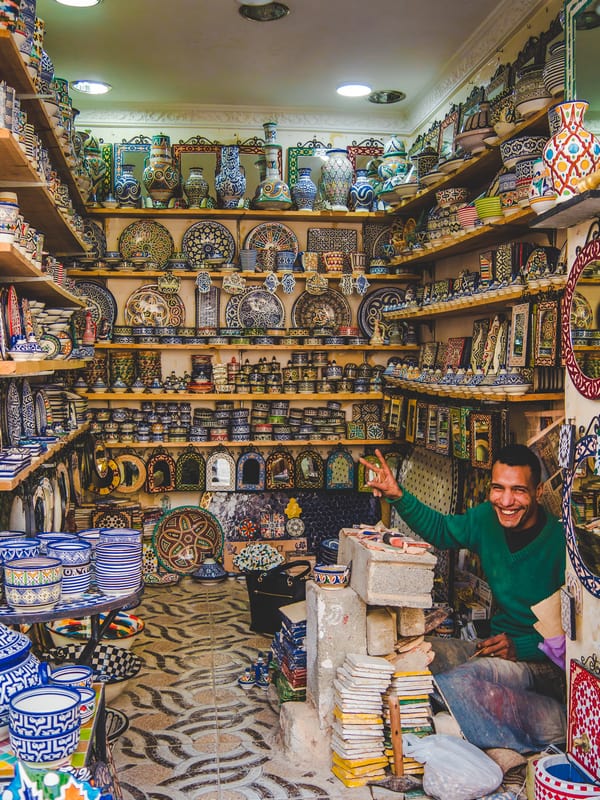
Most Moroccans are honest and very helpful to travelers. However, the country is a very popular destination and just like every other touristic destination, scamming unwary travelers is quite a common thing.
You will find warm and friendly people all around the country but if you’re not careful, you could easily fall for a scam or a tourist trap.

Most Moroccans are very hospitable and helpful people!
The sad part is that most victims don’t realize what happened until someone points out the ridiculous price they ended up paying for a product. It’s a sad experience to feel cheated and it can change the happy mood of a trip pretty quickly.
In this article, I’ll tell you about the most common scams in Morocco and give you tips and pointers on how to avoid them.
Disclaimer: This posts might contain affiliate links, meaning that if you make a purchase through these links, I may earn an affiliate commission. Thank you for helping to support this website!
Morocco Travel essentials and resources
- Morocco Travel Guide: 19 things you should know before you go
- Where to go: The 17 most beautiful places to visit in Morocco
- Plan your trip: 3 itineraries to discover the best of Morocco
- Is Morocco safe: 18 useful tips to stay safe while traveling in Morocco
- Tours and experiences: Book a customized tour
- Where to stay : Find a room in a hotel, hostel, guesthouse or desert camp
- Travel Insurance: Find the best travel insurance for Morocco
- Getting around : Rent a car in Morocco or travel by bus or train
TABLE OF CONTENTS
12 Common Morocco scams
1. nice guy showing the way.
This scam can be encountered everywhere in Morocco and comes from the very low wages Moroccans are paid (the daily wage in Morocco is about 10 USD). This dishonest trick is particularly rampant in big cities.
It consists of offering unsolicited help such as pointing out the way to a hotel or guiding you to a restaurant. Once you arrive at the location the scammer will ask you for an overinflated tip in exchange for his service.
For example, while you’re walking with your backpack in the streets of the old medina of Fez or Marrakech , someone approaches you and suggests guiding you to your hostel.
Once you arrive there, he asks for 30 or 50 MAD for the five minutes it took to help you and will not leave until you give him a tip.
While walking in the old Medina of Tangier , I encountered such scammers trying to bring us to restaurants or shops on a daily basis.
It was really common but after months of backpacking around the country , we were used to it and knew what would happen if we followed these people.

The Old Medina of Tangier
How do you avoid this scam
Unfortunately, it’s not very likely that the police is going to help you if you find yourself harassed by someone that brought you to your hostel.
Be very wary of exaggeratedly friendly strangers who approach you out of nowhere and offer their help. Only ask for help if you absolutely need it, and if so only ask people inside their shops or traffic and police officers.
If there are young guys around just ask for directions but always remember to insist that you don’t need them to guide you.
Quick tip: Learning some words in Moroccan Arabic will help you avoid this trap.
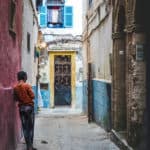
Is Morocco Safe? Useful Things to Know before you go

2. Over-inflated price for a camel or horse ride
This scam is more common in places like Merzouga, Marrakech or in coastal towns where camel tours are very popular.
People there will offer you a ride on their animal and either bring you farther than agreed and then overcharge you or simply charge you an inflated price from the very beginning.

Another variant of the scam is when the camel owner brings you very far from your starting point and demands double the payment just in order to return you to the village you started from.
This can be a very stressful and scary experience but there are ways to ride camels in Morocco without putting yourself in such a situation.
How to avoid this scam
If camel riders ever try to strand you in the middle of nowhere, threaten them to call the authorities. Mentioning the police will make them change your attitude towards you immediately.
The best way to avoid this classic con is to refuse to ride a horse or camel unless it’s from a trustworthy company. You can find these companies by booking your camel or horse tour online beforehand.
You can find some great and affordable tours on Get Your Guide :
Click here for more location-specific camel and horse tours.

How to plan a desert trip to Merzouga, including the best things to do in the Sahara desert .
3. Fake items sold at the market (Argan oil, carpets, saffron)
Popular items sold at the markets, such as Argan oil, pottery, carpets, saffron, etc. will usually be fake and overpriced. For example, sellers might claim that a carpet is over 100 years old or that it came from a Berber tribe in the mountains and then ask a ridiculous price for it.
They might even insist that you can make a very high profit by reselling it in your country and then they’ll lower its price just for you.
If you pay the asked amount of money, you’ll be scammed at a hugely inflated price and it’s also very unlikely that you’ll be able to resell the carpet for a higher price back home.

Argan oil is often diluted with other more common types of oils but its price will remain the same.
If you want to buy Argan oil, it’s better to get the oil in the region surrounding Essaouira or Agadir. This is where the oil is locally produced so the chances that you’ll buy fake Argan oil there are very small.
However, watch out in cities like Marrakech and Fez .
Saffron is a very expensive spice that is unfortunately commonly faked and sold at a super high price in Morocco. It’s one of the most widely faked spices on the market and it’s quite hard to distinguish the real thing from the fake copies.

What I would recommend is to first check with your hotel or hostel staff how much certain items should cost and if you can trust the quality of these souvenirs.
If you have local friends that you trust, you could always go to the market with them to buy gifts. Not only can they recommend items and tell you which ones to avoid, but they can also help you haggle the prices.
When it comes to saffron, a good way to distinguish the real from the fake is to smell it. Never buy this spice in a sealed container. Real saffron has a very intense and strong distinctive odor.
If you put your nose in a jar that is supposed to contain saffron and you don’t smell anything, it’s likely you’re being sold safflower. It’s a very similar flower but it doesn’t have the same flavor.

Top things to do in Essaouira – Essaouira City Guide

4. Fake tour guides
This scam is quite similar to the one where a ”friendly Moroccan” shows you the way to your hostel.
The scammer pretends to be an official guide who is being paid by the tourism board of the city and offers to bring you on a tour.
Very often he also has a fake ID resembling the ones carried by the official guides. This fake guide, however, is not paid by the city council nor is he officially working for them.
Although at first he may not ask for money, he’ll bring you to shops where he will receive a commission if you buy something. He might also try to bring you to the restaurant of one of his friends.
We encountered one of these fake tour guides while we were visiting the city of Tinerhir . He invited us to visit the city with him and even after we politely refused, he kept insisting that he would bring us to the best carpet shop in town (probably his brother’s or uncle’s shop).
In the following days, every time we met him in the streets, he would insist on bringing us there and started to become even slightly aggressive.
Another version of this scam is when a self-proclaimed tour guide claims that the only way you can visit a destination is by using his services. We had that happening to us when we visited the Ouzoud waterfalls near Marrakech .
A guide was waiting for our group far away from the official entrance of the site.
He went on saying that it was impossible to visit the waterfalls independently and that each member of the group would have to pay him 3 euros at the end of the tour for his services. The driver of our van was on the scam with him as he had dropped us off far from the entrance.
Because I spent a lot of time in Morocco and I learned Moroccan Arabic , I was well aware of what was going on. Cynthia and I managed to leave the group and we explored the area around the falls by ourselves.

How to visit the Ouzoud Waterfalls in Morocco

Avoid any tour operators or guides that do not have an official website or reviews that you can look up online. Always ask them if they have an office that you can visit and what exactly will be covered in the price of the tour.
I would suggest booking a tour with Get Your Guide . They offer various day trips or multi-day tours from Marrakesh and other Moroccan cities and you can also check the customer reviews for each tour.

Ait Ben Haddou – only a day trip away from Marrakech!
5. Pickpockets in Morocco
Something you should definitely be aware of in the more touristy cities of Morocco is pickpocketing. This is particularly likely to happen in Jema El-Fna in Marrakech or in the small busy streets of Fez .
Unwary tourists visiting these cities can get their most precious valuables stolen (often wallets or passports) while they’re walking around in the crowds.
A skilled pickpocket in Morocco can take off with just as much money or valuables as an armed robber would anywhere else. And there isn’t much danger of confrontation or risk of being identified.
By the time the poor victim realizes what’s happened, the pickpocket will be far away.
Pickpockets usually work in gangs and will try to look around to spot anyone carrying expensive valuables or someone neglecting to keep an eye on his phone or bag.

Be careful in crowded places!
How to avoid pickpockets in Morocco
The best solution to avoid this scam is to stay very alert and aware of your belongings at all times.
You should leave all your important and valuable items at the hotel and walk around only with what is absolutely necessary.
Keep your wallet in your front pocket or carry a money belt . Another great option is to travel with a slash-resistant and lockable anti-theft bag .
Keep a low profile and avoid walking around with very expensive jewelry. I would also recommend making a copy of your passport and only carrying this copy with you around if you need to show some ID.
Just in case, get good travel insurance that covers theft.

What is the best budget-friendly travel insurance for backpackers?

6. Henna women of Jemna El-Fna
Imagine this scenario: you’re standing on the main square of Marrakech when all of a sudden you feel something warm on your hand.
You turn around to see an overweight Moroccan lady who spilled some ink with her ink syringe on your hand. She kindly offers to fix her mistake by giving you a full henna hand tattoo.
Now here’s the catch; as soon as the tattoo is finished (and there is no guarantee it’s going to be a nice one) she will ask you for one hundred to two hundred Dirham for the few minutes it took her to draw the art piece on your hand.
She won’t care whether you like the end result or not. It’s also likely she will harass and follow you if you refuse to pay.
Note that even if you were the one who approached one of these ladies for a Henna tattoo, any price that was initially agreed upon is not likely to be honored once the tattoo is done.
Another reason to avoid Henna tattoos in the streets of Morocco is that most of these scammers will use something known as black Henna instead of the real deal.
It’s an ink that stains your skin black instead of brown and it’s really dangerous because it contains paraphenylenediamine (PPD), a hair dye. When it’s applied to your skin, it may look like a real tattoo, but allergic reactions to PPD can cause blisters, open sores, and scarring.
It’s easy to tell whether the Moroccan henna ladies are using black henna or the traditional one. Traditional henna paste is usually dark green, khaki, or greenish-brown color. It’s never black. If a henna artist is applying a thick black paste on your hand, stop her immediately.

Is M a r r a k e c h Safe? Useful Things to Know before you go
How can you avoid this scam
If a woman spills some ink on your hand, you should immediately wipe it off and walk away.
Even if she is super insistent on fixing her mistake by giving you a complete hand tattoo, do not accept her offer. For one, it will be overpriced and you don’t know if she will be using the dangerous black henna ink.
The best way to get a safe, fairly priced henna tattoo is to ask your hostel staff what could be the most reputable place to go to.
7. Pictures with live animals
In the large squares of very touristic cities such as in Jemma El-Fna in Marrakech , you might encounter people walking around with animals such as snakes or monkeys.
When you walk by, these scammers place the animal on you and invite you to take a picture.
They may even snatch your camera out of your hand to take a picture of you with the animal. They then try to convince you into paying them a super large sum of money for the picture you took with their critters.
If you give less than what they’re expecting (which is usually something around 100 MAD or 10 euros), they’ll throw the money back at you and start shouting while asking you to pay more.
The first way to not fall into this trap is to avoid people insisting on you taking a picture with their animals. If you do like a photo, however, pay them only what you consider to be a fair price and then walk away.

Things to do in Marrakech – A Complete Guide to Morocco’s Red City
8. Restaurants with hidden prices or two separate menus
Some Moroccan restaurants use very dodgy techniques to cheat unwary travelers. For example, the waiters may claim that bread and water are complimentary with the meal but then charge for them afterward. They may also charge you for food you have never ordered.
Another more sinister trick is to have two separate menus. They’ll show you one before you order on which the food is cheaper.
When it will be time to pay, you’ll notice that your bill is much more expensive than what you expected.
If you ask for an explanation they will bring a different menu with much higher prices. There is no point in arguing with them because you’ll never see the first menu with cheaper prices again.
This happened to me during my first week in Marrakech . I ordered a lot of food in a restaurant after seeing how good the prices on the menu were, only to be conned when they brought a different menu at the end of the meal.
The waiters were all standing around me like a mob, insisting that I was wrong about the prices while they were holding a completely different menu with different prices. In the end, I just got angry and walked away without paying anything.

Morocco Photography Tips – How to take portraits of the Moroccan people
If you ever are the victim of this scam, simply pay what you assume the initial price was and walk away.
The restaurants operating this type of racket are known by the cops, so they will never file a report against you if you just walk away without paying their ”tourist” prices.

9. Tannery scams
Morocco is famous for its leather tanneries. The ones located in Fez and Marrakech are particularly popular among tourists. The problem is that they became a center for a nefarious ”fake guide” scheme.
When walking in the vicinity of these tanneries, you are approached by overly friendly ”guides”.
They assure you that if you visit the tanneries by walking through the main entrance, you’ll have to pay a super high price. They then guide you through a different entrance where they assure you that you won’t have to pay for a ticket.
The problem is that once you are in the tanneries, they start asking for money, and usually much more than what you would have paid if you had bought the ticket.
Some travelers reported being aggressively pressured into paying for that overly charged ”exclusive tour” of the tanneries.

If you want a tour of the tanneries , it’s better to go through the main entrance. If you want to get closer to the workers, agree on a price beforehand and insist that you will not pay more.
It’s always better to ask your hotel or hostel staff for a professional tour guide or book a tour via a trustworthy tour operator.
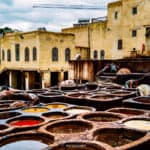
How to visit the leather tanneries in Fez

10. Fake Moroccan fossils and minerals
Morocco is a famous destination for fossils but most of those sold in the shops are fake.
It’s common to see dinosaur jaws and trilobites being sold at the souk of the old medinas but none of them are actually millions of years old. They’re usually fake concrete sculptures designed to imitate the real thing.
Morocco is also a big hub for fake or enhanced geodes and other quartz crystals. The sellers might have real geodes with quartz crystals but will then add purple dye to the inside of it to simulate the appearance of amethysts.
The odds of you finding actual fossils on the Moroccan markets are getting smaller day by day. Here are a few tips to distinguish fake fossils from real ones:
- If you see many identical looking fossils side by side on a stand, they will usually be mass-produced concrete castings. You can tell they’re fake because they all look the same.
- Rare fossils will never be cheap. If it’s really a fossil it should cost a fortune.
- Dinosaur teeth are almost never found attached to a jaw so finding a jaw with teeth attached to it in the souk is a clear indicator that it’s a fake.
- Perfect looking fossils are likely to be fake copies. Most of the actual fossils are cracked and have a lot of missing parts.
There is no problem in buying a fake fossil if you think it would be a nice addition to your living room, just remember that it might not be worth the price you’ll pay for it.
11. Kif and hashish drug Morocco scams
This is probably the most sinister of all the Morocco scams in this article. The way it works is quite simple and that makes this racket even scarier.
A hashish dealer will sell you a big amount of the drug and even smoke a part of it with you. Once you’re high as a kite, a cop (who works together with the dealer) will show up and demand that you pay a huge bribe to cover up the crime. You’ll end up paying twice and if you don’t, you could end up in a Moroccan jail.
While we were traveling in Chefchaouen , we got many times approached by hashish dealers. We simply brushed them off and continued walking, well aware that there is a whole illegal scheme at work in that part of Morocco.
We’re not saying that buying hashish in Chefchaouen will end up in a scam as it’s a place where many tourists typically buy it without any problems but we wouldn’t risk it.
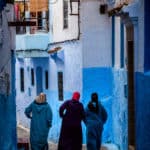
Top Things to do in Chefchaouen, the Blue City of Morocco
Never buy any drugs in Morocco. If caught you will face serious jail time and there will be no way around it.

12. Fake beggars
In Morocco, some people will pretend to be poor and afflicted by different ailments such as blindness or being unable to walk. They will then stand on the side of the road and put on a show for a few pennies.
In some cities, there is a racket in place that enables begging ladies to rent a baby for a day. By sitting with ”their” baby they look miserable and inspire pity even more. This is gross and shouldn’t be encouraged.
Unfortunately, this scam is encountered all over the world.
I would recommend ignoring beggars, otherwise, you risk attracting more of them and this could potentially escalate into a dangerous situation.

This cat might also beg – for cuddles and food
Bonus Morocco scams: Car rental scams in Morocco
Morocco is a country where it’s very easy to rent a car and drive around the whole country . The roads are in very good condition, the landscapes are pristine and gas is cheap.
Renting a vehicle in Morocco is a great option if you want to see as much of the country as you can in a short time and have the biggest amount of freedom while doing so.
Here are a few car rental scams that many tourists fall for in Morocco:
Getting charged for damage that was already on the car
Although this is not very likely to happen with bigger companies, it’s something that you could fall for if you rent through a smaller agency.
It’s very important to inspect the car thoroughly and take note of every crack or damage that was already on the car before you take off with it.
Record a video with your smartphone of the car condition before you leave. This is a backup if the agency tries to charge you for damage that was already there.
Pay attention to the interior as well. There are many accounts online of foreigners who were charged for cigarette burns that were already inside the car.
Getting charged for a hidden cleaning fee
Another common scam when it comes to rental cars in Morocco is to be charged a cleaning fee when the car is returned.
You only have to pay a cleaning fee if it was already stated on your initial contract.
Getting the car with a gas tank that is almost empty
Normally car rental agencies in Morocco have a policy of leaving you with a car that has a quarter of the tank already filled up with gas.
However, some dubious car rental agencies have scammed people by giving them a car with a gas tank that was almost empty and then sending them to a gas station owned by family members or friends to make an even bigger profit.

Everything you need to know about renting a car and driving in Morocco
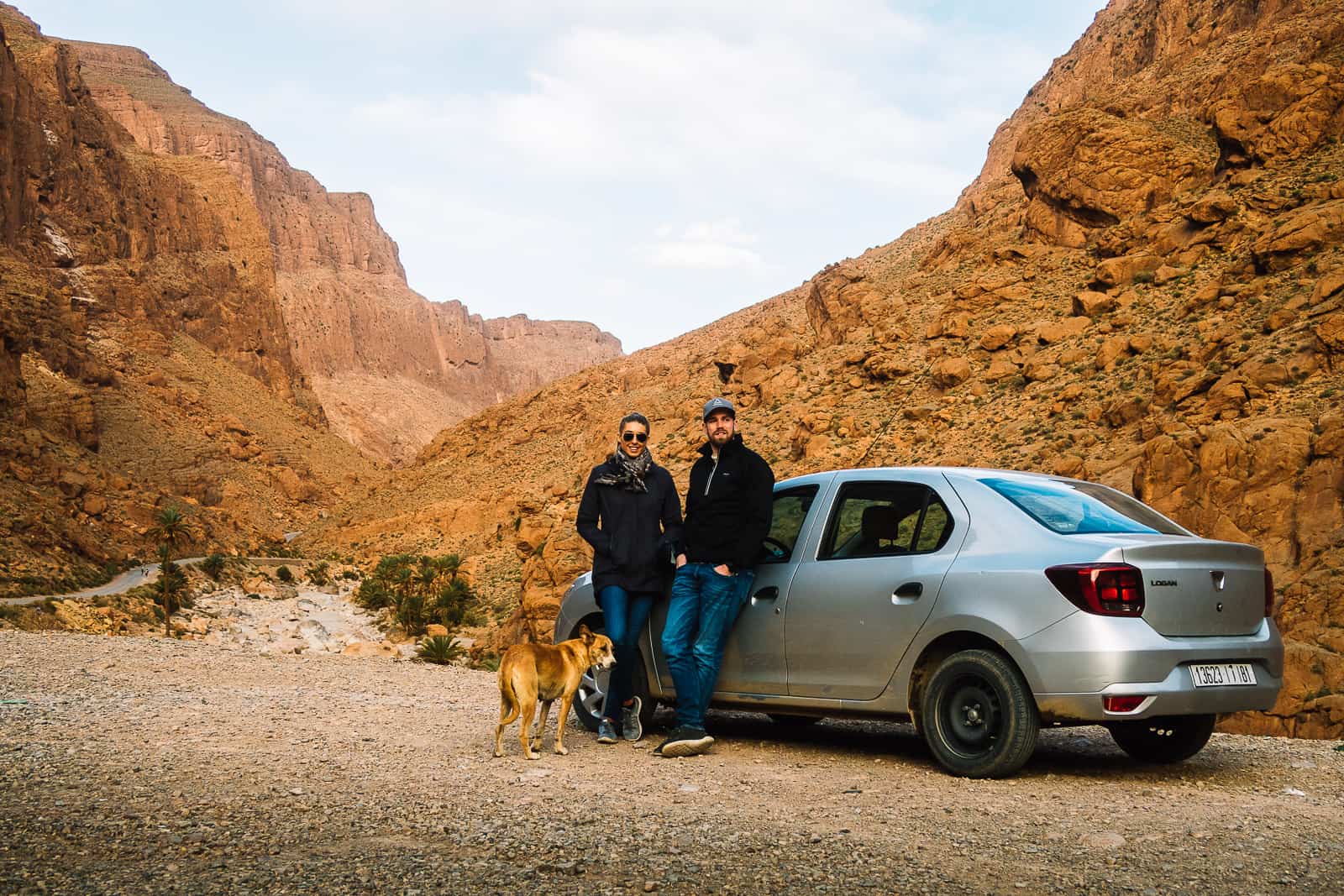
Emergency phone numbers in Morocco
If you ever run into a dodgy situation in Morocco and need to call the police, you can do so by typing 190 or 112 in big cities.
If you’re outside the city, the number to call is 177 . This will contact the Royal Gendarmerie .
A few other useful numbers for when you travel around Morocco are 150 to call an ambulance and 15 for the fire brigade.

I hope this list of common scams in Morocco helps you have a better and safer trip around the country. If you think any scam is missing or should be added to this list, contact us or let us and other readers know in the comments below.
Have you ever been a victim of a scam while traveling around the world? Tell us your story in the comments below!
Related posts
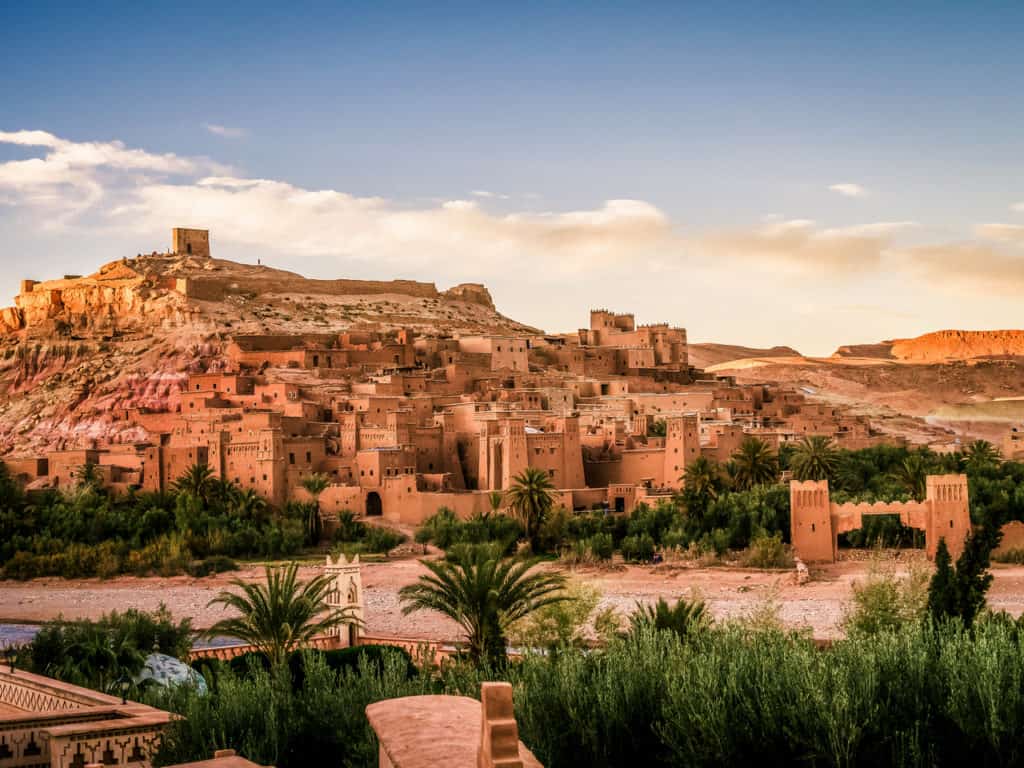
19 Very Useful Things to Know for Backpacking in Morocco in 2024 – The Complete Travel Guide to Morocco
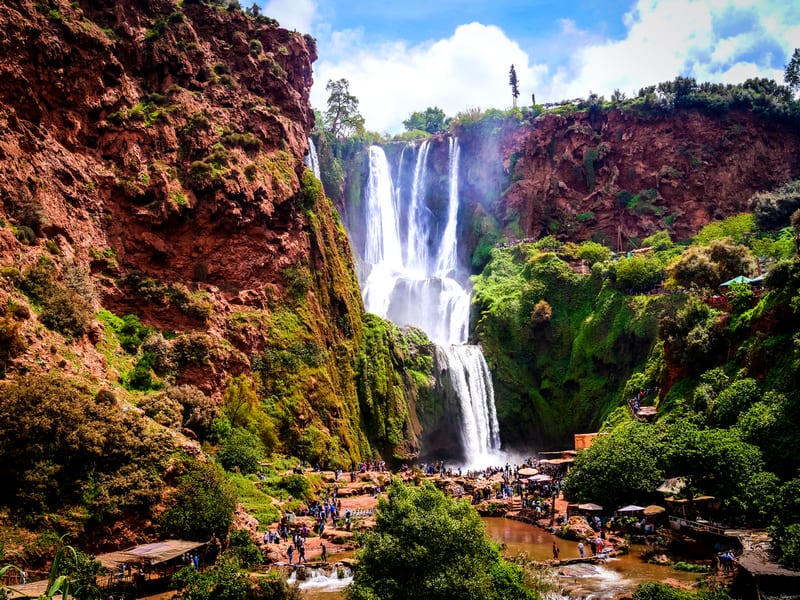
The 17 Best Places to visit in Morocco in pictures

The Honest Guide to Meknes Morocco and Volubilis – 9 best things to do and what to skip
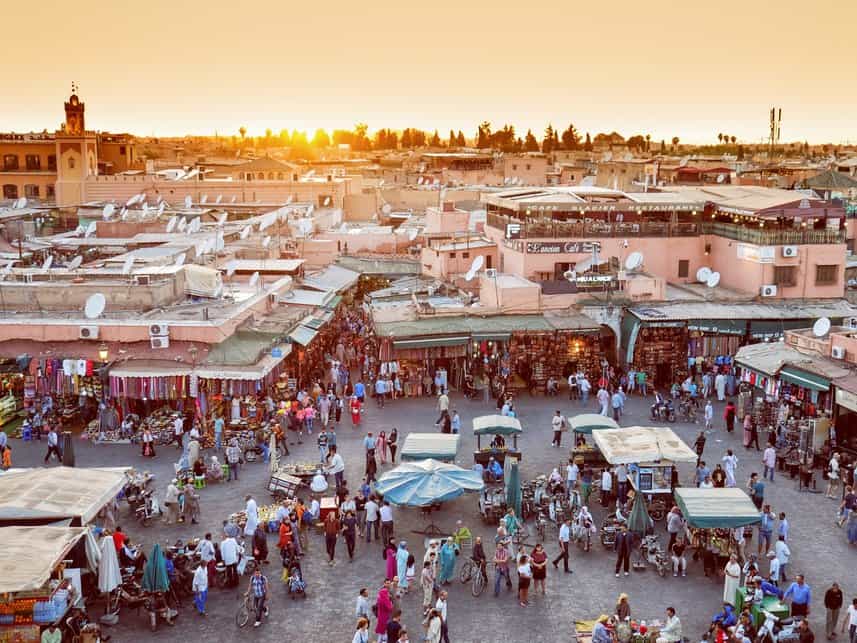
16 Top Things to do in Marrakech Morocco – The Complete Guide to Morocco’s Red City
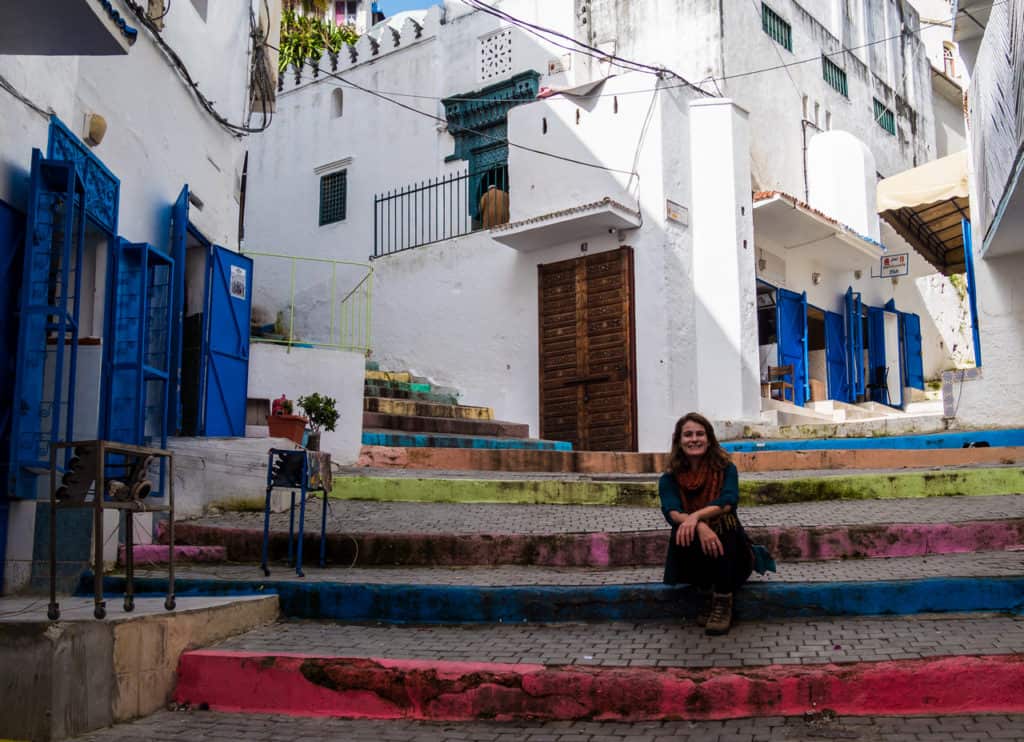
Is Morocco expensive – Morocco Budget Guide for 2024

11 Best Things to do in Rabat Morocco – The Complete Guide to Morocco’s Capital City
More morocco travel resources:.
- What you need to know before you go: 23 Travel Tips for Morocco
- Is Morocco Safe? Safety Guide to Morocco
- How to avoid the 12 most common scams in Morocco
- See the best of Morocco by following these 3 great travel itineraries
- Visit these beautiful 17 places in Morocco
- Tips for traveling to Morocco during Ramadan
- Morocco City Guides: Fez , Tangier , Essaouira , Chefchaouen , Rabat , Meknes , Marrakech , Casablanca , Agadir
- The best daytrips from Marrakech
- Fun things to do in the Sahara: how to plan a desert trip to Merzouga
- The Complete Guide to Imlil and Hiking Mount Toubkal
- Everything you need to know about visiting the Ouzoud Waterfalls
- Rock climbing and other fun things to do in the Todra Gorges and Tinerhir
- How to get to the Akchour Waterfalls from Chefchaouen
- A guide to visiting the Ouzoud Waterfalls
- Surfing in Morocco – The best surfing spots in Morocco
- How to visit Paradise Valley in Agadir
- What to wear in Morocco: Complete packing list for Morocco
- Morocco photography tips: How to take portraits of people in Morocco
- Extend your stay in Morocco using one of these 3 ways to renew your Morocco visa
- Useful tips on how to take the ferry from Tangier to Spain
- Books about Morocco: 10 Great Novels set in Morocco
22 thoughts on “Morocco Scams: 12 Common Scams you might encounter in Morocco (and how to avoid them)”
Hi, i spent 5 months in morocco, travelling from north to south and to say that Moroccans are honest people isn’t so. The majority will try to scam you
Moroccan scams I encountered: Taxi scam- As I arrived at the airport, a Taxi driver asked me if I needed a ride to my hotel. He told me it would cost 250 dirhams (close to 25 usd) to drive me 6 or so miles. I instinctively new it was a scam. The fair price is closer to 100 dirhams
One that someone mentioned above-Someone will strike a conversation and tell you about an amazing market in the area. Then he will take you to a shop. Then you will be encouraged to go shop to shop by the keepers. The man will show his face here and there to make sure you are still there and still buying. In my opinion, this a scam that is pretty mild. No one is forcing you and you just need to use willpower not to spend more than you want. In this case, I was actually glad to be shown these shops. I had an abidance of family members to get gifts and that was the main reason I was in the area.
Nice guy showing the way- This happened multiple times. One guy pretended to be so friendly and asked me to sit for tea. He was a little older and I wanted to give the benefit of the doubt, despite my suspicions. We sat down for tea and of course he asked for money. I gave him 60 dirhams or close to 6 dollars. And a not so nice look. I often have an issue saying no to people, and 6 dollars is really nothing
All in all, I didn’t experience the worst types of scams. For context, I’m a 6’4″ male and Muslim. Not sure if true or not, but multiple Moroccans said I could blend in by dressing like a Bedouin. I’m African American, but most people can’t really place exactly where I’m from. Many people were helpful, honest, and made my trip special. I will travel back soon and be mindful of some of these things.
Hello Usman, thanks so much for sharing your experiences with us so people know what to look out for. I’m hapy to hear you hade in general a good experience in Morocco!
Another one is the local man who will charm you through the winding streets of the Medinas to a ‘special’ shop, which I have heard twice referred to as a ‘cooperative’, which may or may not be true, and they will offer tea and sit you down to view the goods, making a big show of unfolding and laying out loads of fabrics, etc.
‘Made by Tuaregs, made by Berbers, made by hand, takes 25 days, we are come into the city only once a month (similar to count-down timers for online deals), made from sheep wool (many are), goat wool (whatever that is), cactus fibers (which is a real thing), etc., my prices are 3 times what you find elsewhere because these are REAL, + a whole lot of ‘we are good people, other shop owners are not-so-much’ type-deal.
The starting offer for my blanket, for instance, was €350 ! I found the (same) blanket in the regular markets at a starting offer of €15. I DID buy the special co-operative ‘Berber blanket’, and this is how I know these things.
My consolations, however, are numerous. For starters, the blanket itself is actually quite beautiful and I will keep it forever. Plus it has a story to tell behind it. And I not only enjoyed my experience in the shop, but the tea they gave me was excellent and I loved meeting the people in the shop and exploring the Medina completely away from the crowds 🙂 I also think €45 goes a long way to help people who can hardly get a visa to leave their own country..
I might be grasping at straws for this one, but aside from the other shop who offered me €15, I had trouble finding a blanket in the same style, seemingly making it more rare, and the pattern on the blanket I bought for €45 was much nicer and more regular than the €15 blankets I found, so I think whatever the difference in price would have been if I hadn’t been scammed is a relatively inexpensive lesson to have had to learn the hard way.
In conclusion, I really do love the blanket, which is patterned with beautiful tan blocks of color, and I genuinely enjoyed my trip through the un-touristed Medina in the company of my guide, the warmth of the people I met along the way, the hospitality at the shop, learning a bit of Arabic, flexing my bartering skills, and the takeaway from the experience as a whole. I felt like I was in a video game, following an NPC through some kind of tutorial, if the game was entitled ‘Welcome to Marrakech’
Pro tip: if you REALLY want something, just wait and see where else you can find it. There is nothing in these shops that is truly unique, and there are no prices on anything, so you might be wise to sleep on it.. not literally, though, like I ended up doing on my new blanket.
Also, in Tangier I was offered €28 for an ‘authentic’ nomad head scarf that can be found anywhere for less than €5.
I heard a hapless English man working a separate €28 offer down to €22… no rules here !
P.S. I have long, blonde-tipped surfer hair and blue eyes. I practically scream ‘money’
Thanks for sharing your story and the valuable tips!
Thank you for this information!!! Truly valuable!
A few others I encounter on a regular basis: The meter of the taxi is ‘broken’ and they charge 50dh for a ride that is just worth less than 15dh. Now I just tell them I can call police and report you? Suddenly the meter works again!! The ‘mistake’ by giving back too little change.. then when you notice and tell them., they say oh sorry! But it’s not a mistake it happens too often, so always check if you get the correct amount back! And lastly I see this happening more and more, guys following you on their motorbike after you went to the ATM and they follow you till they find the right moment to grab your bag or phone out of your hand and driving fast away, with the risk that you get schlepped over the street because your bag is crossbody! This happened to me recently and 2 of my friends. My strap broke so I was luckily not dragged over the street. But my friend was not so lucky!! So keep an eye around you and walk on the sidewalks at all times!!
I would also like to add the historical and cultural scams, you will get things sold to you under the name of ” Moroccan Cultural thing” such as scarfs, and attires, however it’s all a made in china or india. You will also hear a lot of fake stories and cultural appropriation of many cultural things such as music ( Especially Rai Music and Andalousi of Tlemcen ) , Attires ( such as The Ottoman Caftans which they got from Algeria, Architecture ( Zayannid and Zirids Dynasties architecture) , or even famous personalities or tribes of boarding countries such as Tuareg Tribe, where they will show you white moroccans claiming to be Tuareg of the Westren Sahara while Tuareg exist only in Mali, Niger, Algeria, Lybia, and Chad , so try to do a research of every info you hear there, and no, not from Wikipedia beacuse they’ve been playing in Wikipedia as if it was an exam sheet of paper.
Thank you for letting us know Kathie!
I am unfortunate to say that I encountered if not all, most of these scams mentioned. I would definitely add the questions everyone seems to ask you “Where are you from?”, or “First time in Marrakesh?”. This is how they decide the approach they will have with you.
seems like full of scams lol
You’ve got to stay aware 😉
I would add a “fake love” for solo woman travelers to this list… I am going to write an article about this experience.
You’re absolutely right, scammers seducing foreign women to get money is an unfortunate but very real experience. Have you been the victim of such a scam before?
I appreciate your feedback and having travelled Morocco through from Marrakesh , Casablanca and Agadir I can safely tell you the best way to buy hash is through local connections , and that’s through your tour guides and hotel people because they won’t put you in prison .
The other comments are all wise also , I would say that having gone to ouzoud waterfalls and had the tour of the waterfall and mountain route I can say that Samir our guide charged us £3 or 30 dirhams to give us an in depth tour of how the Berbers live and what languages originate now in Morocco also how the Berbers fought the war to keep their land against colloniniasm.
I would simply go through local connections and also in Agadir and Marrakesh the further you go from Agadirs beachfront and Jemma Al fna square you will find much better prices. In the souls watch your handbags and pockets and anywhere in general you go in the world you trust no one 100%
A girl who pretended to LOVE me at first sight, stole 500 US Dollars in the first meeting and now I cannot do anything about it. Please be careful dear loved ones!
Sorry to hear you about this Ahmad!
Funny list haha! I love Morocco and some of these things I’ve found. I would add one: when a young guy approaches you and says “hey!! I’m the cooker of your hotel, don’t you remember me??, It’s my free day, wanna go tour”? So much laughs when I remember. Greetings from Argentina
Hahaha, yeah that sounds like a scam that would work on a lot of people, unfortunately. Well even if there are a lot of scams in Morocco, it still remains one of my favorite countries. I hope you had a great time there!
Well, been to Morocco several times and except for Henna women I didn’t encounter anything else from this list. Argan Oil is oftentimes diluted with olives according to my experience and its really easy to notice, if you smell it. It really reeks of olive oil.
Hi Nina, I’m very happy to hear that, aside from the Henna women, you didn’t encounter any scams in Morocco! Thanks for the tip on how to easily make out the difference between real Argan oil and the diluted one! That will help people!
Leave a Comment Cancel Reply
Your email address will not be published. Required fields are marked *
Save my name, email, and website in this browser for the next time I comment.
The Unknown Enthusiast
17 Moroccan Scams: How to Spot Them and What to Avoid
If you’re traveling to Morocco, it’s a good idea to be aware of the many types of Moroccan scams you may encounter. Read on for our full list !
Morocco was beautiful, gorgeous, dazzling, full of olive and date trees, absolutely resplendent in her tiles and mosaics, carved stucco and cedarwood, a hint of jasmine floating through the air.

Morocco was also CHOCK FULL of scammers and hustlers. We sometimes felt like we were fending off scams and hustles left and right, especially in big cities like Marrakech and Fes.
(Of course, that is not to say that everyone in Morocco or Marrakech was trying to take advantage of us. We met many lovely people who were kind and honest. But unfortunately, that group of people who tried to take advantage were the ones that, by definition, interacted with us more).
Fortunately, most of the scamming was of a similar flavor. We fell for a couple things the first day, and then wised up – mostly .

17 Moroccan Scams You May Encounter
We did see and experience a lot of different types of scams, so I’m going to try to break down everything we know and learned in our 10 days in Morocco in the following sections.
It’s hard when you don’t know what’s real and what to expect! It’s especially hard if you enjoy being a nice person and don’t want to be rude to someone.
That’s why we’re going to spill everything we know about navigating scams in Morocco (and not feeling like a chump)!
1. The “It’s Closed” Scam
We fell for this one on our first day in Marrakech. We were looking for the El Badii palace and the map seemed to indicate we could cut through a particular side street.
A friendly young man stopped and told us that “oh, that way is closed” and ostensibly, it did look closed. Then he said “El Badii closes for lunch from 12-3 each day,” which sounded weird, but, hey, maybe it did. He kept chatting with us and then convinced us to let him take us to this “super great artisan market.”
El Badii, as we double checked later, was certainly not closed from 12-3 each day.
Our second mistake was going to the “artisan” market, which was a huge warehouse of goods, where the locals get a kickback when they bring customers. To underscore that point to us, he saw us again later, asked if we liked the store, and when we were like “meh” he said oh, you should go back later (and buy something so he could get his commission).
We encountered this scam in Morocco over, and over, and over. If someone tells you “it’s closed,” ignore them and continue on to your destination.
(Ironically, there was one time when an attraction actually was closed and multiple people told us that, but we forged on until we saw the “closed” sign. Still the right choice).
2. The “You’re Going the Wrong Way” Scam

We encountered this Moroccan scam many, many times. Similar to “it’s closed,” the “you’re going the wrong way” is intended to disorient you and set them (the local) up as a guide to take you to the “right” spot.
Honestly, this one was just so amusing sometimes, as we would be walking past someone and they would just shout out “Oh, the Blue Gate’s that way” pointing in the opposite direction of the Blue Gate, which I had literally already walked by at least 6 times and knew 100% we were going the right way.
Or, again in Fes , when we were looking for the tanneries, multiple times we were told, “Oh, no tanneries that way. Only houses.” *Shockingly*, we came right to the tanneries 2 minutes later on that very street.
If someone says you’re going the wrong way, I almost take that to mean you’re going the right way. Certainly, do not listen to anyone offering directions .
We also avoided telling people where we were going, too. If we stopped to consult a map, or they just flat out asked “where are you going,” we usually hedged and didn’t tell them. We just felt we didn’t need to give anyone any encouragement to follow us or bother us further.
3. The “I’m Not a Guide”
This is something you will read in any article about Morocco, and I’ll repeat it here: You do not need a guide.
This is good advice, and one to definitely follow.
Now, the guys in Morocco know that most people know to not go with a guide. So they’ll say “I’m not a guide” when you don’t want to go with them. They either do this because A.) They’re lying and will definitely ask for money later or B). They want to take you to their friend’s store to get a kickback (as in our example above).
If someone offers to take you somewhere, and you hedge, they may say, “Oh it’s ok, I’m not a guide, I’m just going that way.” Knowing what I know now, I would be a lot more forward with saying “no thank you, we’re good” because every time we got soft, we ended up at someone’s shop or with a hard sell.
4. The “I’ll Just Walk With You” Scam
Several times, we had someone want to be a guide or give us directions and then just start walking with us, as if they were actually taking us somewhere.
This is one of the most uncomfortable Moroccan scams, I’m not going to lie. How do you get rid of them if they keep walking with you?
Well, first off it helps when you don’t tell people where you are going, because if they think they’re taking you one place and you veer off another way, they often leave you alone. We also repeatedly said, “No thank you, we don’t need help.”
If you can’t shake them off, you may have to be forceful with saying, “We don’t need your help. Please leave us alone.”
5. The Fake Money Scam

In Ait Ben Haddou, as we were walking past a shop, the shopowner came out with a “$20” bill and asked us if we could change the $20 for 200 dirham (a fair exchange rate) because he had no way to get it exchanged locally.
This was one of the most absurd Moroccan scams we ran into because the $20 was obviously a fake. We said no and moved on.
Later, as we walked past the same spot, he tried to get us to come shop in his store. Funnily enough, after that attempt to cheat us, we didn’t feel so inclined to buy from him!
Thankfully, we only encountered this Moroccan scam that one time.
Read More: Hiking in the Dades Valley of Morocco
6. The “Free” Sample Marrakech Scam

This was a scam we encountered mostly in Marrakech . There are guys selling cookies on the side of the road, and I actually really liked these cookies! A fair price is 1 dirham for 1 or 2 cookies.
Well, as we were walking through the gardens of the Koutubia mosque, there was a man holding a tray of cookies. I liked those cookies, I wanted another cookie, and we were walking toward him intending to buy one.
Well, after chatting with the man for a minute, he offered us a “free” cookie.
This wasn’t even our first day, so I’m a little embarrassed to admit that we fell for this one!
We accepted the “free” cookie, and then he started giving us other items too, which of course, were not going to be free.
We told him we didn’t want the other ones and gave them back, at which point he told us the cookies we were holding (and had started eating , ugh another misstep) cost 10 dirham.
(He had also tried to get us to sample the second set he gave, which is when it finally dawned that this was a setup.)
When we said “oh no, you said it was a gift” he said “oh one of them was, but not the other one” and he wanted 5 dirham for the one cookie, which is 5X more than what you should pay.
We ended up giving him 2 dirham (one for each cookie) and walking away.
We heard lots of other people saying the same thing in Jemaa el-Fnaa – “oh it’s a gift” “oh this is free”. Don’t trust anything as being free – especially food!
However, in contrast, one day in Marrakech we walked past an artisan woodworker with a little shop. He was using his foot, a knife, and a hand-powered motor to carve different wooden boxes and chess sets. We were super intrigued, so we stopped to watch.
This man was incredibly nice, as he let us take a picture and video of him working (we asked before if it was okay to do that) and he started carving a chess piece to show us. When he was finished, he gave me the chess piece as a “gift.” I took it, actually really liked it, and was intending to pay for it, but when I tried to give him money, he refused.
I tell this story so it doesn’t seem like everyone is out to cheat or scam you in Morocco! A lot of people were very kind.
7. The Most Famous of Moroccan Scams: The Rug Bait and Switch
We didn’t end up buying any rugs in Morocco, but I’ve heard numerous accounts of rug salesmen doing a bait and switch with customers. A customer will come in, choose a rug, and then when the owner goes back to package the rug for them to take home, they actually wrap up a vastly inferior carpet.
If you buy any carpets, keep your eyes on the rug the whole time and watch them package it up from start to finish!
8. Tannery Scams
We had heard about tannery scams in Marrakech, but weren’t planning on going to the tanneries there ( we went to them in Fes, though! )
The scam is that a man saying “I’m not a guide, you don’t need to pay me” will stay with you and walk with you to the tanneries, and then wait for you until you’re done and pressure you to pay as you come out.
We didn’t have that experience, but we were in the section of town near the tanneries and a man latched onto us, even though we repeatedly said “we’re not going to the tanneries” or “we’re going somewhere else” or “we don’t need a guide.” He kept staying with us, even when we stopped to look at our phones to try to lose him.
He would say “Oh go to the tanneries and then go where you’re going.” Eventually, we had to say very forcefully, “LEAVE US ALONE. WE ARE NOT GOING WITH YOU.” And he finally left.
Interestingly, there were not a lot of other people around in that part of town. If you do go to the tanneries in Marrakech, I would go in a group and be prepared to stand your ground, as the hustling in this area is intense.
9. “This special market is only here for one day! You have to check it out!”
We heard this regularly, especially in Marrakech. It is possible that there were a whole bunch of different, separate markets that were only there for a day at a time and rotated, but from what we saw after checking out one such “special market,” it felt like a line (and not all that special).
10. Overcharging For Set Prices (taxis to airport)
There are two types of taxis in Morocco: grand and petit. Grand taxis generally take you between cities, while petit taxis take you around one city.
They aren’t just abstract names either, the grand taxis are actually bigger – more like a van.
While in the cities you can and absolutely should negotiate for the price of a taxi (either grand or petit), transfers to and from the airport are a set price.
In Casablanca, the price is 300 dirham ($30) between the airport and the city for a 45 minute ride. In Marrakech, the price is 70 dirham ($7) between the airport and city for a 10-15 minute ride. These are prices for the petit taxis.
While the price is set, some taxi drivers still tried to upcharge us – in Marrakech, one driver tried to tell us 100 dirham, then negotiate to 90, then 80. We stayed firm and said “no, we know the price is 70 dirham to the airport”, and when we threatened to walk away and find a different taxi, he immediately agreed to the 70 dirham price.
11. The Henna Ladies in Jemaa el-Fnaa
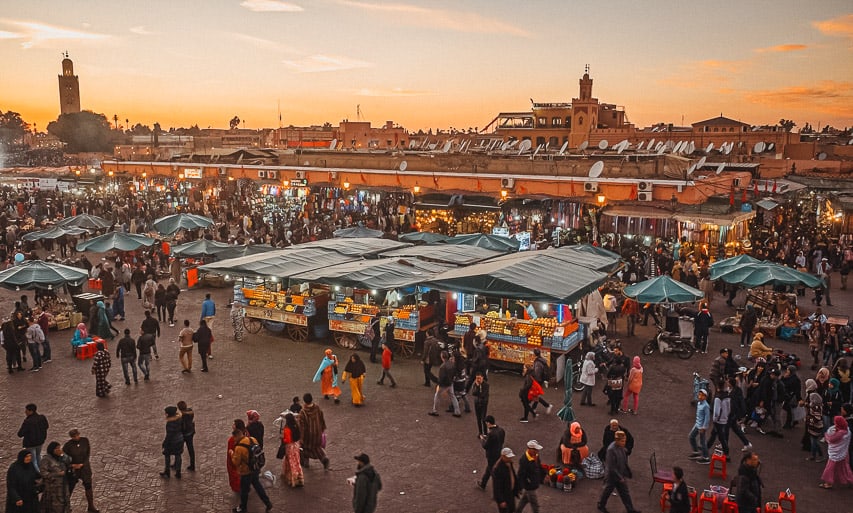
There are many women in Jemaa el-Fna, in Marrakech, offering henna designs. Be sure to haggle on and agree to the price before you get any henna drawn on you.
The scam part comes when sometimes the women will grab your hand and start drawing on a design “as a gift.” It’s not. If they start drawing, pull your hand away and negotiate first.
12. “Take a picture” of Animals Scam (/Cruelty)
Also in Jemaa el-Fna, there are a variety of men out with animals, such as monkeys or snakes. They would call out, “Hey come take a picture.”
We declined, but if we had taken a picture, payment would then have been demanded.
Plus, those animals were most definitely not being treated well. Pass.
Moroccan Scam #13. Outrageous Claims About Quality of Goods

A few times whe shopping for souvenirs in Morocco , we ran into salesmen claiming that their goods were much higher quality than they actually were. For example, a couple times we were told a kaftan outfit was made of silk (they were definitely not silk), with a correspondingly higher price.
In Fes, many shops had ceramic platters with a metal design overlay. The price for these pieces was much higher than regular ceramics, understandably, but the salesmen many times tried to tell us the metal was silver. It was absolutely not silver, it was a type of solder.
And if you’re going to buy saffron, be careful that you are being sold real saffron .
How to tell if you have real saffron? Real saffron is multi-colored – the base is more orange/yellow, whereas the tip is deep red. The shorter the yellow section at the base, the better – but it should still be there. Pure red is often a sign it is fake or colored artificially.
Second, if you look at a piece of saffron, it should have a flared tip – like a super small paint brush – sometimes splitting into 2 or 3 distinct strands. It’s like a little flower.
Lastly, it should have a distinctive smell, sort of like musky honey or hay, and if you get a piece wet, it should smear yellow on paper, while still retaining its own color.
A fair price is less than 30 dirhams per gram of saffron.
14. Hashish Propositioning
In Chefchaouen it is very common to get propositioned for weed. Weed (or hashish) is grown in the area, and while you can easily get it (we were offered it twice during our 3 hours in the city) it is technically illegal and you can get in major trouble for having or smoking it.
15. “I don’t have change.” or “Here’s the wrong change.”
This was another one that only happened once, but it bears repeating. We were haggling for a tagine and the merchant was way, way overcharging (we had seen tagines around a lot and gathered that a fair price was around 30 dirham for a large one).
This merchant’s opening offer was 100 dirham, and he wasn’t going lower than 60 dirhams. (We would’ve just walked away and found someone else to buy from, but we were on our way to the airport to leave Morocco when we decided to try to buy one – it was our last chance).
We finally settled on 45 dirhams, but when we gave him 100 dirhams, he told us he did not have change.
We weren’t sure how a large merchant would not have change, but whatever. He ran across the street to make change, and a couple minutes later came back with our change… but he only gave us 40 dirham in change, not the 55 we should have received.
We pressed the issue, he played dumb, but went back to get us the rest of our change… and came back and again shortchanged us.
At this point, we pulled out of the transaction. We felt like we were getting cheated, and we weren’t happy about that.
16. Negotiate Before Eating or Taking Ride, or Anything
These next two scenarios aren’t Moroccan scams, per se, just situations to be aware of.
You absolutely must haggle on and agree to the price for any food or taxis that you take, before you take it. Do not get in a taxi without agreeing on the price beforehand.
In Marrakech, a fair price for a taxi in the medina is 15-25 dirham (depending on how far you are going). I wouldn’t pay anything more than 25 dirham, unless you are going somewhere farther than 15 minutes away by car.
If the taxi won’t come down to a reasonable price, start walking away. They will usually call out and agree to your price.
17. The Fake Close
Again, not a scam, just a little trick to watch out for. When haggling, often the salesmen will do a “fake agreement,” trying to close you.
The situation: He’s saying 200, you’re saying 150. He starts to agree with you, acts very acquiescent, comes in close to shake your hand, saying “ok, ok ok, I agree… 180 let’s do this” trying to catch you off guard and close you higher.
When it got to that point, we found we could usually still get them to go lower in price. Don’t get caught off guard by the fake agreement! Though to be fair, Matthew latched onto this tactic and started turning it around – “Ok fine, you’re right, we’ll do 150 and call it a day.”
A Couple of Phrases You Will Probably Hear:
“ Brother !” – Often men on the street who wanted us to go with them would call us brother, as a way to soften us up.
“I just want to practice my English” – Another line from people who want to take you somewhere or be your guide.
“Where are you from ?” – Both a way to get you talking and to gauge how much to charge you. It was funny when they would press and start guessing themselves. Apparently we look Dutch. (We are American)
A Contrasting Viewpoint + A Story
Okay, after detailing all of these Moroccan scams and hustles, found especially in the bigger cities like Marrakech and Fes, I just want to add again – not all Moroccans were like this. Most people on the streets were just minding their own business. Many shopkeepers seemed honest and friendly.
Speaking of shopkeepers, I want to add that haggling is an absolute must in Morocco when it comes to shops and taxis. I don’t consider the culture of haggling to be a scam, it’s just the way that things are done there. We had very pleasant interactions with many shopkeepers, even staying and chatting with a few of them just for fun.
I also want to shoutout one situation where several Moroccan people went above and beyond to help us. We were on our way to a cooking class and had taken a taxi to the meeting point. After we got out and had walked down the street, Matthew realized that he didn’t have his phone – it had gotten left in the taxi.
We frantically searched the square and the spot where we had gotten out – no phone. We figured it had either gotten left in the taxi, or had dropped on the ground and someone had scooped it up.
We tried calling the phone, but it rolled to voicemail – Matthew hadn’t been getting great cell service in Morocco, and we figured if someone had grabbed it, they would’ve turned it off or taken out the SIM card. We tried calling it many times with no success, and finally just had to accept it: the phone was gone .
We tried to put it out of our heads and enjoy the cooking class. An hour or two later, I got a text on my phone from a friend back home, who said “Matthew left his phone in a taxi.” Apparently the taxi driver had been calling contacts, trying to get a hold of someone to return Matthew’s phone to him, and had been able to talk to this friend of ours.
With that information and a spark of hope, we tried calling Matthew’s phone again, and long story short, with the help of the cooking class instructor, we were able to get in touch with the taxi driver and meet up with him to get Matthew’s phone back (and give the driver a very big tip).
We got so incredibly lucky and the driver and the instructor were both so honest and helpful, going above and beyond. to make the situation right for us – but it definitely was one of our crazier travel stories !
While the scams in Morocco were definitely intense, and between shopowners calling out to you and guys on the street trying to talk to you, it can be a lot, I don’t want this post to make it sound like everyone in Morocco is out to get you. In addition to the taxi driver phone story, we met so many lovely Moroccan people and had lots of great interactions .
Moroccan Scams: Final Thoughts
With all of that being said, here are 5 main things to remember:
- Don’t be afraid to stop a minute and just take a second to think and assess the situation.
- Act confident. Project an air of purpose with your movements.
- If you do need help, seek it out yourself rather than accepting unsolicited help.
- It’s ok if you do get scammed! Don’t feel bad as it will almost certainly happen to some degree because, dang, those guys know what they are doing and it can happen so fast.
- Most importantly , my biggest advice is to not let the hustle and bustle of the streets, and the frequent attempts at hustling, get you down. Traveling in Morocco is an absolutely amazing experience – If (when) it happens, learn from it, and then brush it off and keep enjoying the beauty and exoticness that is Morocco.
Don’t Forget Travel Insurance !
Securing some travel insurance is an important part of prepping for any international trip – you never know when something might happen, and your regular insurance generally won’t cover you overseas. Costs for a medical emergency on vacation can add up extremely fast, so it’s just better to be safe than sorry. (If covid has taught me anything, it’s that you never know what could happen!) I like booking insurance at Insure My Trip, as they offer a variety of plans with different coverages to choose from, so you can find the right option for you. Plus, they have great customer support if you need help before, during, or after your trip.
👉 Check rates at Insure My Trip here! 👈
Like this Moroccan scams post? Check out our other Morocco articles!
- How Much Does a Trip to Morocco Cost? Our Morocco Travel Budget
- Driving in Morocco: How to Navigate Your Morocco Road Trip
- 24 Traditional Moroccan Foods and Drinks to Try in Morocco
Pin for later!

Stephanie is the author of The Unknown Enthusiast. She's visited 21 countries and 37 of the 50 US states (but her first love will always be France). When she's not traveling, she enjoys reading, taking naps, playing games, eating popcorn, and spending time with her husband (Matthew) and 4 daughters. Stephanie lives in Alabama, USA.
Similar Posts

How to Take a Day Trip from Marrakech to Casablanca
![morocco tourist scams 10 Incredible Day Trip Tours from Marrakech, Morocco [2024]](https://theunknownenthusiast.com/wp-content/uploads/2022/10/ouzoud-falls-morocco-768x576.jpg)
10 Incredible Day Trip Tours from Marrakech, Morocco [2024]

How to Do a Sahara Desert Tour from Marrakech + Best Tours

5 BEST Sahara Desert Tours from Fes, Morocco
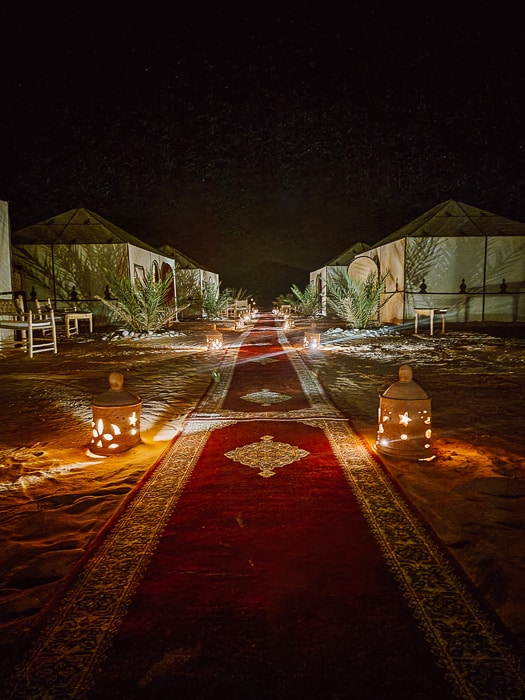
The Most Incredible Glamping Sahara Desert Luxury Camp Experience
![morocco tourist scams An Epic 10 Day Morocco Itinerary [2024]](https://theunknownenthusiast.com/wp-content/uploads/2022/02/camels-in-the-Sahara-1-768x879.jpg)
An Epic 10 Day Morocco Itinerary [2024]
How to Avoid the Top 8 Moroccan Scams

Travelers looking for an adventurous and unique culturally immersive experience can find it in Morocco . Located in North Africa, Morocco offers gorgeous scenery, like red dirt roads winding through its desert landscape and bustling cities teeming with ornate hand-crafted goods and the aroma of fresh spices on every street. Travelers will encounter hospitable locals who are always happy to welcome visitors and share a cup of tea or coffee.
However, as with most places, there are some risks that travelers in Morocco should be aware of. These include the risk of being scammed by locals. In this post, we’ll tell you about some of the most common Moroccan scams and how to avoid them. Keep these tips in mind when taking a trip to Morocco , and you’ll have a safe and enjoyable time!
Moroccan scam #1: The Direction Giver

When visiting Morocco, especially Marrakesh, you may encounter locals who are insistent on giving you directions. Once they’ve guided you to your destination (whether or not you agree to let them do so), they may demand sums of money from you that weren’t agreed upon. This scam often happens in Marrakesh — one of the most popular tourist destinations in Morocco. Within Marrakesh, there is a place called The Medina. It is a large market, a UNESCO World Heritage site, and considered the old part of the city. It can be hard to navigate The Medina because Google Maps do not work very well within its walls and there are very few street signs. If you’re like me and have trouble with directions, it can become a stressful situation.
Here’s how the scam works: The Marrakesh Medina is full of scammers who are looking for lost tourists. When they see someone who looks like a tourist, they’ll often approach them and ask if they need help finding something. If the tourist says yes, the scammer will walk with them to their destination and then demand money – sometimes requesting every bit of cash in their wallet. Even if the tourist doesn’t engage or request any help, they may still walk with them until reaching the destination and then claim that they helped guide them there. Moroccan scammers can be very persistent and like to put their targets in difficult situations.
Here are some tips on what to do when you encounter the “Direction Giver” scam:
- Never go with someone who asks if they can direct you. If they ask, it is more likely that they will scam you.
- If you let someone who lives in the area show you around, always be sure to negotiate the rate of pay before walking with them. 20 Dirhams ($0.25USD) is a good amount of money to offer for a short walking trip within the Medina.
- If you are lost, go into a store and ask the shop owner for help. Shop owners can’t leave their store, which lowers the risk of them being able to scam you.
- If someone asks you for more money than you want to give them, be strong and say no. They may be persistent and continue to ask for more money – ignore this and confidently walk away.
Moroccan scam #2: The Henna Lady

When I was in Marrakesh with my friend Jon, we were walking around The Medina at night when a woman who drew henna approached us. She asked if we wanted some, and we said no. Even though we said no, she grabbed our arms and hastily drew henna on us. The designs looked like slop. When she was finished, she demanded money from us. We said no and walked away. The lady followed us for about 30 minutes, requesting that we pay. We eventually caved and gave her the equivalent of $20 so that she would leave us alone. In hindsight, we should have given her less money or none at all, but we weren’t thinking clearly when it happened.
Here’s how to handle the Henna Lady Scam if it Happens to You:
- Real talk: there’s not much that you can do to prepare for this. We researched Moroccan scams in advance and were aware that this could happen and it still hit us like a lightning bolt. The first step is knowing that it can happen.
- If you are targeted, then stay strong. The henna lady is harmless; she will persist but she won’t hurt you. Walk away from her and eventually, she will leave you alone.
- If you cave in and pay, be sure to hide all extra money out of the Moroccan lady’s sight. As with the other scams in Morocco, she will demand all that she sees.
Moroccan scam #3: Carpet Shops & Tea

There are many carpet shops in Morocco. When you walk through the market, the shop owners will invite you in and offer you tea. While you’re drinking their tea, they’ll take out their carpets and show you a bunch. If you don’t want a carpet, they will persistently ask why. And, if you decide to buy one of their carpets, be prepared for them to offer it to you for more than it is worth. Also, be mindful of the fact that you’ll always have to pay for your tea; in Morocco, very little is free-even if you’re led to believe that it is.
Here’s how to handle your experience in a Moroccan Carpet Shop:
- If you drink a shop owner’s tea, the culturally correct thing to do would be to pay them. 5 Dirhams ($1USD) is an acceptable amount of money to give per cup.
- If someone tries to sell you a Moroccan carpet, and you don’t want one, confidently say no, thank them for their time, and leave.
- When you go to buy a carpet, know the market value of the item. Carpet sellers in Morocco typically price their carpets at up to 75% more than what they expect to sell them for. This is especially true in carpet stores. So always try to negotiate and go lower than you think is possible. You won’t offend them—negotiation is a part of their culture.
Moroccan scam #4: The Fake Beggar

As is the case in many other countries, some people will pretend to be poor or suffering from an ailment in order to make money. Sometimes, children will come up to you to ask for money and their parents will hover nearby to ask for more after you donate. This happened to us numerous times throughout our trip and it’s a heartbreaking situation to witness.
Here’s how to handle this scam:
- You must say no and walk away from all beggars. It’s very likely that they are faking it for money.
- Do not ever give money to a begging child in Morocco—their parents usually hover nearby and when you pay, they will come to you and demand more money.
Moroccan scam #5: The Photo Opp

People often try to scam other people by asking for money after taking pictures. This usually happens with pictures that look like they are staged, like pictures with snake charmers, magicians, and camels. Be careful if someone asks you to take a picture like this. They might ask for all of the money that they see in your possession once you’re done taking a photo.
- The best way to avoid this scam is to not take staged photos.
- If you want one of these pictures, then negotiate the pay before taking the photo.
- You should not let people see how much money you have in your wallet when you are paying for a picture. If they know how much money you have, they will ask for more.
Moroccan scam #6: The Tannery Trap

Leather in Morocco is some of the best in the world, and one of the most popular things that tourists do in Morocco is visit a tannery. There are some legitimate Moroccan tanneries, but there are also some tourist traps set up—especially in Marrakech tanneries. There are two ways tourists can end up at a tannery against their will. A local can offer them directions that take them to a tannery, or the tourist might stumble upon a scam tannery. Once at the scam tannery, the scammers will ask for money in order to let the tourist leave. If the tourist doesn’t pay, they won’t be allowed to leave. This becomes a no-win situation for the tourist and they usually end up having to pay a lot of money for a tour of a mediocre tannery.
- There are some great tanneries in Morocco, but it can be hard to know which ones are real and which ones are scams. To minimize your chances of being scammed, go with a trusted tour guide, and never walk into one alone.
- If you find yourself in the middle of a tannery scam, then pay the scammers as little money as possible and leave. A negotiation tip is to always lead with paying them less than what you want. For example: if you want to pay a maximum of 20 Dirhams, start by giving them 5 Dirhams and then slowly increase the amount until you reach 20 Dirhams (the final payment). They will think that they have “won” in this situation—but really, you’re the winner.
- One golden rule to remember is to never keep more money where people can see it. This makes you a target for scammers, who will want to take all your money. Always hide large sums of money in places that are not visible to thieves.
Moroccan scam #7: Restaurants with Hidden Prices

Some Moroccan restaurants add hidden costs to your final check. This can include items like food you were told were complimentary or things you didn’t eat.
Here’s how to handle this scam:
- Always look at your check before you pay it.
- If a waiter offers something for free, just say no, unless you’re okay with paying for it.
- If you find a charge on your bill that is not correct, tell your waiter. They will likely remove the charge for you when asked.
Moroccan scam #8: Fake Fossils & Minerals

Morocco is known for having authentic fossils and minerals for sale. However, a lot of the products sold in the souks are fake. Sometimes, tourists will pay a high cost for something that isn’t real.
- Make sure you know how to identify a real fossil or gemstone before you purchase one.
- Before purchasing a gemstone or fossil, do the research to find out what the market value is. This includes researching online, asking locals, and looking at the cost of similar products in multiple shops.

23 thoughts on “How to Avoid the Top 8 Moroccan Scams”
This is such a helpful post… full of valuable tips. We’ve been to Tangier for a day and found it quite intense. We are also supposed to be travelling through Morocco long-term when the borders re-open. I will be saving this post for then, thanks for sharing.
Glad it was helpful! Morocco is really awesome. Hope you have a good trip when you go! I plan to go back too.
I was in Morocco last year and experienced some of them on my own. One time some children told us the street ahead of us is a dead end and they’ll show us the way. Of course it wasn’t a dead end 😀
haha yeah, stuff like that happened to us there too! We had a great time but stuff like that happened a lot.
Loved reading this and thank you for all of the helpful tips!
I’m glad you found it helpful! 🙂
I feel like you had a terrible experience in Morocco and I’m so sorry to hear that! We have been “stuck” in Morocco for 4 months because of Covid-19 and the closed borders and we have met some really wonderful people and we’ve experienced very few of these “scams”.
I think a lot depends on where you go. We’ve been in Marrakesh, Rabat, Casablanca, and Tetouan. In Marrakesh we did have a lot of people try to direct us, but we just didn’t listen and most people left us alone with a pretty firm “no thank you”. It is true though that if someone that you don’t know walks up to you on the street and says they will guide you for free, they will likely ask you for a tip at the end.
People will absolutely walk up to you and ask you for money here- but part of the culture for Moroccans is charity so it’s a normal thing for people to give them a dirham or two (a dirham is .10 USD).
In our experience, you have to be on your guard whenever you’re traveling, in any country. We were harassed more by beggars in Spain than we have been in Morocco.
We actually had a great experience in Morocco! It’s definitely just a part of the culture, the post is just to inform travelers that have never been in an environment like that of the way that things can go there (specifically in Marrakesh). Morocco’s a really lovely city and I plan on going back. It sounds like you’re having a great experience there – that’s wonderful! We met some really kind locals there, too. And yes, totally agree – travel can always hit you with a scam or something hard if you’re not alert. I never had issues in Spain but I do agree that other places are equally, if not tougher! Thanks for the comment. : )
Super helpful tips! I like to scope out popular traps prior to travelling somewhere and I’m glad I read this – I had no idea about the tannery scam – and quite frankly ick haha. I’d love to buy a carpet but I’d have no idea how I would get it home!
we almost bought a carpet! they offer to ship it to your house for you 🙂
These are super helpful tips for first-timers. I would add to the list taxis – I had a situation where the taxi who went round and round the block to finally take us to a shady restaurant with extortionate prices. It wasn’t even the place we’ve asked him to take us. Obviously they were working together. Having said that, I’ve had both great experiences and bad experiences in Marocco.
Ah, yeah – good call. We had an issue with a taxi driver in Marrakech. He took us to a guy that he said would walk us to our hotel. He obviously knew the friend because his friend asked us for a large tip which was equivalent to what the taxi driver gave us back for change. So, the driver must have told him how much tip money we had on us. Ah, well! We had really great experiences in Morocco too … but yeah just wanted to list these tips out for first-timers as you said.
I’ve never been to Morocco but it’s definitely a country I would love to visit one day. Thanks for sharing, these tips are great. Always good to be on the lookout.
Thanks for sharing the details – it’s key to be prepared for what could happen. I had an amazing trip to Morocco myself but did run into the henna scam. I had been prepared for the photo ops, direction giver, and the necessary haggling. But having my hand grabbed and henna applied without consent was intense – you described it well as being hit by lightning.
Thanks for sharing your henna experience, it’s good to hear from someone who had the same exact thing happen to them! It was def shocking.
On the travel wish list! Would love to visit Morocco. So good to go prepared with a list of scams to watch out for. I must admit that we have seen most of these scams with local flavours in other countries. We have successfully managed to avoid trips to tailors and rug shops. So hopefully would not get conned into visiting a tannery! A good post to keep as a reminder!
Thanks for the comment! I Hope you’re able to visit some day. 🙂
The country I come from, it is not uncommon for the locals to scam tourists and thus, to a great extent, I am always on the lookout for scammers when I am travelling. However, there are some countries which have a higher chance of scammers and Morocco definitely seems like one. This is a fantastic list of things one needs to be aware of before travelling so that it can be avoided. Most of the ways of scamming sound quite ‘usual’ in the sense that they do not surprise me, but the fact that restaurants might end up adding items in your bill which you didn’t even order or consume, is shocking! I’d expect local shop keepers or people in the street to do such things but establishments such as restaurants, wow!
That’s great that you already know what to look for. I grew up in a bit of a bubble so being exposed to scams like this was new to me. Morocco was one of my first trips abroad, so candidly I think that the scams there got to me a little more back then than they would if I re-visited today. Thanks for sharing your comment!
We just went on a day trip to Tangier from Spain. Going on a group tour helped us avoid these. I can imagine how it would be if you are.all alone.
It’s a harder country to navigate alone, but not impossible. I’ve heard Tangier is a cool place to visit!
Great tips here to avoid scammers in Morocco! It is scary that the henna-lady just pulled your hand and applied henna. It takes weeks to get rid of henna color. I have heard of scams like this in Barcelona and Madrid too. As tourists, we have to be conscious of our wallets and valuables while walking around busy places and say no to possible scammers. Thanks for an informative blog post. 🙂
Yeah! We were so worried that we’d have disgusting henna blobs (of nothing) on our hands for a few weeks. Luckily, we were able to quickly scrape the henna off with the help of a local. That’s interesting, I’ve never heard of scams like this happening in Madrid and Barcelona and spent two months in Spain…but, you’re not the first person who’s said that!
Leave a Comment Cancel Reply
Your email address will not be published. Required fields are marked *
Save my name, email, and website in this browser for the next time I comment.

14 Crucial Morocco Safety Tips + Common Scams: Is Morocco Safe For Tourists To Visit?
Last Updated: March 30, 2021
*FYI - this post may contain affiliate links, which means we earn a commission at no extra cost to you if you purchase from them. Also, as an Amazon Associate I earn from qualifying purchases. Check out our Privacy Policy and Disclosure. for more info.
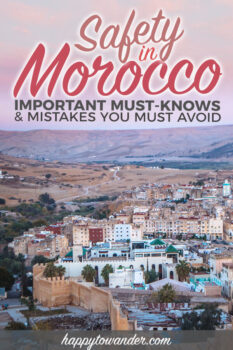
… And I totally get it.
If you want to travel to Morocco, safety is of course a key concern that you should address. (Alongside what to pack and how many giant rugs your home really needs)
But comments like “MOROCCO IS A DANGEROUS COUNTRY AND THIS IS WHY I WILL NEVER TRAVEL THERE” or equally aggressive “THIS IS WHY YOU SHOULD NEVER TRAVEL IT’S NOT SAFE”? Yikes.
Save this post for later on Pinterest:
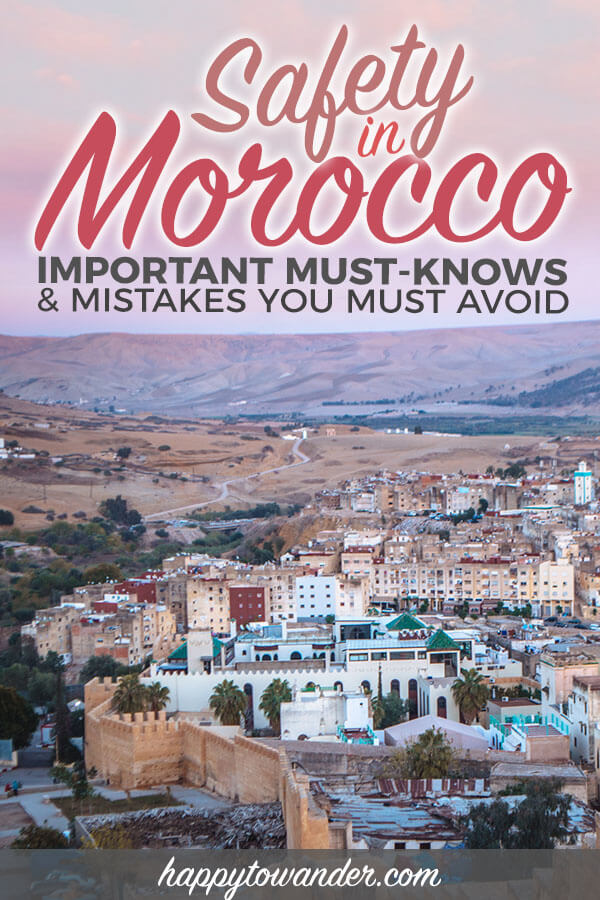
I find those sweeping statements not only harmful, but super upsetting because Morocco, in spite of recent safety scares, is a really beautiful country with a rich culture that I’d happily explore over and over.
BUT, and I say this with a big BUT, Morocco is not a country for the faint of heart. Unless you’re prepared for it, you might be sorely disappointed.
So that’s why this article will go in-depth into the safety of travel to Morocco, based on two experiences I’ve had both as a group of girls travelling to Morocco and as a couple. It’s a long one, so grab yourself a mint tea and snuggle up.
PS: For more travel in Morocco safety tips, be sure to read this article I wrote about important must-knows before you travel to Morocco as well.
Travelling to Morocco soon? You might also find these posts helpful…
A Guide on What to Wear in Morocco + a Free Packing List
18 Super Important Must-Knows Before You Travel to Morocco
The Glittering Magic of Morocco (in Photos)
1 Week in Morocco (Travel Diary)
Fes to Chefchaouen Day Trip Guide
Morocco Safety: General Overview
As I mentioned in the intro, I’ve been to Morocco twice, mainly flouncing around the hot tourist spots (Fes, Chefchaouen, Marrakesh, Essaouira and Ouzoud Falls).
I’ve never been to the desert or to smaller villages, but since the cities I’ve been to are the usual spots that people swarm to as first timers (thanks RyanAir !!!), I’m going to give you a run-down of what my experience has been in these places.
But first: remember that safety is a very subjective thing, and is influenced by a LOT of factors including your sex, sexuality, colour of your skin, etc.
As a straight, Asian, cis-female, I enjoy certain privileges when it comes to safety, but also face unique threats too.
With that in mind, here are some other perspectives and experiences from other travel bloggers, showing what it’s like to travel as a gay couple to Morocco , what it’s like to travel as a black woman in Morocco, and travelling around Morocco in a wheelchair .
Anyways, based on my own personal experience, here’s my honest opinion about safety in Morocco: as a tourist, I consider Morocco totally safe… you just need to be well equipped to handle it.
It’s really that simple!
Sure, any Google search about safety for tourists in Morocco will inevitably yield horror stories and negative reviews, but that’s just the nature of the Internet.
People will more readily take to the interwebs to complain than to praise… but you need to understand this: Morocco is built for a certain type of traveler… the kind of traveler that goes with the flow and more readily laughs things off than let it bother them.
If you don’t have thick skin when it comes to dealing with travel troubles, I think you’ll probably hate Morocco to be honest. It’s rather inevitable that you’ll get swindled (or at least someone will attempt to swindle you) at some point, and too often, people will let this ruin their trip.
If that sounds like something you’d be able to get over, then read on. I’m going to quickly run down my experience with different types of safety in Morocco, before giving you my top Morocco safety tips. First…
Crime in Morocco
Crime in Morocco (from my own personal experience) is more opportunistic and focused around petty crime and scams rather than outright violent crime.
This isn’t to say such crime doesn’t happen (I’ve heard of some armed robberies for instance), but as a female traveler in Morocco, I have never felt I was in physical danger.
Instead, any perceptions around a lack of safety stemmed from good ol’ fashioned paranoia, either that people were trying to scam us, or (to a lesser extent) that we might get sick from the food.
That said, crime in Morocco does exist.
Pickpocketing is common in crowded spaces (as it is in any touristy city), and I’ve heard of some “bag snatchings” from motorbikes as well, so do keep your belongings close to you at all times and think about investing in a slashproof anti-theft bag.
They’ve come a long way these days and can be really cute and functional:
Food Safety in Morocco
I’ve personally never gotten ill from eating anything in Morocco, and trust me, I eat enough for five families, so those are great odds.
BUT people of course do get sick – it’s kind of an inevitable consequence of travel.
The level of hygiene can vary a lot in Morocco depending on where you eat, but as a general rule of thumb, stick to cooked foods only and bottled water (some say tap is fine but I wouldn’t risk it) OR even better – bring along a steri-pen to treat water as an extra safety measure.
I’d also read reviews on food stuff beforehand – often that’ll give you a good indication on their cleanliness.
NOTE: As much as we can try to avoid getting ill from food, it tends to happen in a frustratingly unpredictable way.
For example, a friend of mine ate street food for a solid week in Morocco, then got food poisoning after a meal at the nicest, fanciest restaurant of her whole trip… so sadly, it’s not predictable, but I find that if you stick to the main cities and visit reputable restaurants or touristy areas, you’re fine.
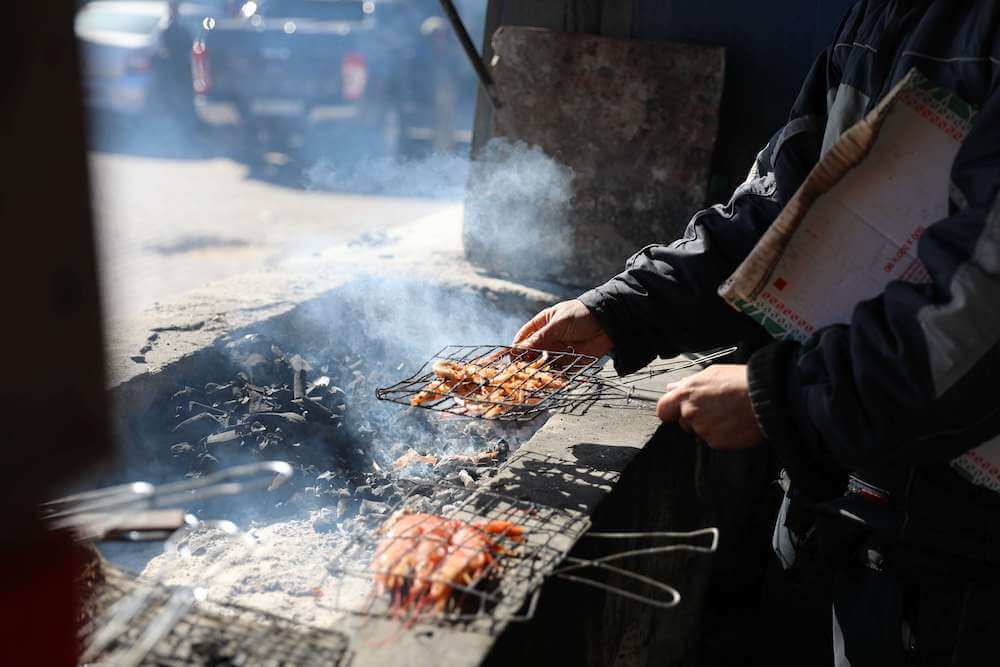
Road Safety in Morocco
One area that I have no experience in is driving in Morocco.
I’ve heard a few horror stories about getting pulled over and fined for very random reasons, or just about the general recklessness of Moroccan drivers.
I’ve also taken a few buses and know that the roads can be very bumpy.
All that said, driving is one of the most flexible and exciting ways you can explore Morocco, and I’ve heard of quite a few travellers doing this, so I know it’s possible.
If this sounds like your jam, my friend Nina wrote a great post about driving in Morocco which you can read here.
Terrorism and Civil Unrest in Morocco?
Lastly, because of recent events, people have become increasingly concerned about potential terrorist attacks in Morocco.
Unfortunately, this is a risk anywhere, even in some of the world’s most touristy cities like Paris or London. What I will say is that it is very very very un common, but the risk is up to you.
As with any place, there’s always some risk, but if we went by that, we’d all just stay at home, crying into our buckets of popcorn while watching reruns on the Travel Channel…
So, is summary: Morocco safe? I think it is, if you’re smart about the way you visit. Below you’ll find some of my handiest tips around safety in Morocco for visitors.
Safety in Morocco for Tourists: My Most Important Tips
To maximize your safety in Morocco, and to ensure that you have a thoroughly enjoyable and unspoiled time, here are some of my top Morocco safety tips.
These will hold true in many of the cities that are popular with tourists (Marrakech, Fez, and to a lesser extent, Essaouira and Chefchaouen for example).
Now, I know this is a long list, and it might make Morocco seem more scammy or dangerous than it is. Trust me, Morocco is great! It really is! I just want you to be prepared. *laughs nervously* really.
Anyways… let’s get to them tips.
1. Make it clear that you’re not a dumb tourist
This is my number 1 tip for safety in Morocco: make it evident to EVERYBODY (scammers, shopkeepers, hustlers, taxi drivers, etc.) that you’re a savvy tourist, and not a dumb one.
Really! The foundation of ALL the scams that happen in Morocco is the assumption that as a foreigner, you’re a walking ATM doofus and don’t know your right from your left in this foreign environment.
Inflated prices? You’ll get them because you don’t know the real prices. Fake tour guides? They’ll follow you because they think you can’t tell the difference.
So, what I’ve actually found is the BEST scammer-shield is to just make them aware that you know what they’re up to. It’s that easy.
Things like:
“I know the price you’re giving me is too high. This is my third day in the city and the other shopkeeper offered me x for the same product.”
“This is my 5th time in Morocco. I know the price of the taxi should only be x”
“I know that ____ isn’t closed yet. I have lived here for x years”
Emphasize that you know what they’re up to, and that basically this isn’t your first rodeo.
This is my top tip and it’s the best way to get scammers off your back.
As soon as they know you’re not just “another dumb tourist”, they’ll probably get off your back and peruse the hundreds of other dumb tourists who have just trickled in 😉
Related to this is you should dress appropriately ( here’s a packing guide for Marrakech ), and you should never look lost.
Walk with purpose, head held high, strutting your stuff through the mean streets of Morocco 😉
Trust me: looking like a lost kitten is a sure recipe for unsolicited help. If you need to stop and check a map, do it discretely, maybe duck into a shop or cafe.
This will minimize the amount of fake tour guides on your back.
2. Know that “La” means no in Arabic
While “no” is pretty universally understood, busting out the Arabic can make eager beavers disappear faster. LA LA LA.
If you want to be more polite, “la shukraan” is “no thank you”.
3. Be mindful of your surroundings and when crossing the street
Basic advice, but Moroccan cities are chaotic.
Even in the tiniest narrow streets, there are motorbikes whizzing by and trust me when I say they do NOT give a damn about tourists bumbling about.
I’ve heard of people getting knocked over by these bikes, only to have the driver whizz off without a care in the world… so remember, be mindful of your surroundings, get out of the way of vehicles and be very very careful when crossing the street.
FYI, in crowded spaces, pickpockets are also very common so be mindful of your belongings.
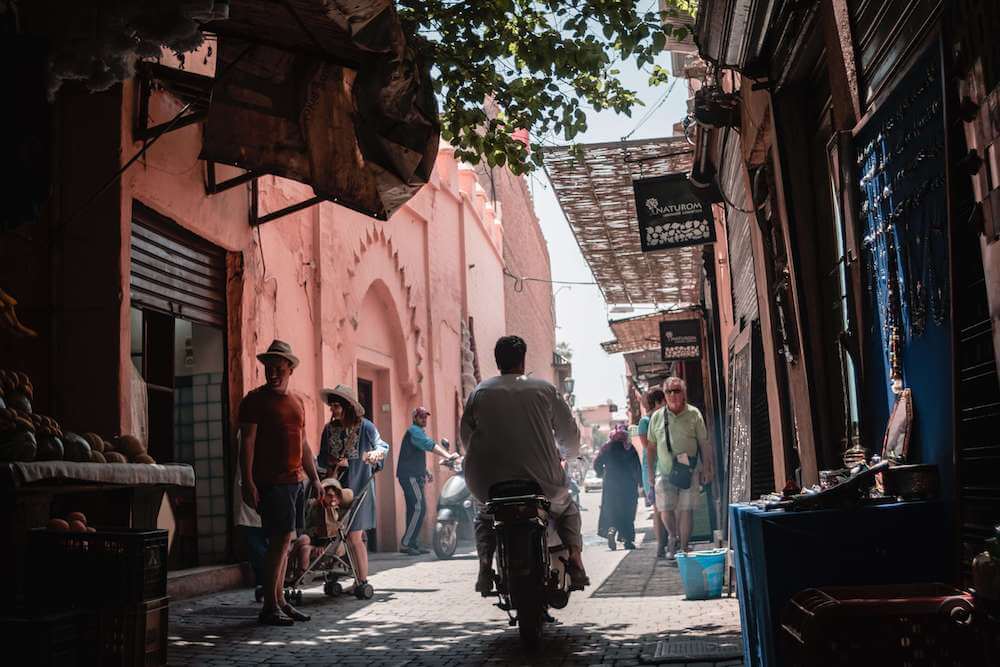
4. Remember: safety in numbers!
Even if you choose to visit Morocco solo, I highly advise you either book a tour, find a private guide or make friends at your hostel, riad, etc. that you go out and explore with.
This is especially true for female travelers.
I never explored solo during my time in Morocco, but even in instances when it was just me and a (female) friend, I felt much more intimidated by my surroundings vs. when I was in a group setting, certainly at night. On that note…
5. Don’t walk alone at night
This might be common sense, but particularly if you are staying in any maze-like parts of the city (think the medina of either Marrakech or Fes), you should avoid wandering around at night after everything has closed.
Not only is it harder to find your way around, this is prime time for a lot of “faux tour guides” to kind of lurk around, usually young men who ask you if you’re lost and try to lead you back to your hotel, demanding a fee at the end. And on that note, it’s important that you also…
6. Familiarize yourself with common Moroccan scams
Scams are as common in Morocco as fresh orange juice and glorious tagine comas.
Luckily, it’s the same scams that recur over and over, so if you are familiar with them, then you’re able to avoid them. I’ll detail some of the most common scams I’ve encountered down below.
7. Stick to the main streets
In pretty much every city there will be the big busier streets, even within the medinas.
I highly recommend you stay on these because you’ll at least be near other tourists and just people in general.
I’ve accidentally walked down “back alleys” a few times and it can be a little intimidating, certainly once in Essaouira when I was walking with a girlfriend of mine and this guy ran into a cafe to tell his buddies two honeys were walkin’ down the alley and literally a million men emerged from this tiny bar to stare us down. It was like ants coming out of an anthill, but pervy.
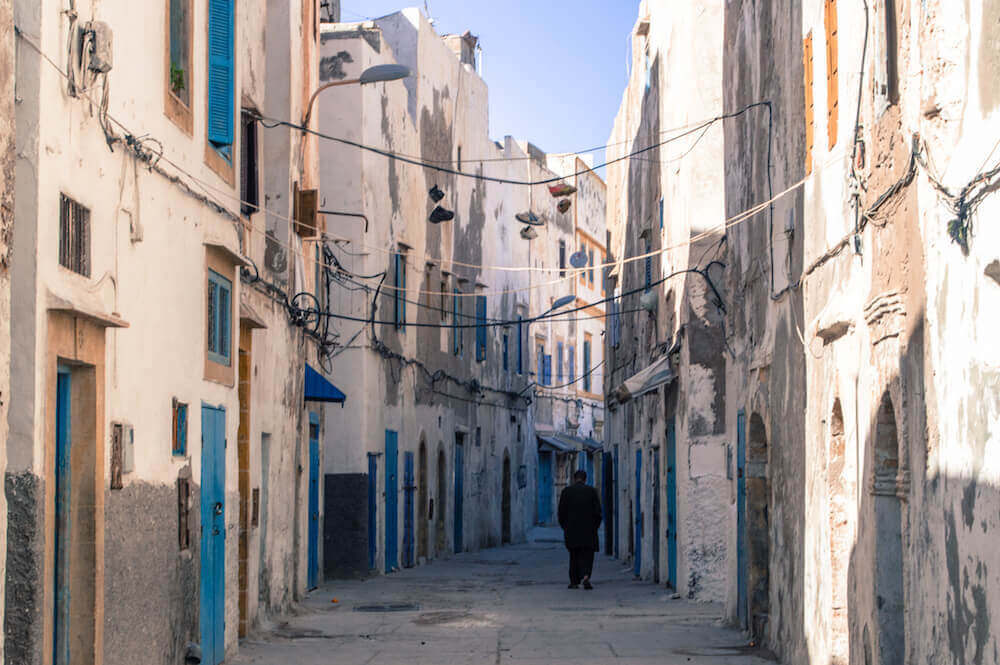
8. Don’t flaunt your wealth
I would leave any flashy jewelry, expensive watches, brand name clothes or bags, etc. at home.
This isn’t necessarily because someone might come yank it off you (which is possible) but it’s because appearing “rich” will make you a bigger target for any kind of scam.
In Morocco, even just saying you’re from Canada, the US, etc. will label you instantly as someone who has some dough to spend, which results in a higher likelihood of inflated prices, bait-and-switch scam tactics and more.
9. Avoid eye contact and ignore
If you do find yourself the victim of some kind of uncomfortable attention, whether that’s catcalling, overly aggressive shopkeepers or anyone else, I’ve found that it’s very rare they continue to pursue you even when you ignore them and avoid eye contact.
The worst thing you can do is give them any kind of attention, because even a “no” will invite further conversation.
The best thing to do in these instances (if you don’t want to be bothered) is to just avoid eye contact and keep walking. If they do happen to follow you, go for a firm “NO” or “LA (again, that’s no in Arabic).
PS: Sunglasses help with the whole avoiding eye contact thing too.
10. Negotiate prices for taxis beforehand, or get them to turn on the meter
Taxis are one of the easiest ways for you to get scammed in Morocco.
In sum, there are two types of taxis you can take in Morocco: the petit taxis (the small taxis), which fit 3 people max and the grands taxis (the big taxis) which can fit 6.
With grands taxis, rates vary and you pay per seat. The only advantage is they’re able to travel outside the city whereas petits taxis can’t. I’ve heard unanimously that you should take petits taxis whenever possible.
On that note, I’ve only ever taken the petit taxis, but with these ones, they are legally obligated to turn on the meter. Forcing them to do so will probably be the best way to ensure you don’t get scammed.
(Just make sure you have an idea on Google Maps of where you’re going so you can tell if they’re purposefully taking the wrong route to gauge you for more money).
Alternatively, you can agree on a fixed price BEFORE you get into the taxi.
If you’re getting a taxi from the airport, look for a big sign at the taxi stand with fixed prices and insist they stick to that OR save yourself the stress upon arrival and book a 5* shuttle transfer from the airport. It’s relatively inexpensive and you pay for ease of mind. Check out the options here.
A few additional notes:
Make sure you have small coins and exact change. Often they will pretend they don’t have the change you need so they can keep extra cash.
Check with your riad or hotel what a fair taxi rate would be to get there from main spots like the airport, central square, etc. so you have a rough idea of how much a set price should be
French is very helpful for conversing with taxi drivers – many are more comfortable with French than English. The meter in French is “le Compteur”.
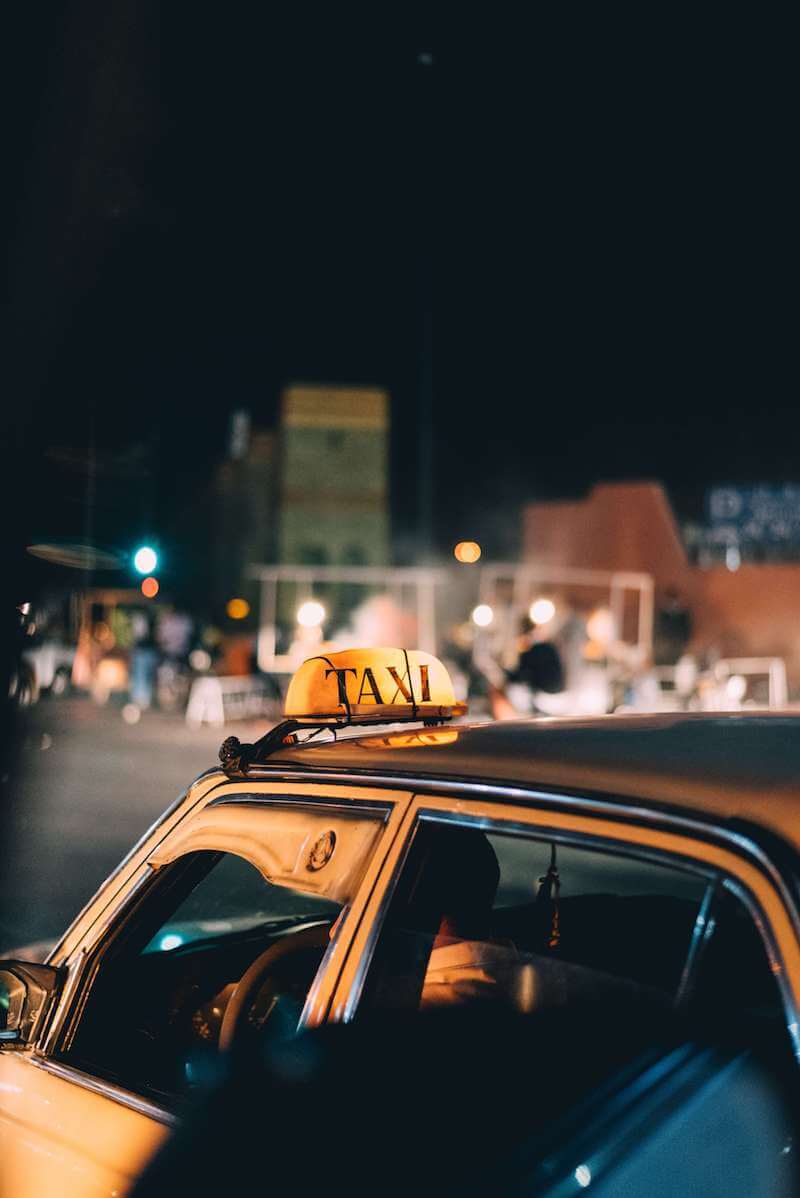
11. Know that the initial price for anything in a market will be inflated
If you plan to do some shopping in the markets around Morocco, remember, every price you are initially given has a…. let’s call it a “foreigner’s tax”, AKA a hyper-inflated price they think you might pay because you’re a rich foreigner.
I feel a little torn about this. On one hand, I hate getting ripped off just because they know I’m from abroad.
On the other hand, I get that they’re just trying to run a business and make money. Relatively speaking, I do earn more than the average Moroccan, and so if I am able and willing to pay a certain price for my pretty scarf, why not pay a little extra?
Anyways, no matter where you stand on this issue, just know that the first price they give you is VERY high, maybe 7x higher than what they’re willing to sell for (really!) and it’s pretty expected that you haggle down.
There aren’t really any shops in the markets that are 100% unique anyway, so if you don’t like the price, you can just move on and that bag, scarf, etc. will probably be available elsewhere.
To test out how inflated the price is, just start walking away, they’ll begin to lower the price immediately.
You might also consider booking a private city guide to show you around on the first day so you can get insider info on appropriate prices, haggling strategies, etc. Click here to check out some highly rated options.
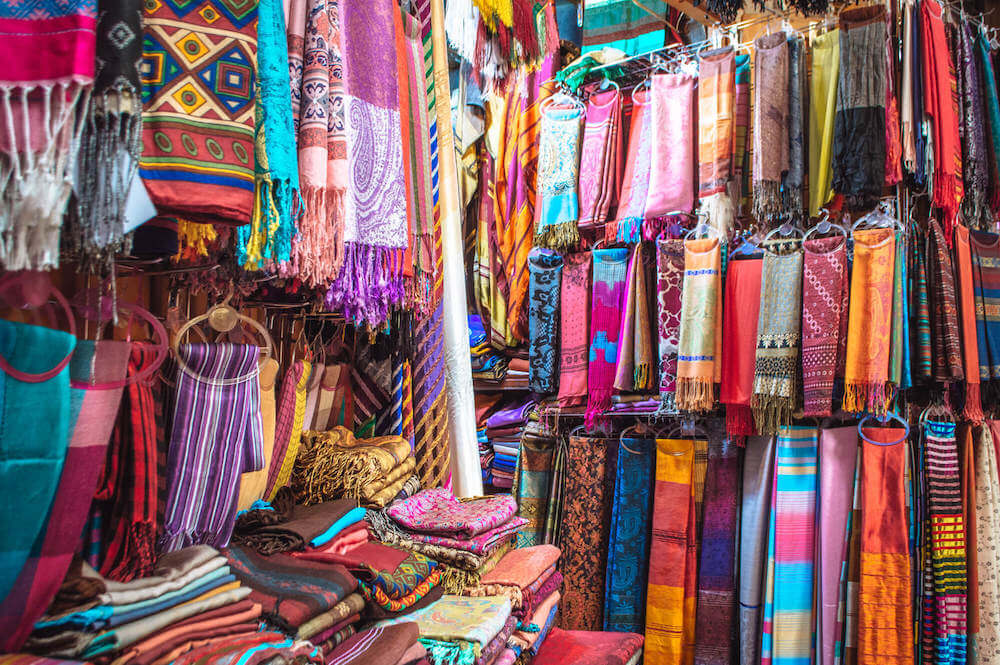
12. Be wary of entering small stalls
This sounds weird but I’m referring to the little stalls in the market that you can step into to look at bags, shoes, etc.
On two occasions, I’ve basically been “blocked” by the shopkeeper from leaving because the stall was so tiny. They never touched me or got physical but it was pretty intimidating.
13. Be careful around the stray cats
One of the very sad things about travelling around Morocco is the abundance of stray cats. It makes me really sad to see these kitties just roaming the streets and trust me, they’re everywhere.
That said, do not touch these cats – they may be cute but they potentially carry diseases. In extremely rare cases, you might even get bitten and contract rabies, as one tourist fatally did last year.
14. Be mindful of double pricing
This is kind of a niche tip, but if you love fresh juice as much as I do, you’re probably going to get drawn in by the MANY delicious fruit juice stands around the country.
I just want to warn you that the advertised price that they plaster everywhere (usually it’s very cheap) can often be for a “dine-in” price rather than takeaway.
As in, if you want to take it away in a cup and straw, you’ll pay extra. The small price is only for those who take a glass and drink it on the spot.
This is a little sneaky because sometimes they’ll automatically give it to you in the takeaway cup and straw, then just give you the higher price even though all the signs say one price.
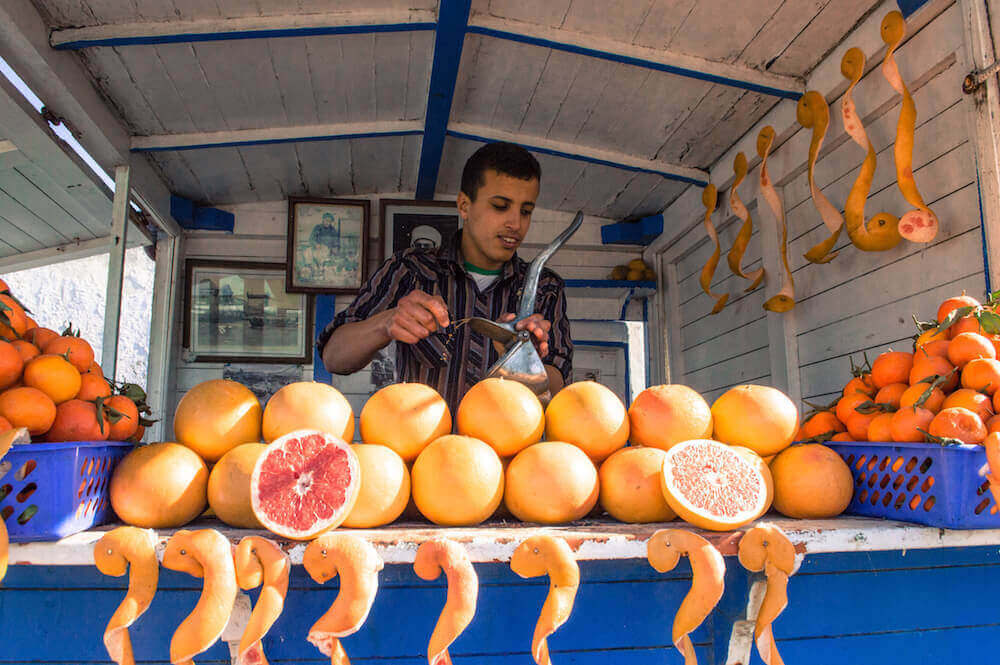
A final note on booze and drugs
Alcohol in Morocco isn’t tough to come by (most hotels will have it, and select bars) but it’s really not that commonly consumed. If you want to have a few drinks during your vacation, go for it!
That said, know that getting too drunk (and roaming about) will probably put you at risk of things like pickpocketing or just falling for the scams we’ve chatted about.
Drugs are a different story. If you’re backpacking through Morocco, odds are at some point you’ll be offered hashish (AKA kif), which is like marijuana. While smoking hashish is often done among locals (and is actually seen as an incentive for some backpackers to visit), it is technically illegal, so remember that.
While I’ve not witnessed this happening, I’ve heard of scams where undercover “cops” try to sell foreigners hashish then get a bribe from you to cover up your crimes… I’ve also heard anecdotes of tourists who were caught and then sent to prison (you can get up to TEN YEARS for it!)
So…. what I’m saying is: buying drugs in Morocco is NOT a great idea.
Morocco Tourist Safety: Moroccan Scams to Watch Out For
Okay, so with all those Morocco safety tips out of the way, let’s tackle some common Moroccan scams.
Again, when it comes to travel safety in Morocco, the #1 thing that you should be wary of is the abundance of scams that are out there so that you can avoid them. If you successfully dodge the following, I promise you’ll have an amazing time:
1. Bad & deceptive tours
I’m listing this as #1 because it can literally ruin your vacation.
I’ve never had this experience as I don’t book that many tours, but several friends of mine have booked tours to go camel riding or do an overnight in the Sahara, only to find super rude guides, deceptive itineraries, and overall just really terrible experiences that left them feeling cheated and disappointed because they were such huge bucket list items for them.
My friend Yishyene describes her terrible experience with “ Marrakech Desert Expeditions ” in this Instagram highlight here.
While I sadly don’t have any tours I personally recommend, a few tips for booking a reliable tour would be…
Read reviews. As many as you can. This will give you a starting point. My rule of thumb is if I read even one very negative experience, I’ll avoid it. Browsing on a trustworthy platform like GetYourGuide is a good idea because you can check out reviews and a lot of tours at once. Click here to compare tours and reviews.
Get first-hand recommendations from friends. If you know someone who did the experience you’re interested in, ask them. This is the best way to get first-hand honest information.
Read detailed reviews from travel bloggers. Haha, I know easy to say coming from a travel blogger 😉 But of course blog posts are MUCH more detailed than reviews on Tripadvisor, and also they aren’t as easily manipulated as other platforms (fake reviews can be purchased easily, FYI). Remember to also read the COMMENTS of said blog post, because this is where others might chime in with their experiences too.
2. The “place is closed” scam
This is a very common scam. If you hear the words “___ is closed”, run for the hills – these guys are trying to lull you into insecurity so they can guide you somewhere else.
The most innocent variation of this is they actually bring you back to your riad or hotel then demand a (big) tip for their services, but they might also take you to their friend’s business and attempt to coerce you into buying something.
This almost happened to be in Marrakesh – a group of us were walking to the Jardin Marjorelle and this random guy insisted that it was closed and that he would take us to a better “local” spot that wasn’t known amongst tourists.
As soon as he turned into a sketchy alley we knew we had to leave.
3. The fake guide scam
Similar to the above, many of the most touristy places in Morocco are filled with fake, unlicensed guides who will want to help show you around.
This can be as innocent as a young boy asking if you’re lost then helping you find your way to your riad, then demanding a tip at the end, or it can be more sophisticated – guys who actually look like they could be tour guides claiming you need a guide to access certain areas, like the Fes tannery.
The best way to avoid these guys is to just ignore them and keep walking.
Any kind of contact (even just a no) will usually get them to follow you for a while, which can be a bit uncomfortable.
Unfortunately, I’ve found that locals approaching YOU in English are very rarely trying to help you out of the goodness of their hearts, and are inevitably expecting a little tip at the end for their services.
If you do need directions, try asking someone who is tethered to their location (e.g. a shopkeeper) because asking a random on the street might turn into them “guiding” you to your destination, which (as you might have guessed) costs $$$.
4. The henna bait and switch
This happened to a friend of mine on my first trip to Morocco , near the Jemma el-Fnna in Marrakesh.
A friend of mine was walking around the square when a woman waved her over for henna. While she wasn’t particularly interested, the woman was giving a very very cheap price, so my friend caved.
5 minutes later, this woman had doodled a ridiculously elaborate henna design on my friend’s arm, sprinkled it with glitter, and then demanded a new price that was like 10x what she had originally said.
When we called her out, she said the small price was for a basic simple design (which she pointed out in her design book) and that my friend got the works, glitter and all so it would be more expensive.
My friend was pissed and paid her maybe half of what she asked then stormed off.
Weirdly enough, my friend then got an allergic reaction to the henna (she said it felt like burning) and rubbed it all off after 15 minutes anyway.
Moral of the story: don’t trust the henna ladies! Unless you’re actually interested in getting henna done, don’t let them lure you in with a cheap price because it’s likely a scam.
Another variation of this common Moroccan scam is (if you get too close) some of the henna women will pretend like they accidentally got a bit of henna on your hand, then they’ll offer to fix it and give you a full design “for free”. As you can expect, this won’t actually be free in the end and you can expect for them to demand payment.
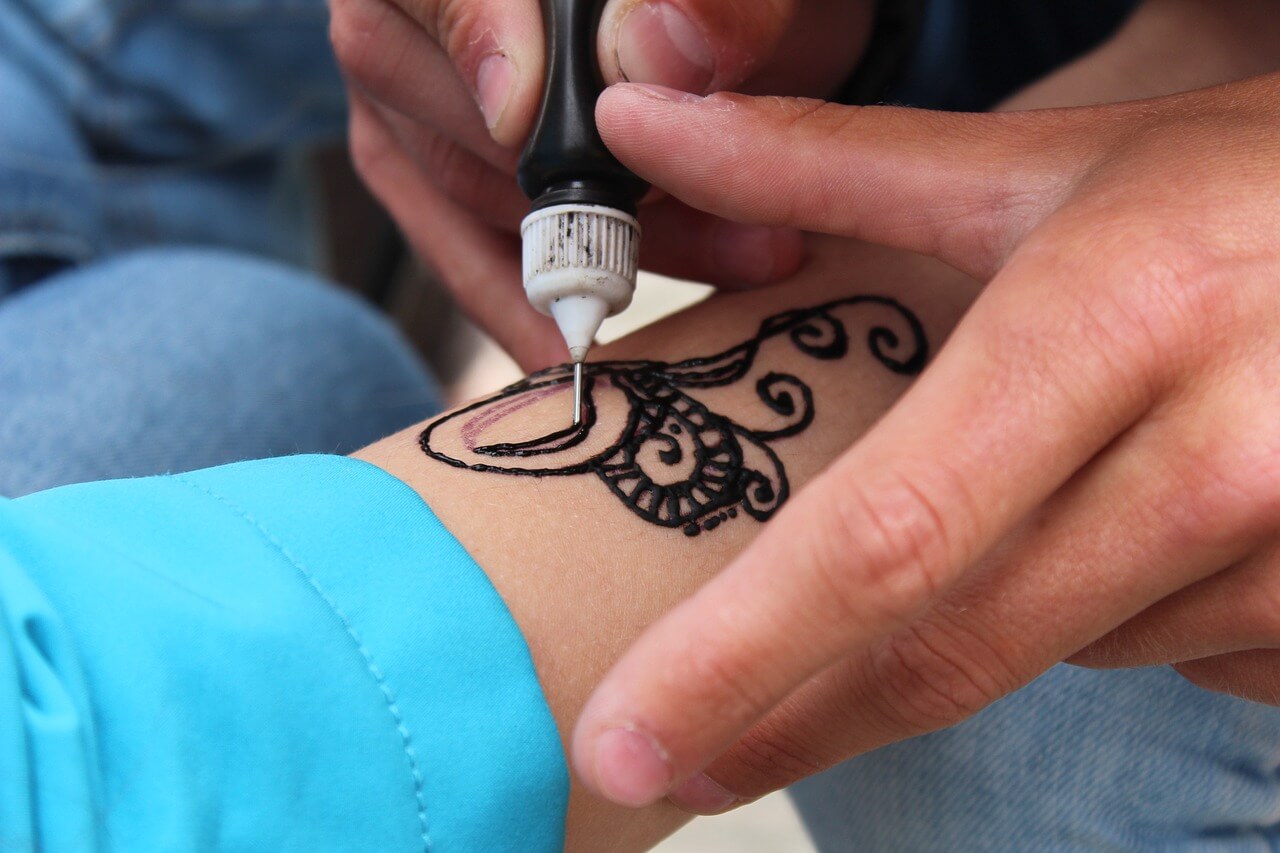
5. The menu bait and switch
I haven’t had this personally happen, but there are some restaurants who apparently have a “cheap” menu at the door to get you inside, then when you go to pay, there’s a new menu with inflated prices.
Another related restaurant scam is sometimes they’ll start bringing you random things you didn’t order, and while unassuming tourists might assume they’re just freebies on the house, they end up charging you for it.
I only had this happen once and it was very small – I think they charged me for bread I didn’t order and the amount was so negligible I couldn’t be too angry. They even showed me on the menu that bread was on there. Just be wary of this!
MY TIP: Always check up on reviews before you eat at a place. People will usually be veryyyy vocal and happy to leave a review if they’ve ever been ripped off.
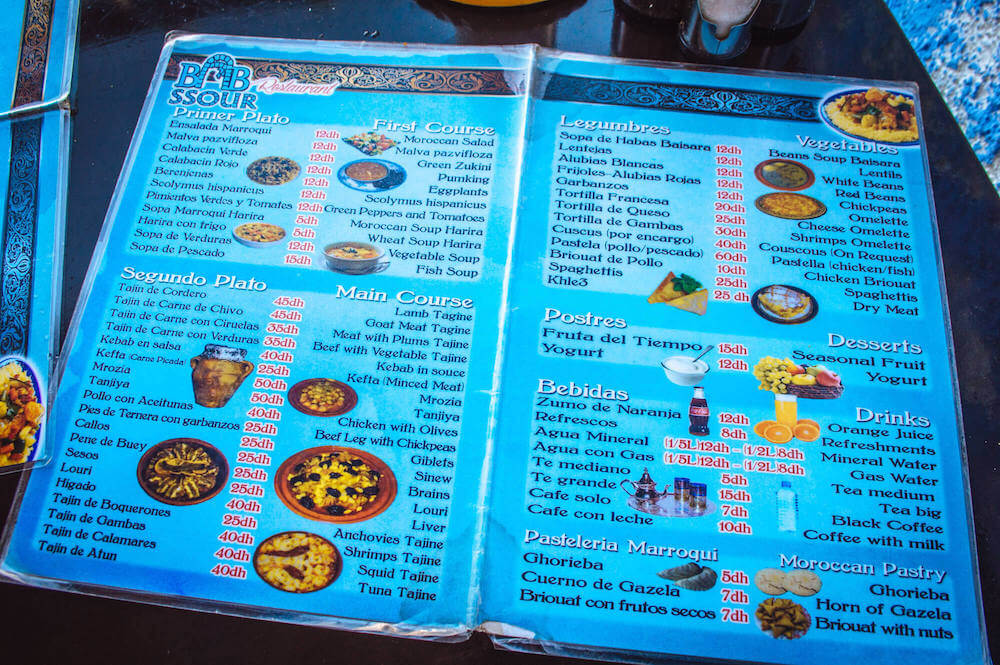
6. The photo opp scam
Another common scam in Morocco is the photo opp scam.
Although, to be fair, it’s not exactly a scam , it’s more like an unexpected ‘paid attraction’ of sorts.
Basically, you should know that any “super special” photo opp involving elaborate costumes or (sadly) animals does not come free. If you want a photo, then you should expect to pay something.
A good rule of thumb to follow is if someone is beckoning you over for a photo, odds are they will demand money after.
In Jemma el-Fnna Square for example, there are lots of guys with poor monkeys that they’ll want you to take photos with, and also snake charmers and guys holding big snakes too.
If you want a photo, that’s your perogative, but know that they’ll be demanding some dough for it afterwards…!
NOTE: If you hand over your phone to one of the guys to snap the photo for you, odds are good that they won’t return the phone until you give them the amount of money they’re asking for. Just FYI.
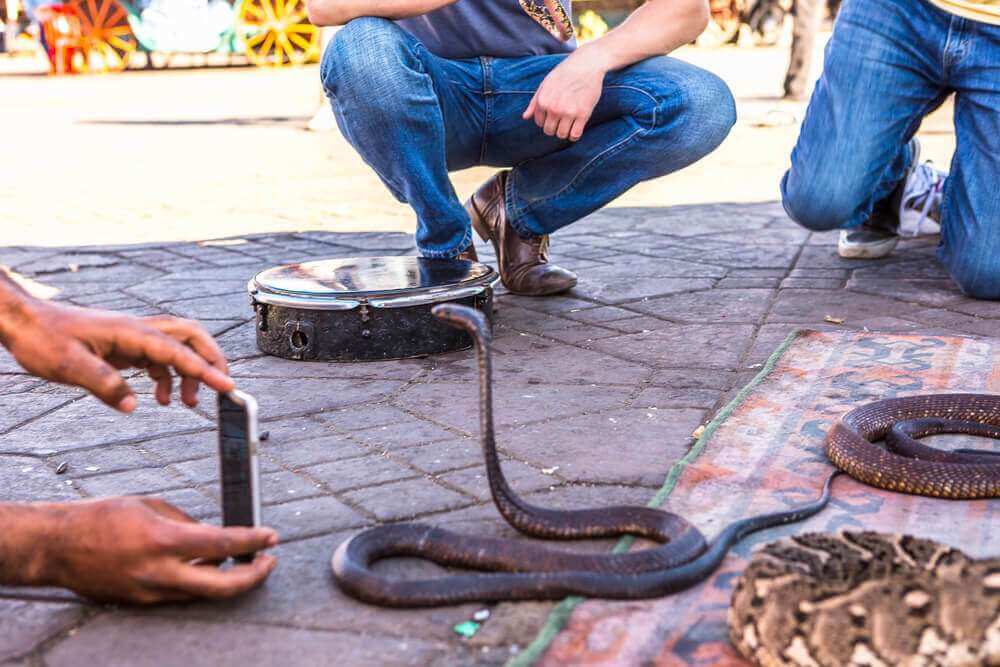
7. The paid toilet scam
Public washrooms in Morocco are free.
That said, some opportunists will linger around these toilets and ask for money, assuming that you, a silly tourist, won’t realize it’s not needed. This won’t cost you much, but just something to be mindful of – you are under no obligation to pay for public toilets.
SIDE NOTE: There is often no toilet paper in public toilets, so make sure you have a packet of tissue on you. If there’s an old lady selling tissues outside, she’s not a scammer, just a smart little hustler. I’m always happy to give the toilet paper ladies money – they’re usually super nice.
8. The fake/poor quality goods scam
I’ll be honest with you: the stuff in Morocco is gorgeous to gawk at, but for many of the goods, the quality isn’t spectacular and (sadly) many are mass-produced.
For example, my boyfriend bought a leather bag that he has never ever used because to this day, 2 years after our trip, it still smells like pigeon crap.
Also, two beautiful ceramic bowls I bought chipped immediately and cut me while I was trying to use them for the first time.
And while that’s not really scammy (just something to be mindful of), there is a darker (less common) scam I’ve heard of, where a shopkeeper might sell you on something expensive, like a rug, and then distract you when it’s being packed up so they can ultimately hand you a swapped product of inferior quality.
Beware of that, and don’t let your guard down after you’ve paid.
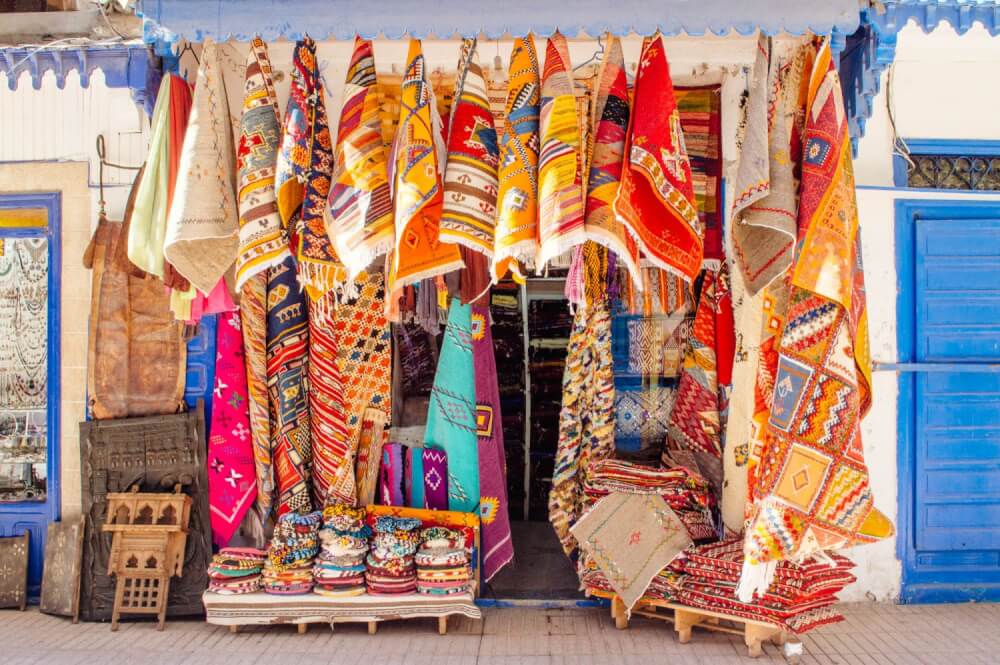
9. The local love scam
Last but not least, I’ve heard so many sad stories of women getting tricked by local men, even tour guides they’ve met, to thinking they had fallen in love, only to get scammed out of lots of money.
The pattern is usually they’ll convince the woman they’re in love, get the woman to pay for gifts, for hotels, for rent, even to wire them money to help their families, only to ghost them or break up with them when they’ve gotten enough.
This is heartbreaking for obvious reasons, but especially because these guys are SO good at it.
Many women report feeling like it was the real deal, even living with their scammers for long periods of time, meeting their families, etc. when in reality they were playing several women at the same time.
NOTE: This isn’t to say that finding local love in Morocco is impossible… my favourite blog about Morocco is Maroc Mama who fell in love, got married and moved to Morocco for a local man! She’s doing great! But if you think something might be too good to be true, trust your gut and do some research online. If your relationship matches any of the patterns mentioned by other women, then you should be careful.
For men as well, this is a scam that I’ve heard happening a lot online – local women who solicit them online and ask for money transfers, beckoning them to visit and bring gifts, etc. Just something to be wary of…
What about solo female travel in Morocco?
In my honest opinion, I wouldn’t recommend solo female travel in Morocco, particularly if you want to explore solo by yourself, without the company of new friends or a guide.
Morocco as a solo female traveller would be a challenge, for sure.
As I’ve mentioned before, catcalling and street harassment is very common in big cities.
There are a lot of causes to this issue, a few being that Morocco has more rigid and traditional gender roles, and as a whole it’s more of a patriarchal society, but also I’ve heard it’s because for a lot of Moroccan men, their perception of Western women is limited to what they see in things like porn, so they perceive foreign women as more sexually open and scandalous… regardless of what they’re wearing.
It’s a big, complicated and messy issue, but the end result remains the same: travelling around Morocco as a woman means you’ll inevitably get catcalled and in some extreme cases, followed or sexually harassed physically.
But hey, if you’re interested in visiting Morocco as a solo female traveler, it’s definitely not impossible.
I’ve met many women who have done it. I would suggest trying to make friends on the road and keeping solo explorations to a minimum, but you shouldn’t let being solo stop you from experiencing this beautiful country.
I do think that this would not be a place for a beginner solo female traveler, and certainly not if you lack the thick skin it takes to ward off aggressive “suitors”.
In addition to the many tips above, I’ll add that to ward off unwanted advances, you should wear a ring on your ring finger and mention your husband a lot.
Moroccan men do not really respond to things like “boyfriend” or “fiancee”, HUSBAND seems to be the keyword.
Even if you don’t have a husband or if he’s not there, mention him and pretend like he’s nearby.
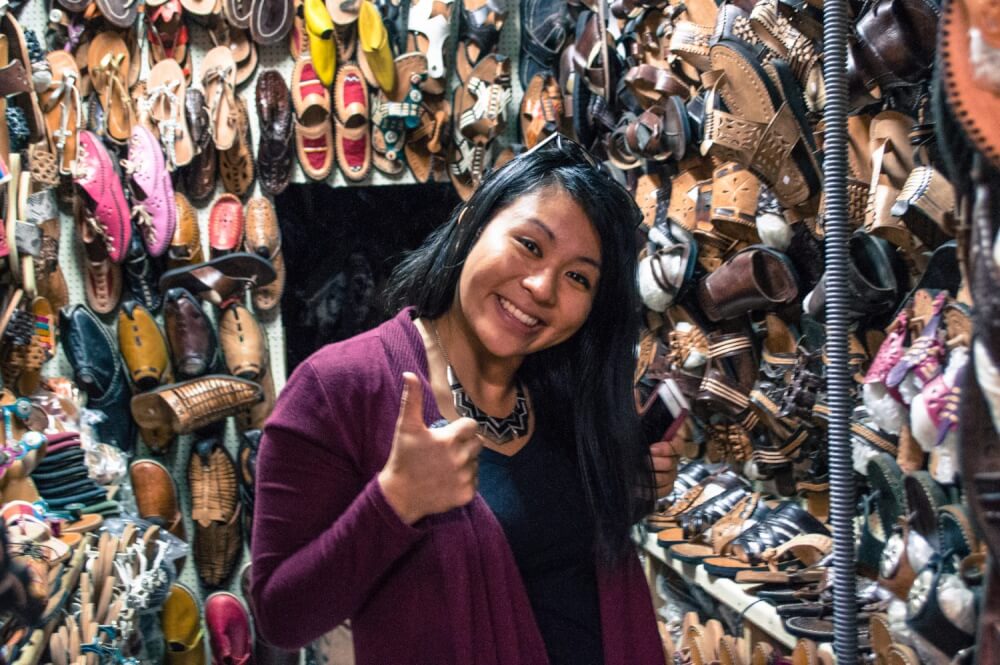
A final note on the safety of Morocco
Remember, everything in this article comes from my own personal experience and can’t necessarily be generalized to every single person and experience.
I visited primarily the very touristy cities that have had tourism for years – and as a young female I was more at risk for certain types of aggression (e.g. catcalling and verbal harassment) while I was less of a target for others (e.g. violent crime, muggings, etc.)
And while scams suck and nobody likes to be swindled, I have to remind you that it happens to everyone and you shouldn’t let them ruin your vacation.
Morocco really is a beautiful country – the landscapes are unreal, the architecture is beautiful and the food is delicious. Hospitality here (when it’s genuine and not scammy) is unmatched.
I strongly urge you to come here prepared (with all these Morocco safety tips in mind), but if something negative does happen, don’t let it taint your experience!
At the end of the day, even when you get scammed, often the amount is negligible compared to how much you’d pay somewhere else to travel.
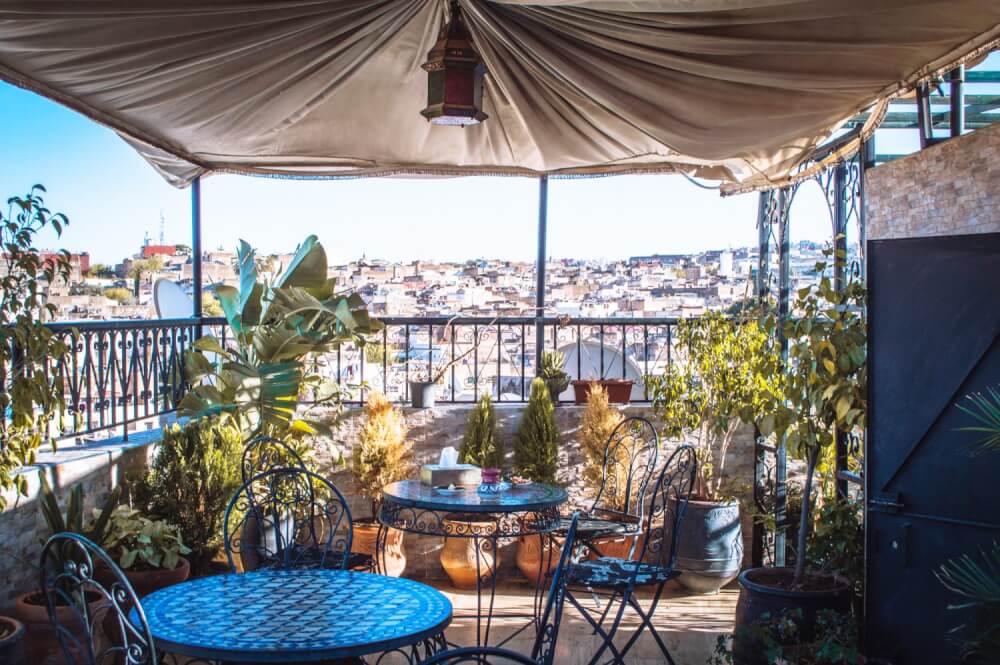
Any other questions about Morocco, safety, and travel?
Remember: when travelling in Morocco, safety comes first! Let me know if you have any more questions about safety for tourists in Morocco, or about travelling to Morocco in general. Have a safe trip 🙂
My Go-To Travel Favourites:
🧳 Eagle Creek: My favourite packing cubes
💳 Wise: For FREE travel friendly credit cards
🍯 Airalo: My go-to eSIM
🏨 Booking.com: For searching hotels
📷 Sony A7IV: My (amazing) camera
✈️ Google Flights : For finding flight deals
🌎 WorldNomads: For travel insurance
🎉 GetYourGuide: For booking activities
19 thoughts on “14 Crucial Morocco Safety Tips + Common Scams: Is Morocco Safe For Tourists To Visit?”
Whoa, this is such a thorough guide, Christina! It literally addresses all my doubts about traveling in Morocco as a female traveler. And it’s timely: I’m planning now my trip to Marrakesh, Fes, and Chefchaouen during fall (I think the weather will be cooler then). Bookmarking it!!
This is a great article. I’m traveling to Morocco this summer and knowing what to be aware of really helps. Thank you for sharing!
With the amount of scams and safety issues out there, my husband and I were thinking of taking tours in Morocco. We will be booking them online via Get your guide or something similar. The paper toilet bit reminds me of Cuba. Tons of great information here – thank you for sharing. We are heading there in August – cant wait!
This is an amazing detailed post. I have wanted to visit Morocco for some time now. I’ll be honest in saying that reading this gave me a bit more nerves about the trip than I initially had. However, it also does make me feel more informed and a little wiser. Thanks!
Found you on BPS at FTB and am now a new follower of your blog!
Goodness what an excellent and thorough post! I wish I had seen this before we visited Morocco a few years ago!!
We were scammed a couple of times. The worst one was the henna lady. I kept telling her I didn’t want any henna, as I have really sensitive skin… But she grabbed my arm and wouldn’t let go. I struggled with her for a while so she couldn’t do much, but she still demanded a huge price $60 for a tiny bit of henna that I’d repeatedly said I didn’t want. I was so pissed off, but in the end I paid her something to let go of my arm!
I loved the Atlas mountains and the smaller villages, but I was not a fan of Moroccan larger cities. I’m just not keen on the constant scam worry when I’m on holiday! Its one of those places that isn’t right for everyone…
Having just returned from Morocco, I couldn’t agree more. Some awesome tips in here that are right on the money!
I agree. Morocco can be a trying experience and you need thick skin to survive it. I went to Morocco by myself and spent days walking the souqs alone. As a solo female traveler, I will say that Marrakesh was the hardest place to handle. But, like you say, look like you know where you’re going, say no in Arabic and with a smile, and the harassment goes way down. I found other cities in Morocco much easier to wonder alone in.
I’m going on a tour in Morocco in a couple of weeks, so this is very timely! Another tip I’ve heard for women who are out and about on their own is to wear a headscarf so you don’t stand out so much. I’ll definitely be packing a scarf! But otherwise I’m really excited to finally visit!
Morocco looks amazing. Thanks for sharing your experience. I don’t feel so nervous about visiting now.
SIGH. We spent three weeks in Morocco and never felt unsafe, but WHY WHY WHY of all the countries do shady people have to make traveling there such an unpleasant experience for tourists? We felt pretty much the whole time like the locals had zero interest in us beyond our wallets. Everyone was out to cheat and scam us. WHY?
In the course of a year we visited more than a dozen other countries and basically everyone else all over the world was so much more pleasant and less interested in scamming us. I have a really hard time recommending Morocco to other travelers because, while there’s plenty of cool and interesting stuff to do there, the unethical culture toward visitors is just sorely disappointing and unnecessary. We probably would have spent more money in the country if we’d felt less taken advantage of.
Wow! This is so eye-opening! Everyone should read this before visiting Morocco. I thought I knew about some of the scams and safety tips, but you really opened my eyes to several more! I still want to go, but I’m so glad I read your post!
I went to Morocco years ago (before it exploded as a destination on instagram) with a gay male friend and we had such a bizarre array of safety experiences (we explored some separately and some together). I actually felt safer as a solo woman than with my friend (everyone presumed we were a couple) — yes there was catcalling, but local women were also way more open toward me. When I was with my friend we had a few just strange experiences, most notably on the beach in Tangier when a local guy hung out with us all afternoon, ignored several attempts we made to get him to leave, asked us all kinds of super weird and invasive questions (like “how much money do you have?”), and then invited us to a “party” with his friends. When we left we expected him to follow us, but he totally left us alone. I’m honestly not sure if he was sketchy or just super friendly. We also got into trouble with a pretty aggressive guy who tried to rob us in a quiet alley in Marrakech — he shoved my friend up against a wall and physically threatened him when we said we had no money (which happened to be true — we had literally zero cash and no atm cards between the two of us). Overall we had some great experiences in Morocco but it’s definitely not a place I’m dying to go back to.
This is a great, detailed article. I went to Morocco last year on a field trip for university and we definitely got caught out by some scams. Two guys ended up paying the equivalent of £10 for a tube of Pringles and some LIDL nuts in a little shop we went to – that’s the tourist price for you. My boyfriend and I definitely got caught out at one of the food stalls in Marrakesh when they just started bring us lots and lots of food – I advise being very specific in what you want and checking the price before they bring it out. Steer well clear of the people with monkeys on leashes – a few times they tried to put them on the shoulders of some of group when we weren’t even paying attention to them. All of that said, Morocco is a beautiful country, it was great to explore something completely different, and I felt very safe most of the time (the only time we didn’t was when we accidentally ended up in the tanning district trying to follow Google Maps to somewhere and it was clear we were the only tourists there).
This is an amazing guide! My husband (boyfriend at the time) and I went to Marrakech a few years ago, and I was totally overwhelmed by much of what you’ve said above (also, a lot of culture shock). Ultimately, we figured these things out and ended up loving the city, but it’s so important to look past those barriers! Can’t wait to read more of your stuff!
Wonderful photos and very useful. This place looks so exciting makes me want to go and walk around city ❤️❤️
Christina, thank you for featuring my blog and my perspective of a traveling black woman in Morocco! I 1000% agree with the points you made in your article. I hope that people read this to stay informed and take that wisdom with them as they travel to Morocco and perhaps other places around the world that may seem a bit sketchy or scary from a media/tv angle. Happy traveling!
Hello .thank you for this insight.my daughter is on honeymoon there at the min…while it has put my mind at ease a bit .its opened a lot more questions I get the feeling if they think you have not read the guidelines on THERE country then its our own fault. Luckly my daughter read what I could find on the place..but to me a holiday somewhere so beautiful like marroco why hide it behind a wall and call it a complex. She has been told its at there own risk if they want to leave the complex .the son in law has just informed me they was asked if they wanted to buy HASHISH yesterday.thank goodness due to them not having a clue what it was they sad no.I’ve just told them what your arrival said shocked is an understatement for them both. Thank you for your blunt honest Lisa ( a worried mum)
I’ve just returned from traveling throughout Morocco. I referred to your posts many times before and during our trip. I agree with everything you’ve written above. We definitely felt the least safe in Marrakech. After a very close call with a pickpocketer (his hand was literally in my front pants pocket) we decided that if one of us needed to use our phone or wallet, we’d huddle together. We also found it useful to ask our Airbnb host lots of questions, like what’s a fair price for the taxi? Where is a safe place to change money? etc. Airbnb was great because it gave us local contacts. Be mindful while traveling with luggage- someone tried to steal our luggage from the trunk of our parked taxi while we paid our driver. All that said, I’d go back because the pros definitely outweighed the cons.
My family and I will be going to Morocco very soon, so I am glad I came across this particular article. This article was very helpful and had great details about what scams are present and how to deal with them. I am very much so looking forward to visiting Morocco, and now I am much more well informed. Thanks!
Leave a Comment Cancel reply
By using this form you agree with the storage and handling of your data by this website. *
Travelguide Marrakech
Tips for your holiday in Morocco

Scams in Morocco and Marrakech: The most common frauds and rip-offs
If you look back on your first Moroccan holiday with slight disappointment, there’s usually one reason. At some point on your travels, you were ripped off. Such disappointments can be avoided if you know how to spot the typical types of fraud. So, here’s an overview of the notorious rip-offs, rotten tricks and romance scams that can take place in Morocco.
A rather unpleasant encounter you’ll inevitably suffer as a tourist in Morocco is the offensive business practices of some Moroccans. I’m not referring to the negotiating skills of many of the tradespeople, but the multitude of little scams and everyday rip-offs. They certainly have just what it takes to spoil someone’s holiday if they’re gullible enough when on their Morocco adventures.
This article is very long and you’ll need to invest a bit of time if you want to read about all the scams I’ve listed. You can use the table of contents to jump to specific sections in the text.
Introduction
You’ll encounter frauds and rip-offs and fake guides in every country in the world, especially in the big cities. For example, if you were looking at a website about Thailand, this article would be about the Taximafia in Phuket. If I were writing a Spanish blog, I’d be warning you about the Rosemary women in Granada. But this site is all about Morocco and Marrakech. So, I’d like to focus on the most notorious scams you’ll come across on your holiday in Morocco .
To avoid giving you the wrong impression, the problem with the fraudsters only involves a fraction of the full Moroccan population. Nevertheless, you’ll be really lucky if no one tries to defraud you on your Morocco holiday. In addition to the tourists that suffer, Moroccans also have to suffer from the negative image these rip-offs convey and the blanket judgements that ensue.
Financial damage isn’t what the scams have in common
Almost all scams exploit the ignorance of tourists and their lack of local knowledge. Tourists are usually relatively easy victims because they’re often too embarrassed to react in the right manner or to walk away from an uncomfortable situation.
Financial damage isn’t what the scams have in common. This is usually very manageable. Rather, you’ll get the feeling at some time or other that you constantly need to be on your guard not to get ripped off. Some fraud victims find that negative experiences like these cause growing mistrust. They detach themselves during their travels and at some point start to see every Moroccan as a potential fraudster. While this is certain to put you in a bad mood, it’s also not at all helpful for getting to know a foreign country.
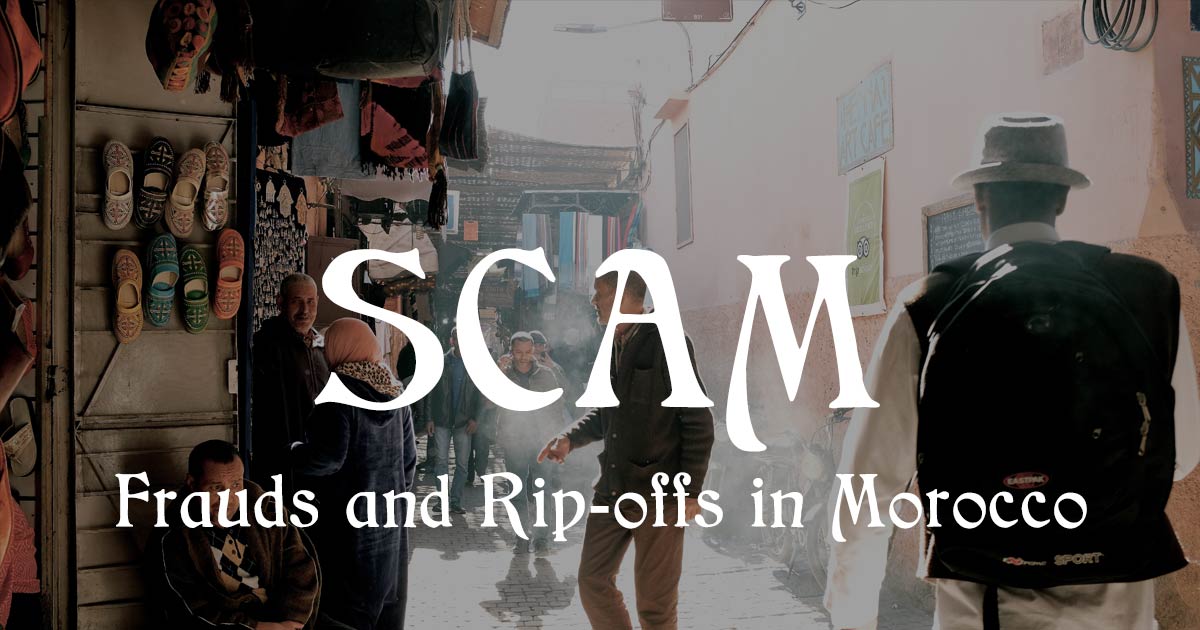
Anyone who is too open to love and then blinded by this emotion risks being the victim of one of the worst scams: Romance fraud. This is when there’s a fake love relationship that goes on for years with the aim of obtaining money or a European residence permit.
Statistically, far fewer robberies or violent crimes are committed in Morocco than in most European countries, making the country a very safe place to travel. In other words, in Morocco, money is not snatched from your pocket, but you can reach for your money and hand it to someone with a grateful smile if you’re completely naïve when embarking on your Moroccan adventure. However, many scams are fairly easy to avoid if you understand how they work.
Common scams and frauds in Morocco
The following is a list of scams and rip-offs in Morocco and some tips on how to avoid them. I’ve personally experienced almost all of these during my travels. I’ve also learned the hard way on many occasions. This list may appear a bit shocking at first glance but you need to work pretty hard to fall victim to multiple scams during your Moroccan holiday.
The helpful stranger
The helpful stranger is by far the most popular trickster in Morocco. This form of rip-off is the main reason for the negative image of the country that I’ve mentioned above. You won’t recognise helpful strangers at first glance. But rest assured, they’ll find you and offer their help.
The classic situation where the helpful stranger appears is somewhere in the medina. If you’re looking a little disoriented and gazing around you, count backwards slowly from twenty. You won’t even make it to 5 until you hear a friendly “Hello”. If you aren’t careful, in the next few moments, you’ll unwittingly book an unofficial city guide who’ll make it quite clear that he wishes to be suitably paid for his guidance.
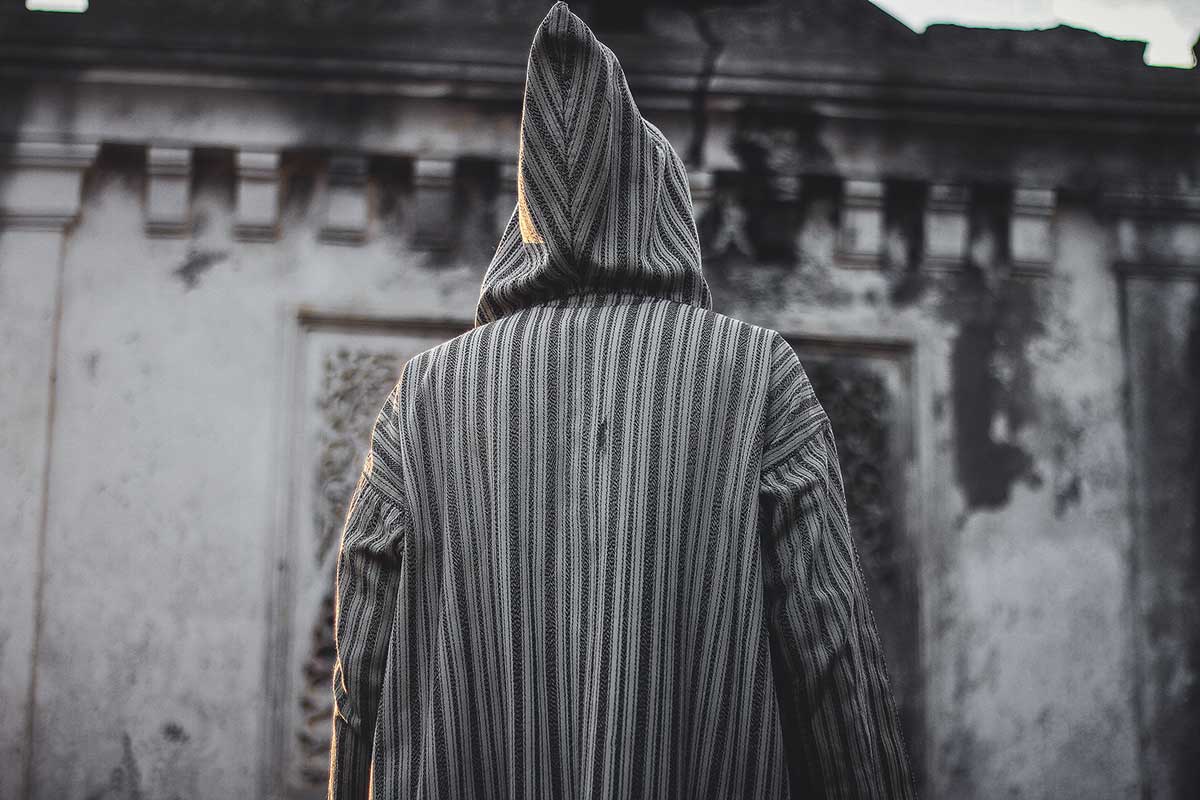
Rest assured, the helpful stranger will find you.
This fake guide not only knows of a shortcut to where you need to go, but he also knows how to detour through various shops. Thanks to his excellent connections, the helpful stranger can basically provide almost everything you need or can arrange this through a friend or relative: hotel rooms, restaurants, taxis, excursions , city tours, hashish, or simply finding your way back to Jemaa el Fna.
The next typical situation where you’ll encounter the helpful stranger is in an indoor market or souk. A friendly young man will quickly appear by your side to lead you through the labyrinth of stalls and goods. He’ll give you the impression that he knows almost everyone and is involved in all negotiations. This means that every purchase turns out to be more expensive, because, not only does the helpful stranger demand a tip from you at the end, but he also gets paid a commission from the actual seller. I’ll give you three guesses who ultimately pays for this commission due to a higher selling price that’s kindly been negotiated for you by the helpful stranger.
You may not always recognise the helpful stranger as being this type of person. Generally, he’ll start off by getting you to trust him. By offering sound information, he actually seems helpful. However, you can count on the fact that you’ll need to pay for these favours indirectly at a later point. If you don’t pay the helpful stranger, he can sometimes become indignant and occasionally also rude or aggressive to make it harder for you to disappear without paying. Don’t let yourself be pressurised by this type of behaviour. Instead, get used to telling helpful strangers right from the start that you won’t pay them any money.
How to avoid this scam:
- Try not to lose your sense of direction. If you need to consult the city map or navigation app, be as discreet as possible.
- If somebody approaches you in a strange manner, politely dismiss them with a firm “La, Shukran” (No, thank you).
- If the helpful stranger becomes unpleasant, it may help to suggest a visit to the Tourist Police at Jamaa el Fna. After all, it’s illegal to work as a city guide without an official permit.
- If you need to ask someone for directions, approach people who can’t get away like a stall owner or a waiter.
An alternative scenario:
The vast majority of Moroccans are extremely helpful. I’ve rarely experienced such warm hospitality as in Morocco. That’s why I can well understand when Moroccans are disappointed or offended when their hospitality or help are rudely rejected because they’re incorrectly taken for fraudsters.
The henna women
You’ll usually come across the Henna women on Jemaa el Fna . They sit on little stools. In front of them, faded yellowish albums are spread out with various henna patterns. In the more aggressive of these scams, you’ll be called over and distracted. Suddenly, the good woman will start to paint the back of your hand. In her opinion, there’s been a misunderstanding and she should at least finish off the job so that it ‘looks good later’, if you understand my meaning.
If you negotiate a price beforehand, the henna woman will be less pushy but not any less expensive. In this case, be prepared for the price you agree to gradually increase while she’s painting the tattoo.
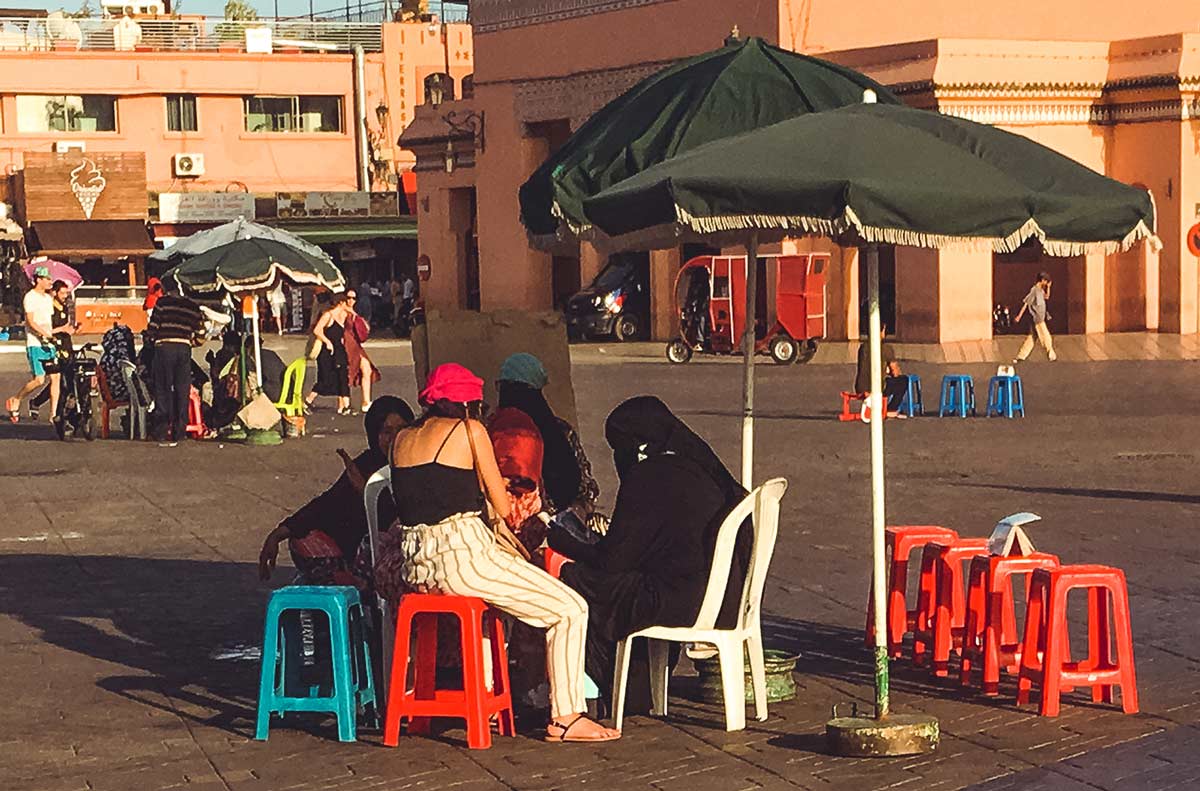
Henna women on Jemaa el Fna (Photo: Travelguide Marrakech)
These unofficial tattoos are not just pretty ugly as a rule, but they can also turn out to be quite expensive. Since some of these women use black-coloured henna, in the worst cases, these paints can be harmful to your health. The coloured henna can contain toxic chemicals that irritate the skin and can cause allergic reactions.
- Avoid the henna women on the Jemaa el Fna and keep a good distance away from them.
- If you enter into a conversation with them: keep your hands in your pockets!
- If you’d like to get a henna tattoo, look for somewhere else to get it done. My tip is to go to the Henna Art Café or the Henna Café Marrakech. Both are just a 10-minute walk from Jemaa el Fna.
Photography
Photography is a bit more complicated in Morocco compared to other countries due to two main reasons for this. Firstly, there’s the Islamic image ban. This prohibits the close-up depiction of images of people. On the other hand, many tourists visit Marrakech and want to capture the best moments of their vacation on camera. Since people are constantly taking pictures of Moroccans and dealers and craftsmen working in busy places can often find this irritating.
In Marrakech, this trend is tackled in two ways. Some traders and other individuals attach clear notices that ask for respect and make it clear that photography isn’t welcome. Others make a profitable business out of the western art of staging photographs. The best example of this is the water sellers with their conspicuous hats. You’re most likely to encounter them on the Jemaa el Fna. The water sellers actively call out to groups of people and urge them to get photos taken with them. Afterwards, they expect a generous payment and, when it comes to this, their audacity knows no bounds. I’ve heard stories from tourists who paid 20 Euros for a blurry photograph.
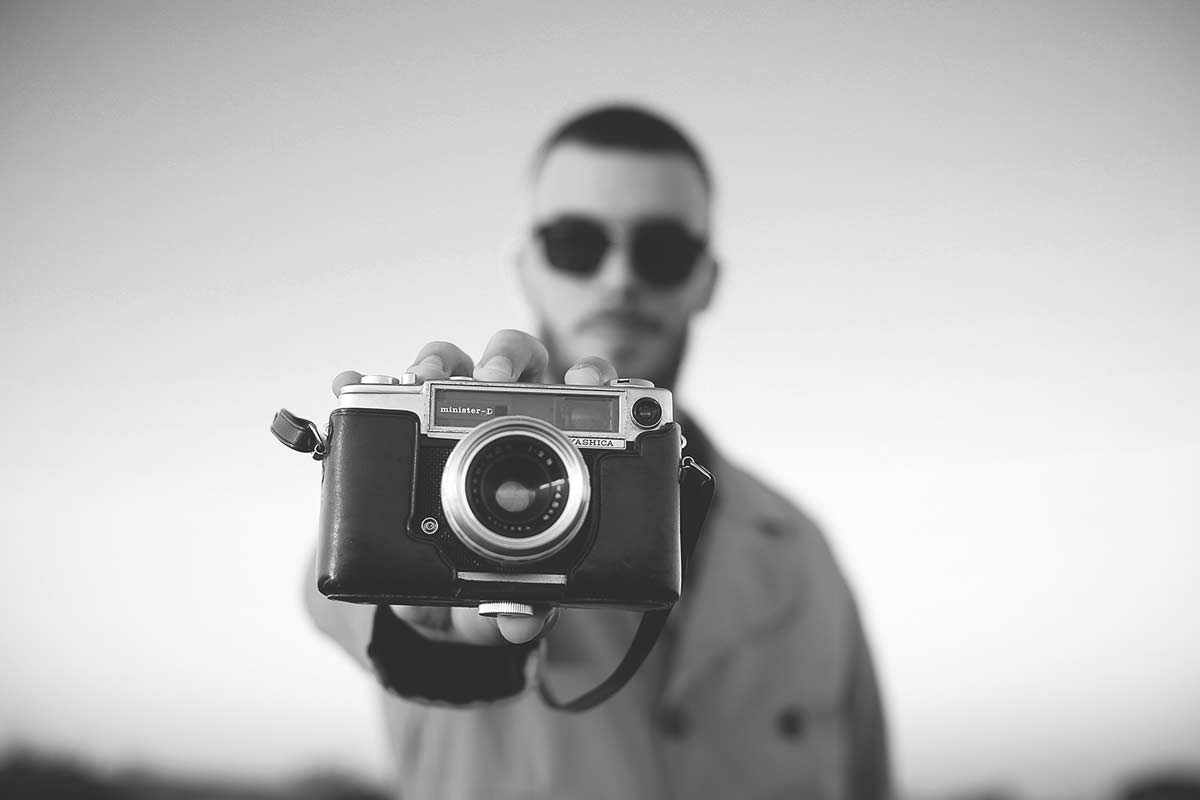
On Jemaa el Fna, you’ll encounter different types of people who are all motivated by money. These include acrobats and street musicians, as well as dentists and storytellers. However, these people can get very touchy if you photograph them secretly and they catch you doing so.
How to avoid photography issues:
- If you want to take pictures of people: always ask for permission and negotiate the best price.
- You can usually take photographs in stores when buying something.
- If someone wants a lot of money for a photo, make your final offer and then walk away if you have to. This usually works.
- On Jemaa el Fna, you’ll get more peace for taking photographs if you take a seat in one of the adjacent cafés that has a rooftop terrace, for example the Café Glacier.
- Never take close-up photographs of water sellers, dentists, street artists, musicians etc. without asking permission.
What you should bear in mind:
Some traders or craftsmen in Marrakech feature in thousands of photos when at work. They form the backdrop to an authentic impression of your holiday and are also popular among keen amateur photographers. In turn, these individuals share their photos on social media or sell them as stock photos. Visual networks such as Instagram have established a new and subliminal form of human exploitation. Therefore, hostile reactions to photographers who are too brazen or really unscrupulous are understandable and justifiable, in my opinion.
Scams involving exotic animals
As in many other countries, animal rights play a minor role in Morocco. You’ll come across examples of poor animal welfare and animal exploitation on the Jemaa el Fna in Marrakech. Every day on the large square, you’ll see showmen with their animals. These include chained monkeys, as well as snakes with their poisonous fangs removed. These animals are often in a pitiful condition.
Two types of animal fraud take place on the Jemaa el Fna. In the more harmless version, someone in traditional costume is sitting on the floor and playing a whistle to charm the snake in front of him. This is still a popular photo opportunity on the Jemaa el Fna and, naturally, is isn’t free. Usually, the snake charmer has a helper who ensures that no one takes photographs without paying. Therefore, it’s mainly a kind of photo scam.
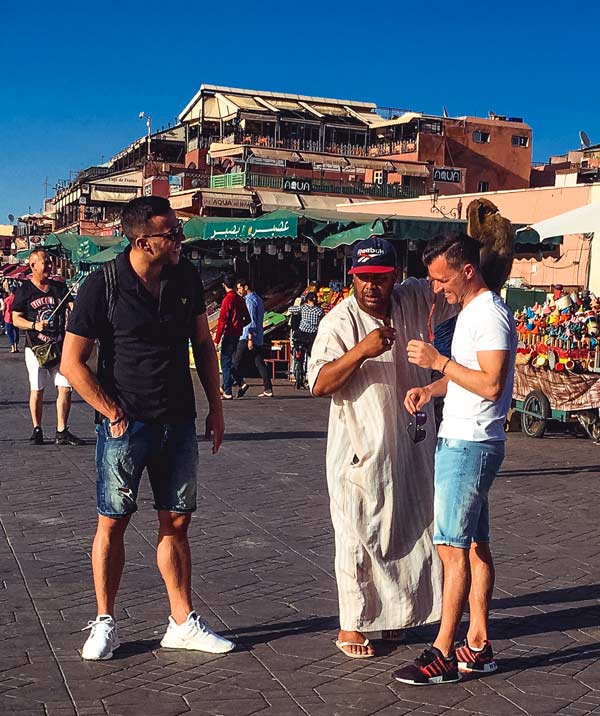
Animal fraud on Jemaa el Fna (Photo: Travelguide Marrakech)
Animal scams can be more intrusive. The pattern is similar to other types of fraud and is based on ignorance, insecurity and ambushing you. If you get too close to these scammers and look interested, you’ll barely notice when a snake or a monkey is placed on your shoulders. Then, someone from your group will be encouraged to take photos.
Needless to say, a generous tip will be due for this snapshot. However, it can work out to be even more expensive if you’ve give your mobile to the animal fraudster and he takes a blurry photo. In the worst case, he’ll refuse to give your phone back until you’ve paid him enough money. If this happens, simply walking away isn’t an option.
There’s a simple trick to protect yourself from animal scams on the Jemaa el Fna: Give these showmen a wide berth. Don’t take pictures of animals that aren’t well cared for or photos of those who profit from animal exploitation. Any donation given to these animal abusers doesn’t help the animals, but only supports their exploitation.
Unlike most scams, I’ve absolutely no sympathy for deceived victims when it comes to animal fraud. Anyone who allows captive animals to be draped around them or their friends deserves nothing more. In my opinion, anyone who tries to deny this shouldn’t complain when both the captive animals and tourists who support this practice pay a high price.
- Stay well clear of all showmen with animals and don’t support animal cruelty!
- Don’t photograph animals on the Jemaa el Fna.
- Never hand your phone or camera over to a stranger on the main square.
“The Jemaa el Fna is this way”
You’re almost certain to hear this phrase when you’re in the medina. It’s usually commonplace in the northern medina where many tourists visit the Madrasa Ali Ben Youssef or the Maison de la Photographie . The direction that you’ll hear someone calling out can often be correct, but sometimes not.
One thing is certain. In the next instant, a helpful stranger will enter the scene. He’ll either give you some friendly personal advice or have an accomplice who’s going there anyway. Needless to say that at the end of this small city tour, he’ll ask for an appropriate fee.
- Ignore people telling you that you’re going in the wrong direction.
- Give a friendly nod and move on.
- Don’t loiter about under any circumstances.
While briefly distracted and not paying attention you’ve taken the wrong route. You’ve no GPS signal because the alleyway is very narrow and the houses are high. You can quickly lose your bearings in the medina and find yourself wandering about. In this case, a friendly tip can save you a lot of time and stress.
If the person who wants give you advice isn’t a helpful stranger or his accomplice, but perhaps just a friendly local who sees tourists coming up against the same dead end every day, a harsh brush-off can be very embarrassing and hurtful. So, always be friendly but never naive.
“This road is closed/the gate is locked”
A similar scam involves a closed road or locked gate. This is widespread in Marrakech. Even if you aren’t looking disoriented and are walking purposefully through the medina, at some point, you’ll be approached by a young man or a small group who’ll point out that the upcoming street or gate is closed today.
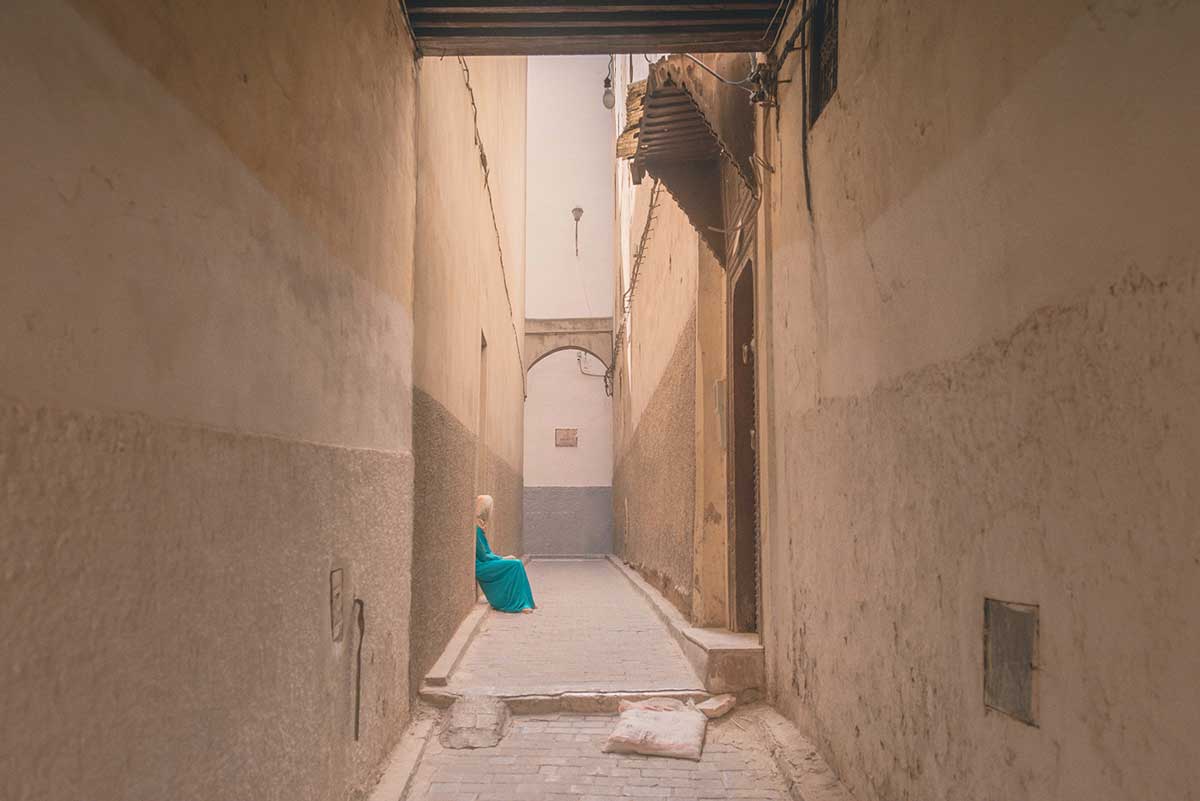
If you stop in this scenario, you’ll make your first contact with the helpful stranger. He’ll immediately take care of ensuring you get to your destination with his help by taking an alternative route. Of course, he expects a tip for this service.
In contrast to “The Jemaa el Fna is this way” scam, this trick is almost always based on a lie. Gates aren’t locked in Marrakech, at least not during the daytime. Construction work will be cordoned off to preserve the maximum space. Excavation work in the narrow streets of the medina also takes place during normal daytime working hours.
- Ignore people alerting you to allegedly closed roads or locked gates. In the unlikely event that something is really going on, you’re just unlucky and will have to turn back.
- Make sure you’re very familiar with the way back to your riad, particularly if out and about at night.
Even if you’re new to Marrakech, after a few days, you’ll be able to find your way around the northern medina pretty well. You’ll be able to get from the Jemaa el Fna to your riad without taking any detours and will be confident about finding your way around. However, at night, the empty streets look completely different. It’s dark and all the shops are closed, with their displays tidied away. To make matters worse, there are several large gates in the souks in the northern Medina and these are locked late at night. So, at such times, you may need to go on a detour, which means you may come up against problems, even when using a navigation app.
If you come up against a locked gate at such a time, you may meet a helpful stranger who’ll seize the opportunity to show just how helpful he can be. Or, you might just meet a friendly Moroccan whose good advice will help you out of trouble. In this case, he may be one of the majority of nice, helpful Moroccans who have no intention of guiding anyone through the medina.
Scams while eating on the Jemaa el Fna
I’m not sure if problems occur because the waiters on the Jemaa el Fna have to remember all the orders and often get very busy or if they want a big tip through a bit of clever arithmetic. The fact is that some waiters on the main square are more likely to get confused than others.
On the one hand, they can sometimes bring you more expensive food than you ordered, while on the other hand, they can forget to bring you dishes. This confusion continues until your waiter adds everything up and presents you with the bill. I’ve often found that my bills are incorrect and can easily be 100 DH too much. Then, all you can do is go through the bill item by item and calculate it together. Of course, flatbread, olives and tomato sauce served as an aperitif or side dish will also end up on the bill. At most places, you’ll pay 5 DH for each of these.
- Take a photo of the menu before ordering.
- Almost all places have a large paper notepad, which is ideal for recording your order.
- Roughly calculate the total amount before asking for the bill.
The restaurant scam
This is an old trick and involves switching the menu, but I’ve never experienced it myself. It’s basically very simple. Standing in front of most restaurants in Morocco are waiters who’ll call out to you and encourage you to sit down to eat. They’ll often extol the virtues of the unbeatably cheap set menu. Then, when the bill arrives at the end of your meal, it will be for an unexpectedly high final amount.
Unlike the tactics used by the arithmetic con artists on the Jemaa el Fna, the bills in this case of restaurant fraud will actually add up. However, they won’t reflect the cheap set menu, but a different menu, which is much more expensive.
- Read reviews on sites like Trip Advisor before visiting a restaurant.
- Search for recommended restaurants (ask in the riad, or speak to your travel guide).
- Recommended restaurants in Marrakech .
Freshly squeezed orange juice
A glass of freshly squeezed orange juice is the perfect way to enjoy a quick breather in the medina. It’s hard to miss the juice stalls on Jemaa el Fna. Although the juice is a bit more expensive there than in the side streets, most sellers are nice and will be happy to refill your glass.
However, black sheep exist among these juice sellers. They dilute the freshly squeezed juice with water and sometimes even add sugar to it. This is annoying because you actually wanted something quite different. Also, it can be worrying when you’re unsure if the added water is suitable for drinking. To make matters worse, the stalls are slightly raised and many juice vendors stand behind a mountain of oranges, making it hard to see what goes on behind the privacy screen.
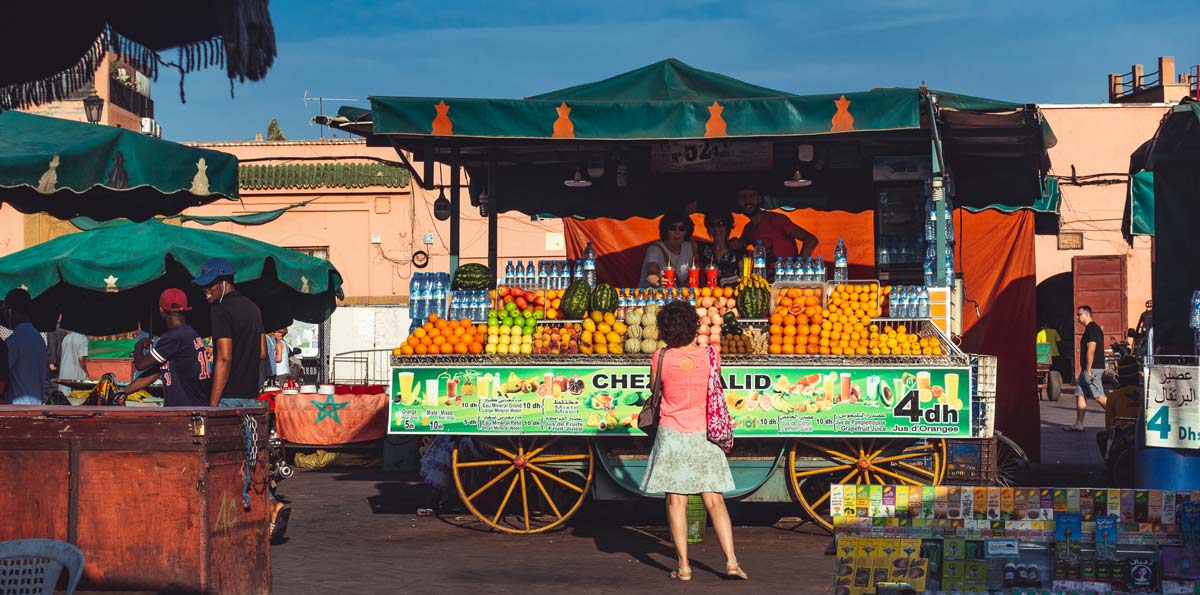
Orange juice stall on Jemaa el Fna (photo: Travelguide Marrakech)
- Ask in advance if the juice is diluted with water.
- Buy the juice from a stand where you can see the preparation taking place.
- If necessary, continue to search for a more promising-looking juice seller in the backstreets of the medina.
Ten dirhams for one Euro?
I’ve never experienced this fraud myself. I honestly can’t imagine that this rip-off is really worth it. Children will commonly play this trick on people. They ask you to exchange a 1 Euro coin they’ve allegedly found for 10 dirhams. The problem is that the coin is a worthless fake. As soon as you hand over your 10 dirham piece, the children disappear as fast as arrived.
Exchanging small change doesn’t necessarily amount to fraud. As a tourist in Morocco, you’re quite often asked to change foreign coins. The background to this is usually that some tourists give change in their native currency to beggars or children. These people can usually do little with it because they can’t exchange such small amounts. I usually go along with these requests. The exchange rate for the currency is 1:10, which is easy to calculate and brings minimal benefit.
But sometimes, the person asking for a currency exchange is actually a helpful stranger. Then, it isn’t about exchanging 50 cents, but a means of making contact with you. The established trust can then open the door to the actual rip-off event.
- When you exchange money , carefully check the currency offered.
- Simply change the money then keep going. Don’t invite an unwanted city tour.
Fraud attempts near the tanneries
The tanneries of Marrakech are a popular photo opportunity. Although they’re more hidden away than most other attractions, many tourists find their own way to the area where the tanneries are located. Often, they’ll be guided to the entrance by a helpful stranger or his accomplice and then taken through the complex free of charge. Unfortunately, they can be abandoned while going through a store and, at this point, pastries and mint tea are already waiting as part of the sales pitch to follow.
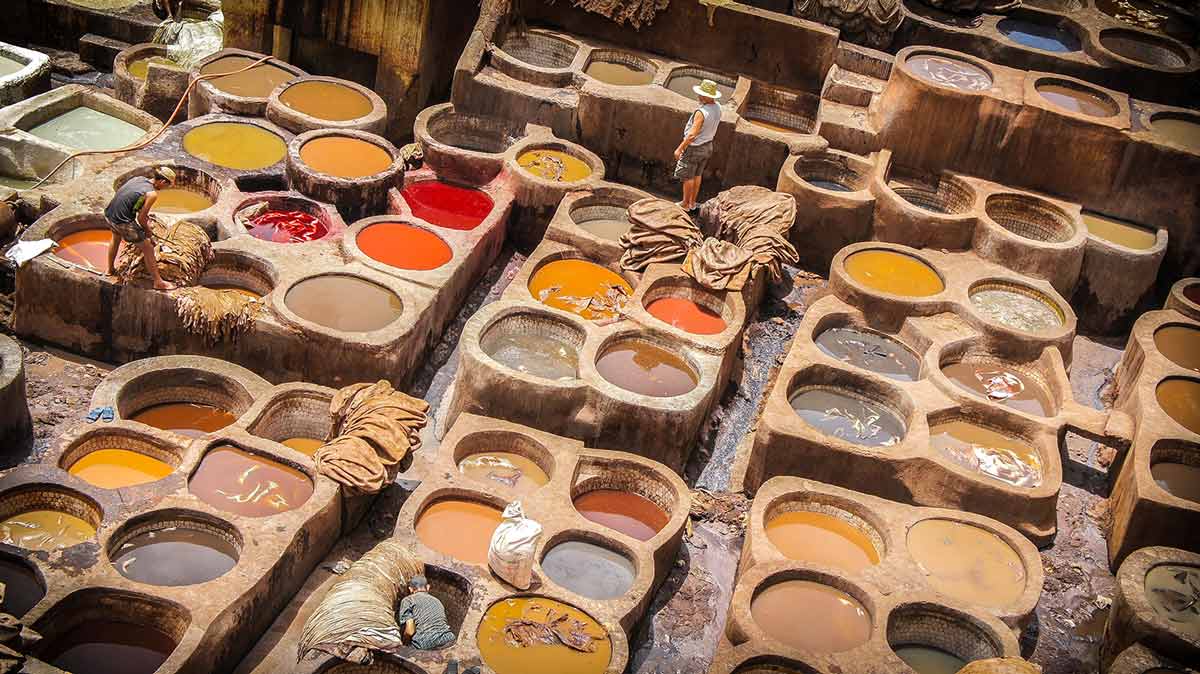
The Marrakech tanneries are a bit remote. Because of this, a helpful stranger or his accomplice will often offer to escort tourists his back to Jemaa el Fna. Of course, small, friendly tip is mandatory in exchange for this service.
- Plan your route to the tanneries with a city map or a navigation app.
- Don’t allow yourself to be confused by false information (“the gate is closed”) and try to find the entrance to the tanneries alone.
- If you accept an offer of tea in a store, the seller will take this as a sign of your intent to buy and will be all the more persistent.
Someone is walking suspiciously slowly in front of you
This fraud is a mixture of various ‘directions’ scams (“The Jemaa el Fna is this way” / “The gate is closed”) and the helpful stranger scenarios. However, this usually takes place without you noticing. On the whole, this fraud is preceded by a little interaction, but not in every case.
The scam works when the trickster approaches you and then immediately walks in front of you. He attentively tracks every change of direction you make and every change of pace. If you stop, he stops. If you turn unexpectedly, it won’t be long before your new companion will appear in front of you again, looking back at you constantly.
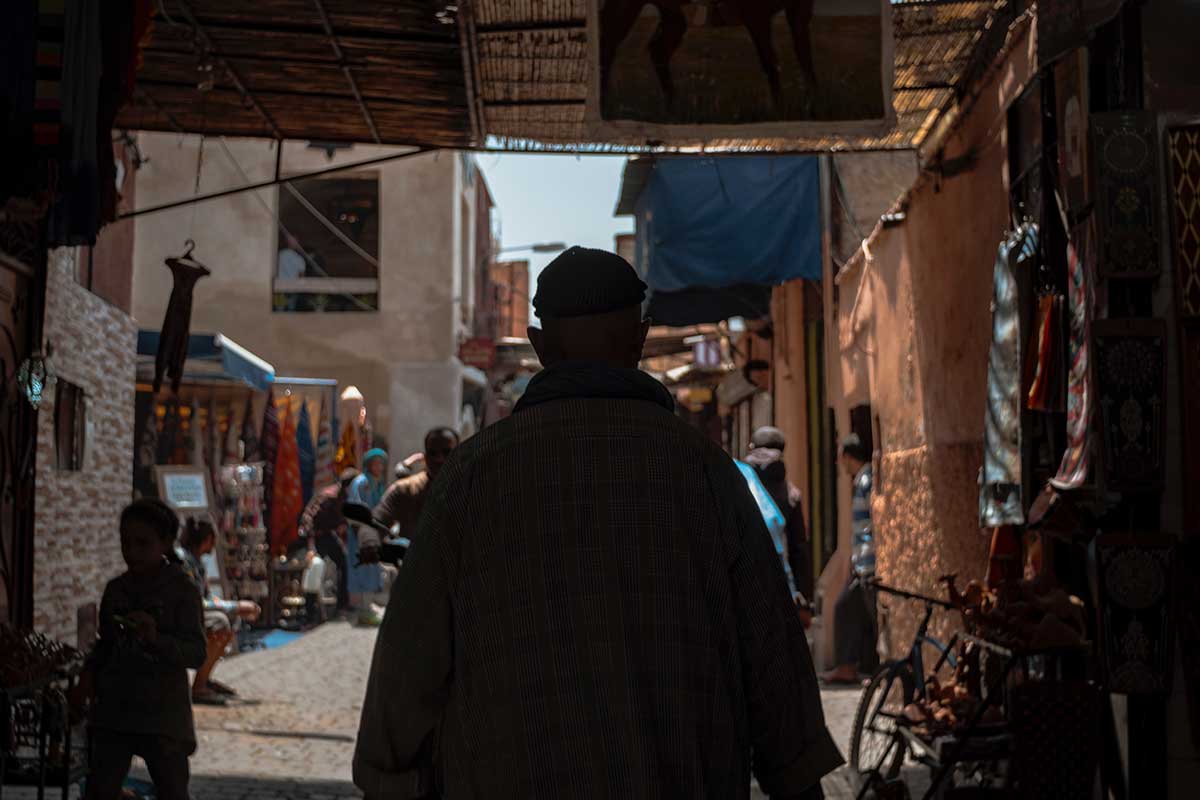
At some point, he’ll speak to you and demand payment for the guide service he’s just provided. I’ve rarely experienced this scam. However, the individuals accompanying you on your route can be quite stubborn during final negotiations and sometimes become a little upset when you refuse to pay.
To check whether a person walking in front of you and constantly turning to look at you is trying to scam you, stop briefly, e.g. to take a photo or change direction and watch how they react. If your suspicions are confirmed, speak to the person and politely explain that you know where you want to go and don’t need a guide. Sometimes, all you need to do is to say that you won’t pay any money for a guide.
Free samples that you then have to pay for
I haven’t experienced this mobile cake seller scam myself, but I’ve heard about it from several sources. To strike up a conversation, you’ll first be offered a free pastry. Not everybody says “no”. While you’re reaching for one, the question will be repeated, but without the mention of the pastry being “free”. Afterwards, these sweet treats can turn out to be surprisingly expensive.
- If someone offers you a sample and you’re unsure, ask first if it’s really free (“gratuit”)?
Taxi rides are usually very cheap in Marrakech. However, this industry is also famous for some bad rip-offs. The classic is the allegedly broken taxi meter. If you don’t pre-negotiate a fixed fare for your taxi ride, you’re likely to pay more than if you’d been charged by the taxi metre.
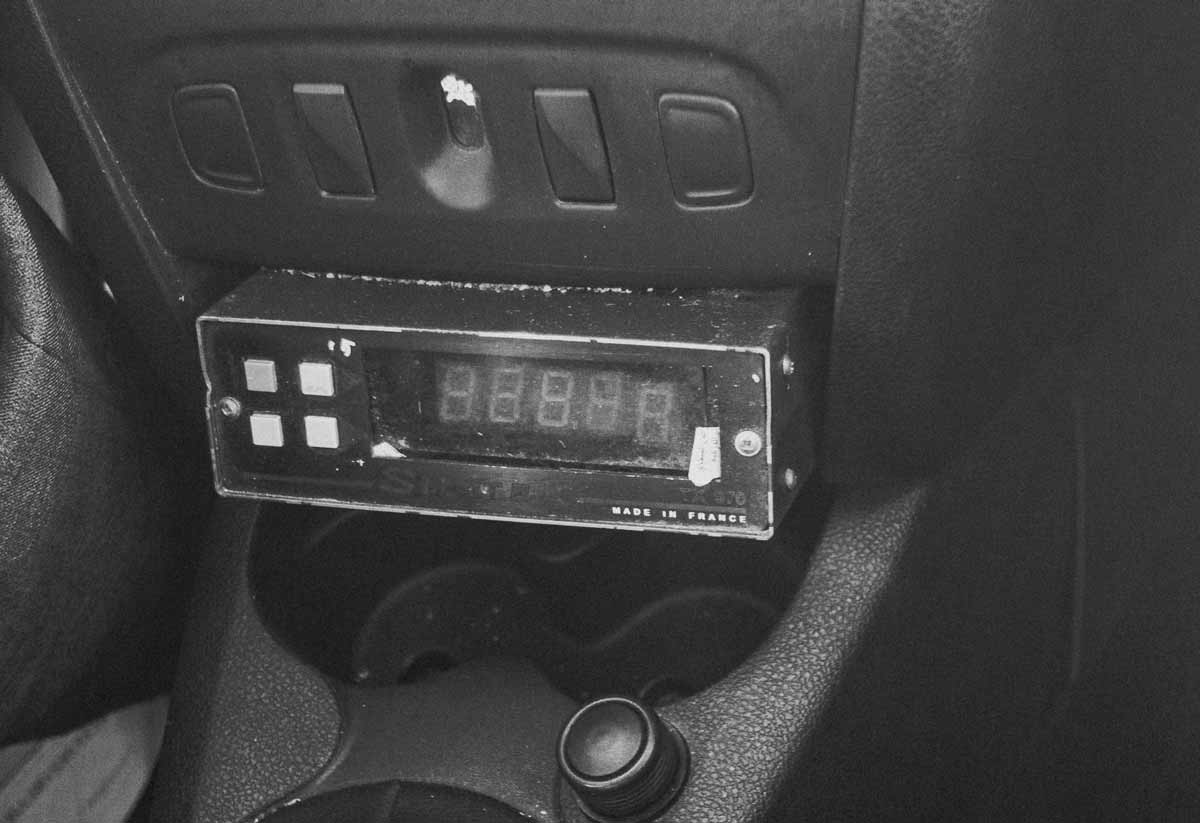
Broken taxi meter in Marrakech (Photo: Travelguide Marrakech)
At the airport, taxi drivers scurry about and will try to talk you into being driven to the city for a fixed price. This price is usually higher than the standard set rate of 100 DH for a Grand Taxi, but many tourists don’t know that.
However, it can be different. When I arrived at the airport in Marrakech in 2004, one of the taxi drivers undercut the standard price and offered the trip for 80 DH instead of 100 DH. On the way into the city, the driver then specified the terms, mentioning that although the journey was only 80 DH, there’d be a 20 DH charge for my luggage – which worked out to be exactly the standard rate overall.
Also, some taxi drivers you might book for an excursion or a longer city tour will include a visit to various shops to earn a sales commission.
- Only ride in taxis that have a metre. If it doesn’t work, negotiate a low fixed price or move on and wave down another taxi.
- If travelling from the airport to the city centre you don’t have to worry if you use the cheap airport transfer service or airport bus .
“The bus to XYZ isn’t running today”
This is a popular trick by taxi drivers looking for business. You’ll experience it when standing with your luggage near the bus station, train station or airport. Most of the time, you’re approached by a taxi driver or his accomplice. He’ll briefly inform you that your bus isn’t running for some reason – a strike, Ramadan or just because the bus is allegedly full.
Of course, the next bus won’t leave for a long time, possibly even the next day. Fortunately, there’s a solution. Thanks to a fall in fuel prices, today, your taxi journey is offered at a bargain price.
- Be skeptical if taxi drivers give you information about buses.
- If in doubt, ask at the bus station information desk.
Sometimes strikes take place in Morocco and then, unfortunately, there aren’t any buses. I’ve already had to spend two extra days in Tangier for this reason. The fasting month of Ramadan ends with the three-day sugar festival (Eid al-Fitr). This holiday period is similar to Christmas. Many Moroccans travel to their families using public transport before and after the festival. In particular, the comfortable buses run by the recommended Supratours and CTM bus companies are full at these times.
Bus station scams
If you approach a bus station with luggage and all the buses are running, a helpful stranger may immediately approach you and ask you where you’re going. He’ll then take you to a bus counter, get you a ticket and accompany you to the bus. He expects a small tip for this service.
So far, this may seem fair. However, the helpful stranger can also be collaborating with the ticket vendor and you’ll pay a higher fare than if you’d gone to the counter on your own. It’s even worse if you’re specifically taken to a particular bus when you wanted to travel on a bus running with a different line.
- Gather information in advance, e.g. when in your riad, about the approximate price of the bus trip you’re planning.
- Find the stop for the right bus line without any assistance and buy your own bus ticket.
You reach the bus station. The helpful stranger catches you and offers you a seat in the bus that’s just about to leave. Without his help, you’d have missed this bus. So, the 15 DH tip was absolutely worth the two hours of time saved and is a fair deal for all!
Traders and street vendors
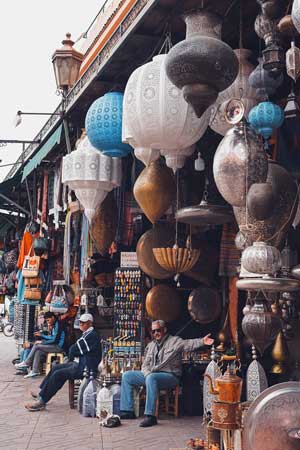
“Hello, do you know what that is? Why don’t you smell it!” So, you stop and quickly smell the assortment of different scented soaps. Many sellers in the souks of Marrakech know their craft well and shopping is fun. Everyone is relaxed yet enthusiastic at the same time.
Haggling inherently involves an astronomically high starting price, which will then reduce in the course of negotiations. This isn’t a rip-off, but part of the rules of the game. It isn’t a sign of rudeness if you come across as a tough negotiator and fight for a good price. Far from it. You can negotiate with a clear conscience, because the seller wouldn’t sell if he wasn’t making a profit.
Normally, you won’t come across cheats among the dealers in the souks, but rather traders with perfect business skills. This includes, for example, serving you tea. Many tourists feel obliged to buy something in the shop after a free hot drink.
- If you don’t want to talk to every dealer on the street, look at the displays as you pass by and only stop if you’re interested.
- If haggling really isn’t your thing, visit the Ensemble Artisanal near the medina. Some of the items are for sale at a fixed price and you’ll get an idea about the prices of certain goods.
- The staff at your riad can also help you by telling you about the approximate costs of certain items.
- Only haggle if you really want the goods. Don’t haggle for fun.
- Be as daring as the dealers and start your introductory offer at 20-25 percent of the requested price.
- Always behave in a friendly and respectful manner. Haggling should be pleasant for all parties.
Secretly swapping the goods
This type of fraud is very rarely reported and I haven’t experienced anything like it. The scam works when you agree with a seller on a reasonable price for a high-quality product. However, the trader exchanges the goods for lower quality items between your payment and departure. Victims of this fraud have often purchased items like silver trays, rugs or hashish.
- Be alert and don’t let the item you’re buying leave your sight after paying.
- Don’t be distracted by potential accomplices who ask you a question when your item is being packaged.
- If you get a funny feeling, check the goods again while you’re there. Complaining later on is unlikely to be successful with shop traders.
Hashish scams
Morocco is considered to be one of the main exporters of hashish. This intoxicating hemp product is produced in northern Morocco where hemp is cultivated in the remote valleys of the Rif Mountains and processed into hashish. Although hashish in Morocco is relatively widespread, it’s still illegal.
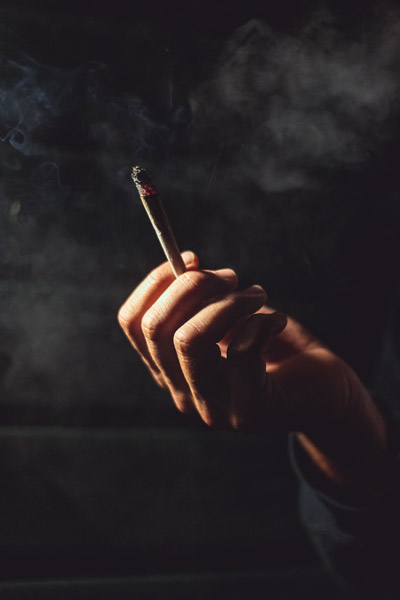
If you consume hashish, you should avoid smoking it in public. A rooftop terrace or outdoors are better places. In addition, be crystal clear that you can’t take drugs home with you when your holiday ends.
There are many myths about hashish in Morocco. Stories used to circulate of roadblocks in the Rif Mountains where people were forced to buy. The dealers are then said to have reported their customers to police officers who were in on the deal and insisted on a bribe.
Today, the reality is much more mundane. If you walk a bit too slowly through the medina, someone may whisper “zero-zero?” to you. If you’re looking for hashish, it won’t take long before you get your first offer. However, in Morocco as in every country, you need to keep an eye out when buying drugs!
Buy something illegal from a stranger on the street represents the worst conditions for this type of purchase. In all likelihood, you’ll receive a smaller amount of a lower quality product and pay a higher price. That assumes you actually get what you saw initially. In addition, you’re leaving yourself open to being blackmailed by a stranger. Therefore, getting involved with hashish is something to seriously consider.
- If you want to smoke hashish in Morocco despite the fact it’s illegal, don’t buy it on the street, but rather talk to a local acquaintance your trust.
- Ignore or politely reject any approaches by dealers.
- Don’t let strangers invite you to have a drag of their joint in the evenings in the medina.
Bad hotel recommendations
The hotel rip-off isn’t actually a scam, but mainly a bad offer. However, this can have a negative effect on your whole holiday. This scam is very simple. If you’re walking with your luggage through the medina, you’ll inevitably be approached by a helpful stranger. He’ll ask if you already have accommodation or if you’re looking for a hotel.
If you get involved in this game, you’ll be taken to a hotel by the helpful stranger and offered accommodation there. If you’d been looking for a hotel by yourself , you’d probably have chosen a better establishment at a cheaper price. But by now, you’re already there.
The helpful stranger is happy to receive a small commission for his help. If he’s clever, he’ll cash in on the hotelier too. There are hotels that even hire their own people for this scam.
- Book your accommodation before the trip. You will find a selection of recommended riads of all price ranges in the most beautiful parts of the medina in the Marrakech Riad Guide .
- If you haven’t booked a room, search the guide for streets with hotels in your price range to avoid a lengthy search.
- Always see the room first before you agree.
Many helpful strangers are real networkers and provide other family members with referrals. I’ve been lucky enough to have had the opportunity of meeting families through such third party introductions and have then stayed in their homes, which is priceless experience.
Romance scams and love affair frauds
Using love to deceive someone has many different names: From love scams to romance scams and even marriage frauds – this type of deceit exploits the victims emotionally and financially over a long period of time. Sometimes, these relationships can last for years.
Romance scams take place all over the world where significant differences in income exist between locals and tourists. Love scams are the flip side of a softer form of sex tourism and females usually fall prey to this in Morocco. The other major countries where romance scams take place are Tunisia, Turkey and the Dominican Republic, but hundreds of cases are also reported in Morocco.
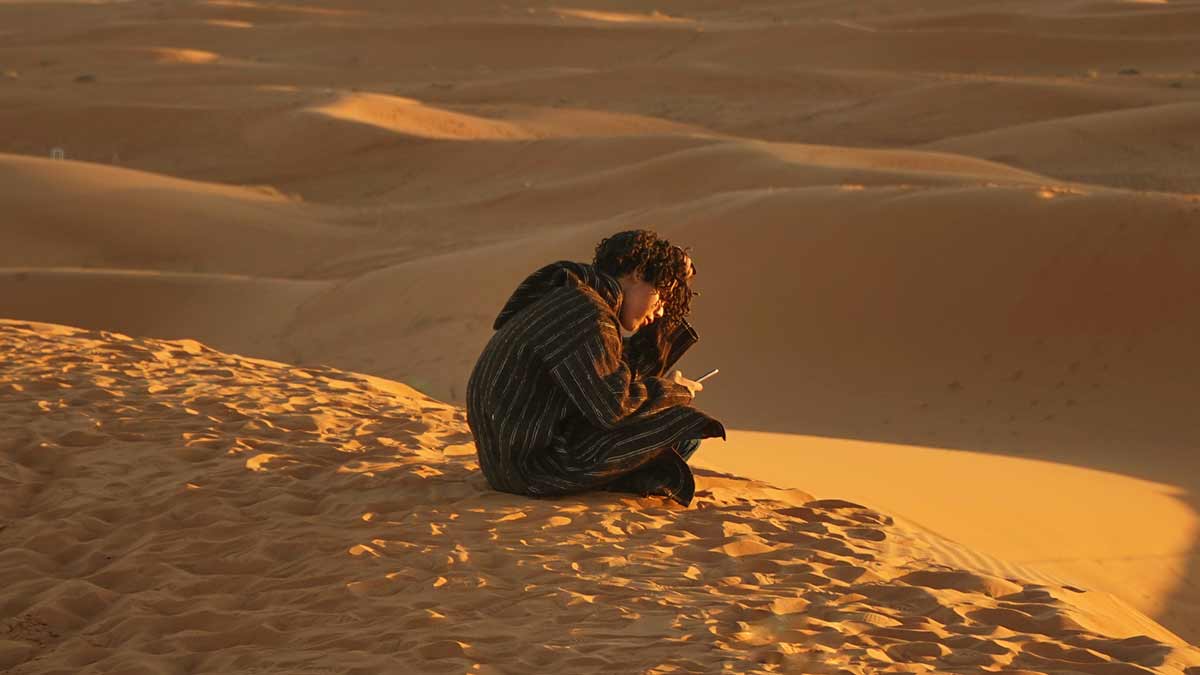
Young man with a phone in the desert
In Morocco, women are mainly (but not exclusively) the victims of romance scams. Usually, local men pretend to be tourists who’ve fallen in love with these women. However, they’re actually targeting the assets of the person they’re deceiving or have a vague hope of getting a European residence permit through a potential marriage. The most brazen romance scammers will conduct several relationships at the same time. Occasionally, whole families get involved in this scam when they’re introduced to the new prospective partner and an alleged future relationship.
Victims of romance scams can lose significant assets through this type of fraud and are often seriously emotionally damaged.
How to avoid romance scams:
- Even if someone seems really charming, there’s no reason to be blind to common sense, including when you’re on holiday.
- Don’t give detailed answers to questions about your personal salary or financial status.
- Be careful when it comes to talking about love and marriage after only a short time.
- If you enter into a binational relationship, learn Darija (Moroccan Arabic) as soon as possible.
What you should consider:
I’m reluctant to make hasty judgments about other people’s relationships. Love knows no bounds and nobody can control when it may happen. There are countless European-Moroccan couples who didn’t meet as part of a romance scam and only wanted true love and having a family together. Personally, there are several such binational marriages among my circle of friends.
Payment by credit card and broken card readers
This scam takes place in many countries but I haven’t come across it yet in Morocco. However, I’ve have read about it on Internet forums. As part of this rip off, when you’re paying by credit card, a seller or hotelier may try to claim that the card reader is broken or that your card is unreadable. Sometimes, the amount due will be debited twice or they’ll insist on payment by cash to save credit card fees or commissions for booking through online portals.
- Only use your credit card at ATMs and don’t pay directly with it.
- If you do actually pay with your credit card, keep the receipts.
- Use online platforms to reserve and pay for your accommodation.
Pickpocketing
Theft is neither trickery nor gambling but simply a criminal act. For thieves, there’s hardly a better place to operate than in the confusing souks of the medina or among the crowds on the Jemaa el Fna. Still, pickpocketing isn’t a huge problem in Marrakech. If you’re careful, you won’t need to worry about this. You’re far more likely to part with your money to a helpful stranger in Marrakech than be robbed by anyone. Pickpocketing has never been an issue for me or my companions in the course of over twenty trips to Morocco.
If somebody is intent on committing theft, they’ll rarely act alone. This is the same everywhere else in the world. Pickpockets usually work in teams of two to four people. Every member has a clear task. One is on the lookout for potential victims and will distract you with a trivial question. A second will block your way and provide a bit of a privacy screen. At that moment, a third party will steal from you and hand over the loot, such as your phone, camera, or wallet, to a fourth accomplice who will then disappear immediately with the stolen goods.
- Don’t carry more money on your person than you need to.
- Keep your valuables in the hotel. The better hotels provide safes.
- Keep your money in various places and sort it by small change, small notes and large notes.
- Leave your passport in the hotel and just take a copy.
- Your back pocket isn’t a safe place for mobile phones or wallets. Carry these in your front pocket or in another place.
Skimming and ATMs that have been tampered with
So far, I haven’t heard of any cases of skimming in Morocco. I’m mentioning this scam just to ensure I’ve covered everything off, but you don’t need to be overly concerned about it.
Skimming works by using a visual device and internal laser card reading device attached to the card slot on the ATM. The inserted bank card is read by the illegal laser device and forwarded to the original card reader. Account details are then read and stored without the card owner even noticing. The PIN entry is recorded with a camera or captured by a phone camera. These might be in several places:
- On a specially-adapted type of veneer placed over the PIN keyboard on the ATM.
- Hiding in a dummy smoke alarm on the ceiling.
- To the side, e.g., in a catalogue stand that’s been tampered with.
Other tricks are used to get the PIN such as using a realistic dummy keyboard as well as a card reading device with an integrated camera. The harvested data is then used to make copies of bank cards that allow offenders in non-European countries to withdraw money from their victims’ accounts. European ATMs usually don’t allow counterfeit bank cards to be used.
How to protect yourself against skimming:
- Avoid using ATMs in dark, remote locations.
- Don’t use ATMs if you notice something unusual, such as a cover attached, protruding or loose parts or traces of glue around the card slot.
- Make sure you enter your PIN without anyone seeing you. Take note of how far away the next customer is. Covering the keypad with your hand while entering your PIN makes it harder for a camera to spy on you.
- Do you have several bank cards? Use a different one to open the door than the one you use to withdraw money.
- Never enter your PIN into a door opening system at a bank. No financial institutions require a PIN to access their ATM facility.
Conclusion: How to deal with these scam and avoid them
As banal as it may sound, my best recommendation is not to be an easy victim. Don’t behave like someone who is easy to take advantage of. If you stop along a busy road with a big city map in your hand and look disoriented, you won’t have to wait long for a helpful stranger to appear. That’s a certainty. If you use any form of service, first agree on the price as you’ll have far fewer nasty surprises.
Fortunately, after more than 20 trips to Morocco, I rarely have to worry about scams anymore. On the one hand, I’ve changed my attitude to certain things and, for example, I no longer expect to pay the same price everywhere as the locals do. On the other hand, I take today’s scams in my stride. I recognise helpful strangers and am almost happy to encounter them. I just give them a complicit nod so they understand they won’t succeed with me. If they get too pushy, I hand them a business card and go on my way.
I rarely get annoyed at the sometimes very clumsy attempts to get my money and smirk at most of the tricks people use. I think it’s legitimate to make a living from minor price inflations or active redistributions from the rich to the poor. However, I get really annoyed if people take me for a fool and think I’ll be easy an easy target.
If you’re aware of the most common scams and have learned to avoid them and stand up to them, you’ll have far fewer problems and can then fully focus on your Moroccan holiday. So, enjoy your trip!
Have you experienced a scam in Morocco that isn’t on this list? If so, please leave me a comment and tell me about your experiences.
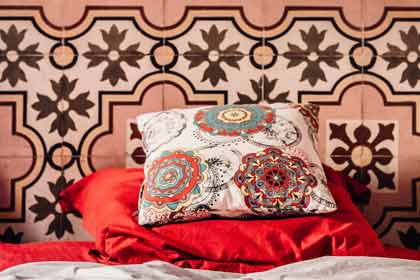
Can unmarried couples share a hotel room in Morocco?
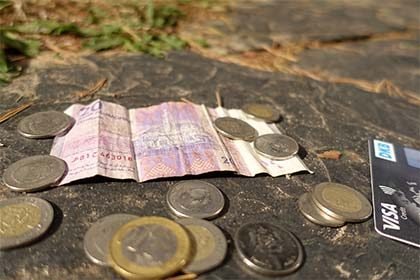
Moroccan Currency: What you need to know about money when travelling
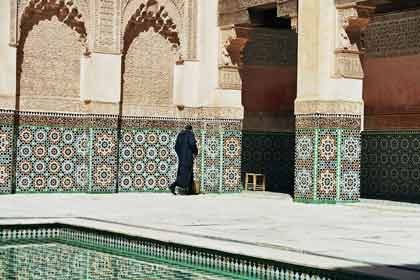
Marrakech holidays: Some useful hints and tips
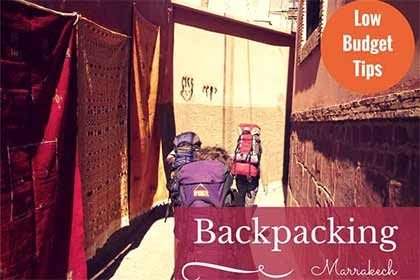
Low-Budget-Tips: Marrakech for Backpackers
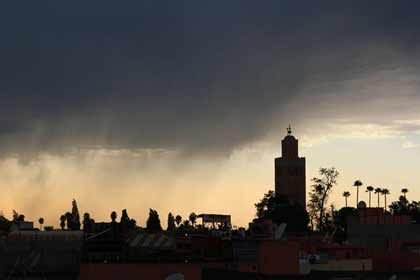
The ideal time for travelling to Marrakech
MARRAKECH DANS LA PRESSE INTERNATIONALE, LE CÔTÉ SOMBRE DE SES HÔTELS 5* ! :
https://agencedepressepanafricaine.com/maroc-arnaque-de-touristes-lhotel-kenzi-rose-garden-a-lindex
Le paragraphe concernant les réseaux sociaux corrompus, je l’eclaircis il s’agit de Facebook, TripAdvisor….!? Veuillez publier SVP, partager pour avertir les gens. J’ai des preuves et dans l article et chez moi. Merci
- Pingback: Chouara Tannery in Morocco - All You Need to Know - Me With My Suitcase
The bottom line is very simple; you can find scams, rip offs, cheating in every country in the world including the so called first world countires, the US, all European, the UK, middle eastern, well developed Asian countries, Japan, Sth Korea, SInagpore, etc.
I come from Australia, every year there’s reports re tourist rip offs. The authorities are serious to try to control cheating, scams, rip offs and they put a lot of professional resources, monitoring in place. It still happens.
Why? Simple answer; dishonest people are in every country and local laws try to control them but can’t. Just be aware and take simple obvious precautions, use simple logic.
If in doubt back away and disappear. This is life!
Totally got burned in Fes. Guide took me to ceramic factory where dedicated trained artisans produce quality items. Got high pressured into buying garbage. Shop in Marrakech and get good deals on bowls. My husband ready to kill me. Experience ruined my trip. Also guides take you to their friends who Im sure give them kick backs. Bargain on your own in a different shop.
Leave a Reply Cancel reply
Your email address will not be published. Required fields are marked *

15 Scams in Marrakech to Avoid and How to Beat Them | Morocco Guide
ArboursAbroad contains affiliate links. As an Amazon Associate, we earn from qualifying purchases. If you purchase using one of the affiliated links, we may receive compensation at no extra cost to you. See our Disclosure Policy for more information.
Like this post? Share it with others!
It’s not a big, touristy city if there aren’t scams, right? Unfortunately, that seems to be the case nowadays, and Marrakech is the city of scams! But lucky for you, we wrote down every scam someone tried to pull on on us in Marrakech and thus have for you 15 scams in Marrakech to avoid !

Yes, you read that right. In our three days in Marrakech , we had each of these 15 scams pulled on us more than once . In fact, we lost track of how many people were trying to say these things to us! It’s quite ridiculous, but if you go into your time in Morocco knowing of these scams of Marrakech , you may be able to get by without being part of a con artists’ day!
Number 1 | “The Street Is Closed”
Oh honey, don’t tell me the street is closed. All streets lead to another street which leads to another.. you get the point. Streets are never “closed”. Construction above, construction below… the streets are always open! There’s no safety concern, even when construction workers are digging a trench in the middle of the street (like literally digging who knows what ten feet down and tossing it up over their heads onto the pathway) – you’ll always find a small path to walk along! Streets are always open. They just want to see if you react by asking, “Oh, well how do I get to…” And then they offer to guide you there instead of you taking the street you were on that is very much so open.
Solution: Just act like you didn’t hear them. When this scam was pulled on us, most people weren’t very aggressive.
Number 2 | “Have You Heard Of The Special Festival
This one’s typically said around the tanneries. People will try and tell you there’s a special festival going on, but there’s not. Our host in Marrakech actually warned us about this one when explaining things to see in the city, and then we heard it countless times as we got closer and closer to the tannery in Marrakech. Just know, there is never any festival!
Solution : Ignore them, or tell them you’re not looking for the festival or the tanneries at all. Even if you are looking for the tanneries, just tell them you’re not! ha.
Number 3 | “Good Man, Women Always On The Right”
Why on Earth is this a thing?! Who knows!! You’ll see women walking on both sides of the road on both the inside and outside of the man they’re walking with all throughout the city. Though, the scam artists think it’s a good way to start talking to you. They literally say that (multiple times) and then just start walking with you. Strangest thing, but anything to try and make themselves a dirham or two, I suppose.
Solution: Ignore them and keep walking or start just talking with the person you’re walking with. Fair warning though, both times we heard this, the men became extremely aggressive. One man shoved us and both of them told us to f-off. So, though you can ignore them, be prepared for some not so kind words or actions to follow.
Number 4 | “The Medina Is This Way”
No sir, the medina is not that way, because I literally just walked from the medina. I’m not even looking for it! Oh. My. Gosh. This scam is what we heard the most of, and it was getting so annoying that we started snapping back to people, which in turn typically ended in being told to F-off, but for real.. this one’s annoying. Surrounding the medina, on all sides but the northwest area, we heard this one. No matter what directions you’re walking, even if you just came from the medina, people will try and tell you it’s a different way.
Solution: Ignore the people, or tell them you’re not looking for the medina, or I’m going to my hotel. They’ll typically leave you at that, but a few times people got more aggressive with us. Just be sure to keep a stern face and keep ignoring them and walking away from them.
Number 5 | Someone Slowly Starting To Walk In Front Of You
This one’s a tricky one to spot, but if you pay attention, you can see it happening. People will either walk quickly up from behind you, and then slow down matching your pace just a bit ahead of you, and even stop when you stop. You’ll see them continually looking back at you to see if you’re still “following them”. Then they’ll ask for money saying they just “guided you” to wherever it is you stopped.
Solution: If you notice this happening, turn and walk the opposite way, or at the first chance you get turn down a different road than they take. You can also try stopping to take a few photos, and exaggerate the time you take to actually take a photo. After a minute, they’ll get bored of you and move along to someone else.
Number 6 | “Here, Here! Watch This For Free”
“Oh don’t worry.. look it’s free, there’s no charge.” Then when they’re finished making something with the wood, or sewing something, or see that you’re about to leave, they ask for a tip.. and are very persistent about that tip for the free thing you just watched. Or they’ll give you/put whatever they just made on you, and then have you pay for it. We had people try this scam on us multiple times and actually watched other people fall into this trap a few times too.
Solution: Even when it looks interesting and you want to watch it. Just say no thank you and keep walking. Usually, people will respond with “Why not? It’s for free.” And you can just repeat the no thank you, and just turn and walk away.
Number 7 | “Just Look! Just Look!”
“Just Look. Looking is Free.” Ummm.. thanks but I’m not even interested in your stuff anyways!! Shop owners will tell you to just look and pull you into their shops and then harass you until you buy something… even if it’s the cheapest dinkiest little thing, they just want you to buy something, anything! Umm.. Not cool!
Solution: Typically, these people aren’t very aggressive because they have a shop to man, so they will stay within their little shop area, so you can get away with a quick, “no thank you” and keep on walking.
Number 8 | Adding Water To Your Juice
Getting fresh squeezed orange juice, or freshly pressed pomegranate juice is to die for in Marrakech. However, with all good things in the city come some type of Marrakech scam. If you’re not watching carefully the worker will pour water into your “freshly squeezed juice” making it not so juicy. You have to really be careful with this one, as most of the juice shops in Jeema El Fna have something blocking you from viewing what’s actually going in your juice.
Solution: Get your freshly squeezed juice from someone on the streets. You’ll see people pushing carts of fresh fruit around, and they’ll press the fruit right in front of your eyes for less than 50 cents!
Number 9 | “Maybe Later”
After you politely tell a person no.. whether that be at a shop or a restaurant worker trying to show you their menu, oftentimes the next thing that comes out of their mouths is, “maybe later?”. They will ask this, and if you say, “yes”, and they remember you the next time you walk by, they will say, remember you said later. And though we didn’t have this happen to us, we’ve heard they will get quite aggressive when reminding you that you told them maybe later.
Solution: Just say no. Like Always… even if you are considering going back later. Continue to tell them no and put off the idea that you’re not interested at all!
Number 10 | “The Bus Is Full”
Taxi drivers lurk around popular routes to and from the bus stations, and even just outside the bus stations as well, just waiting for a tourist to walk by to tell them, “the bus is full”. They do this and then try and sell you a seat in their taxi instead. Though, seriously… chances are it’s not even close to being full! Even if you’re looking for a bus the same day! And if it is, the bus company will most likely recommend another time, or another bus company to take!
Solution: Tell them you already have a ticket. Even if it’s a little white lie, they’ll stop bothering you after that!
Number 11 | “Our Card Machine Just Broke Two Days Ago”
How convenient for a card machine to have “just broke”.. and more specifically “just broke two days ago ”. I don’t buy it! If you book a place through Booking or Agoda , you’ll typically have to pay once you get to the hotel. Often times hotels/accommodation places will put online that they accept card, when in reality they don’t even have a card reader.
They do so just to get you in the door and then ask you to pay in cash instead because the machine recently broke, A.K.A. they never had a card machine in the first place.
You see, we’ve had this happen to us in more countries than we can remember, and it’s always the same scam. It’s online to get you in the door, but they don’t want to pay the card transaction fees, so they try and make you pay in cash.
Umm.. no.. Credit cards = earning points and in some cases travel insurance . Don’t fall into this scam. Even if it doesn’t seem like big deal to pay in cash.
Solution : Book through AirBnB – You pay ahead with no money transaction with the owner. If you don’t use AirBnB, no matter what, hold your ground in paying with your credit card. This scam makes us SO infuriated, so please hold your ground!
Remember.. they lied to you — and countless other people
After all, the company lied to you to get you in the door in the first place. Explain to them you have to use your card because you don’t have cash. Tell them you can’t pull out money because the bank charges you too much, and that you booked with them specifically because online it says they offer credit card payments.
Tell them you travel with your credit card because it covers you for insurance (which is true with cards like this ) and that you rely on the points to keep you traveling. No matter what, stand your ground. We’ve stayed at multiple places for free because of business owners using this scam, and in Marrakech, we only paid after going to the neighboring riad and using our card there. We can’t stress this one enough. Don’t fall for this scam!
Number 12 | “I Don’t Have Change”
Ummm… go ask your neighbor! Haha.. Often times when paying for something for say, 40 dirhams with a 50, you’ll get told they don’t have change to give you the 10 dirhams back. Newsflash… everyone has change, and if they truly don’t, the neighboring store/restaurant will break a bigger bill for them. They’re just trying to get an extra 10 Dirham (1 USD) off you.
Solution: Offer them something smaller. Like, say, “Okay, if you can’t break it that’s fine, I have 30 dirhams I can give you”. They’ll magically find a way to make change after that!
Number 13 | “Extra Charge Because Chicken”
Fill in the word “chicken” with whatever word you want. You’ll be told it’s an extra charge for all things under the sun, when in reality it’s an extra charge just because you’re a touristy. This especially happens in places where the words are in Arabic, but just look at the numbers on the menu, if nothing is the price they’re charging, they’re charging you extra.
Solution: Pay attention to what other people are paying when they order stuff. And honestly, if you aren’t too picky, just ask for the same thing the local in front of you just ordered, and only offer the amount of money the person before you paid. Don’t ask how much it was, if the person only paid with a few coins, offer a few coins, if they paid with bills, offer the same bills. Just scout out before you buy and catch on to the local price!
Number 14 | After You Take A Picture, They Ask For Money
Regardless of what you’re taking a picture of, someone may ask for money from you. This doesn’t happen all the time but especially happens in the squares, or the souks right around the medina. Even if you’re not taking a photo of someone, or something they have, they’ll still ask for money! It’s the strangest thing. We had it happen to us even when we were taking video of ourselves talking to the camera set up on a tripod.. umm.. pretty sure you don’t need to pay to video yourself talking to a camera!
Solution: Just look at them like they’re crazy, shake your head, and say no. Then quickly get the heck out of there. Okay, maybe don’t look at them like they’re crazy.. that may be why we had so many people become so aggressive with this scam, but we were just so shocked how many people asked us for money for photos we were taking.. even of just mosques!
Be prepared though, every single person that asked us for money for a photo we were taking, again not even of them or their belongings, became very verbally and in a few cases physically aggressive. Got really in our personal space and some even tried grabbing/hitting the camera. Again, just get out of there as quickly as you can.
Number 15 | “Hello, Where Are You From?” “Hello, Smell This!” ” Hello, What’s That?”
Basically, if you hear “Hello” get the heck out of there.. Okay, just joking.. well kind of. Unfortunately, in Marrakech, most people trying to start a simple conversation with you want something in the end. They try with compliments, try asking about your belongings, try to guess what country you’re from. We heard it all. And after trying to be sold something after the first nice response we gave back, we started to pick up on this scam too.
Solution: Unfortunately, unless you want to get stuck talking to everyone trying to sell you something or going in every shop and getting charged just for going in, you just have to simply ignore them, or say, “Hello” back and then keep walking away, regardless of what they say after.
Be Prepared For The Scams Of Marrakech
Don’t let these 15 scams in Marrakech scare you away from visiting the city. However, do go into Morocco prepared, and take note of these scams! We’d also say don’t plan too much time in the city — there’s so much to see and experience in Morocco!
It’s really sad because some locals will see others try and scam tourists, and then they’ve come up to us and talked to us about how sad it makes them. Because all the scammers are going to scare away tourists, and they don’t want that. While there are a ton of scams in Marrakech, there are also a lot of good people too.
Check out our Morocco page for more ideas on what to do in the country!

Heather is the co-founder of Arbours Abroad, and a full time travel writer with over ten years of travel experience across 39 countries. She’s lived in five different countries, and traveled by van in the United Kingdom and Europe for two and a half years.
Heather and her husband currently live in a van with their cat, Georgie, traveling and finding nature escapes all over the western United States while sneaking in trips abroad when they can.
Similar Posts

15 Things to do in Bandon Oregon | Eat + Sleep + Do + See Bandon
Bandon is a coastal town in Oregon often overlooked by tourists. But with so many things to do in Bandon Oregon, we’re stumped as to why. It’s charming, has a great beach, and offers great camping nearby too! With the many things to do in Bandon Oregon, you could stay more than one night here,…

We’re Back in Aberdeen… Our September Update
We haven’t given everyone an update in quite some time as to how we are doing and what we’re up to… so we thought we would share a bit with you all!! First off… We went to Thailand for a month back in July. If you missed that trip, head here to see all about our…

How to Get to Hvar | An Island in Croatia
If you didn’t know, Hvar is actually an island off the coast of Croatia. And… Hvar Town, the main town on Hvar – most likely where you’re looking to head… is NOT where the ferry drops you off.. So how will you get to Hvar, and even further.. How to get to Hvar (the town)??…

Campervan Fans | Choosing the Best Fan for Van Life
With so many campervan fans on the market these days, it’s hard to know which one is best for you. You have to remember, the one with the best reviews or brand you recognize may not always be the perfect match for your van build. When researching different campervan fans, we repeatedly saw the MaxxFan…

Biking the Pacific Coast Highway Day 4 | Cycling Seaside to Nehalem Bay
A short day on the saddle, but man, those climbs were insane. We climbed over 2,000 feet when cycling Seaside to Nehalem Bay even though we only cycled 23 miles! That’s a lot of elevation gain in such a short time! Cycling Seaside to Nehalem Bay State Park is the fifth of nearly 30 daily…

Biking the Pacific Coast Highway Day 1 | Seattle to Shelton, Washington
With little preparation into day zero of our journey from Seattle to San Fran, we were left staying on the outskirts of the city in a place called Bremerton. But that was okay, it set us up for a faster jump on the road for day one of our actual PCH cycle trip. Seattle to…

Jason Arbour
Heather Arbour

To receive the latest updates
Subscribe To Our ‘Every-So-Often’ Newsletter
Travel Guides

All Rights Reserved. Copyright © 2014-2024

More Categories
- Food & Drink
- History & Heritage
- Places to stay
- Things to Do
- Travel Blog
- Trips & Tours

The 7 Most Common Scams in Morocco
Morocco provides travelers with an adventurous and distinct culturally immersing experience. The country has breathtaking landscapes, such as red dirt roads twisting through its desert terrain and lively cities brimming with elaborately handcrafted items and freshly picked spices on every street.
Nonetheless, like is the case with any other travel destination, there are some concerns that visitors to Morocco should be aware of. These include the possibility of being duped by locals, or Scams in Morocco .
In this article, we will discuss some of the most frequent Scams in Morocco and how to prevent them. Keep these suggestions in mind before traveling to Morocco, and you’ll have a safe and happy trip!
1- Henna Women
In Marrakech’s main plaza, Jemaa El-Fna, you’ll encounter, what some may call “annoying”, women who will try to put their Henna ink syringe on your hand without your realizing it and then sweetly offer to make up for their error by giving you a full henna hand tattoo. The outcome and quality may vary, but in general, it will be of poor quality.
When they’re finished, they’ll ask you for 100MAD (10 euros) for the few minutes it took them to do the assignment. And, no, they don’t care if you liked the outcome or not.
Another reason to avoid Henna tattoos on Moroccan streets is that most of these con artists would use black Henna instead of the real stuff. It’s an ink that turns your skin black instead of brown, and it’s extremely harmful since it includes the hair color paraphenylenediamine (PPD). Although it seems to be a genuine tattoo when put to your skin, allergic responses to PPD can cause blisters, open sores, and scars.
Identifying whether the Moroccan henna ladies are using traditional or black henna is simple. Henna paste is often dark green, khaki, or greenish-brown in hue. It is never dark. Stop a henna practitioner from putting a heavy black paste on your palm right away.
Avoid this type of scams in Morocco by being wary of covered ladies who approach you on Jemaa El-Fna. Or, if you loved the tattoo, simply offer to pay in money (no more than 10MAD is a decent fee) or simply walk away. Remember that you are not required to pay for a service that you did not seek in the first place.
2- The human Google Maps
When traveling in Morocco, particularly in bigger cities, you may come across natives who insist on giving you instructions. Once they’ve directed you to your goal (whether you agree to allow them or not), they may demand money that wasn’t agreed upon. The sum of money can go up to 50MAD (5 euros)!
This fraud is common in Marrakesh or Fes, one of Morocco’s most famous tourist sites. There is a site named The Medina in both cities. It is a major market, a UNESCO World Heritage site, and the cities’ historic core. The Medina can be difficult to navigate since Google Maps does not operate effectively within its walls and there are few street signs.
When scammers notice someone who appears to be a tourist, they will typically approach them and ask if they want assistance in finding something. Even if the tourist does not interact or solicit help, they may stroll with them until they arrive at their destination and then claim that they assisted in guiding them there.
Avoid this one by not going with someone who voluntarily asks whether they can point you in the right direction as they are more likely to scam you. Also, always discuss the rate of remuneration before strolling with someone who resides in the region to show you around. If you become lost, ask the owner of a shop for assistance. Shop owners are unable to leave their stores, reducing the possibility of their defrauding you.
3- Taxi Drivers/ Scammers
Taxi drivers, like anywhere else in the world, are the most aggressive fraudsters you should be careful of, especially those you encounter at the airport. It is against the law in Morocco not to use the taximeter, yet most taxi drivers will try to negotiate a price with you and will refuse to use the meter. You should not pay more than 70MAD during the day and 150MAD at night.
Taxi drivers will constantly attempt to push you and demand extra money, arguing that the trip is too far or that this is the standard rate. They may even transport you somewhere other than your intended location in order to make your destination appear even further away as this is one of the common Scams in Morocco.
The following fraud is related to not utilizing the meter. So, let’s assume you agreed on a price (or argued about it for 10 minutes) and they turned on the meter. When you attempt to pay and don’t have precise change and use a larger note, they refuse to give you the right change!
They try to give you less change than you are owed in order to come closer to the amount they initially desired. How can this be avoided? When taking a petite or grand cab, always have little coins and smaller notes on hand.
These scams can be sometimes avoid. Just remember, when in taxis, always be cautious, don’t be taken in by this deception, and make informed decisions.
4- Fake Fossils and Minerals
Morocco is well-known for selling genuine fossils and minerals. However, many of the items offered in the souks are counterfeit. Yes, that is another one of the Scams in Morocco. Tourists will sometimes pay a hefty price for something that isn’t real.
It’s normal to find dinosaur jaws and trilobites for sale in ancient Medina souks, although none of them are millions of years old. They are mainly false concrete sculptures meant to seem like the genuine thing.
Morocco is also a major source of false or augmented geodes and quartz crystals. The dealers may have genuine geodes containing quartz crystals, but they will add purple dye to the inside to mimic the appearance of amethysts.
If you pay the requested amount, you will be defrauded at a greatly inflated price, and it is also quite doubtful that you will be able to resell the mineral or fossil for a greater price after you return home.
Before you buy a genuine fossil or gemstone, be sure you know how to recognize it. Do your homework before acquiring a gemstone or fossil to determine its market worth. This involves doing research online, questioning locals, and comparing the prices of identical things in other stores.
Here’s how to spot an authentic fossil from a fake one:
- If you observe several identical-looking fossils on a stand, they are most likely mass-produced concrete casts. They’re all false since they all look the same.
- Rare fossils will never be inexpensive. If it is a fossil, it should be quite expensive.
- Dinosaur teeth are very never discovered linked to a jaw, thus discovering one in the souk is a dead giveaway that it’s a forgery.
- Perfect-looking fossils are most likely forgeries. The majority of the real fossils are fractured and have many missing pieces.
5- Pricey Camel Rides
This is one of the Scams in Morocco that is especially prevalent in regions such as Merzouga , Marrakech, and seaside cities where camel trips are popular. People will give you a ride on their animal and either take you further than planned and then overcharge you or just charge you an inflated amount from the start.
Another variation of the scam occurs when the camel owner transports you far from your starting place and wants a double payment merely to return you to the hamlet from which you started. This may be a stressful and frightening experience.
Do not worry, there are methods to ride camels in Morocco without putting yourself in danger. If camel riders ever try to leave you in the middle of nowhere, threaten to contact the cops. Mentioning the cops will immediately shift their attitude toward you.
The easiest way to prevent this classic trick is to only ride a horse or camel from a reputable organization. These companies may be found by booking your camel or horse excursion online ahead of time.
6- Photoshoot Sessions
In huge squares of popular tourist destinations, such as Jamaa El-Fna in Marrakech, you may see individuals roaming about with animals like snakes or monkeys. When you go by, these con artists will lay the animal on you and encourage you to take a picture with it.
They may even steal your camera from your grasp in order to photograph you with the animal. They then try to persuade you to give them a big quantity of money for the photograph you took with their animals.
If you offer less than what they anticipate (typically around 100 MAD or 10 euros), they will toss the money back at you and start yelling at you to pay more, which why this has been one of the most notorious Scams in Morocco.
The one and only method to avoid falling into this trap is to avoid persons who insist on you photographing their animals. If you admire a photograph, pay only what you believe to be a reasonable price and then walk away.
7- Fake meal prices
Restaurants may scam you in a variety of ways, and this specific scam can cost you a lot of money. One method is that when you enter the restaurant, you are given the meal menu, which is inexpensive and attractive.
When it comes time to pay the bill, you will be given another menu with excessive charges, and your pill may contain items that you did not even want! In certain restaurants, they will tell you that water and bread are complimentary and will be served to you, but in reality, you will be charged for them.
If you request an explanation, they will send you a separate menu with significantly higher costs. It’s pointless to argue with them since you’ll never see the initial menu with lower pricing again.
If you are ever a victim of this one of the Scams in Morocco, simply pay what you believe to be the initial payment and walk away. The authorities are aware of the eateries who operate this sort of scam, therefore they will never file a case against you if you simply walk away without paying their “tourist” fees.
Scams in Morocco: Emergency Phone Numbers
If you ever find yourself in a questionable position in Morocco and need to contact the police, dial 19 in major cities. If you are calling from outside the city, dial 177 . The Royal Gendarmerie will be contacted as a result of this.
Other numbers to remember when traveling in Morocco are 150 for an ambulance and 15 for the fire department.
We sure hope this list of frequent Scams in Morocco helps you have a more enjoyable and safe journey across the country.
If you believe some Scams in Morocco are missing or should be included in this list, please contact us or share your thoughts in the comments section below.
You Might Also Like
Is tangier safe your 2024 safety guide, the best moroccan riads in fes, best calligraphy workshops in morocco, getting married in morocco: a comprehensive guide for foreigners, where to shop in essaouira, leave a reply cancel reply.
Your email address will not be published. Required fields are marked *
Save my name, email, and website in this browser for the next time I comment.
Top Stories

Budget-friendly Hammams In Marrakech


Summer Festivals in Morocco 2024

Fez International Festival of the Arabic Calligraphy Art and Ornamentation
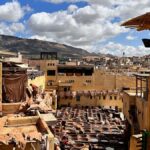
The 20 Best Souvenirs to Buy in Morocco
Sign in to your account
Username or Email Address
Remember Me

How Do I Avoid Tourist Scams In Morocco?
Imagine yourself wandering through the vibrant streets of Morocco, mesmerized by the bustling souks and awe-inspiring architecture. As you immerse yourself in the country’s rich culture, it’s important to be aware of potential tourist scams that can put a damper on your experience. From overpriced goods to fake tour guides, navigating the tourist traps can seem daunting, but fear not! In this article, we will provide you with valuable tips and tricks to ensure you have a safe and authentic adventure in Morocco. So, grab your tea and get ready to uncover the secrets of avoiding tourist scams in this enchanting North African country!
Table of Contents
Planning and Preparation
Research and Educate Yourself
Before traveling to Morocco, it is essential to conduct thorough research and educate yourself about the country. Familiarize yourself with its culture, customs, and local practices. Understanding the local norms will not only ensure a smoother trip but also minimize the risk of falling victim to scams. Read travel guides, watch documentaries, and interact with experienced travelers to gain insights into the country.
Be Aware of Common Scams
Being aware of common scams in Morocco is crucial in order to protect yourself and your belongings. Unfortunately, tourists, especially those who are unfamiliar with the local environment, can be targeted by scammers. Some common scams include overcharging for products or services, offering fake tours or activities, and distracting you while an accomplice steals your belongings. Stay vigilant and learn about these scams to avoid becoming a victim.
Learn Basic Phrases in Arabic
While English is spoken in many areas of Morocco, especially in tourist hotspots, it is still beneficial to learn some basic phrases in Arabic. Not only will this help you navigate through the country more easily, but it will also show the locals that you have made an effort to respect their culture. Simple greetings, phrases for asking directions, and expressing gratitude can go a long way in creating positive interactions with locals.
Choosing Accommodation Wisely
Book from reputable sources.
When choosing accommodation in Morocco, it is important to book from reputable sources. Use well-known booking websites or book directly through established hotels. This will ensure that you receive the services you expect and minimize the risk of encountering scams or fraudulent accommodations. Reading reviews and checking for any red flags such as negative feedback or reports of scams can give you further assurance in making your decision.
Read Reviews and Check Ratings
Before finalizing your accommodation, take the time to read reviews and check ratings from previous guests. These reviews can provide valuable insights into the quality of service, cleanliness, and safety of different accommodations. It is advisable to prioritize accommodations with a high number of positive reviews and high ratings. Additionally, pay attention to any warnings or specific details mentioned in the reviews, as this could help you make an informed choice.
Navigating Transportation
Use licensed taxis.
When using taxis in Morocco, it is crucial to stick to licensed ones. Licensed taxis are usually colored red and have official markings. These taxis operate on meters, ensuring fair and transparent fares. Avoid getting into unmarked or unofficial taxis as they may overcharge or take advantage of tourists. It is also advisable to ask your hotel or a trustworthy local for recommendations on reliable taxi services.
Agree on Fare Beforehand
Before getting into a taxi, always agree on the fare with the driver beforehand. This is to avoid any confusion or disputes later on. Although licensed taxis should use meters, it is always better to confirm the fare to your destination to prevent any unexpected surprises. If the driver refuses to use the meter, consider finding another taxi that employs fair and honest practices.
Be Cautious with Unofficial Guides
While exploring tourist attractions or popular areas, you may encounter individuals who claim to be unofficial guides. Exercise caution when engaging with them, as some may exploit tourists by providing inaccurate information or demanding excessive fees for their services. To ensure a reliable and trustworthy experience, it is recommended to seek guidance from licensed tour guides or rely on reputable tour companies.
Protecting Your Belongings
Secure your valuables.
Protecting your belongings is crucial, especially in crowded areas such as markets or tourist sites. Keep your valuables, including passports, wallets, and electronic devices, securely on your person or in a locked bag. Consider using a money belt or a hidden pouch to keep your valuables discreetly concealed. Avoid displaying expensive jewelry or carrying large amounts of cash, as this may attract unwanted attention.
Beware of Pickpockets in Crowded Areas
Morocco, like any other tourist destination, has its share of pickpockets. Be particularly vigilant in crowded places, such as busy markets or public transportation. Keep your bags closed and in front of you, avoid placing wallets or phones in easily accessible pockets, and be mindful of your surroundings. If someone bumps into you or acts suspiciously, immediately check your belongings to ensure nothing has been stolen.
Interacting with Locals
Be wary of overly friendly strangers.
While Moroccan locals are known for their hospitality and warmth, it is important to be cautious of overly friendly strangers. Some individuals may approach you with offers of assistance or invitation into their shops or homes, but it is crucial to exercise skepticism and ensure that their intentions are genuine. Politely decline if you feel uncomfortable or suspect ulterior motives.
Avoid Unsolicited Help
In popular tourist areas, you may encounter individuals offering to help guide you or show you around. While their intentions may be well-meaning, it is advisable to decline unsolicited help from strangers. There have been instances where tourists have been taken advantage of or led into situations where they were coerced into making purchases or paying for services they did not want or need. It is best to rely on information from trusted sources and official guides.
Negotiating Prices
Bargaining is expected.
Bargaining is a common practice in Morocco, particularly in markets or when purchasing goods or services from street vendors. Keep in mind that the initial price quoted is often higher than the actual value, so be prepared to negotiate. Approach bargaining with a friendly and respectful attitude, and be willing to compromise. Enjoy the experience of haggling but remember to stick to your budget and be prepared to walk away if the price is not reasonable.
Research Prices in Advance
Before engaging in any negotiations, it is helpful to research the average prices of goods or services you are interested in. This will give you an understanding of the reasonable price range and prevent you from being overcharged. Knowing the general market value also empowers you to make informed decisions during the bargaining process. Take note of any price discrepancies, and if something seems too good to be true, it probably is.
Know When to Walk Away
While bargaining can be an enjoyable part of the Moroccan shopping experience, it is important to know when to walk away. If negotiations are not progressing or if the vendor is unwilling to meet your budget, politely decline and explore other options. Remember that there are often multiple vendors selling similar products, and by walking away, you may find a better deal elsewhere. Trust your intuition and prioritize your financial well-being in any negotiation.
Avoiding Gem and Carpet Scams
Beware of fake gems.
Morocco is renowned for its gem and jewelry markets, but unfortunately, there are instances of counterfeit or low-quality gems being sold. Familiarize yourself with the characteristics of authentic gemstones before making a purchase. Consider purchasing from reputable jewelers or obtaining a certificate of authenticity. Ask questions, inspect the gems under good lighting, and seek recommendations from experienced gem enthusiasts to minimize the risk of falling for fake gems.
Don’t Fall for Aggressive Sales Tactics
When it comes to purchasing carpets, be cautious of aggressive sales tactics. Some carpet vendors may employ high-pressure selling techniques or claim that their carpets are of remarkable value or limited availability. Take your time to browse, compare prices, and educate yourself about the quality and value of different carpets. Trustworthy vendors will allow you to make an informed decision without pressuring you into a purchase.
Eating and Drinking Safely
Choose clean and hygienic restaurants.
To ensure safe and hygienic dining experiences, choose restaurants and eateries that uphold high cleanliness standards. Look for places with good reviews, high ratings, and a visible focus on cleanliness. Consider restaurants that are frequented by locals, as they often indicate a higher level of quality and hygiene. Additionally, be cautious of street food vendors, as not all may meet the same hygiene standards as established restaurants.
Be Cautious with Street Food
While indulging in street food is a highlight for many travelers, it is essential to exercise caution and ensure the safety of the food you are consuming. Look for food stalls with long queues or a high turnover of customers, as this indicates that the food is likely to be freshly prepared. Avoid consuming raw or undercooked food, and always prioritize hygiene by choosing clean and well-cooked options.
Stay Vigilant in Touristy Areas
Stay alert in popular tourist spots.
Touristy areas in Morocco can be target-rich environments for scammers and pickpockets. Stay alert and vigilant in crowded spaces, such as famous squares, markets, or attractions. Keep your belongings close and avoid displaying valuable items. Be wary of distractions or overly friendly individuals who may be attempting to divert your attention while an accomplice steals your possessions. Enjoy the sights but remain cautious of your surroundings.
Ignore Touts and Street Vendors
Street vendors and touts in touristy areas often approach tourists aggressively, offering various products or services. It is advisable to ignore them and walk past without engaging. Engaging with touts may encourage further persistence or even aggressive behavior. Remember that you are under no obligation to buy or accept any unsolicited offers from street vendors. Instead, focus on enjoying your visit and seek out trusted sources for any goods or services you require.
Respecting Local Customs
Dress modestly in conservative areas.
In more conservative areas of Morocco, it is important to dress modestly out of respect for local customs and to avoid any unwanted attention. For women, this typically means covering shoulders, avoiding low necklines, and wearing longer skirts or pants. Men should also dress modestly, avoiding shorts and sleeveless shirts. By dressing appropriately, you not only show respect for the local culture but also enhance your own safety and blend in more seamlessly.
Seek Permission before Taking Photos
Before taking photos of individuals or cultural sites, it is courteous to seek permission. While many locals are open to being photographed, it is always best to ask first out of respect for their privacy. In certain areas or during religious ceremonies, photography may be prohibited altogether. By seeking permission, you foster positive interactions and preserve the dignity of the people you encounter. Remember to respect any restrictions or requests to refrain from taking photos.
Moroccan Scams to Avoid on Your Next Visit

As with almost every nation on earth, there are a few common tricks and scams that are common in Morocco , especially in areas that see a large number of international tourists. Con artists usually seek to make a quick buck and relieve people of money unnecessarily, so be aware and be smart on your next trip to the kingdom and don’t fall prey to the tricksters.
Unwanted henna tattoos.
Henna tattoo artists are prevalent in Morocco’s tourist areas, especially in large squares like Marrakesh ’s Jemaa el Fnaa and similar. In an attempt to trick people into paying for a design, artists sometimes bump into a tourist or cause henna to get on their skin in some other way. As an apology they will offer to do a full design, after which a fee is demanded, sometimes rather aggressively.

Rigged ATMs
Illegal hash is big business in Morocco, with some farmers around the Rif Mountains making a living from the cultivation of hashish. One con involves corrupt police officers and hash dealers, who work in cahoots to extort money from unsuspecting tourists. Dealers sell hash to customers and then tip off the police, who then ‘confiscate’ the weed, often for resale to another tourist, and demand a hefty bribe to avoid taking matters further.

Become a Culture Tripper!
Sign up to our newsletter to save up to 500$ on our unique trips..
See privacy policy .
A common trick is for vendors to sell fake goods to tourists at highly inflated prices. If you’re looking for a genuine Arabian, Berber, or Persian carpet, for example, it’s best to have an idea of what to look for to ensure authenticity, and also to have an idea of acceptable price ranges. Gems, precious metals, antiques, ceramics, and the locally produced argan oil are a few items to be vigilant about when making a purchase.

Missing purchases
If you buy anything in the souks , markets, or smaller stores, always check that everything is in the bag before you walk away. There are times when sneaky store owners leave a few items out when packing things into a plastic bag or wrapping items up in paper for protection.
Unlicensed tour guides
Many independent tourists will find themselves inundated with offers for guided services at major attractions and in popular tourist cities and towns. Although authorities are clamping down more and more on unlicensed guides, it is still common for people to chance their luck and try to make some fast money. Such people can be very persistent and almost rely on wearing people down so that they accept. In many cases, the tour isn’t very interesting, useful, or engaging, and visitors often find themselves being guided into a shop or to a market stall where they will be pressured into parting with more cash.

No change available
Whether paying for goods or services at markets, small stores, taxis, tour shops, restaurants, guest houses, guides, or similar, be prepared to be told, with a smile, that the person regretfully does not have change. People often try this trick when the due change amounts to a couple of dollars or less, in the hope that the consumer will simply say it’s no problem and thus round up the amount owed. Ensure that you carry small notes, ask if change is available before sealing the deal, or, if necessary, cancel the sale or booking and request your full amount of money back.
A common ploy for getting people into shops is to offer a complimentary glass of mint tea , with assurances that there is no expectation to buy anything. After what seems like pleasant hospitality and conversation, vendors often try the hard sell. Some may also eventually demand payment for the tea if no purchases are made.

Taxi tricks
If taking a metred taxi, always ensure that the driver turns on the metre at the start of the journey and that the metre reads zero when getting into the vehicle. If a driver refuses to use the metre, refuse their services and find an honest cab driver. The larger, grande taxis don’t have metres, so prices must always be negotiated before the journey. If you forget, you will invariably find that a heavily inflated sum is demanded when you reach your destination.
Be cautious when going to bus stations; dishonest taxi drivers may take you to another taxi stand instead, insisting that the only way to reach your desired destination is to catch a cab. Beware of shared taxi scams too; sometimes, taxi drivers trick people into agreeing to take a taxi by quoting an attractive price for the ride. It is only afterwards that people realise the price is actually for one seat, and that the vehicle won’t leave until all seats are full. This can result in travellers paying for each seat for a journey.
Restaurant bills
Always check prices on the bill in a restaurant, and avoid eating anywhere where the prices are not marked on the menu. Try and keep hold of a menu until the end of your meal to check any discrepancies; some restaurants have two menus with different prices to try and trick people. Also check that extra items haven’t been added on. Check whether bread , olives, and water are free before consumption to avoid unexpected items appearing on the bill.

Closed attractions
If somebody approaches you to say that a particular attraction is closed, go and see for yourself and don’t accept any alternative recommendations; the chances are high that the original place is, indeed, open, and that the ‘helpful’ stranger is trying to make commission off taking you to another attraction, pressuring you to buy something, or getting you into a taxi.
Don’t take pictures of people in costumes or with animals like snakes and monkeys, unless you are prepared to pay for it. Beggars are prevalent in Morocco, with some who aren’t actually in genuine need but make a living from playing on the sympathies of visitors. In some areas, locals try and persuade tourists that there is an admission fee to enter a medina or tannery. Disreputable desert camps may charge huge of amounts for meals and other services once they have people at their mercy far away from major cities and towns. Friendly strangers who offer unsolicited tips, recommendations, or directions often demand a ‘tip’ afterwards. Female travellers in particular should be cautious of overly friendly men: the Moroccan gigolo is notorious!

It may seem like there are many scams to avoid in Morocco, but with awareness, vigilance, and a dose of healthy caution, exploring Morocco is usually filled with many terrific experiences that will be remembered for all the right reasons.

KEEN TO EXPLORE THE WORLD?
Connect with like-minded people on our premium trips curated by local insiders and with care for the world
Since you are here, we would like to share our vision for the future of travel - and the direction Culture Trip is moving in.
Culture Trip launched in 2011 with a simple yet passionate mission: to inspire people to go beyond their boundaries and experience what makes a place, its people and its culture special and meaningful — and this is still in our DNA today. We are proud that, for more than a decade, millions like you have trusted our award-winning recommendations by people who deeply understand what makes certain places and communities so special.
Increasingly we believe the world needs more meaningful, real-life connections between curious travellers keen to explore the world in a more responsible way. That is why we have intensively curated a collection of premium small-group trips as an invitation to meet and connect with new, like-minded people for once-in-a-lifetime experiences in three categories: Culture Trips, Rail Trips and Private Trips. Our Trips are suitable for both solo travelers, couples and friends who want to explore the world together.
Culture Trips are deeply immersive 5 to 16 days itineraries, that combine authentic local experiences, exciting activities and 4-5* accommodation to look forward to at the end of each day. Our Rail Trips are our most planet-friendly itineraries that invite you to take the scenic route, relax whilst getting under the skin of a destination. Our Private Trips are fully tailored itineraries, curated by our Travel Experts specifically for you, your friends or your family.
We know that many of you worry about the environmental impact of travel and are looking for ways of expanding horizons in ways that do minimal harm - and may even bring benefits. We are committed to go as far as possible in curating our trips with care for the planet. That is why all of our trips are flightless in destination, fully carbon offset - and we have ambitious plans to be net zero in the very near future.

Guides & Tips
The ultimate luxury getaway on the moroccan coast.

See & Do
From marrakech to casablanca - a tale of two moroccan cities.

Culture Trip's Top Five Destinations for 2024

The Ultimate Guide to Holidays in Marrakech

The Best Trips for Desert Adventures

The Best Trips and Tours in Morocco

Ouarzazate - Morocco’s Hidden Hollywood Gem in the Desert

Local Insider - Highlights from Culture Trip's Epic Adventure to Morocco

Why Travelling Abroad for Christmas is a Great Idea

Glamping Under the Stars in the Sahara Desert, Morocco

Places to Stay
The best surf camps in morocco.

Top Reasons You Should Visit Morocco’s Atlas Mountains at Least Once in Your Lifetime
- Post ID: 1623976
- Sponsored? No
- View Payload

Top 10 Scams in Marrakech, and how to avoid them
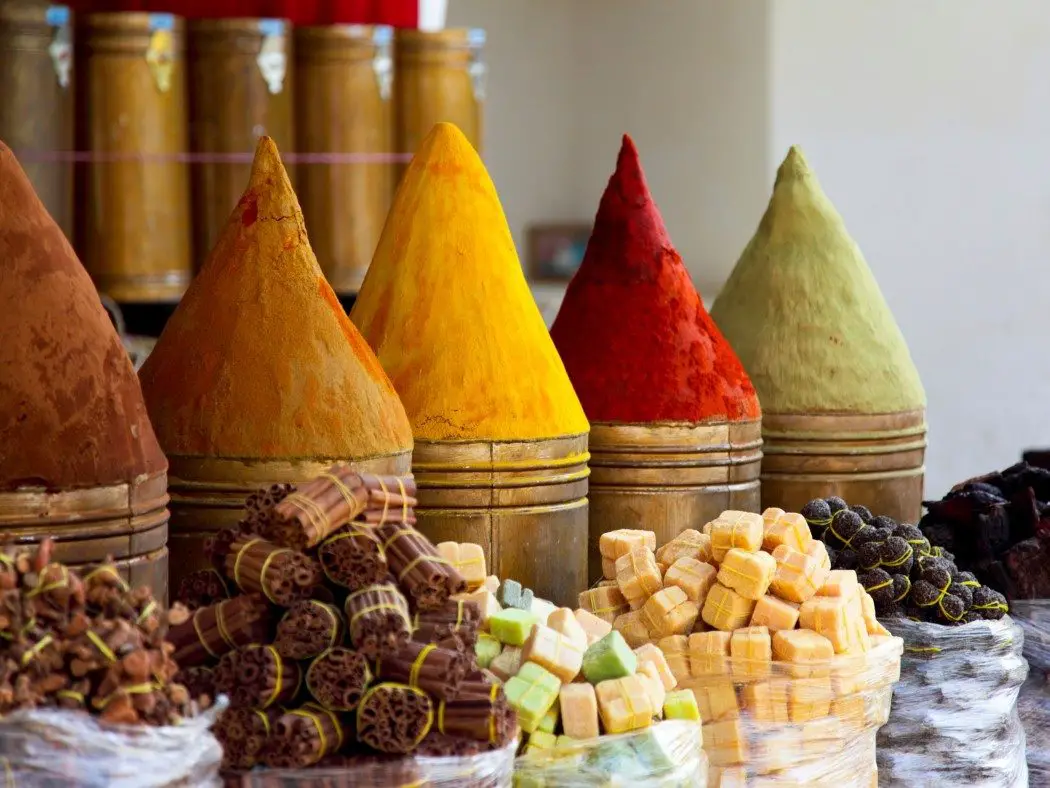
Wherever you go on holiday, there will always be someone willing to scam you. Whether it’s traffic officers in South Africa trying to fine you for non-existent road offences, fake saffron sellers in India, or the good old broken taxi meter excuse heard all over the world. Morocco is no different, and in particular, scams in Marrakech are something you should be wary of.
Yet it seems to us that Marrakech gets a fair bit of bad press regarding this, more than any other destination that we’ve been to. Is it because we’re more sensitive to Morocco given our love for the country, or is it because there’s almost an industry of tricks and scams?
Over the years we’ve learnt about many Marrakech scams the hard way, so thought it was about time to share some of the most common tricks that have been tried on us.
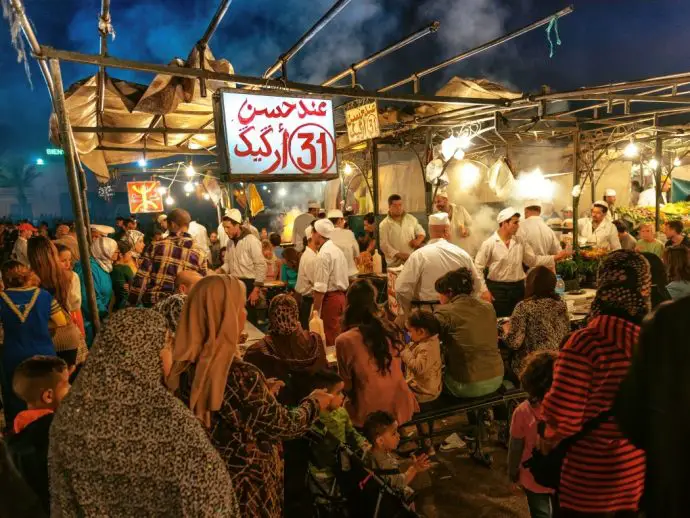
Djemaa el Fna night market
READ MORE : Top Instagrammable Places in Morocco
Top Scams in Marrakech
1. the helpful local #1 – ‘free’ directions.
Out of all the scams in Marrakech this one really makes my blood boil. Why? Because it erodes trust and has you being suspicious of anyone who offers assistance or directions. Most Moroccans are genuinely friendly and helpful to lost-looking tourists, but there are a few who are out to make money from your disadvantage.
It pretty much works like this.
You’re walking through the souks, camera slung around neck, copious bags of souvenirs in one hand, map in the other. You stop for a second to get your bearings and look at the map. It’s only been a second, maybe two, and….BAM…there’s the “helpful local”, asking if they can assist with directions. They are friendly and offer to show you the way. They don’t want anything for their time, just the opportunity to practise their English. If you aren’t firm with them at this point, you’ll have yourself an unofficial guide, taking you the most long-winded obscure route to your destination, and guess what? When you get there, they will want payment. You will of course initially refuse. But “helpful local” suddenly becomes “loud and obnoxious local”, causing a scene and trying to intimidate you into paying him. A crowd is now gathering as he flits between English and Darija (Moroccan Arabic).
You pay to get out of there quick.
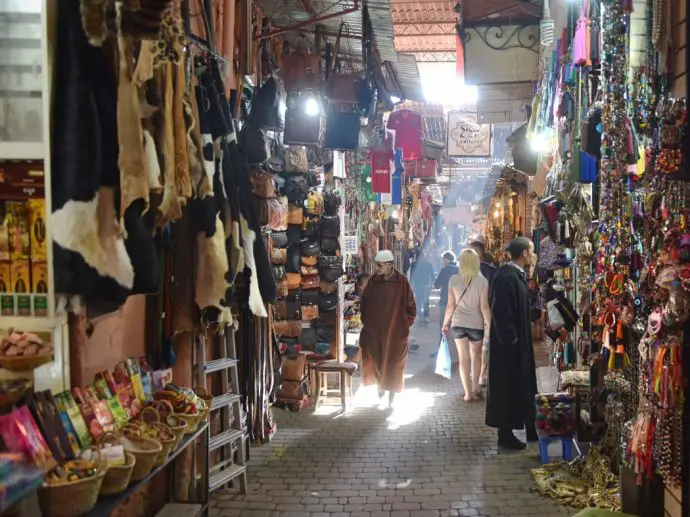
Deep in the souks
Some ways you can avoid this from happening:
- Look confident. Even if you haven’t got a clue where you are, walk with confidence. Try and keep the map hidden away. These “helpful locals” can spot a lost tourist a mile off.
- Politely decline. If you are approached by someone offering to give you directions, politely, but firmly decline with a simple “La, Shukran” (No, thank you). Keep declining even if they start to walk with you. We have started clearly saying “no guide” too, as it is illegal in Morocco to guide without a licence.
- Find the Tourist Police. If the “helpful local” persists, find the Tourism police (usually several to be found in the main square Djemaa el Fna) and report the incident – as per above, it is illegal to guide without a licence.
- Ask a shop or stall holder for directions. Generally speaking they will not want to leave their shop where they can earn far more money.
If you truly are lost and are at your wits end, then by all means take “helpful local” up on their offer but go into it knowing that despite what they say to the contrary, they will want payment.
Yet remember, not all “helpful locals” are out to scam you in Marrakech. I get quite abrupt with persistent offers of ‘free’ help and once snapped at a man who stopped to offer us directions outside the souks. It turned out to be a genuine offer of help and I was mortified I’d been rude.
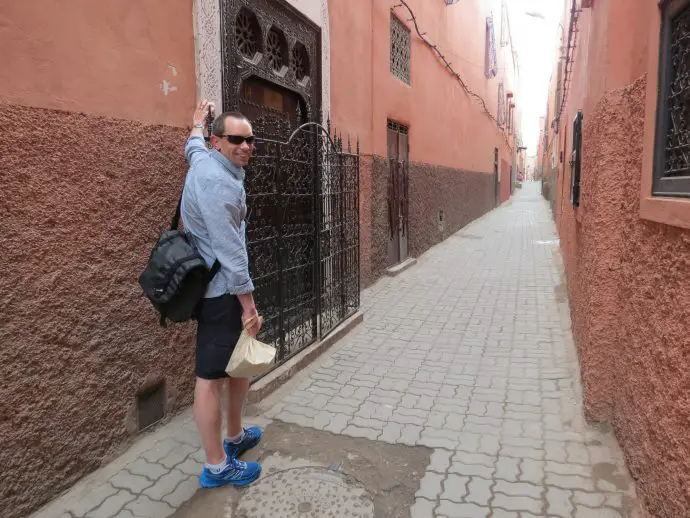
Getting lost in Marrakech is all part of the fun
2. The Helpful Local #2 – the Tannery Trail
Yep, not a very imaginative title, but “helpful local #2” is quite similar to “helpful local #1”, just with a slight twist. This was the first scam that we fell victim to on our inaugural visit to Marrakech, and it still annoys me nearly a decade later.
It involves the tanneries.
We wanted to visit the tanneries and had declined all offers of a guide since we had plenty of maps. How hard could it be? Of course we got completely lost. Marrakech maps all seem to be slightly different, and none really give a true reflection of the street layout.
Needless to say it didn’t take long until…BAM…“helpful local #2” was there offering us directions “all for free”. We knew we were getting scammed but having spent the last half an hour failing to find the tanneries, we didn’t have much of a choice. Little did we know quite how much this escapade would end up costing us!
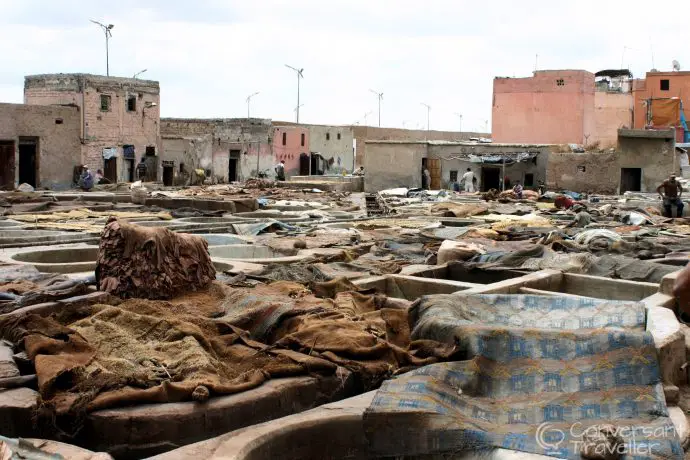
Marrakech Tanneries
“Helpful local #2” gave us the directions, but didn’t come with us, which we thought was strange. At the next junction “helpful local #3” picked us out of the crowd and asked if we were looking for the tanneries, also giving us “free” directions. On we went, still no guide tagging along – this wasn’t part of the rules we’d read up on! We had one more turning and guess what? “Helpful local #4” pointed us in the direction of the tannery entrance (which just happened to be through a shop), where surprise surprise, the original “helpful local #2” was talking to the shop owner. How does that all work! (Yes, we know, a simple invention called the mobile phone and the ability to describe two lost tourists!).
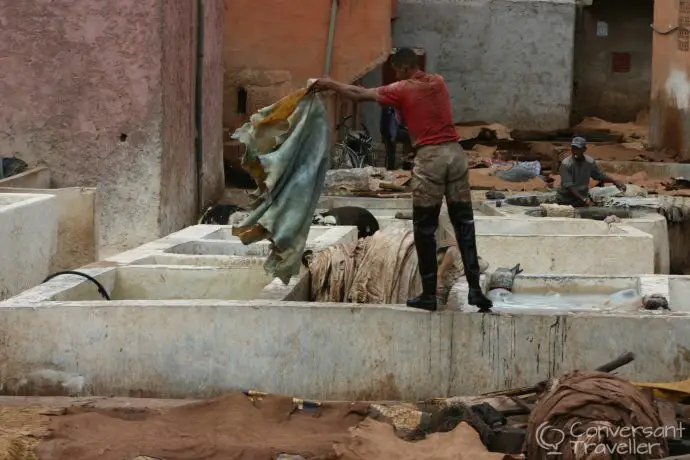
Working hard in the tanneries, Marrakech
Finally we were shown around the tanneries by an unofficial guide and did actually learn a lot. And all that was, ahem, “free”. But of course to exit we had to go back through the shop, where the mint tea and tray of biscuits were waiting. As was the shop owner with a plethora of carpets, rugs, and other fabrics to sell us. And this is where the scam really kicks in. Thankfully we were really switched on and walked out….with only one rug that a cost us over £100 ! At least “helpful local #2” took us back to the main street. But did he have to look quite so smug having just earned quite a large commission?
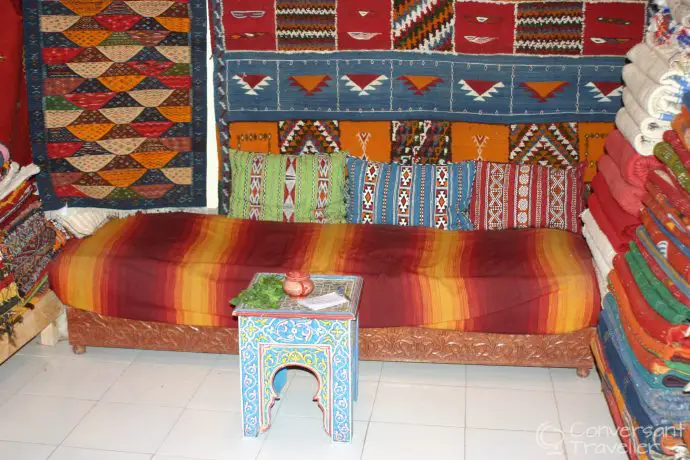
The Marrakech tannery district, and the shop where the carpet deal was done
Top tip: if you’re ever offered mint tea in a shop, know that by accepting hospitality you are also agreeing to make a purchase.
Search Marrakech Hotels Here
3. Dirham for a Euro?
We’ve only experienced this one from children. They’ll approach you and ask you for 10 dirhams for the one euro coin they have ‘found’. They can’t use it so thoughtfully considered the tourist who might have a need for one. Be warned. It’s a fake coin, and by the time you realise, the little darlin’ has given it legs and is scampering off into the crowd with your 10 dirhams.
4. Marrakech Restaurant Scams
We’ve never experienced this (perhaps because we tend to eat at the best restaurants in Marrakech ), but know people who have. There are two scams here:
Menu Swapping. The first is the old “menu switch-a-roo” trick. Menu 1, the cheaper of the two, is used to entice you in and order from. When the bill comes you have a nasty shock when it’s far more than expected. You complain and…BAM…out comes menu 2 – the considerably more expensive version!
Free Bread and Oils. The second Marrakech restaurant scam involves the “free bread and oils”. Be aware that only the first round is free. They will get replenished during the meal but the top-ups will be appearing in your bill. Even though they won’t bother to mention this fact to you.
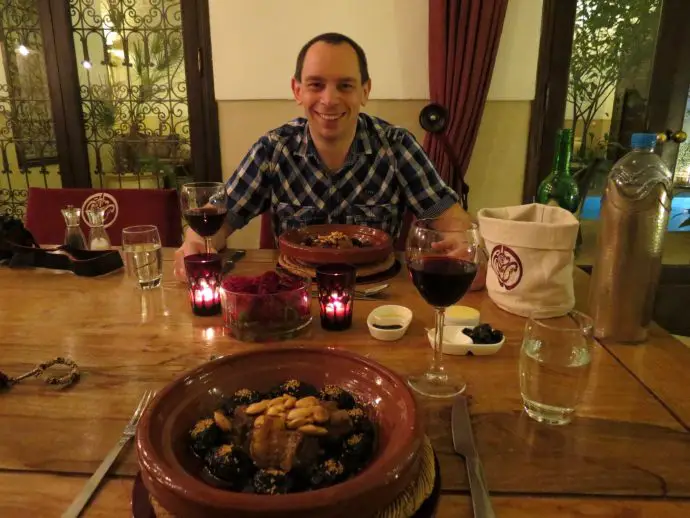
The best place (and scam free!) to eat is in your riad – this is one of our favourites, Riad Assakina
How to avoid the Marrakech restaurant scams:
- Do your research. Ask your riad hosts, look at guidebooks and also our post on the best restaurants in Marrakech to help you decide where to eat.
- Photograph the menu. If you get the vibe that something isn’t quite right, you can always take a photograph of the menu you order from, just to be on the safe side.
- Pay what you think is reasonable. If you fall foul of this scam you can always just pay what you think is fair, based on the original prices you saw. It can be quite an intense situation to deal with, and the establishment may threaten to call the police, but this is unlikely – this Marrakech scam is well known to the police.
READ MORE : Best Restaurants in Marrakech
5. Free Moroccan Pastries
This is another Marrakech scam we fell for in our early days of visiting Morocco. Whilst walking around the Koutoubia Mosque gardens we were approached by a street vendor with a tray full of freshly baked pastries. They smelt delicious. “You want to try a free pastry?” he asked us. Who doesn’t right? So Her Ladyship took one. He then offered the rest of us the tray and asked “You want a pastry?” Notice the complete lack of the word “free”. We didn’t at the time…BAM…I’m suddenly thrown into haggling mode trying to talk the guy down from an extortionate price per pastry. They were tasty, but not worth £5 each!
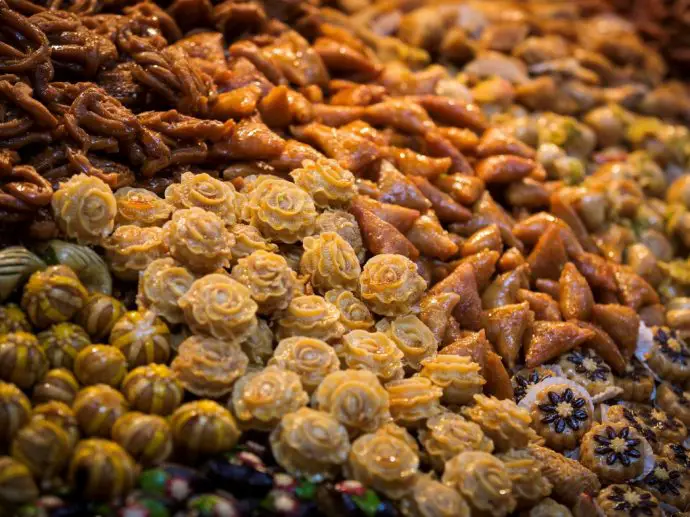
6. The Road is Shut
It really isn’t, but that’s what “helpful local, erm, I’ve lost count, #5?” will tell you. This is one of the most common scams in Marrakech, and can happen anywhere.
We’ve experienced this in two different locations.
The first incident got quite confrontational. We were making our way back to our riad along a route we’d trodden many a time, when just 20 metres from our accommodation…BAM…a man approached from behind and challenged us, telling us that tourists weren’t allowed down the alley and it was shut. I politely explained to him that it wasn’t shut, and we were going down the alley. He got very heated and used some “choice language” (obviously a huge Samuel L Jackson fan). Thankfully I don’t get intimidated that easily and sent Her Ladyship to hammer on the riad door whilst I blocked the male from trying to stop her. It was clear that she was a bit shaken by the aggression, and understandably so. But as soon as the riad door was open and the staff heard the commotion they chased this chancer away, and within minutes had contacted all the surrounding riads to warn them and to try and identify the male. No one knew him. We suspect he wanted to take us on a very scenic detour to somewhere we didn’t want to go, all for free of course!
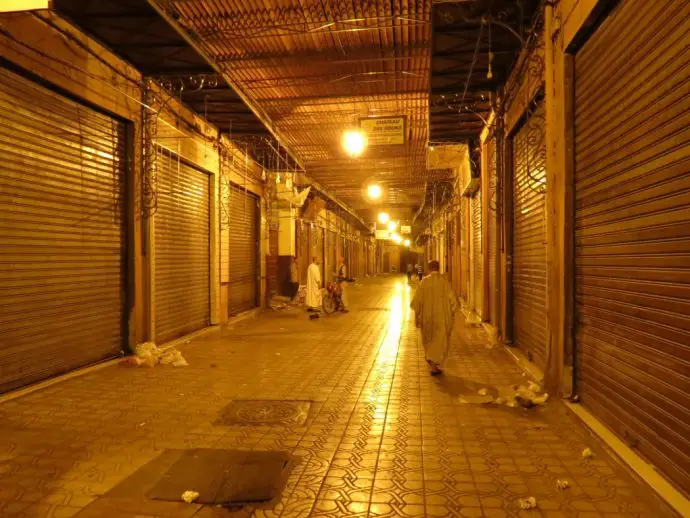
Some parts of the souks do close at night
The second incident was after a lovely evening meal we’d had at Comptoir Darna outside the old medina. We were walking back, and knew it was quicker and easier to cut through a certain section of the souks. As we entered a small group of locals told us that it was “shut”. Not going to fall for that one! So, despite their repeated calls in various languages, we ignored them and determinedly made our way. We got pretty much all the way through the section, then, wait for it…BAM…closed and locked shutters across the entire walkway. They had been telling the truth. Trying to walk back nonchalantly past the chuckling group wasn’t easy!
Top tip: Very rarely is a road or alley shut. From our own experiences, most of the street can be dug up, but there will still be a narrow walkway corralling people, donkeys and scooters through. We’ve never found an area of the old medina “closed to tourists”. If there are people walking in the same direction, it’s open. But just be aware…certain areas of the souks do get shut up at night.
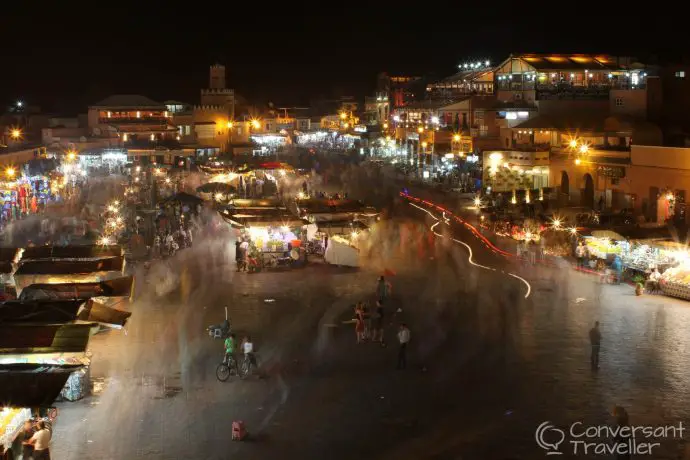
Night market at Djemaa el Fna
7. Those Pesky Henna Ladies
The Henna Ladies always try to scam Her Ladyship, something guaranteed to put her in a mood. There’s a lot of hustle and bustle in the main square, Djemaa el Fna, and lots to look at and to look out for. The Henna Ladies certainly fall into the latter category. They have quite an infamous reputation and can be quite confrontational despite appearing all docile and smiley.
Their main trick is to grab the hand of an unsuspecting passer-by and start drawing as quickly as they can. If you’re not “on your toes” and don’t stop them, they’ll be demanding money, even though you never asked for henna in the first place. The drawing itself can be quite poor quality and may only last a day. If they manage to get a design (or part of one) onto your hand they’ll then smear it if you refuse to pay up, leaving you stuck with the mess for at least a day or two.
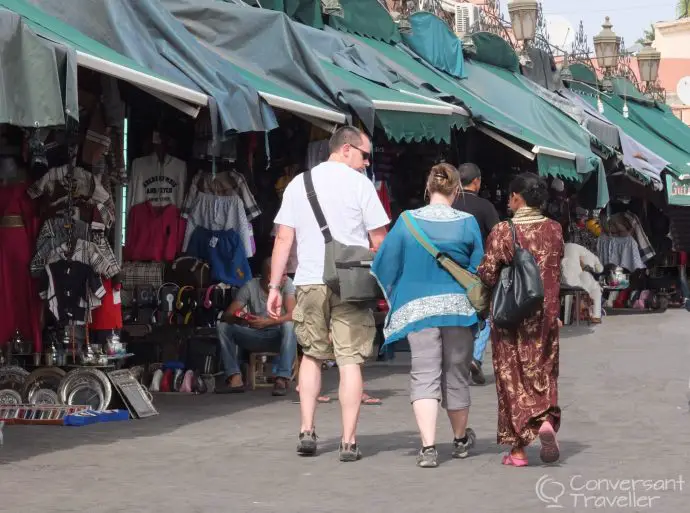
Her Ladyship is pounced on by a henna lady in Djemaa el Fna
The Henna Ladies also employ distraction techniques. They frequently approach Her Ladyship with compliments about her lovely eyes, whilst another Henna Lady tries to surreptitiously start inking her hand. Rather amusing considering she is always wearing her sunglasses. They really don’t always think these things through.
To not fall foul of these crafty and questionable “artists”, be wary around them and even consider keeping your hands in your pockets! If you do want them to henna your hand, then make sure you agree on the design and cost before they start, and be mindful that they’ll often create it much larger than you asked for, enabling them (in their eyes) to charge more.
Health Warning: Please be aware that some of the Henna Ladies may be using black henna, which contains a toxic chemical that could cause burns and allergic reactions. Whilst this can be used in permanent hair dyes (under strict regulation), it’s illegal in the European Union to use it on the skin when applied in the form of black henna. Real henna is orange in colour and has a red or brown tint to it. Be suspicious of anything darker. If you really want henna, we recommend going to an established henna café , or get your hosts to organise it with a reputable artist.
8. Street / Stall Traders
So this section is an overview of some tricks and scams that have either been tried on us, or we have heard of. Please, don’t assume that all street and stall holders are out to scam you, but at the end of the day they are out to make money. Just like you would be in their position.
Haggling in the Marrakech souks is expected and can be huge fun. It’s an art we think we’ve mastered quite well, and have written about it here . Yet it’s clear that some people don’t haggle and just pay the original asking price, which will be way above what the item is worth.
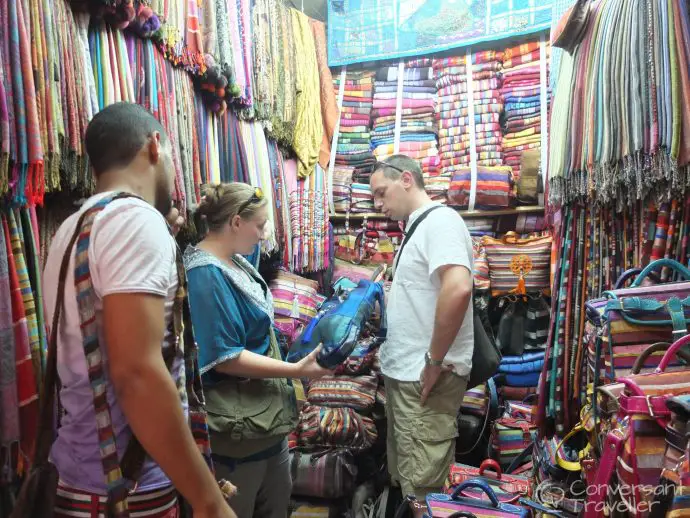
Haggling in the Marrakech Souks
Keep an eye out for these common Marrakech souk tricks:
The sympathy plea. Don’t fall victim to this. Remember the trader simply won’t sell you the product if he’s not making a profit.
The return. Any price you manage to negotiate is only valid for that moment. If you go away to “think about it” and return in half an hour, don’t expect to pay the price you had earlier agreed. The fun starts again, but this time at a higher price because they know you want the item. If haggling really isn’t your thing, then there are “fixed price” shops scattered around, such as the Ensemble Artisanal.
Always confirm the currency. This may seem a simple thing, but don’t assume the price has been quoted in dirhams. You don’t want to agree on a price only to discover that the trader was quoting the price in dollars or euros. The cheap piece of holiday “tat” has just become an expensive piece of “tat”.
Watch out for the old switch-a-roo trick. This has never been tried on us, but we have heard of tourists agreeing to a price for good quality leather/fabric goods, only for the original item to be swapped for one of inferior quality behind the counter. The tourist doesn’t realise because the item is wrapped.
No change. You’ve haggled hard, you’re happy with the price, but the trader then laments that he has no change, in the hope that you’ll just waive it. But don’t give in. They can easily go to the stall next door and get some change, and if they don’t, check your own change, and perhaps offer them slightly less than the original agreed price. Then stand back and see how quickly they can suddenly come up with the necessary coins.
READ MORE : How to haggle in the Marrakech Souks
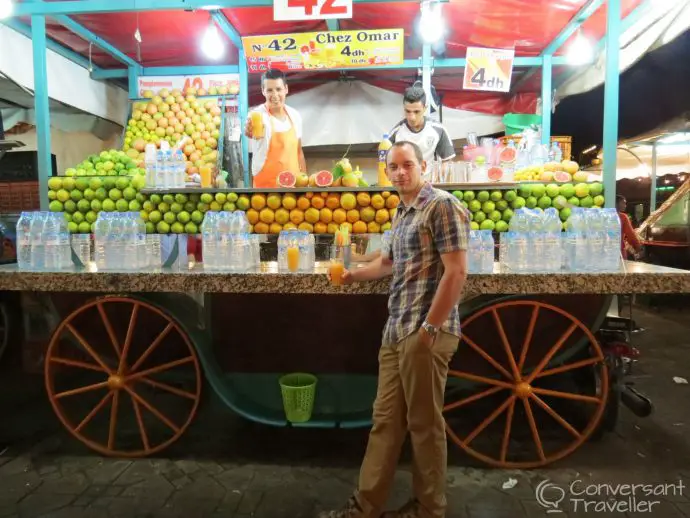
Orange juice sellers – they all have fixed prices and sometimes refill your cup for free to attract trade!
9. Taking Photographs
Pretty much anybody you take pictures of will want money, even shop/stall traders, unless you have just spent a fortune on their goods, then they’re usually more obliging. Which is fair enough. We certainly wouldn’t like tourists coming to our home town and taking photos of us!
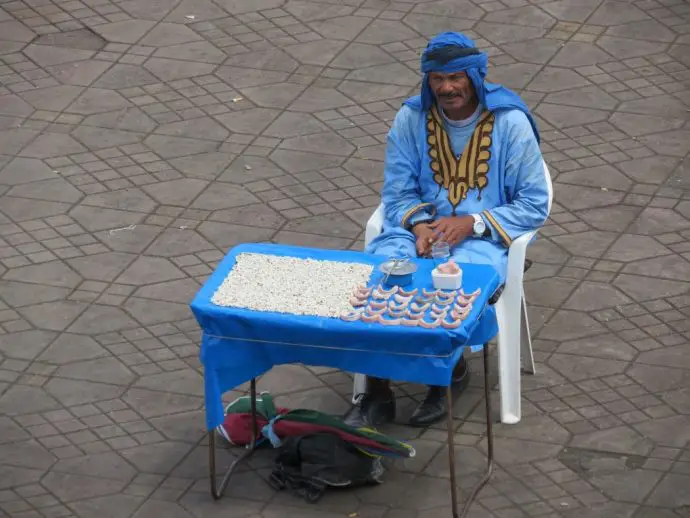
Traditional dentist in Djemaa el Fna
Be aware that the price of a photo will be far more extortionate in Djemaa el Fna (the main square), if you want to photograph any of the street performers, water sellers, traditional dentists, musicians or story-tellers. You should always ask permission before taking a photo of anyone, and always agree on a price before pressing the button .
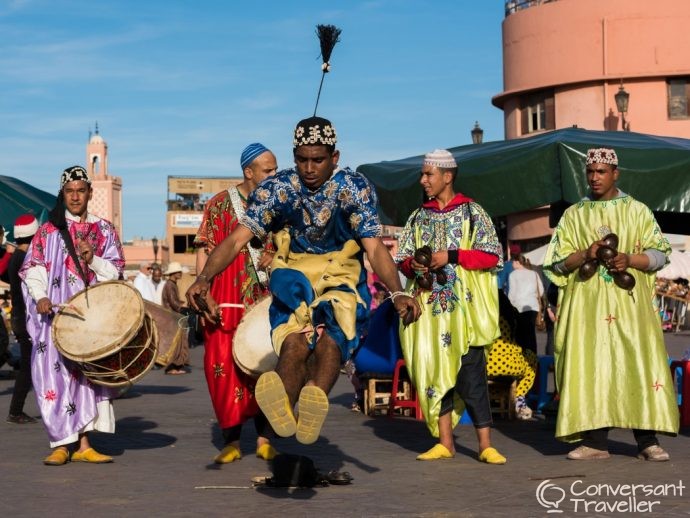
Street performers in Marrakech
The water sellers will walk up to you and start putting their hats on your head whilst encouraging someone in your group to take your picture. They’ve even been known to get confrontational if you refuse to take their picture! But of course, when their picture is taken, they want money. We didn’t fall victim to this scam, as we negotiated a price prior to taking a picture. Yet even though the water seller was elderly and there was a lot of background noise, there was nothing wrong with his hearing. He could hear the camera clicking away and started demanding more money than the agreed price, because according to him, it was per picture! If you find yourself in this situation, just walk away (having paid what you agreed). Yeah, they may follow you for a bit, may shout a bit, but whilst they’re doing that they aren’t earning money and will soon wander off.
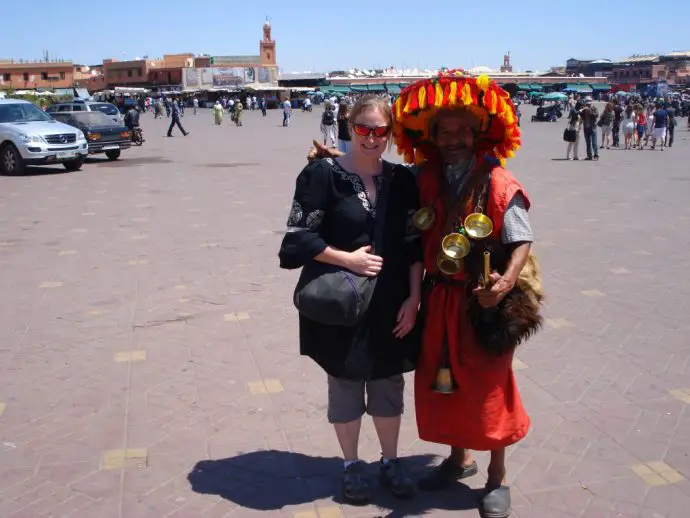
Her Ladyship with a water seller in Marrakech
Also be warned that when you’re taking an innocent photo of the square in general, if a street artist thinks he might be in the photo, he’ll come after you for payment. Her Ladyship was once chased right across the square by a snake charmer for this very reason. Never seen her run so fast.
Top Tip: Head up to one of the many cafe terraces overlooking the square. Order yourself a refreshing drink, sit back, relax, and get the zoom lens working. Up here you’re safe from hassle.
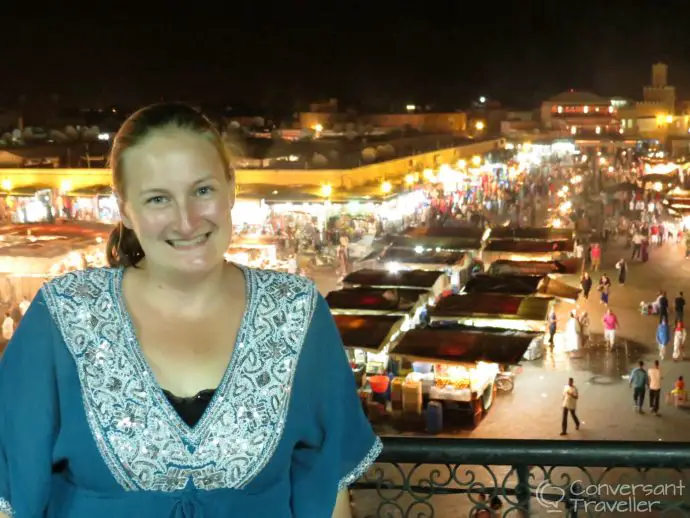
The best place to photograph the square is from a cafe – this is Cafe Glacier
READ MORE: Best Affordable Luxury Riads in Marrakech
10. Abhorrent Animal Handlers
I detest these people. You walk through Djemaa el Fna minding your own business and they’ll just dump a monkey on your shoulder or try and wrap a snake round your neck without warning and without permission. They will then either try and take your camera to take a picture or encourage people in your group to take a picture. Of course, once done, they demand an extortionate amount of money and become loud and try to intimidate you if you don’t pay up what they want.
Be warned, even firm and repeated refusals do not dissuade them from trying to pull this Marrakech scam. It’s best to give them a wide berth and don’t make eye contact with them.
I can’t convey in words how strongly we oppose this “trade” and find it hard to believe that in the 21 st Century ignorant tourists are still willing to pay to have their picture taken with one of these poor animals. Monkeys don’t belong on the end of a chain, having had their teeth pulled out, or in small cages when not needed to “perform”. Snakes don’t deserve to have their teeth or fangs removed and their mouths partially sewn up whilst being dragged around by their tails. Animal welfare in Morocco is poor, and isn’t going to improve any time soon if tourists encourage these people.
As I said at the beginning, we love Morocco and the vast majority of Moroccans we have met are warm, friendly and helpful people. Some of the best in the world in fact. You can go to any city in any country and there will be a myriad of scams in play. So please don’t be put off by what you have read here. Forewarned is forearmed which is why we have written this post. If you go being fully aware of the scams in Marrakech, we think you’ll enjoy your visit far more.
Where to Stay in Marrakech
Despite the scams, Marrakech is a wonderful place to stay for a few days, and one of our favourite cities in the world. It’s so vibrant, colourful and welcoming, and there’s so much to see and do, from palaces and museums to night markets and mosques. The best places to stay in Marrakech are the small, beautifully decorated riads in the medina (old town), as they’re authentic, opulent, and often quite cheap.
Here are a few of our favourites:
Riad Be – an instagram dream, with a gorgeously tiled courtyard and pool to match
Riad Yasmine – you’ll probably have seen photos of this stunning pool all over the internet, it has a beautiful roof terrace too
Riad Cinnamon – a lavish riad with colourful luxury suites (some with cool little mezzanines)
Riad Mur Akush – a friendly spot in a great location, and great value for money
Riad Assakina – a stunning English-run riad with larger rooms than you usually find in riads. Very friendly, and there’s free afternoon cake and tea!
Maison Arabe – one of the most famous places to stay in Marrakech, with incredibly decorated rooms, amazing service, and food to die for.
Search for more Marrakech Riads Here
Found this post useful? Why not pin it for later…
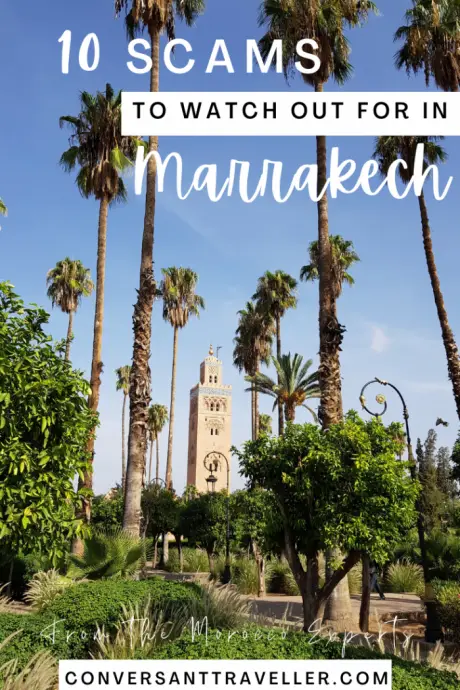
- Latest Posts
Hi, I'm Peter, and you'll usually find me hiding behind the camera whilst her ladyship steals the limelight. I have a bit of a thing for wildlife and the great outdoors, and used to be an adventure activity instructor here in the Lake District. These days I concentrate on the blog photography and gear reviews, and generally leave the trip organisation to Heather. As long as it involves orangutans and steers clear of raw fish dishes then I'm happy. I once got my head stuck through the railings of Buckingham Palace and have vowed never to ride a camel again.
- PremiAir – Manchester’s Luxury Airport Lounge
- What they don’t tell you about São Tomé and Príncipe
- Is travel insurance worth it?
You may also like
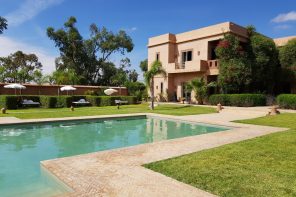
Riad, villa, or hotel? How to choose where to stay in Marrakech

Books about Morocco – 17 best novels set in Morocco
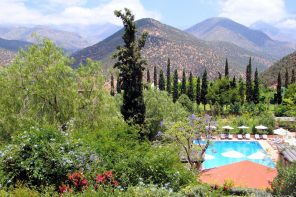
Luxury Marrakech & Atlas Mountains Itinerary
12 comments.
‘Love this. ‘Found you via Frank – BBQ Boy!
‘Sadly scams aren’t easy to avoid but it helps to have knowledge. However, just because we’re not abroad doesn’t mean we can’t be scammed if we let our guide down.
I’m a British expat and when I first moved to Berlin, I managed to get scammed. I was so annoyed that I ended up getting scammed a second time too! You can’t make it up!
Hi Victoria, great to ‘meet’ another Frank fan 😉 It’s true, you don’t expect it on your own doorstep so I think we tend to let our guard down in those situations – sorry to hear you got done twice, ouch! Hopefully there won’t be a third time!
Great blog guys. Experienced #local2 today and I’ve got to say sounds like you guys were quite lucky in your experience. We had a similar experience with a more sinister ending when we left the ‘official leather shop’. Having read more experiences online, in hindsight, we were quite fortunate too.
Great article to help visitors to Marrakesh and hopefully they do more Googling about potential scams than we did beforehand.
Apart from this sour experience, lovely country.
Hi Kieran, sorry to hear you were caught in the tannery scam too, it can feel really quite threatening being cornered in the leather shops can’t it. Hope you didn’t spend too much, and glad you’re loving the rest of your Morocco experience. Hope the remainder of your trip goes well!
Hi Pete and Heather,
Just in addition to your list, myself and my partner met a helpful young lad while walking around Marrakech who energetically told us that the street was forbidden because it was prayer time and there was a Mosque on it.
When we said that our Riad was down this street and that other tourists were on it, he pointed to my shorts and asked if I was Muslim. I said that I wasn’t and he started saying “Shorts no good!” and pointed us down a side street.
As I wasn’t 100% percent familiar with the clothing restrictions of Islam and didn’t want to end up in jail or something for pissing off the locals, we foolishly went down this side street and got lost there despite following some tourists, but met another guy telling us that another street was closed. We turned him away and went back the way we came, only to meet Helpful Local #1 again telling us to turn back. We ignored him and he followed us for quite a bit.
Seriously scary experience and, as Pete said, it makes you distrust every Moroccan offering help afterwards.
Great article!
Hi Dale, thanks for stopping by, and sorry to hear you had that experience, it’s quite stressful not knowing whether to believe what you’re being told or not isn’t it, especially when they follow you down the dark alleyways. Hope you still managed to enjoy the rest of your trip!
Thank you Mr. Peter for your article. Your criticism is in its place. Unfortunately, this is the bitter truth. Around Marrakech I have pointed out some things that no local Moroccan can talk about. I fully agree with you in everything you mentioned. All the negative things about Marrakech are there. As a local Moroccan, I am ashamed of these inhumane actions that some people use to raise money. They are hurting our country and tourism. The true people of Morocco welcome you all the time
Hi Nabil, thanks for stopping by. It is a shame that these scams go on, but we see similar things all over the world, I guess travellers just need to be aware. As we’ve always said, Morocco is an incredibly welcoming country, and we’ve only ever had a fantastic time in your wonderful country.
Thanks for the heads up, I’ll be taking lot’s of photos but I certainly won’t be handing any money over no matter how loud they get, my camera my photos. I’m just not sure if to take my camera or if my phone camera will do?
We were actually quite nervous about using our big SLR cameras on our first trip, but since take them everywhere we go and it hasn’t been a problem. Having said that, during our trip this month we only took i-phones and were quite happy with that too. Just remember if you’re taking close up pics of people, anywhere, you do need to ask permission as common courtesy, I know I’d hate tourists taking my pic here in the UK. Have a great trip!!
Great, great tips Heather. Looking forward to my 5 weeks in Morocco but not all these scams (I see they’ve just added a bunch since my lat visit there 30 years ago…)
I’m sure you’ll spot them all a mile off, seasoned traveller like you 🙂 Let us know if you spot any others we haven’t mentioned, you’re going to have an amazing time out there!
Leave a Reply Cancel reply
Your email address will not be published. Required fields are marked *
By using this form you agree with the storage and handling of your data by this website. *
This site uses Akismet to reduce spam. Learn how your comment data is processed .
More Stories

5 Destinations Perfect to Relax and Recharge
The world has experienced many changes during the last year or so during the current world health crisis. From the long months of lockdowns…
Privacy Overview

Morocco: How to Avoid Scams and Love Northern Africa
Known for its beautiful mosques and enchanting medinas , Morocco is a country to lose yourself in. The culture is a wide blend of its vastly different neighbors; Spanish to the North, Sub-Saharan Africa to the South, and Arabic to the East. There is so much fascinating history and culture to learn about in Morocco, in addition to trying all the amazing food.
But Morocco, as with most developing countries, has a lot of scams and a lot of ways for a shady character or two to ruin your trip. So, how do you stay safe in Morocco?
Pickpocketing and purse-snatching are some of the most common crimes against tourists in Morocco, along with theft from a vehicles while the driver is stopped in traffic (very common here). These are quite common in many countries. And Morocco also has its share of fake goods, lying tour guides, and ATM thefts. Be aware of them all, but be especially aware of some unique ones, like henna artist scams, monkey-gifting scams, and the various rackets surrounding Morocco’s famous and gorgeous rugs.
The main cities you must see are Marrakech, Casablanca, Fez, Rabat, and Tangier. Within these cities, you have to visit the local souk (traditional market) and take a tour of the mosques and temples. Make a point to try a variety of couscous and bastillas to get a real sense of this unique cuisine.
And while the prevalence of petty crimes and various scams shouldn’t stop you from exploring all that Morocco has to offer, you should prepare and educate yourself on how to best avoid sticky situations during your stay.
Street theft in Morocco and how to avoid it
Henna artist scams.
The art of henna is an ancient and highly respected part of Moroccan culture and history. It’s common for tourists to want to participate in this beautiful tradition, and for many artists – usually women – to make a living off this service.
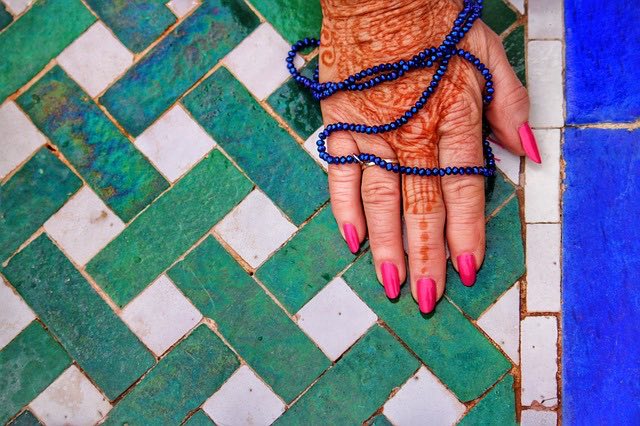
First, choose an item from their art-menu and notice the price. Confirm with the artist that that’s all you will be paying.
In multiple situations, henna artists have extended the pattern farther up your arm or leg than originally planned, and then charge you more for it. Second, watch what they are doing with caution, so you can get a sense of what you intended on paying for and what you’re actually getting.
Third, one common scam tourists have experienced in Morocco is surprise henna-attacks. You might be looking up at a beautiful mosque roof only to find a tiny henna design was drawn on your arm before you could even say no.
Then, even though you didn’t plan on getting henna, you’re expected to pay for that surprise design. Moral of the story is:
- Don’t stand too close to the henna artist stands, and
- Confirm the price before the work starts, and stay firm on paying only that much
Pickpocketing
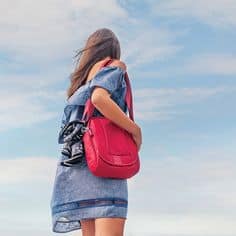
Often, it’s when you’re distracted by watching a street performer or by trying to help someone with directions when a valuable is stolen from your bag or pocket. Always be aware of your belongings and do what you can to make them harder to steal.
Animal attraction scammers

One day when walking through the square, I was shocked to suddenly have a toddler-sized monkey thrown at me. As a reflex I caught this strange monkey against my chest and tried to comprehend what was happening. I wasn’t comfortable at all with this monkey in my arms so when I gave the monkey back to the trainer, he said I owed him money. When I put up a stink about it, he started yelling and creating a scene.
Don’t become a victim of this scam- always be aware of your surroundings and don’t get too close to the animals unless you plan on paying for an experience. You just might have a monkey thrown at you.
Nice guy, bad intentions
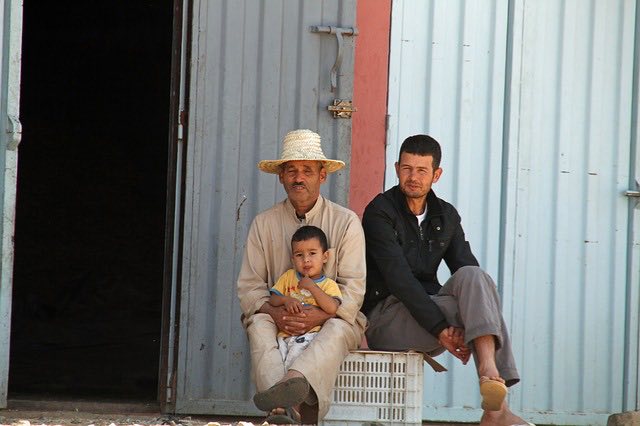
If you say no, this charming person in front of you becomes greedy and cold. Always be aware that any interaction with a stranger on the street can be expected to be paid for. If you need to get directions somewhere, ask a family or a store owner.
If you really want someone to take your picture, you might have to just settle for paying for it, or just bring a selfie stick. Selfie sticks are annoying, yes, but they’ve ruined photo scammers’ little rackets worldwide. I’ll get them that.
Fake beggars
Although Morocco is not considered a Third World country, it does have a large population in poverty and low-income. In most tourist destinations, you will find people begging for money and assistance.
While many of these people likely are desperate for any income, it’s been proven that many beggars aren’t as poor as they’d lead you to believe. Or, some of them are even faking disabilities to prey on the sympathies of tourists.
It’s obviously not possible to check if the blind person in front of you is telling the truth or not, so you must go with your gut. If you’re staying in one area for a few days or more, you might become more familiar with the local beggars and what other locals think about it.
At one hotel I stayed at in Casablanca, the concierge warned us that the woman outside begging for money for her children didn’t actually have any kids, and to not give her anything. If you’re not comfortable denying someone of charity, then consider giving out food or other necessities instead of money.
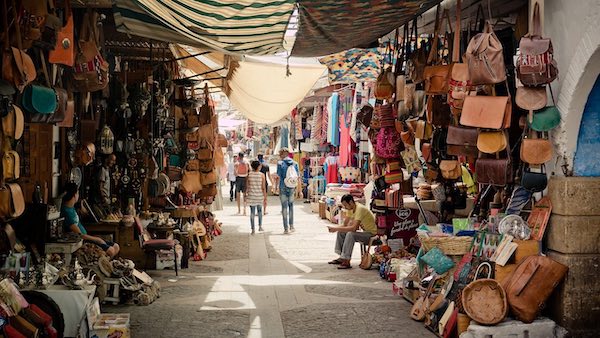
If you see a Chanel bag in perfect condition for only 2,000 dirham, a red flag should go up in your mind. The best way to avoid being scammed by these sellers is to do your research.
Make a point to understand the currency conversion to your home currency so that you know what a realistic deal for an item should be.
Also, if you plan on buying a high-end item, do your research on self-authenticating that item. Know what stitches and seams to look for and what the material should feel like. Don’t rely on the shop owner to tell you if it’s real or not.
Transportation Security in Morocco—Ride Safely
The most common way for tourists to get from the airport to their hotel is by getting in one of the numerous taxis waiting for them. While driving a taxi is common and respected job in Morocco, many of these drivers are willing to scam tourists for a couple extra dirham. The first sign you should look for when choosing which taxi to get in is for a meter. If the driver says they don’t use a meter but offer a fixed price to your destination, know that you’re being overcharged.
Choosing a cab that charges by the distance is less likely to scam you. However, a common way for all taxi drivers to make extra money is through commission. Stores, restaurants, and hotels will often offer a commission to taxi drivers who bring them customers.
You may already have a restaurant you want to go to, but the taxi driver will take you to a different one first in hopes you will settle for getting out there. You could potentially end up with an awful and/or overpriced meal and the driver gets a supplement to his income. The rule of thumb is to choose taxis with a meter, and to stick to where you plan on going regardless of your driver’s suggestions.
Public transport: buses and trains
Another common way of travel around many Moroccan cities is via public transport. Cities like Rabat and Marrakech have well routed systems for buses and trains. They’re also cheaper than hiring a taxi or renting a car. However, the buses can get extremely overcrowded, which is when you need to be thinking about your belongings. The U.S. Government considers buses in Morocco very dangerous in terms of theft and petty crime.
The more crowded an area is, the less personal space you have. This leaves you vulnerable to someone reaching into your backpack without you noticing. I saw this happen twice; once on a train in Rabat, the other on a bus in Fez. The best way to protect your belongings on crowded public transport is to only travel with your necessities, keep your cash in a belt, use a bag that has hidden zippers and slash-proof material, and always keep any credit cards protected with RFID blocking technology.
I like to use wallets that have this technology built-in, so that no matter who I’m standing next to, my cards cannot be scanned and scammed.
Rental cars
If you plan on renting a car in Morocco, as many tourists do, be aware of crimes that occur from your vehicle. Country Reports published an article that pointed to “theft from occupied vehicles stopped in traffic” as one of the most highly reported crimes from tourists in Morocco.
When you’re driving through the city in bumper-to-bumper traffic, you’ll see beggars going from car to car asking for money. If you open your window to give some money, you may be vulnerable to theft. In some cases, the beggar at your window is a distraction from another person opening your trunk or back door to take your stuff.
The solution? Don’t open your doors or windows for anyone, and keep all your valuables hidden even when you’re in the car with them. If you need to stop and get directions, go to the nearest bank or government service.
Scams in Morocco—don’t get taken
One of the most common scams unique to Morocco is the fake rug scam. Morocco is known for producing some of the world’s most unique and beautiful rugs and tapestries. Their reputation in that industry is an ode to the centuries of textile producing in Morocco’s history. It’s not uncommon for tourists to come to Morocco with plans of bringing home one of these gorgeous pieces.
Unfortunately, many people get taken advantage of by rug salesmen. One way this happens is by being lured into a rug store by another seemingly well-intention tourist who says they sold one these rugs back is to buy these rugs upfront, you may see the merit in making some money back home. Unfortunately, one too many tourists have gone home only to realize the rug they are trying to sell isn’t authentic, it’s actually made in China, and sells for half of what you paid.

The best way to avoid being scammed when buying a rug in Morocco is to do your research and go to a reputable store. Just because the lone traveler in your hostel wants you to go to one specific store doesn’t mean you should (and he is likely earning a commission on bringing tourists there).
Look at reviews online, talk to the hotel employees, and ask your tour guide for multiple store recommendations. Asking for more than one means they can’t insist you go to the one they profit from sending you to.
Tour guides
Speaking of tour guides, another common scam in Morocco is when you take a tour from a non-reputable company only to learn they aren’t real tour guides. This is unfortunately another common tactic for locals to make extra money.
You may be approached on the street by a professional and friendly face offering a full tour of the local attractions. You get sucked into how great it sounds and sign up for the tour. The guide takes you to the big sights, as well as a bunch of stores they are likely receiving a commission from. Then comes time for you to pay, and it’s astonishingly expensive, maybe even double what you originally were told. You’ll be expected to pay.
The best way to avoid this scam is to prepay for tours through your hotel and only with reputable and recognized tour guide companies. Always do your research on the company, their prices, and make sure they’re taking you to the sights you want to see. Not just their cousin’s rug store.
Hotel and Accommodation Security in Morocco—Secure Your Digs
Morocco has some of the most beautiful and lavish hotels in Africa, many with and without security features. When available, store your passport and other valuables in a safe. It’s always a good idea to bring your own portable safe that only you know the password to.
Hotels usually have an emergency password to get into the safes in the rooms in case guests forget the code. This leaves your belongings vulnerable.
Bring your own safe, and memorize where you keep it in the room. It’s not unusual for sketchy hotel staff to steal from guests’ rooms . Keep your room organized so you know exactly what has been moved or fiddled with while you were gone.
If your room has an outdoor terrace or patio, always keep the doors and windows locked- especially when you’re sleeping. Tourists have reported their belongings going missing from the room overnight, sometimes even while in the room sleeping.
Hotel staff often know the schedule of the guests and when they are fast asleep. They’ll notice if you left the window open on your terrace and take that as an invitation to come in and steal.

When you leave your hotel with your belongings , always be aware of where they are on your body. If you keep your things in a backpack, then you should invest in an anti-theft backpack or purse with hidden zipper, cut-proof material, and RFID blocking technology. If you use a money belt or necklace, make sure it also has the anti-scamming technology.
If you’re going to the Agadir Beach, have a plan for securing your belongings while you swim. Maybe take turns with your friends staying back with the stuff on the sand, or use a bag that locks to a stable object .
Beware of people who will try and distract you, so you don’t notice their friend stealing from your bag. Morocco is incredibly tourist friendly, but there are people with the intention of stealing from you. It’s your job to be prepared with the right equipment to protect your stuff .
Other Theft Threats in Morocco
My first time in Morocco I fell victim to a fraudulent ATM and had all my credit card funds stolen. Unfortunately, what happened to me isn’t a rare occurrence in Morocco. As tourists we need to withdraw cash so that we aren’t using cards to pay for every little thing.
The more you use your credit card, the more opportunities there are for someone to steal your information. The safest way to withdraw your money is to use an ATM at a bank or in a shopping mall – somewhere there are police and store owners always around.
The last thing you want to do, like I did, is to use an ATM on a random street surrounded by random people lingering and loitering nearby. Don’t go to an ATM in a sketchy area, and don’t go to one at night.
The Final Word on Safety in Morocco
Morocco is a beautiful, exotic, and exciting place to have an adventure. With so much rich history and culture to learn about, you’re never short on things to do and see. As with any other tourist destination, there are common issues with pickpocketing and petty theft.
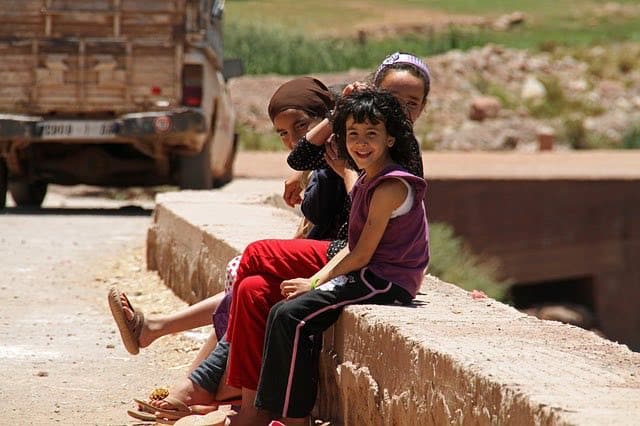
Learn what they did wrong, so you can be prepared; bring the right supplies to protect your valuables.
Although you may be distracted by the gorgeous scenery and delicious aromas, make sure you’re always aware of what’s going on around you and where your belongings are. As the UK government website mentions, Morocco is considered a generally safe travel destination for tourists, but it’s not unlike other bucket-list countries.
Your time in Morocco should be remembered for its souvenirs, desert nights on camelback, mouth-thrilling meals. Not by the heartbreak of having something you love stolen, and being intimidated and ripped off.
More resources on safety in Morocco
http://travelscams.org/africa/common-tourist-scams-morocco/
https://www.worldnomads.com/travel-safety/north-africa/morocco/crime-in-the-kasbah-morocco
http://www.countryreports.org/travel/Morocco/crimes.htm
https://www.lonelyplanet.com/morocco/safety
https://www.gov.uk/foreign-travel-advice/morocco/safety-and-security
https://travel.state.gov/content/travel/en/international-travel/International-Travel-Country-Information-Pages/Morocco.html
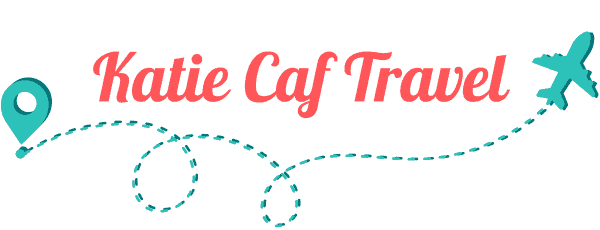
3 Times When I Was Scammed in Marrakech
Travel scams in Morocco are a HUGE problem! I was scammed over and over again on my first trip to Marrakech, so I wrote this guide to help first-time travelers in Morocco not get scammed! Since my first trip to Morocco , I have traveled the country three more times over the past three years. In my opinion, the scamming has gotten worse , but I have also gotten better at dealing with it.
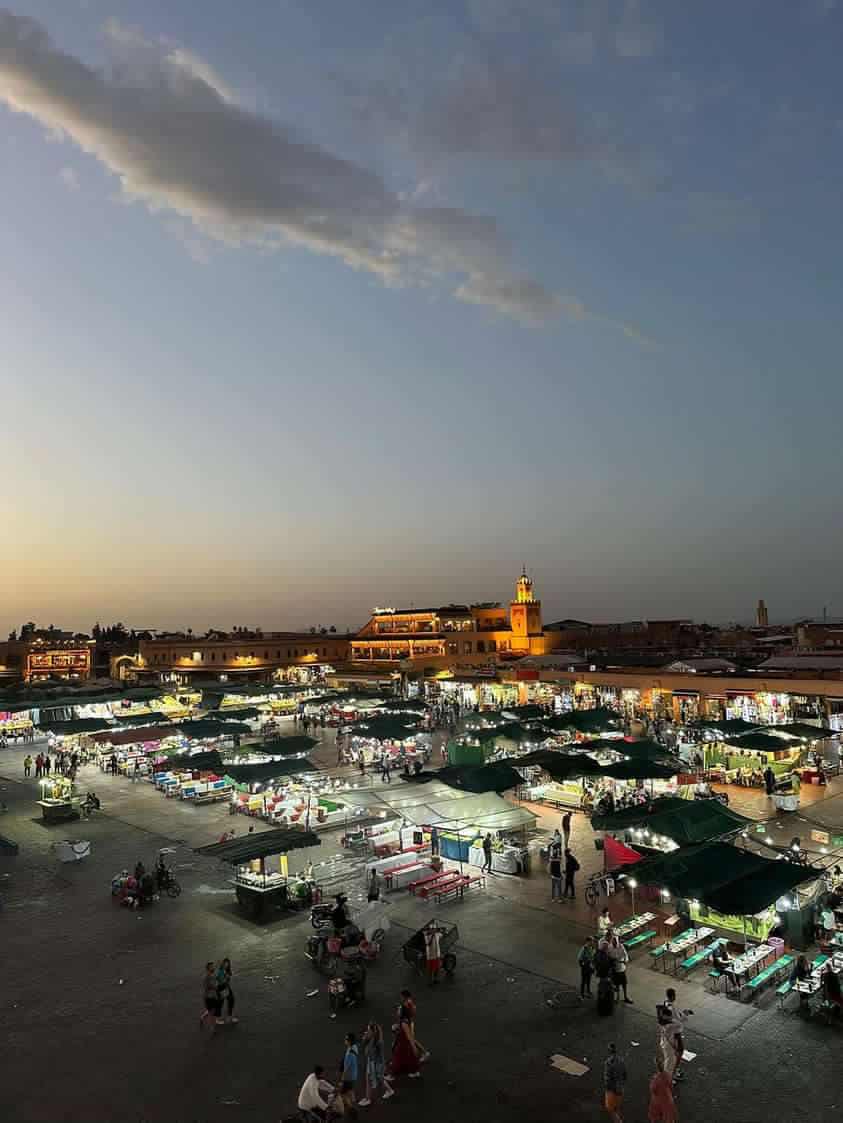
About Travel Scams In Morocco
Back before I was full-time traveling my friend and I went to Morocco for a week in 2019, where we fell for travel scams over and over. At the time I thought I was a savvy traveler; I had been around Europe, Asia, and a bit of the Middle East; but I was in no way prepared for the aggressive scammers in Marrakech. Guys would stop us in the street and put on Oscar-worthy performances, just trying to scam us out of a buck or two. After the 5th time in an hour of getting outright lied to, I would find myself getting pretty flustered. In hindsight, the “scams’ (or harassment, whatever you want to call them) are pretty humorous, and I want to share a few of them here with you all so you can be prepared on your next trip to Marrakech.

Morocco Travel Scam 1: The Wrong Way Guys
A “wrong way” scam is basically when someone sees a tourist and asks them where they’re trying to go. No matter what the tourist says, the answer is always the same: “oh no, you’re going the wrong way, here follow me”, and the scammer will proceed to lead the tourist to their shop/restaurant, or in more sinister cases somewhere secluded where there are other guys hiding to rob them.
It turned out I had experienced this scam before in Turkey, and maybe one day I’ll write about it here, but in Morocco, they bypass the formality of asking “Where are you going” and just skip telling every tourist they’re going the wrong way.
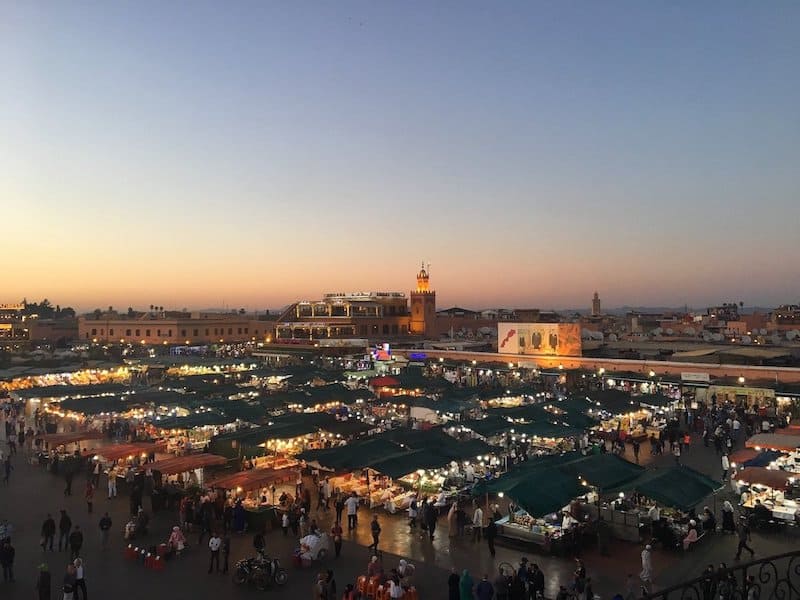
Walking down the lanes of the souk as an obvious tourist you’ll hear: ‘wrong way miss, wrong way please follow me” every 10 feet. It’s exhausting, especially if you’re not in on the secret and wind up being led in circles. I had a friend who went to Morocco around the same time as me and she didn’t know it was a scam. Some guy told her and her parents they were going the “wrong way” and led them to the leather tannery in Marrakech.
The tannery is a big tourist attraction in Fez, but in Marrakech, the tannery is a stinky secluded place they lead tourists to and then coerce or force them to pay money for a “tour” – if not outright rob them. Scary stuff!

The most impressive experience I had with the wrong-way guy was when I was walking down a main street to Bahia Palace. Some guy on a bike came speeding up behind us and skidded into a stop sideways along the street, blocking our path.
In an agonized scream he shouted “SISTERS! SISTERS PLEASE NOOOOOOOOO!!!!!” Like we had just slapped a baby.
My instincts were to just bypass this guy immediately, but my friend is more of a bleeding heart than me and she asked the man what was wrong. The conversation went as follows:
“Please, sisters. PLEASE. Do not walk any farther. You see… you are going the wrong way .”
I think he hid a bit of a smile at that last part, but it might have been my imagination.
He then followed up with:
“This street is sacred my sisters, there is a mosque on this road no non-muslims may pass. You must follow me, sisters, please!!! Quickly!!!”
There were legitimate TEARS appearing in this man’s eyes by this point. Meryl Streep eat your heart out.
Here I need to point out that while Morocco does have specific rules about non-muslims entering mosques, there’s nothing about simply passing one on the street. We saw many Westerners walking ahead of us unmolested, and as I said before this was a main road with lots of foot traffic, so I knew this guy was full of it. I grabbed my friend’s hand and we bypassed the hysterical bicycle man, and wouldn’t you know, there wound up not even being a mosque on that street 🙄.
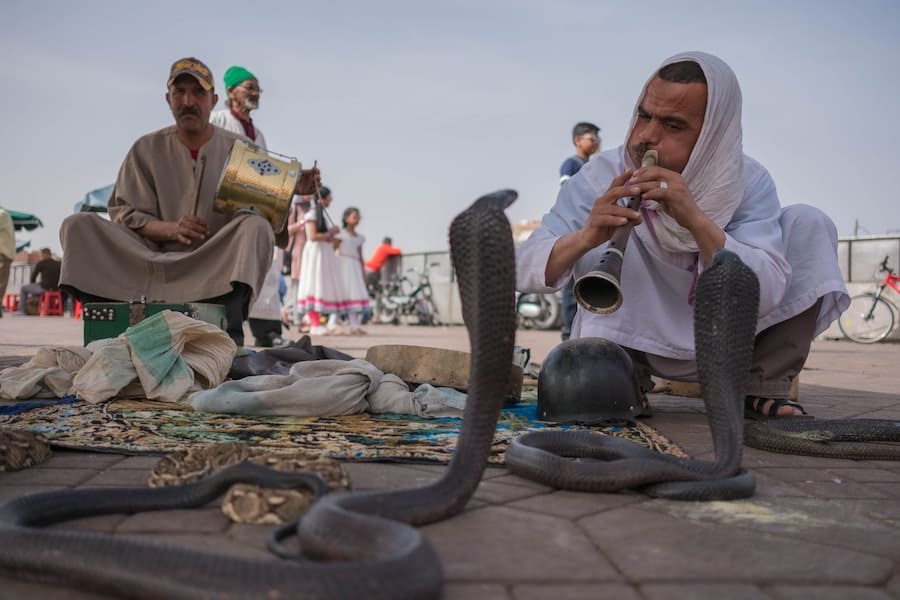
Morocco Travel Scam 2: Harassment At Jemaa el Fna Night Market
The night market at Jemaa el Fna Square is probably the most popular tourist attraction in Marrakech. There are nicer restaurants with rooftop bars overlooking Jemaa el Fna, and then inside the square, there are snake charmers, henna artists, street performers, and about 50 food stalls (all mostly selling the same thing). It’s (semi) organized chaos, and very fun.
As anywhere else I’ve been where there are lots of food stalls selling the same thing, the sellers are competitive – but the vendors in Marrakech are more aggressive than any I’ve encountered before.

The food stalls all look the same. I had tried to do some research beforehand on Tripadvisor and some people said “You need to go to stall 24!” and others said Stall 12, stall 11, etc. What I’m saying is it doesn’t really seem to matter, they all basically sell the same Moroccan street food .
Even if there was a specific stall I recommend, the hard part would be getting to it. Closely packed together, the food stalls hired touts to draw tourists in. Lots of places do this – hire guys to shout at tourists to come to eat at their restaurant from across the street.
The problem is the proximity of the food stalls and the amount of touts in Jemaa el Fna. From the moment we stepped into the food stall area we were RUSHED by 5-10 touts trying to attract us into their stall. One of them pointed at me and said: “our lamb will help your tits grow!!!!” 🤦🏼♀️ and it somehow only got worse from there!
As I was (literally) being pulled in two directions I screamed “Stop pulling me!” at the touts.
Unbeknownst to me, apparently, they’re not “allowed” to touch the tourists. They still do, but they’re not supposed to.
The tout initially screamed back “SHE’S LYING!!!!”
And then, I guess as a way to undermine the credibility of my accusation, (and the parallels from this to some recent news stories are not lost on me), the tout screamed:
“THIS WOMAN LIKES PENIS!!!” And literally ran away. Like from his job.
So, to sum it up, Jemaa el Fna was exhausting.
We finally got a sausage sandwich at a food stall by just picking a random one and giving up on our journey to specific stalls that were positively reviewed on Tripadvisor.
Insult to injury, the sausage sandwich was gross.
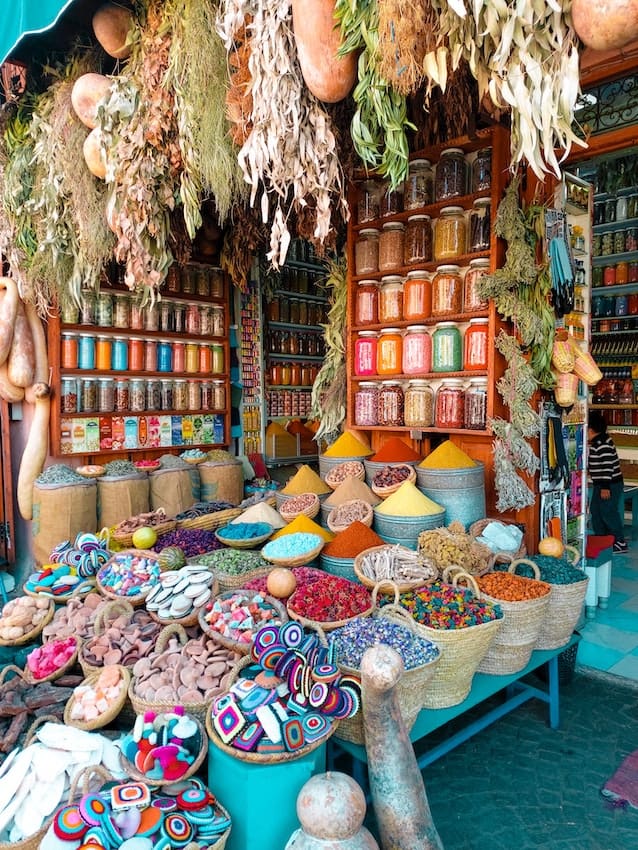
Morocco Travel Scam 3: Just Plain Lying To Tourists
I think this one bothered me the most. Is that irrational? Probably. Basically, if you’re shopping in the souks you will be lied to about what you’re purchasing. Some of this is pretty standard and to be expected: the obviously polyester dress is passed off as silk, the dirty necklace dug up from the back of the store is now a “Berber antique”, but some of the salesman’s lies can be pretty funny.
Right after I arrived in Morocco, jet-lagged and wide-eyed, I was shopping for souvenirs and came across a store that sold leather goods. As I was perusing the stalls the vendor struck up a conversation with me. I wound up telling him I was shopping for my boyfriend and that he loved soccer – He said he had just the thing for me.
The deflated ball he brought from the back of the store wasn’t dyed leather – I think that’s what threw me off. I hope that’s what threw me off because otherwise, I was just being embarrassingly stupid.
The vendor went on about how this was a special soccer ball made of camel leather (I’ve since found out there’s almost no camel leather being sold in Marrakech). He said it was very rare, handmade, etc, etc, etc, and wanted something outrageous like $100 for the thing.
I looked at it and looked at it, and looked at it some more. I was trying to figure out what was throwing me off so much.
It was a volleyball.
The dude was trying to sell me a volleyball as a soccer ball and my dumbass almost couldn’t tell the difference. They really will say anything to get a sale.
Katie Caf, founder of Katie Caf Travel, is a seasoned travel expert who has explored North, Central, and South America, Europe, Africa, and Asia for many years. Originally from New York, she shares travel insights from her experiences in the USA and around the world. Now residing in Bali, Katie specializes in Bali and Indonesia travel, aiming to assist her readers in traveling better and more frequently. Through her blog, she provides quality travel resources and firsthand accounts.
Leave a Reply Cancel reply
Your email address will not be published. Required fields are marked *
Save my name, email, and website in this browser for the next time I comment.
Nomadic Matt's Travel Site
Travel Better, Cheaper, Longer
Is Morocco Safe? 11 Ways to Stay Safe During Your Visit
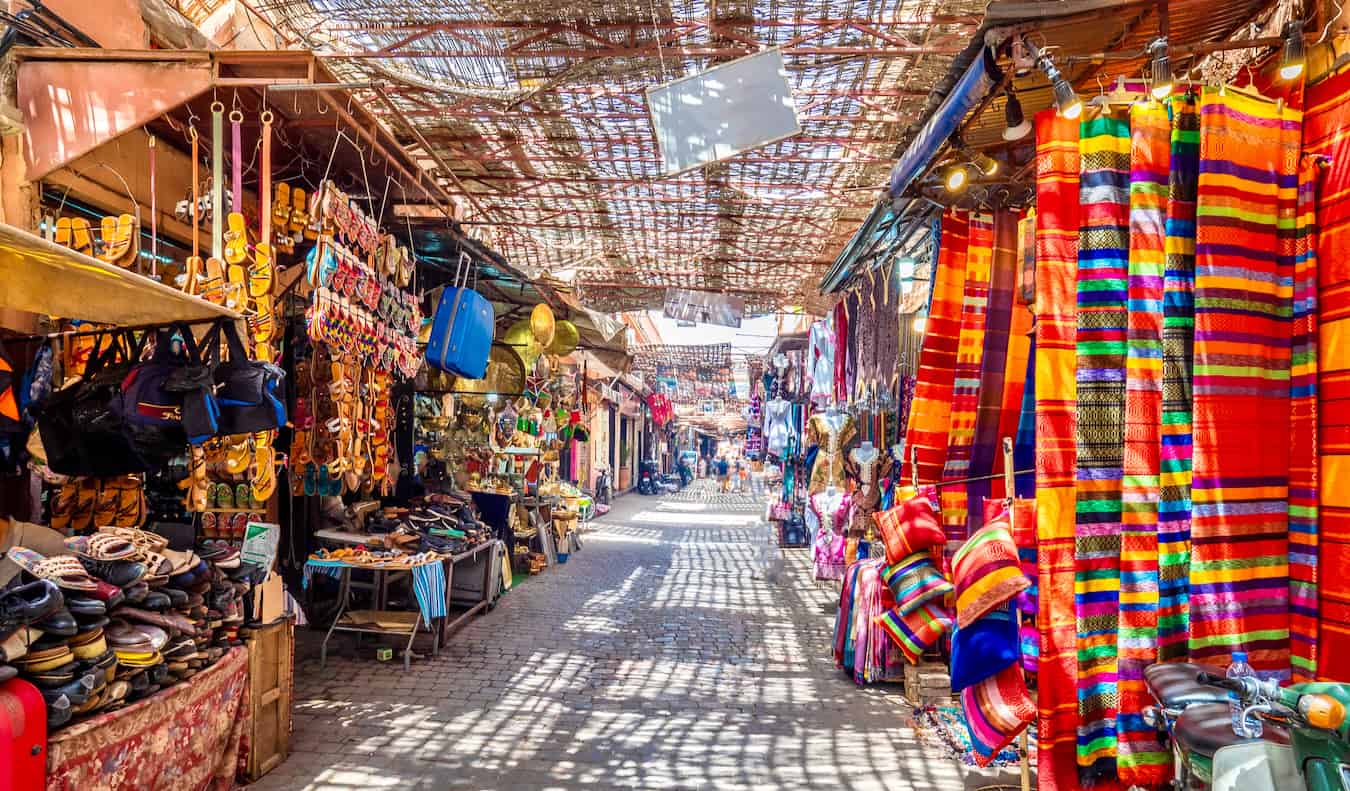
Wandering around the Fez medina, I could feel the stares. “Where are you going? Want to go to the tanneries? I’ll take you. No money. Don’t worry!” the medina’s faux guides said as they chased me down the street.
“No, I’m fine,” I’d reply, trying to dodge them at every turn. Turning down side streets, stopping to look at a map, or admiring a view caused them and any nearby vendor to pounce and badger me, inviting me into stores, restaurants, and attractions.
There were moments when I would turn down streets only to have my spidey senses tell me to turn back. A few guys tried to corner me before I managed to slip into a store. Heck, a little kid even tried to pick my pocket.
And while other cities were not as intense as Fez, my visit to Morocco required a thick skin and a watchful eye.
Before my trip to Morocco, I queried a number of friends about their experiences. I’d heard horror stories of touts, harassment, pickpockets, and scams. While those can occur everywhere, Morocco travel seemed to take it to another level.
“Keep an eye out,” everyone warned.
After two weeks visiting Morocco (which is amazing — see this post, where I fawn all over it! ), I could understand why people say that you need to practice extra diligence when it comes to staying safe in Morocco.
Touts, scammers, and harassers abound, and while it wasn’t bad when I was with my group, when I was alone it was intense. As I settled into the famous and secluded Café Clock in Fez to relax, I messaged fellow writers online to ask if I was overreacting or if they felt the same way.
“No, it’s not just you,” was the universal reply.
So, while Morocco can be overwhelming, the big question I’m often asked is, “Is Morocco safe?”
In this post, I’ll answer all your safety questions and share some tips and advice to ensure you make the most of your time in this beautiful — but hectic — country.
Table of Contents
- 11 Tips to Stay Safe in Morocco
- Is Morocco Safe for Solo Travelers?
- Are Taxis Safe in Morocco?
- Is the Tap Water Safe in Morocco?
- Can You Hold Hands in Morocco?
- Is There a Dress Code in Morocco?
- Can You Drink Alcohol in Morocco?
- Can Unmarried Couples Share a Room in Morocco?
How to Stay Safe in Morocco
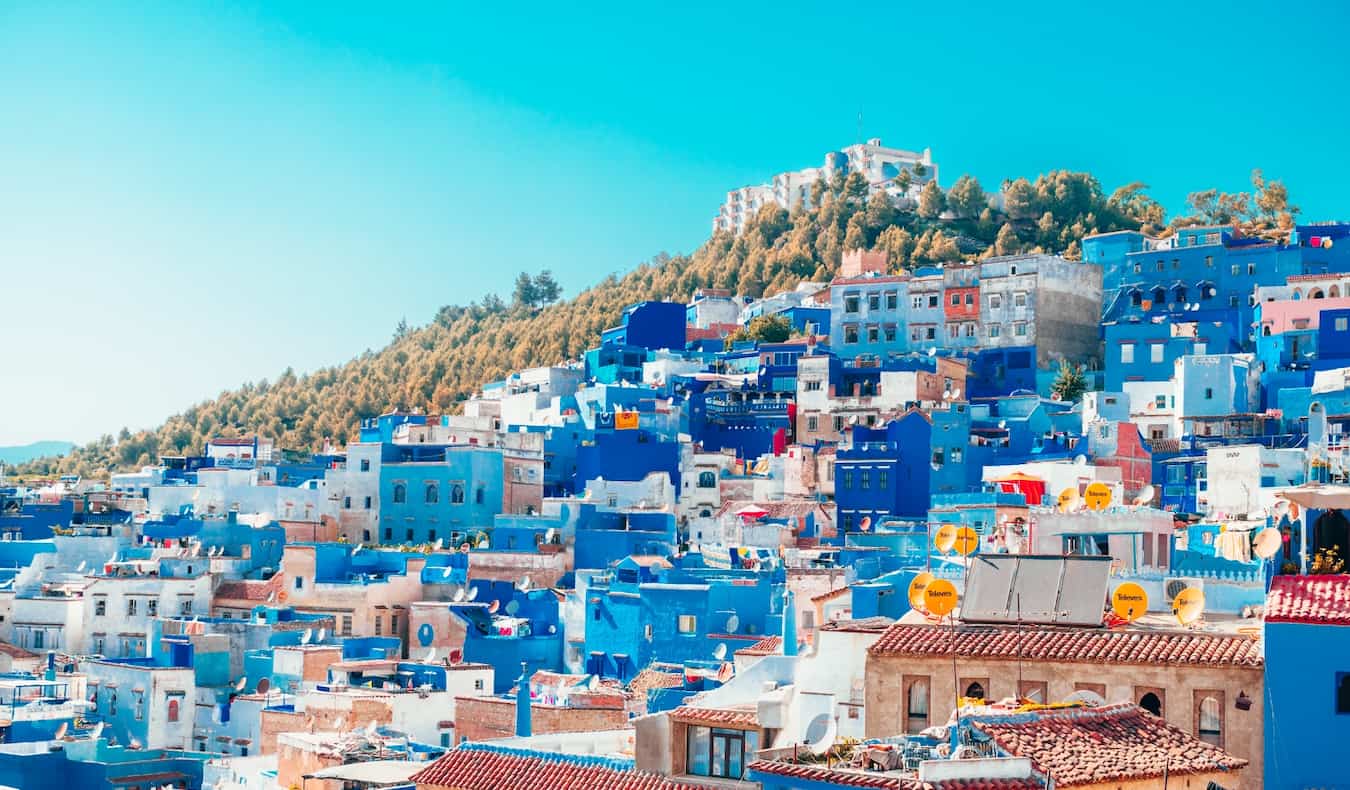
Solo female travelers will need to watch out a little more carefully but, overall, you are still unlikely to encounter serious problems like violent crime.
Morocco travel requires extra vigilance because it’s easy to have something happen to you if you’re not paying attention. But you’re unlikely to ever be in any real physical danger in Morocco. For perspective, the violent crime rates in the U.S. (such as murder, sexual assault, gun violence, and total crime) are many times higher than Morocco’s crime rates .
Of course, petty crime and harassment do require you to stay on guard — more so than in other countries. However, if you follow a few rules, you can leave Morocco unscathed and without incident.
Here are my top tips on how to stay safe when you visit Morocco:
1. Don’t walk alone at night — While walking in well-lit and busy areas can be fine, be careful walking around at night. Petty crime is rampant here, especially against tourists. If you do go out at night, only bring what you need and leave the rest of your wallet in your accommodation.
2. Don’t walk alone if you’re a woman — A woman alone attracts a lot of unwarranted attention from men, an increased chance of being followed, and the likelihood of groping. Even when I was right there alongside the women on my trip, they got a lot of attention. I could only imagine how much worse it was when they were alone.
And, as a female, especially do not walk alone at night!
3. Dress conservatively — Morocco is a conservative Muslim country and it’s not appropriate to wear skimpy clothing. While there is no hard dress code, keep your arms, shoulders, and legs covered (especially if you are a woman) to avoid any unwanted attention and conform to local norms. The more you can fit in, the better. Wearing a scarf can be helpful for women because you can always cover your head to stand out a bit less and deter curiosity.
4. Avoid flashy jewelry — A good universal rule, this takes on more urgency in a country where theft is common. People will see the jewelry as a sign of wealth and therefore try harder to scam you in stores or rob you on the streets. Always keep your valuables (like your phone and wallet) secure and out of reach at all times as bag snatching can occur. Crimes of opportunity are the most common. Don’t give anyone the opportunity.
5. Don’t carry valuables — Since muggings and pickpockets are common, take the minimum you need when you leave your hotel or hostel. Don’t take your passport with you; leave it in the hotel. A few people on my tour carried it around with them and when my guide found out, he looked like he was about to have a heart attack! Always make photocopies of your passport and only carry it unless you’re absolutely required to have it to book transportation tickets, etc.
6. Avoid back alleys – The tiny alleys of the medina are beautiful to explore but sometimes they make you easy prey for scammers and thieves. Don’t venture too far away from the crowds.
7. Watch for scams — If someone asks you into their shop for tea, they are going to use that as a pretext to get you to buy something and, thanks to the ingrained psychological idea of reciprocity, you’ll probably give in. Don’t let anyone ask you to write a letter or read a postcard that their “cousin” sent to them in English/French/whatever your native language is. It’s a ruse to get you into their store and wear you down.
The same goes for letting someone put henna on your hand. Once these vendors have you, they will be relentless about you trying on clothes, buying something, or giving them money. Say “no thank-you” and walk away.
8. Say no to tour guides — The people insisting they will guide you for “no money” definitely want your money. They will try to get you into their shops or take you places and ask for money for the service. Be firm and tell them no. It doesn’t matter their age or how helpful they are, if they start walking with you, they will ask for money!
9. Always negotiate taxi prices up front — Always negotiate the price for taxis before you get in, as prices are going to be substantially inflated when you arrive at your destination.
10. Download the Prey app to your phone and laptop – If either device gets stolen, you’ll be able to track it and remotely turn on your camera to photograph the thief (you can also wipe the data and message the thief too). It costs just $1.10/month.
11. Buy travel insurance – I never leave home without travel insurance. You shouldn’t either. It will protect you against unexpected costs that might arise should something unfortunate occur. It’s just a few dollars per day (often less) and is worth the peace of mind.
I recommend SafetyWing for travelers under 70, while Insure My Trip is the best choice for travelers over 70.
You can use this widget to get a quote for SafetyWing:
For more information on travel insurance, check out these posts:
- What Does Travel Insurance ACTUALLY Cover?
- The Best Travel Insurance Companies
- How to Buy the Best Travel Insurance
While this is good advice for any country, Morocco is more intense than your average destination due to the sheer number of people who give you unwanted attention. It takes a lot of energy to always be on your guard in a place where the simple act of asking for directions often leads people to ask for money.
Is Morocco safe? Yes, for the most part. But visiting Morocco requires you to be a little tougher and keep an eagle out for problems. It requires you to be a little bit more skeptical.
I was insulated because I was on a tour, but when I was alone or with just a few people, people came out of the woodwork, catcalled my friends, grabbed at the women in our group, and blocked entrances to restaurants in order to accost us.
Even after a decade of travel, I found myself wishing I had a companion to share the mental burden and wanting to scream, “Leave me alone so I can just enjoy your country!”
Morocco Safety: Frequently Asked Questions
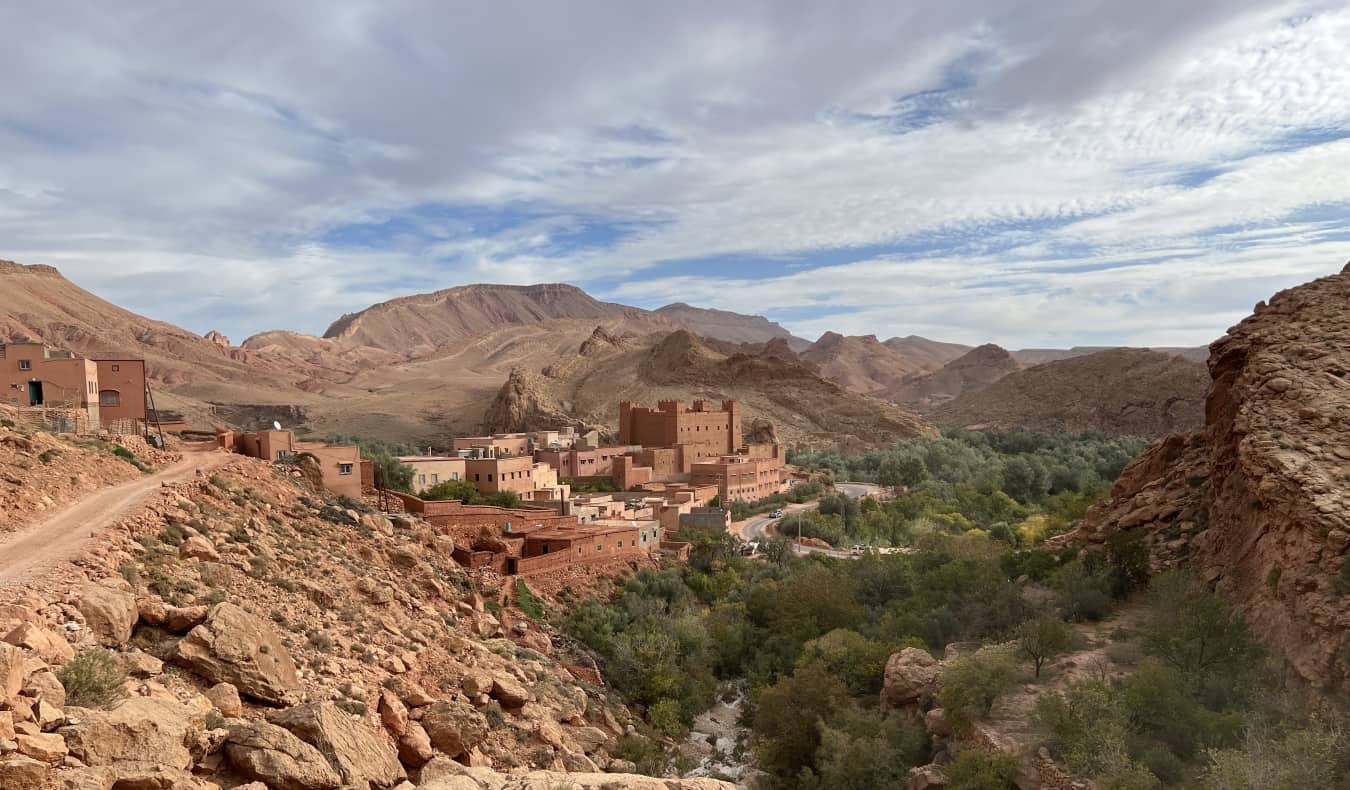
Is Morocco safe for solo travelers?
My honest answer? If you’re a first-time visitor, it might be challenging. Especially if you’re new to travel in general. This was my first time in North Africa and it was an adjustment for me (and I’m a very experienced traveler). I was glad to be on a tour and have a guide.
If you don’t have a lot of travel experience or are a woman traveling alone, I’d suggest taking a group tour of the country first, instead of exploring solo.
Moreover, it is hard to get into the remote desert and mountains on the public transportation systems. I wouldn’t drive here either as everyone races around mountain curves.
That said, thousands of people come here alone and have no problems. If you’re OK in uncomfortable situations and a frenetic environment, you’ll be able to visit Morocco just fine!
Are the taxis safe in Morocco?
Taxis are generally safe here, and overall a safer option than city buses . However, to avoid getting ripped off make sure you negotiate the price in advance if there is no meter (metered taxis are available in some cities). When in doubt, always ask your hotel/hostel staff how much a ride should be. You can also have them call a taxi for you so you get a reputable driver.
Is the tap water safe in Morocco?
The tap water here is generally safe to drink but you should bring a reusable water bottle with a filter just in case. LifeStraw is my go-to brand as their bottles have built-in filters to ensure your water is always clean and safe.
Can you hold hands in Morocco?
While public affection is generally frowned upon in the country, holding hands is fine. I’d refrain from any significant displays of affection while in public just to be safe, however. It should be noted that unfortunately, homosexuality is a criminal offense in Morocco so LGBTQ couples should keep this in mind when traveling here.
Is there a dress code in Morocco?
Nope! The locals here don’t expect you to dress how they dress. That said, to avoid unwanted attention, it’s best to dress conservatively and in a way that doesn’t draw too much attention.
Can you drink alcohol in Morocco?
Drinking alcohol is permitted in Morocco. It’s served in hotels, bars, and in tourist areas that have licenses to serve alcohol (you can also buy it at some supermarkets). Drinking alcohol in the street or anywhere that isn’t licensed is not permitted, however, and can lead to arrest.
Can unmarried couples share a room in Morocco?
Premarital sex is actually illegal in Morocco, however, it’s incredibly rare for a hotel to turn away unmarried guests. While local Moroccans might have trouble booking accommodation if they are unmarried, foreigners won’t really have an issue.
If you’re concerned that you’ll be turned away, contact the accommodation in advance and ask if they require proof of marriage. That way, you’ll know in advance if you need to rebook. But, generally speaking, this isn’t really an issue for (heterosexual) foreigners.
Morocco was a battery on my senses — the food , the colors, the spices , the smells, and the scenery were unforgettable. (Also the doors — they have such ornate and colorful doorways in Morocco. I have dozens of pictures of doors).
I would 100% recommend to anyone that they visit the country, but make sure you keep an extra eye out (especially in Fez) and have a thick skin for all the people asking you to buy things.
Morocco won’t be easy but it’s worth the visit — and it’s a lot safer than you think!
Book Your Trip to Morocco: Logistical Tips and Tricks
Book Your Flight Use Skyscanner to find a cheap flight. They are my favorite search engine because they search websites and airlines around the globe so you always know no stone is left unturned!
Book Your Accommodation You can book your hostel with Hostelworld as they have the biggest inventory and best deals. If you want to stay somewhere other than a hostel, use Booking.com as they consistently return the cheapest rates for guesthouses and cheap hotels. My favorite places to stay are:
Don’t Forget Travel Insurance Travel insurance will protect you against illness, injury, theft, and cancellations. It’s comprehensive protection in case anything goes wrong. I never go on a trip without it as I’ve had to use it many times in the past. My favorite companies that offer the best service and value are:
- Safety Wing (best for everyone)
- Insure My Trip (for those over 70)
- Medjet (for additional evacuation coverage)
Looking for the Best Companies to Save Money With? Check out my resource page for the best companies to use when you travel. I list all the ones I use to save money when I’m on the road. They will save you money when you travel too.
Want More Information on Morocco? Be sure to visit our robust destination guide on Morocco for even more tips on how to plan your visit!
Got a comment on this article? Join the conversation on Facebook , Instagram , or Twitter and share your thoughts!
Disclosure: Please note that some of the links above may be affiliate links, and at no additional cost to you, I earn a commission if you make a purchase. I recommend only products and companies I use and the income goes to keeping the site community supported and ad free.
Related Posts
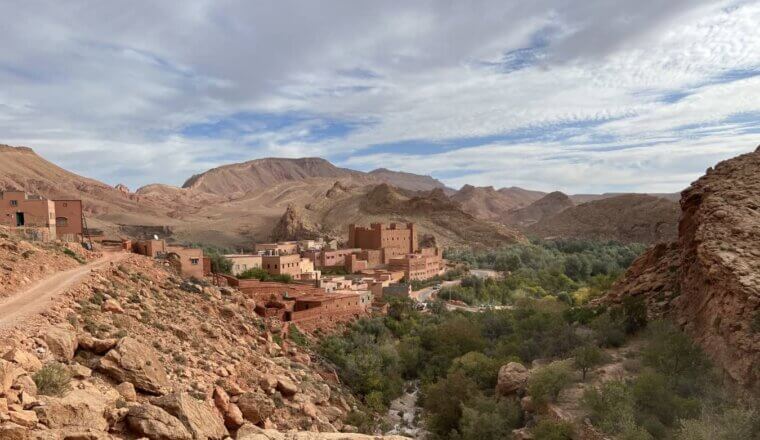
Get my best stuff sent straight to you!
Pin it on pinterest.
- Skip to primary navigation
- Skip to main content
- Skip to primary sidebar
The Hangry Backpacker
Go Alone. Get Lost. Eat.
Scams & Safety in Marrakech, Morocco
February 18, 2020 By Hangry Backpacker 1 Comment
Safety and scams are among the primary concerns for travelers visiting Marrakech for the first time. The city of about a million people is one of the top destinations for foreign tourists traveling to Morocco.
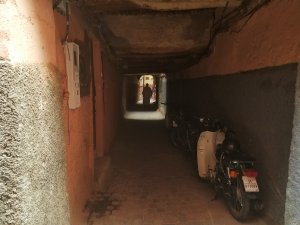
Unfortunately for many of these visitors, Marrakech is also synonymous with scams and a concern for safety. But is that an accurate and fair analysis of travel to Marrakech?
Marrakech may not be the hotbed of theft and travel scams many prospective travelers are led to believe, but there is certainly a need to be hyper-aware during your visit. The following will help you stay safe, avoid scams and make the most of your trip to Marrakech.
Common Scams in Marrakech
There are a plethora of scams in Marrakech targeting naive and unsuspecting tourists. Sadly, the best thing to do for your safety and security is to maintain alertness and a distrusting mindset. Now, for some of the scams in Marrakech. More will surely be popping up, but here are a few of the most common scams:
The Monkey Scam
The monkey scam is one of the most visible scams in Marrakech. This is an easy scam to avoid, but tourists still fall victim each day.
Men with docile, well-trained monkeys standing in Jemaa el Fna (the main square) will suddenly plop one of these captive primates on the shoulder of an unassuming tourist. After the shock wears off, tourists will probably crack a smile and maybe even try to take a selfie. The monkey’s captors will offer to take photos.
If it reaches this point, they’ve got you.
Whenever the ordeal is over, the captors will demand money. In all likelihood, tourists will have to buy their way out to avoid angering the monkey men. The only suggestion I can offer, other than avoiding the monkeys in the first place, is to refuse to pay some absurd sum. Stay strong.
The Marrakech Snake Scam
Despite extensive research and warnings, the snake scam got me in Marrakech. I got greedy and tried to be sneaky, but it didn’t work out so well.
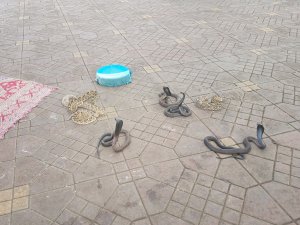
Just like the monkey scam, the snake scam in Marrakech is clearly visible and easily avoidable. Whatever you do, don’t let them put a snake around your shoulders, and don’t think you can sneak a picture. Trust me, these guys have lookouts to catch you.
For the full breakdown of the Marrakech snake scam, read how stupid I was and what happened . Don’t make the same mistake.
“The Road is Closed” Scam
“Excuse me, sir. Are you going to *insert landmark*? No, no, the road is closed. This way…”
That’s how this very common Marrakech scam starts. A local with surprisingly good language skills finds a tourist heading in the direction of a popular attraction. The scammer then claims, often politely, at first, and under the guise of “practicing their English,” that the road is closed ahead.
It’s incredible how many roads in Marrakech are closed. *Note sarcasm*
These particular scammers are usually persistent and relentless, but will eventually leave you alone if you continue walking and ignoring them. However, on occasion, their persistence can turn into frustration. I met one backpacker sporting a sore neck and a fading black eye. He told me that in Marrakech one of these “the road is closed” scammers hit him after he refused to go along with their scam.
This end result is the exception, but it is a concerning result regardless. The moment someone becomes remotely threatening or angry, walk away.
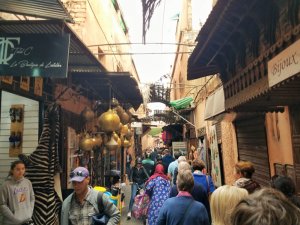
The objective of this scam is to lead tourists on a trek around town and then demand money for services. Another objective is to lead the tourist to a shop, where the perpetrator of the scam will likely receive a kickback for any purchases.
The point of “the road is closed” scam is always money, but it’s a lie. THE ROAD IS NOT CLOSED.
Henna Tattoo Scam
The henna tattoo scam in Marrakech is one that occurs in busier areas, such as Jemaa el Fna. The women of Marrakech can be aggressive, as well. The henna tattoo scammers will grab onto the arm of an unsuspecting tourist (usually a female) and begin applying henna. If the tourist gives in, the woman will then demand money. It is, per usual, likely to be an absurd sum.
The best way to escape this scam is to resist. If you find your arm grabbed, get it back. Clearly and loudly say “no.” This is not the time to worry about hurting someone’s feelings or appearing rude. They aren’t considering your feelings. Yank your arm back and walk away.
Taxi Scams in Marrakech
Taxi scams may be the most common travel scam in the world. Personally, I have been ripped off by taxi drivers in Vietnam, Kazakhstan and Serbia. Fingers crossed, I have finally learned my lesson. Taxis in Marrakech are just as likely to be the location of tourist scams.
As usual, in places like Marrakech, it is best to never trust a taxi meter. Agree on a price before entering the vehicle. Consult the staff at your hotel, hostel or riad for an appropriate fare before hailing a taxi. Most fares in the city center should have a consistent flat rate. Rates to/from the airport should also be consistent.
Taxi scams are annoying, and flat rate rides are often more expensive than the ride should cost. The meter in the taxi isn’t broken, but don’t take the chance. Confirm the price before the ride.
Safety in Marrakech
Marrakech is not an inherently dangerous city. Most of the safety issues travelers encounter relate to one of the above-mentioned scams. Marrakech is still a place that requires visitors to constantly consider their safety.
Carry the Right Bags
After checking into my riad in Marrakech, the owner sat down with a map to highlight places of interest. The first place he pointed to was Jemaa el Fna. The first tip was a safety warning: “Wear your bag on the front. Nothing in your pocket when you walk here.”
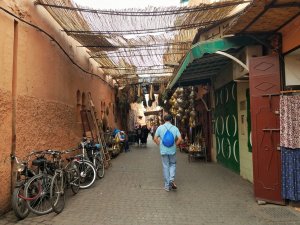
Honestly, I never wore my backpack on the front of my person, but many tourists in Marrakech do. The most important safety concern for your bags in Marrakech is to bring the right bags .
This is not a place to carry a stylish purse or a grocery sack. And your bag needs more than a string for straps. It’s about practical use of the bag. My small backpack for daily wanderings has multiple compartments and has adjustable straps to securely fasten the bag to my body.
Mind Your Pockets
Wearing clothing with good pockets is essential to travel safety in Marrakech. With the exception of airheaded Instagram “models,” most travelers want some sense of security and practical use out of their travel clothing.
It’s not the most fashionable way to travel, but I always pack a few clothing items that provide a sense of security. Columbia PFGs are cool and versatile, and the pockets are great for storing an extra stash of money, ticket stub or something small I don’t want to bury in my backpack. There is also always a pair of pants with secure pockets in my large backpack. My apologies to fashion bloggers, but it gives me peace of mind.
The best travel clothing for safety and security is ScotteVest. I’ve been traveling with ScotteVest products for over five years. These clothes have hidden and secure pockets. They even come with a guarantee . Best of all, ScotteVest products are more fashionable than cargo pants or the fishing shirts that I wear.
When it comes to clothing with the right pockets, the rules are simple. Yes, invest in some quality travel clothing, but, most importantly, don’t put important items in easily accessible pockets. Please, don’t have wads of cash in one back pocket and your passport in the other. Traveling smart is the main priority of travel safety in Marrakech.
More Morocco from the Hangry Backpacker:
- Marrakech Travel Guide
- Essaouira Travel Guide
Travel Safety for Females in Marrakech
Female travelers, especially solo female travelers, have additional safety concerns in Marrakech. Women do not have to avoid Marrakech altogether, and serious, violent crimes against tourists are rare. However, rare does not mean absent.
Many females have reported being the victim of harassment in the streets of Marrakech. This abuse usually comes in the form of lewd and inappropriate comments. Some of the comments are particularly disgusting. A few female travelers have even been the victim of physical harassment, with local men randomly touching or groping them.
Female travelers in Marrakech should be alert and wary when traveling down empty streets. If some creepy dude is following you or lingering around you, start moving to an open area. At night time, it is unwise to wander away from open, busy areas.
Personally, I think this advice is important for the safety of all travelers in Marrakech, but there is clearly additional reason for concern for females.
Other Safety Tips for Travelers in Marrakech
Common sense is the most important defense mechanism for travel safety in Marrakech or anywhere else. Many unfortunate events can be avoided by basic smarts.
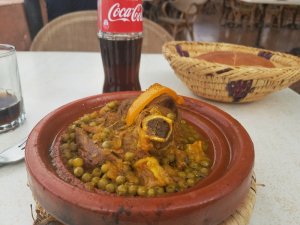
- Be careful what you eat. Moroccan food is great, but you don’t want to get sick. Piping hot is the safest food in Marrakech. Use caution when consuming “fresh” fruits in the city. Consult my guide to Food Safety in Southeast Asia for more tips. It works for Marrakech, too.
- Don’t flash money unless you want it stolen. Be discreet. Keep it in your pocket. Better yet, leave it in the backpack. And leave the bulk of your cash and at least one backup card locked away back in the room.
- Walk with purpose. Getting lost is fun, but the truth is that a tourist walking in circles with a giant map is a target. At the very least, try to look like you aren’t easy prey.
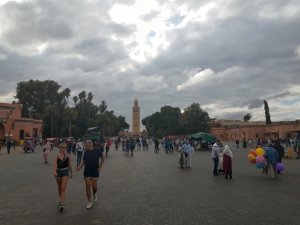
- Dress appropriately. Morocco is a very traditional, conservative muslim country. Skimpy clothes, tattered tank tops or walking barefooted is stupid. Not only is it completely disrespectful to the local culture – like it or not, it is their country – this goes against any notion of common sense travel and safety in Marrakech.
- Don’t wander alone at night. It’s that simple. If you’re going beyond a busy or touristy area at night, go with a group.
- Leave your passport at the hostel/hotel/riad. Have a copy in your day bag.
Scams & Safety in Marrakech
Yes, scams are prevalent in Marrakech. Safety concerns exist in Marrakech, too, especially for certain travelers. That doesn’t mean travelers need to avoid Morocco.
Marrakech is an interesting city. It has become a major tourist destination. Travelers of all types, millions of them, are visiting each year. Unfortunately, that popularity has brought a considerable amount of travel scams and safety concerns to Marrakech.
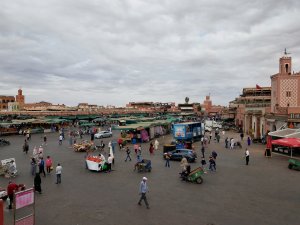
Morocco is a great tourist destination. Between the tourist traps and tedious travel days, the country has much more to offer visitors. Great food, beautiful landscapes and some of the most beautiful doors (yes, doors) are a few reasons travelers fall in love with Morocco. If you make it to Marrakech, enjoy the sights, smells and sounds. Most of all, remember to travel smart.
Reader Interactions
Leave a reply cancel reply.
Your email address will not be published. Required fields are marked *
Notify me of follow-up comments by email.
Notify me of new posts by email.
This site uses Akismet to reduce spam. Learn how your comment data is processed .
Before Footer

7 Travel Scams of Morocco and How to Avoid Them
In the country of Morocco, you will find tons of travel scams. Luckily for you, here’s the Top 7 Travel Scams of Morocco and How to Avoid Them. Be safe!!!
A scam is most commonly defined as a fraudulent scheme made by a dishonest individual in order to rob money from a clueless victim.
The saddest part is that most of the victims don’t realize they have been scammed until someone tells them about the ridiculous price they paid for a product or service.
In the souks of Morocco’s top touristy cities you will find tons of travel scams made by a few dishonest Moroccans who try to befriend you only to stab you in the back at the slightest chance.
Luckily for you, here’s a handy guide on how to avoid them all and yes, a foolproof method to actually scam the scam artists.
Be safe and enjoy!
The fake nice guy scam
Imagine the following scenario: There is a frail old lady trying to cross the street. Suddenly, a young gentleman helps her and afterwards, demand a ridiculous high sum of money from her. Obviously, she feels insulted and refuses.
Then, the young gentleman starts to be verbally aggressive as he threatens to physically harm the old lady. In any average country, the police would immediately arrive to arrest the young criminal…but not in Morocco.
In Morocco it is perfectly normal for young men with no work nor studies to wait in the souks and prey on lost tourists. They offer to help you reach your destination and once you’re there, they demand a payment of 20 to 50 DH (2 to 5 euros) for the 5 minutes it took them to help you out.
Of course, the average minimum wage in Morocco is 100DH (10 euros) for 8 hours of work and these young fellows want to get half of it in only a few minutes.
How to avoid it: Only ask help for people inside the shops and for traffic/police officers. They are honest hard-working people who have no need to be pushy and harass tourists.
If there are only unemployed youths around, just ask for directions but insist that you don’t need them to guide you. And even if they do, just remember that you’re not obliged to give money for a service you did not request in the first place.

The obnoxious henna women
In Jemna El-Fna (or should we call it Jemna El-Scam?), the main square of Marrakech, you will find obnoxious overweight ladies who will try to use their henna ink syringe on your hand without you noticing it and kindly offer to mix their mistake by giving you a full henna hand tattoo. Results and quality may vary but on general it will be a low-quality one.
The catch? After they’re done they will ask you for sums of 100DH (10 euros) for the few minutes it took them to perform the task. And no, they won’t care if you liked the end result or not.
How to avoid it: Be suspicious of covered women that try to approach you on Jemna El-Fna.
And even when it’s too late, just offer to pay in coins (no more than 10DH is a fair price) if you liked the tattoo or simply walk away if you didn’t. Remember: you’re not obliged to give money for a service you did not request in the first place.

The hidden price restaurant menu
This scam comes in two different versions: The most common one is for waiters to lie to you about complimentary juice and bread being included in the meal only for you to be charged at the end for it. The second variation involves two different menus, each one with different prices.
When you first arrive you are presented with a menu with normal prices and once it’s time to pay, the prices are elevated. Once you ask to see the menu again, it is a different one with the new inflated prices and you have no other choice than to pay up…or do you?
How to avoid it: Don’t pay for the extra. Seriously, the police already know about this particular scam so the restaurant will never file a report against you for not paying their scam prices.
Just pay what you consider is fair and walk away. And no, don’t leave a tip!

The abusive taxi drivers
In Morocco, it is normal to find unlicensed taxi drivers but even those with a license will try to scam you out of your hard-earned money as long as they can get away with it.
In Marrakech it’s against the law not to turn on the taximeter and yet, most taxi drivers will do their best to negotiate a price with you and will refuse to turn on the meter.
Things come to a boiling point when taxi drivers demand an extra “baksheesh” (tip money) even after being rude and offering a sub-par service.
The worst part? They will constantly harass you until you give in. And here’s where my tip about keeping foreign coins comes in handy.
How to avoid it: Taxi drivers are probably the best example of the local/foreigner divide that exists in some nations of the world and that’s why those are the ones that deserve no sympathy from me.
What I recommend you is to actually pay them with foreign coins and scam them by lying about their value. Can you believe that a Marrakech dishonest driver actually believed that a 10 pesos Mexican coin (real value about 0.50 euros) was actually worth 5 euros?
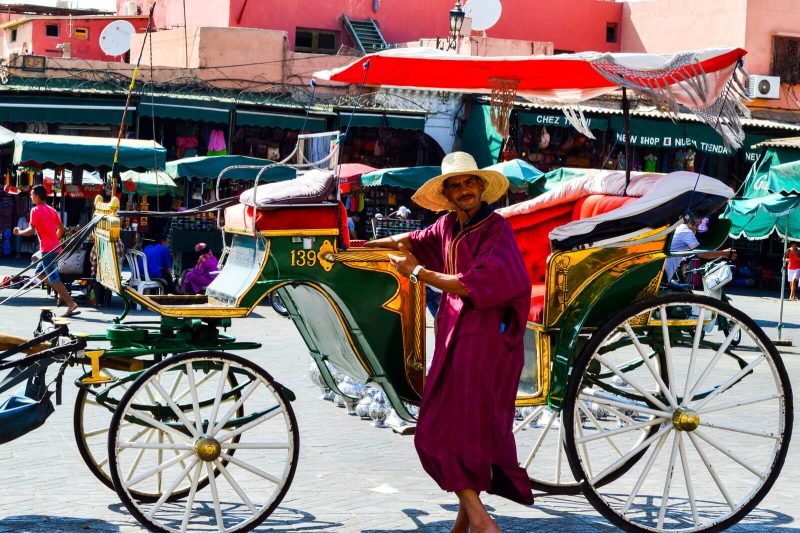
The Guilt Trip Salesmen
All tours (both official and unofficial) will undoubtedly stop at either a carpet factory or a tannery where the owners will delight you with hospitality and give you free mint tea (or Berber Whiskey as they call it). Then they will give you a demonstration of how the carpets/leather items are made.
Eventually, they will use hard-sell tactics, including fake tales about how impoverished their families are, in order to make you buy their items.
The problem? They are extremely overpriced and the quality is sometimes even sub-par from the ones you can buy at the souks despite their lies about the high-quality of their products.
How to avoid it: Politely decline the mint tea and even if you end up taking it, remember that it was offered to you as a gift and that you have no real obligation of buying something you neither want nor need.
Just thank the owner and explain that it is extremely impractical to carry a carpet in your backpack!

The Beast Masters of Jemna El-Fna
In Marrakech’s main square it is perfectly normal to find people with monkeys and snakes placing them on you by force and then snatching your camera in order to take a photo of you.
At first, you seem suspicious since there’s a chance that the beastmasters might run away with your camera while they snap the shots. However, the real scam starts when it’s time to pay them.
You see, scam artists have an all-or-nothing mentality that represents a great handicap in their way of doing an honest business. Instead of placing a sign saying the price for a photo, they tell you that it’s a willing donation.
Of course, if you try to donate anything less than 100DH they will start to harass you and throwback your own money at you.
How to avoid it: Just accept their rudeness and move on. If they’re not willing to accept your 20DH, it’s their loss and you should not feel obliged to pay anything more than what you consider fair.
After all, negotiation is a two-way street and they told you beforehand that the amount of the donation was up to you. Just walk away and they won’t follow you.

The Horse/Camel Riders
You probably already read my story about the horse ride in Essaouira but even if you haven’t, you should be aware that the sexual harassment in Morocco’s top touristy places is very high and yes, some of those horse/camel riders can also scam you by stranding you in a far away place and demanding double the payment in order to return you to the main city.
The other variable includes over-inflated prices (often reaching 300DH!) for the same service that the locals can obtain for 30DH.
This is an immoral pricing policy since it creates a division based on nationality and perceived acquisitive power since it encourages service providers to treat foreigners like money signs and not like human beings.
How to avoid it: Besides refusing to ride a horse/camel, your best option is to hold payment until the very end and threaten the rider with calling the authorities (even if your cellphone has no signal!) if he tries to strand you in the middle of nowhere.
Most of the time, these guys don’t pay taxes and operate in a legal loophole so the simple mention of the police will make them change their attitude towards you.

A Final Word on the Travel Scams of Morocco
Yes, I know. Morocco is a developing country with a low-level of literacy and lack of job opportunities which is one of the main causes of why there are so many unemployed uneducated youths waiting in the souks for tourists they can scam. However, as my grandma always said: “ It is better to be poor in terms of money than being poor in terms of values”.
It is quite astonishing how highly religious people who pray 5 times a day often forget about their values when it comes to dealing with foreigners, contributing to the local/foreigner apartheid that exists in some countries in North Africa and the Middle East.
Should you be the better man and turn the other cheek or should you denounce the scam artists to the authorities in order to avoid a culture of crime from prevailing?
That is up to you. Personally, I believe that the world needs more schools, not prisons. And yes, you can do your best to educate these scam artists in order to help them remember their way and to differentiate right from wrong.
I recommend you to say the following phrase to them “Jazakum Allahu Khairan”. It means “ May Allah reward you ” and trust me, most of them will look at you with a face of forgiveness since you just reminded them that they are being untrue to their beliefs by engaging in illicit actions.
Scam artists are not bad people, they are just ordinary folks like you and I that have somehow lost their way in life. Don’t hate them, just pity them. I love Morocco and that’s why I want Morocco to improve.
And I’m sure most Moroccans feel the same way since it’s just a few bad seeds the ones that give the entire population a bad image abroad. It’s time to change that and the best way to start is by making people aware of the many scams that take place in this amazing country.
Will you help me spread the word?

- Things To Do
- Entertainment
- Food Travel
Travel Tips
- Travel News
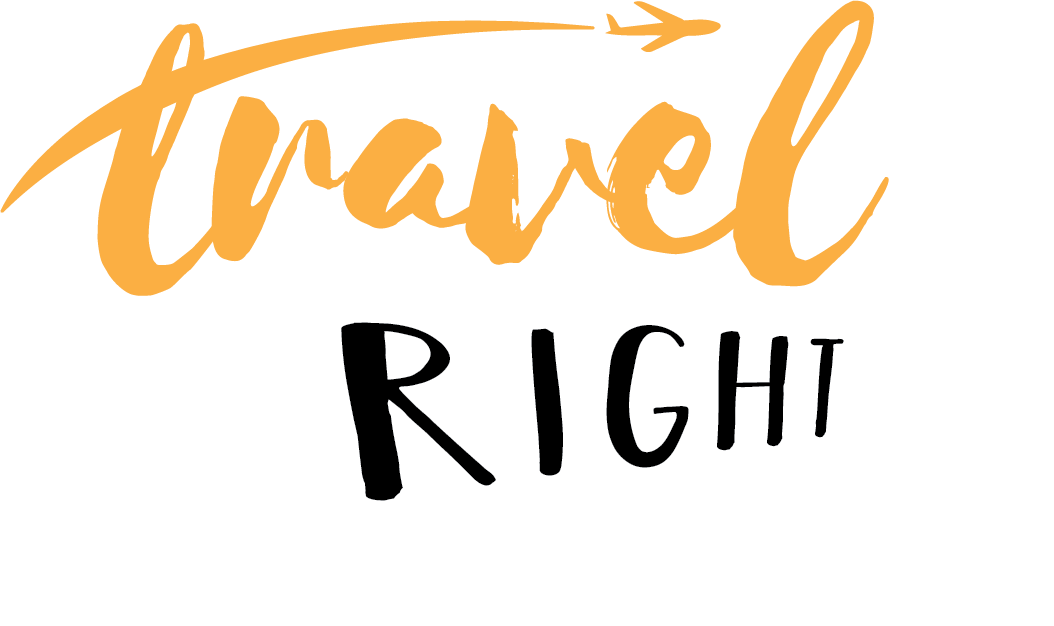
Safety Guide: Is Morocco Safe?
Introduction.
When it comes to planning a trip to a foreign country, safety is a top concern for many travelers. Morocco, with its vibrant culture, stunning landscapes, and rich history, is a popular destination for tourists from around the world. However, before embarking on your Moroccan adventure, it’s important to understand the safety situation in the country.
Home to bustling cities like Marrakech, Casablanca, and Fes, Morocco offers a unique blend of traditional charm and modern amenities. While the country is generally considered safe for tourists, it’s always wise to be aware of potential risks and take necessary precautions to ensure a smooth and enjoyable visit.
In this safety guide, we will explore various aspects of safety in Morocco, including safety in major cities, transportation safety, tourist scams to watch out for, health and medical facilities, political and social stability, natural disasters and environmental risks, and cultural sensitivity and respect. By understanding these factors, you can make informed decisions and have a worry-free experience while exploring the beauty of Morocco.
Safety in Major Cities
As with any major city around the world, it’s important to exercise caution when exploring the urban areas of Morocco. While crime rates in the country are relatively low compared to some other popular tourist destinations, it’s still advisable to take some safety precautions to avoid any potential risks.
The most common type of crime in Moroccan cities is petty theft. Pickpocketing, bag snatching, and scams targeting tourists are not uncommon in crowded areas such as markets, train stations, and tourist attractions. To minimize the risk of becoming a target, it’s recommended to keep your belongings secure and be aware of your surroundings. Avoid displaying expensive jewelry, cameras, or large amounts of cash in public.
While walking around in Moroccan cities, it’s also important to be cautious of traffic. Streets can be congested, and drivers may not always adhere to traffic rules. Look both ways before crossing the road and use designated pedestrian crossings whenever possible.
Additionally, it’s wise to familiarize yourself with the local emergency contact numbers and keep them handy. The emergency number for police assistance is 190, while the tourist police can be reached at 116.
Overall, by being vigilant, aware of your surroundings, and taking common-sense precautions, you can feel confident exploring the major cities of Morocco and enjoy the vibrant atmosphere they have to offer.
Transportation Safety
Getting around in Morocco is relatively safe, thanks to a well-developed transportation infrastructure. Whether you choose to travel by public transportation or rent a vehicle, there are a few key considerations to keep in mind for a safe journey.
If you plan to use public transportation, such as buses or trains, it’s advisable to book your tickets in advance to secure your seat and avoid last-minute hassles. Public transportation is generally regarded as safe in Morocco, but it’s always good practice to keep an eye on your belongings and be mindful of your surroundings, especially in crowded areas.
If you decide to rent a car, ensure that you have a valid international driver’s license and familiarize yourself with the local road rules and regulations. While driving in major cities can be chaotic due to heavy traffic and narrow streets, highways and rural roads are generally well-maintained and safe to travel on.
When it comes to taxis, both the Grand Taxi (shared) and Petit Taxi (private) services are widely available in Morocco. It’s important to use only licensed taxis and insist on the use of a meter or agree on a fare before starting your journey. This helps to avoid any potential misunderstandings or overcharging.
For long-distance travel, you may consider using reliable and reputable tour operators or hiring a private driver. This can provide added comfort and peace of mind, especially if you’re unfamiliar with the roads or prefer not to navigate public transportation routes.
Overall, by using common sense, adhering to local regulations, and choosing trusted transportation options, you can enjoy a safe and hassle-free experience while exploring the diverse landscapes and attractions of Morocco.
Tourist Scams to Watch Out For
While Morocco is a welcoming destination, it’s important for tourists to be aware of potential scams that target unsuspecting visitors. By familiarizing yourself with these common scams, you can stay vigilant and protect yourself from falling victim to them.
One of the most prevalent scams in Morocco is the “faux guide” scam, where a person posing as a guide offers to show you around, only to lead you to specific shops or establishments where they receive a commission for bringing customers. To avoid this, it’s best to hire a licensed guide from a reputable tour company or research reliable guides beforehand.
Another scam to be cautious of is the “helpful local” scam. In this scenario, someone may approach you offering assistance or providing directions, only to expect payment in return. While it’s always good to be polite, make sure to politely decline any unsolicited help and rely on trusted sources or maps for directions.
It’s also essential to be cautious when using ATMs. Scammers may target tourists by installing card skimmers or using distraction techniques to obtain card information. To minimize the risk, use ATMs located in well-lit and busy areas, cover the keypad when entering your PIN, and regularly monitor your bank account for any unauthorized transactions.
Additionally, be wary of street vendors selling counterfeit or overpriced goods. It’s advisable to verify the authenticity of products before making a purchase and be prepared to haggle for a fair price.
Remember, staying alert, trusting your instincts, and conducting research beforehand can go a long way in avoiding tourist scams. If you encounter any suspicious behavior or feel uncomfortable in a situation, it’s best to remove yourself from the situation and seek assistance from a trusted authority or your accommodation.
By being cautious and proactive, you can protect yourself from falling victim to common tourist scams and have a more enjoyable and stress-free experience in Morocco.
Health and Medical Facilities
When traveling to Morocco, it’s important to prioritize your health and be prepared for any medical situations that may arise. While the country has made significant progress in healthcare infrastructure, it’s still advisable to take necessary precautions and consider your healthcare needs.
Before your trip, it’s recommended to visit a healthcare provider and ensure that you are up to date on routine vaccinations. It’s also worth discussing any specific travel-related vaccinations or medications, such as anti-malarial drugs, with your healthcare provider.
While major cities in Morocco have well-equipped hospitals and medical facilities, the quality of healthcare may vary in remote or rural areas. It’s always wise to have travel insurance that covers medical expenses, including medical evacuation if needed.
If you require prescription medication, it’s best to bring an adequate supply for the duration of your trip. Make sure to carry the medications in their original packaging, along with a copy of the prescription, to avoid any issues with customs or immigration.
In case of a medical emergency, the appropriate emergency phone number to call in Morocco is 150.
It’s also important to take necessary precautions to maintain good health during your trip. Drink bottled water or boil tap water before consuming it, avoid street food that may pose a risk of contamination, and practice good hygiene, such as regular handwashing.
Lastly, consider purchasing travel insurance that specifically covers medical emergencies, as this can provide peace of mind and financial protection in the event of unexpected medical issues.
By being proactive about your health and taking necessary precautions, you can ensure a safe and healthy trip to Morocco.
Political and Social Stability
Morocco is known for its political and social stability compared to some other countries in the region. The government has made significant efforts to maintain peace and security for both its citizens and visitors. However, it’s important to stay informed about the current political situation and adhere to any local regulations or restrictions.
The country has a constitutional monarchy, and King Mohammed VI has implemented various political and social reforms to promote stability and progress. Morocco has a strong security presence, particularly in major cities and tourist areas, to ensure the safety of both locals and visitors.
While protests and demonstrations may occasionally occur, they are generally peaceful and well-managed by authorities. It’s advisable to avoid participating in or getting too close to such events to minimize any potential risks.
As with any foreign country, it’s recommended to stay updated on the latest travel advisories issued by your government. These advisories provide valuable information regarding any potential risks or safety concerns in specific areas of Morocco.
It’s also important to be respectful of the local culture and customs. Avoid engaging in political discussions or criticizing the government, as this may be seen as disrespectful or offensive. Building positive relationships with the local community can contribute to a safe and harmonious experience during your visit.
In the unlikely event of a political or social disturbance occurring during your trip, it’s advisable to follow the instructions of local authorities, stay in communication with your embassy or consulate, and maintain a calm and composed demeanor.
Overall, Morocco is generally considered a safe and stable country for travelers. By staying informed, respecting local customs, and using common sense, you can enjoy your time in Morocco while being mindful of any potential political or social dynamics.
Natural Disasters and Environmental Risks
When it comes to natural disasters and environmental risks, Morocco is relatively safe compared to some other countries. However, it’s important to be aware of potential hazards and take necessary precautions to ensure your safety during your visit.
One of the most significant natural risks in Morocco is the possibility of earthquakes. The country is located in a seismically active zone, and while major earthquakes are rare, it’s wise to familiarize yourself with safety procedures and emergency exits in buildings, especially in earthquake-prone areas.
Flash floods can also occur in certain regions of Morocco, particularly during the rainy season. If you plan to visit areas prone to flooding, such as canyons or valleys, make sure to stay updated on weather forecasts and avoid venturing into areas that may become dangerous due to heavy rainfall.
In coastal regions, strong currents and rough surf can pose risks to swimmers and water enthusiasts. Pay attention to warning signs and flags, and consult with local authorities or lifeguards regarding safe swimming areas.
Morocco is known for its diverse landscapes, including mountains and deserts. If you plan to hike or explore these areas, it’s recommended to hire an experienced guide, carry essential supplies, inform someone of your itinerary, and be prepared for changes in weather and terrain.
It’s also essential to be mindful of environmental conservation and responsible tourism practices. Avoid littering, respect wildlife habitats, and support eco-friendly initiatives to minimize your impact on the environment.
As always, it’s advisable to stay informed about any weather or environmental alerts issued by local authorities during your visit. This can help you stay prepared and make informed decisions regarding your activities.
By being aware of natural risks and practicing responsible tourism, you can enjoy the beauty of Morocco’s landscapes while prioritizing your safety and environmental stewardship.
Cultural Sensitivity and Respect
Morocco is a country rich in culture and traditions, and it’s important to approach your visit with respect and an understanding of local customs. By being culturally sensitive, you can forge meaningful connections with the local community and ensure a positive and respectful experience.
One of the most important aspects of cultural sensitivity is dressing appropriately, especially when visiting religious sites or conservative areas. It is recommended to dress modestly and cover your shoulders and knees as a sign of respect.
Greeting locals with a “Salaam alaikum” (peace be upon you) and using common courtesy phrases, such as “hello” and “thank you” in Arabic, can go a long way in building positive connections and showing respect. Learning a few basic Arabic phrases can also enhance your experience and foster a deeper understanding of the local culture.
It’s important to respect religious customs and practices. If you are visiting a mosque, remove your shoes before entering and be mindful of prayer times and worshippers. Avoid photographing individuals without their consent, especially in sacred places.
Engaging in cultural exchanges, such as trying local cuisine, participating in traditional activities like henna tattooing or attending cultural events, can be a wonderful way to immerse yourself in the Moroccan culture. However, be aware of cultural appropriation and ensure that your actions are respectful and done with proper understanding and appreciation.
Respecting personal space and boundaries is also essential in Moroccan culture. It’s polite to ask for permission before taking someone’s photograph or entering private spaces. Additionally, be mindful of cultural norms regarding physical contact, as some individuals may have personal preferences or religious beliefs that dictate their level of comfort.
By showing respect for local customs, traditions, and values, you not only enhance your travel experience but also contribute to positive interactions and cultural exchange. Embrace the diversity of Moroccan culture with an open mind and heart, and leave a positive impression for future travelers.
In conclusion, Morocco is a captivating destination that offers a wealth of cultural experiences and stunning landscapes. While it is generally considered safe for tourists, it’s important to be mindful of safety precautions and potential risks.
By staying vigilant, keeping an eye on your belongings in busy areas, and being aware of common tourist scams, you can minimize the chances of becoming a target for petty theft. Familiarize yourself with emergency contact numbers and have the necessary travel insurance to ensure you are prepared for any unforeseen circumstances.
When it comes to transportation, utilize reputable public transportation options or consider hiring a trusted guide or driver for your convenience and peace of mind. Be cautious on the roads, follow local regulations, and choose licensed taxis for your safety.
Health and well-being should be a priority during your trip to Morocco. Stay updated on recommended vaccinations, carry any necessary medications, and take necessary precautions to avoid food or waterborne illnesses. Purchase travel insurance that covers medical emergencies and be aware of the location of medical facilities in the areas you plan to visit.
While Morocco enjoys political and social stability, it’s important to stay informed about the current situation and respect local customs and traditions. Adhere to local laws and regulations, be mindful of cultural sensitivity, and be aware of any protests or demonstrations that may occur.
Natural disasters and environmental risks, though relatively uncommon, should still be acknowledged. Stay informed about potential hazards such as earthquakes and flash floods, especially in specific regions, and take appropriate precautions. Help preserve the environment by practicing responsible tourism and respecting wildlife habitats.
In conclusion, by being aware of safety guidelines, respecting the local culture, and staying informed, you can have a rewarding and enjoyable experience in Morocco. Embrace the rich culture, immerse yourself in the vibrant atmosphere, and create unforgettable memories while putting your safety first.
RELATED ARTICLES MORE FROM AUTHOR
How To Avoid Being Scammed While Traveling
Montezuma’s Revenge: How To Combat Traveler’s Diarrhea
How To Protect Yourself From Fraud & Identity Theft Anywhere In The World

12 BEST Topless Beach In U.S. For You To Be Wild...

The Ultimate Guide: First Time Nude Beach Dos And Don’ts

15 BEST Clothing Optional Resorts Around The World

10 Goblin KDrama Filming Locations You Should Visit
More stories.
- Privacy Policy
- Advertising
- Affiliate Disclosure
- Netherlands
- Hidup Minimalis
- Hidup di Belanda
- Zero Waste Journey
Common scams in Marrakech and how to avoid them

Besides its beauty and uniqueness, Marrakech is the type of destination that you have to keep your guard up at all times and well informed before hand. There are a lot of scams around you that is sometimes hard to tell until you experience it yourself. My friends who have been to Morocco either despise it or love it. Too bad that bad experiences caused of scams get many people to pass bad judgement on an amazing country and people. Just remember that the scammers are doing these because they are trying to live by in very poor conditions.
I have to say, at the end of the day it is about expectation management. Research and read what to expect in a new place you go. Even myself, I learnt and read a lot of articles about scam Morocco, and I almost fell into some. So, I thought it might be handy to share for you who are going or still dreaming to go. Note: It is definitely not a reason for you not to go and explore Marrakech or Morocco in general. Do your research before, know what to look out for, and you will be fine.
Most of these scams are pretty harmless and won’t cost you more than a couple of coins. However they might leave you feel ashamed and mad. Sellers or scammers are aggressive: true, but not all Moroccans are like that . It is absolutely not part of their culture!
Ok, so basically, every scams that I had read are a real thing! It’s either happened to us or to other tourists around me. Here are the most common ones. I hope this list does not scare you but instead make you travel easier.
1. Taxi drivers
Once we exit the airport, we had to search for where the bus was at. I was a little bit reluctant to ride a bus, because of the scams fear etc. However, it’s the taxi which could get you into scams. All the taxis will call you out, insist to go with their taxi and if they figure you look for the bus, they will say that the taxi price is the same with bus, which is not. Price should be not more than 50 dirham but they surely will ask for around 100-200 dirham. If you travel by yourself and want some extra security and guard, you better make the arrangement with your stay for airport pick up.
At the end of our journey, we did not have any other choice then to reserve a taxi (arranged by our hostel). Our flight was at 6.55 am so we had to leave our stay at 4 am. The night before we agreed with the hostel that the cost would be 15 euro (which we calculated to be 170 dirham but the hostel calculated to be 150 dirham). And to be honest, 180 dirham was our last cash.
At 4 am a taxi driver, who looks very nice and sincere, picked us up. Damar, with his initiative make sure that 150 is the price we had to pay. You know, just to get agreement beforehand. You know what he said????? He pointed the watch and said no, 200 dirham!!! But because our cash is literally limited, we said that we don’t have the money. I said we only had 180 dirham. He nodded and agreed.
Once we arrive, Damar only gave the 170 dirham because he could not find the 10 in his pocket. The man said, it’s okay. Well there you go! It was happy ending for us, but can you imagine if Damar did not ask, we would be surprised and did not know what to do. Although in our case, nothing much we could do because we literally had none.
Tips : Always make sure and make agreement in the beginning. Also, taxi price will never be the same with bus, that is for sure. However, I think it is different if you already know and you decide to do it anyway. It means you agree to pay more and I would suggest to agree with the price in the beginning!! Also bring GPS with you to check where this taxi driver brings you. It’s worth paying more credit.
Bus in the airport
The bus is operated by a Spanish company, Alsa. The Airport Bus service is no. 19 transferring from the Marrakech Menara airport to the medina (ancient city) and Gueliz (new city) of Marrakech. Bus number 19 is definitely the least expensive method of airport transfer. Price is 30 dirham one way and 50 dirham return ticket at time of initial purchase. It comes every 3o minute.
Good to know is, the approximate time from airport to centre is 20 mins.
Where to wait
It is definitely not in a quick glance. You have go towards packing lot and you will see big sign of BUS 19 there. You will not be the only waiting for the bus. If you do, not so long after you there will be people coming and waiting under that sign.
2. Helpful local
There are several things in this category, but the most common one is someone tries to help you getting a direction. Out of politeness and a stranger in a place, you tend to be polite and oblivious. They will come towards you, be friendly, ask you where you are from etc. And then they will offer to guide you and ask for a service fee at the end. What almost happened to us was someone tried to mislead us by showing another turn. I almost fell into it, but Damar was confident with the direction from our hostel and generally his sense of direction is much better than me. So I followed.
Apparently after arriving to the hostel, the keeper told us to be careful with someone who pretend to want to show the way. Which was exactly what happened to us. The guy who tried to detour us would have showed up in our confusion and offer to find a way. He would take you to the “labyrinth” and made a complex route. It could be quadrupled longer than it should have been. At the end, they made you think that it’s impossible to find the place without their help. That is when they ask for money.
Tips: Walk around confidently (even if you are lost) and use GPS. They will still try and follow you. Our hostel keeper said the best way to avoid it is to just keep walking. Even saying ‘ La, Syukron (no, thank you)’ will make them think they have chances and follow you even more. If you just smile and keep walking, after 5 meter, they will know you really are not interested.
3. Henna lady
I did not experience myself until the last day. Around Jemaa El-Fna there are a lot of Henna ladies. Some just sit and quietly offer, but some are really aggressive. I must say they get more aggressive and walk towards you at night. On our last night while walking in the middle of food stalls, the lady came over and offered henna. I said no, and she asked if i’d be interested tomorrow, well just to get away with it, I said sure. Then he took my hand and almost started drawing (to show what she can do) until I pulled my hand away quite roughly. I am sure she’d ask for money if that had happened.
Tips: If you are not interested, don’t come near it and do not take pictures. If you want to take the risk (fake henna, terrible drawing) be very clear with drawing you want and agree on price. If they happen to come towards you and ask, smile, say firm no and walk away. I’d suggest not to do in the square, if you really want it, go to Henna cafe not so far from the square.
4. Pictures (Snake, monkey)
When walking around Jemaa El-Fna square, there will be a lot of monkey handlers, cobra snakes performers etc. They will walk to you, put the animals around you and once you take pictures, they will ask money from you. Even you just enjoy from afar and take pictures, when they find out, they will force you to pay.
Tips: Do not go near it. Or if you want to take pictures, bargain the price first and agree before hand (10-20 dirham would make sense).
5. Restaurant or food stall
You go to the restaurant, check the menu and order. When it comes to pay the bill, the result is way more than what you ordered. The waitress would say you must read the menu wrong and showed different menu than you saw earlier.
Also, in the food stalls, if you receive food you don’t order. Never think it’s a complimentary food. They will add up at the end. This happened to us but I was conscious enough not to eat anything other than what I ordered.
Tips: Make a picture of every menu before you order so that if this happens you can show them the picture with the old prices.
6. Store visit / Tea offer
Usually in the rugs souk/market, the owners will invite you to sit down and have some tea. If you at the end refuse to buy anything, they’ll get angry and will ask you you pay for your tea. Usually it ends up with you buying something from their shop which you do not really want.
Tips: Avoid buying things in Jemaa El-Fna or buy with locals you know. If you are really interested with something, take picture (secretly) and ask your hostel keeper or local friend to price. You can use it as a base to bargain, if the sellers act like they get offended, don’t feel sorry, then they will realise that you know the price. If they invite for tea, just refuse it in the first place.
Public toilet is free! There are scammers who appear at the entrance and demand a small fee.
Tips: Just pay with any coins you have and leave.
Emergency number to call
- Police: 190 or 112
- Police outside the city: 177
- Ambulance: 150
- Fire brigade: 15
Ignore the scams and enjoy the beauty of Marrakesh.
Other Morocco series
What to eat in Marrakech
Things to know before travelling to Morocco
Share this:
- Click to share on Twitter (Opens in new window)
- Click to share on Facebook (Opens in new window)

Maurilla Imron
A visual journal of a happy petite traveller, taster and dreamer. A life enthusiast who lives in orange country. Turning dreams into plan everyday
You Might Also Like
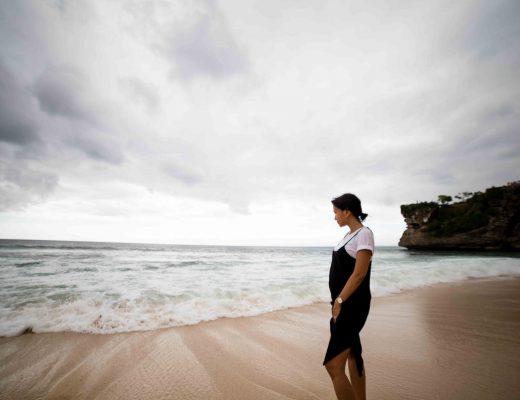
Balangan Beach Bali
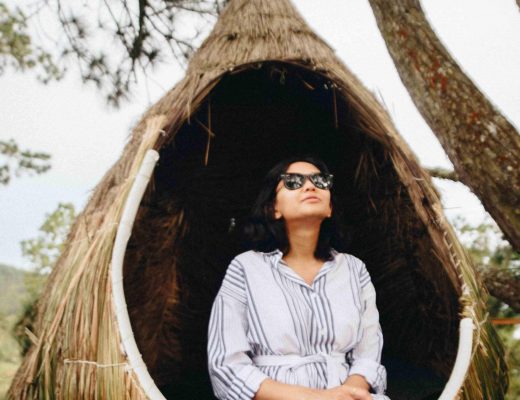
Lebaran 2019 – Danau Toba Pulau Samosir itinerary
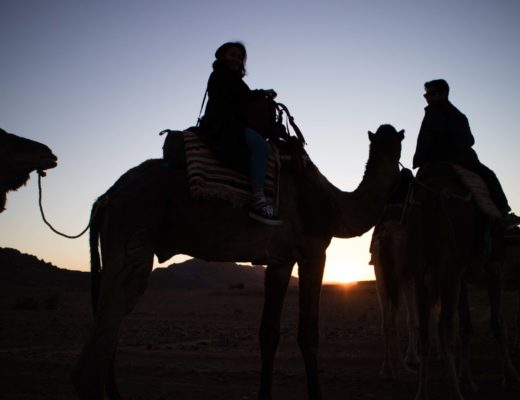
What to pack for Sahara desert trip
No comments, leave a reply cancel reply.
Save my name, email, and website in this browser for the next time I comment.
Notify me of follow-up comments by email.
Notify me of new posts by email.
Designed & Developed by Maurilla Imron

Wealth of Geeks
Navigating Abroad: Watch Out for These Common Tourist Scams
Posted: February 24, 2024 | Last updated: February 24, 2024
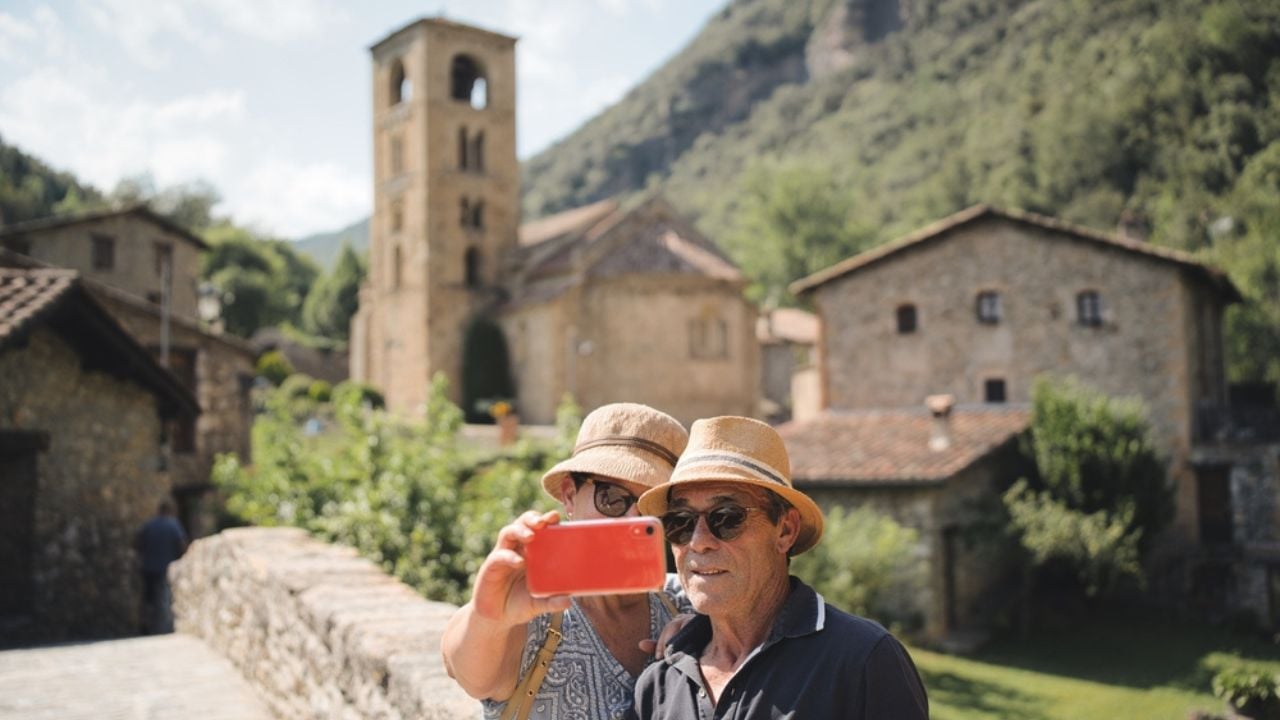
The world is beautiful, with amazing people, landscapes, and vistas. If you’re lucky enough, you’ll get to visit at least some of it, but there’s always an amount of risk with anything you do, and the same goes for travel. While some people are out to be your friend, others will take advantage of the fact that you’re in an unfamiliar landscape to make a quick buck.
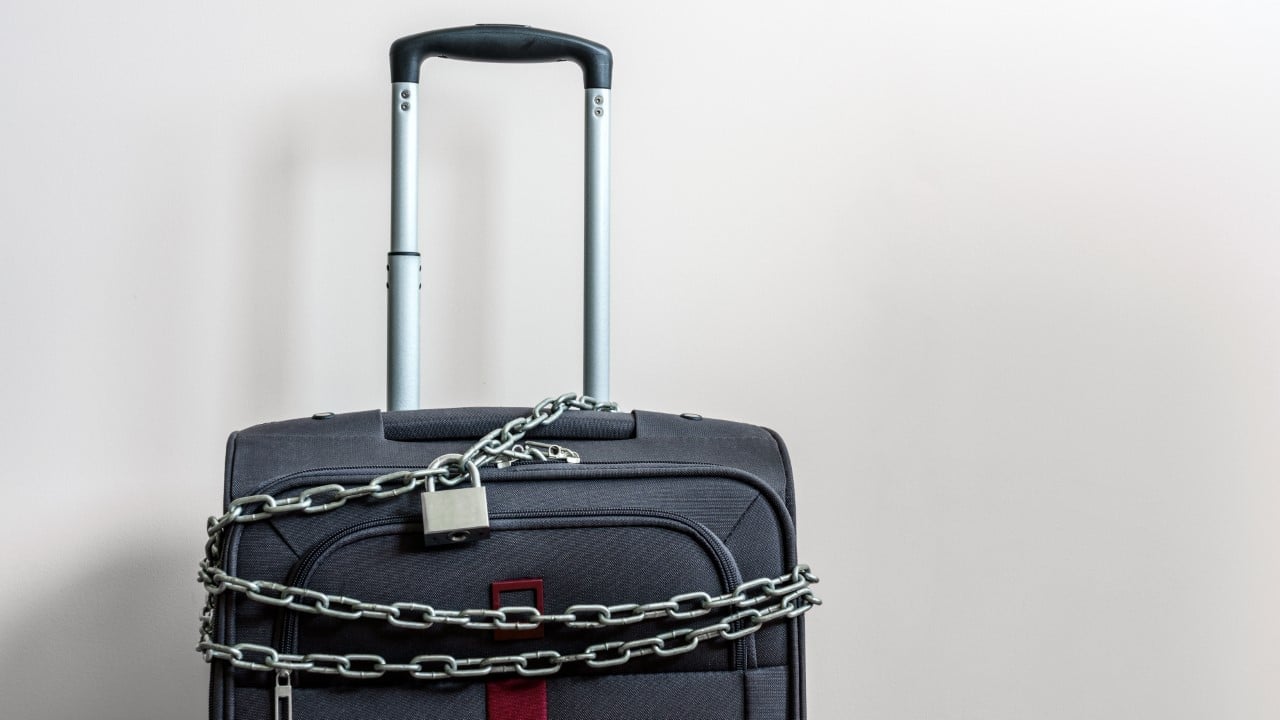
1. Holding Luggage Hostage
When traveling abroad, if you don’t have to check your bags, don’t. In several Asian countries, random people sometimes grab bags from business class passengers to extort $20. Don’t pay up? Then kiss your bag goodbye.

2. Thumb Wrestling Match in Thailand
A friend shared this story with me, which occurred when they were vacationing in Thailand. They were approached by a young girl who was about seven years old. The girl offered necklaces for sale, which my friend declined, explaining that they already owned a similar one. In an unexpected turn of events, the girl proposed a thumb wrestling match. She suggested a wager: her victory would result in my friend purchasing three necklaces, whereas their win would grant them one for free.
To my friend’s surprise, the young girl swiftly defeated them in a matter of seconds and left with some extra cash in her pockets.
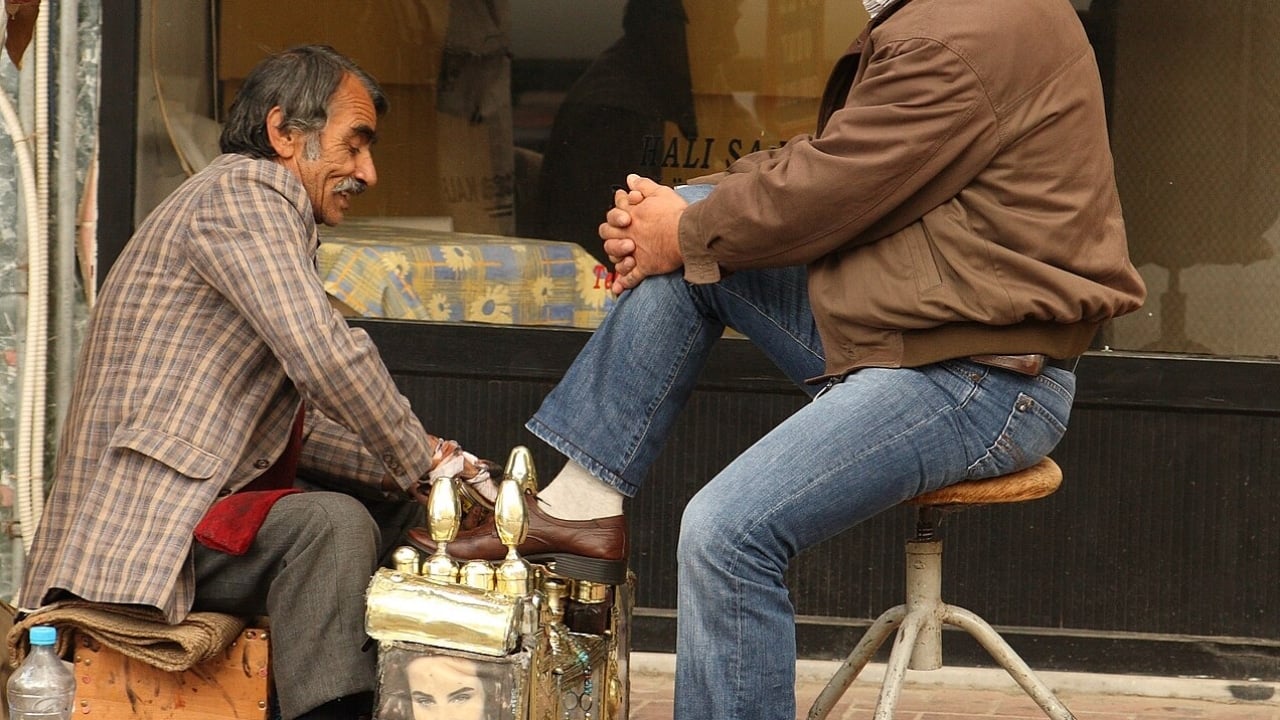
3. Shoeshine in Morocco
Beware of those offering to shine your shoes in Morocco, where shoeshine providers will stop everyone they see and offer to shine their shoes (spoiler alert: it’s not free). This scam is common worldwide, with travelers noting that they’ve experienced it in places such as New Orleans and Italy.
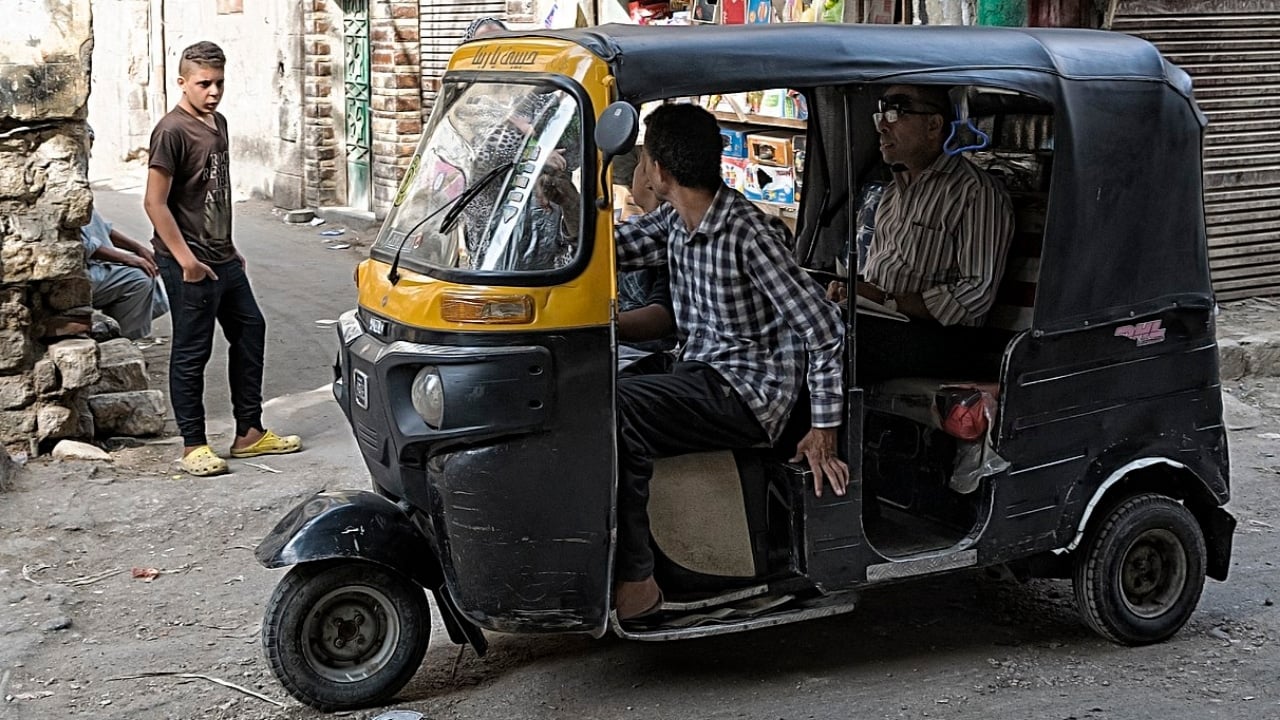
4. Taxi and Tuk-tuk Drivers with Extra Stops
This scam involves offering tourists a reduced fare with a catch — they’ll stop at a store where you’re encouraged to buy something. Tuk-tuk or taxi drivers may even threaten to strand you in unfamiliar neighborhoods if you don’t comply. It’s best to make sure of the terms of your ride upfront. In some countries, such as Malaysia, ensuring the cab offers metered fares is recommended.

5. Not What You Ordered
This is a common scam in Belgium, Morocco, Greece, and Italy. A server will “accidentally” bring out several dishes you didn’t order, claiming a mistake was made but attempting to charge you for it anyway.
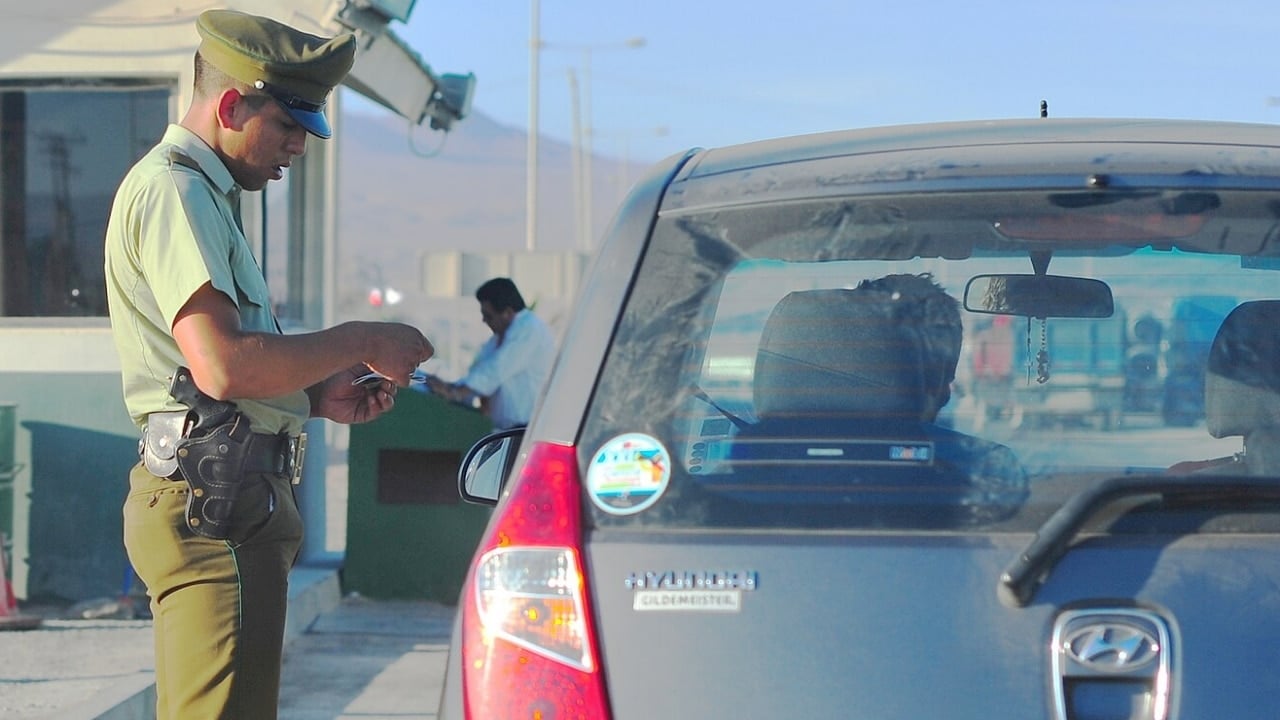
6. The Corrupt Police Checkpoint
Unfortunately, in some countries, corrupt police are common and just part of the system. It’s not even a secret. Various bribes are expected in routine proceedings. In India, Zimbabwe, and Mozambique, you’re likely to experience officials finding problems that can only be fixed with a cash exchange.
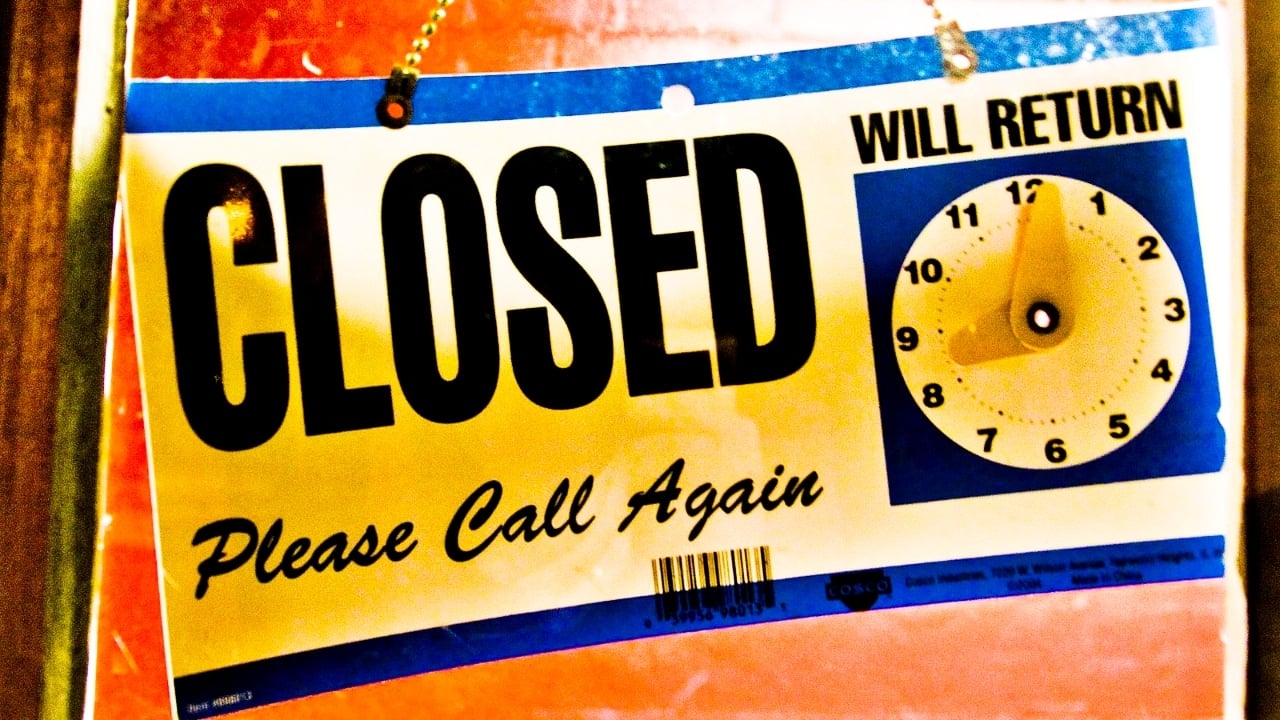
7. That Place Is Closed
You will be randomly approached by a seemingly friendly local who will claim that the attraction you plan on visiting is closed and that you should see something they recommend while you wait for it to open. It might be a shop they want you to buy goods from or something more sinister.
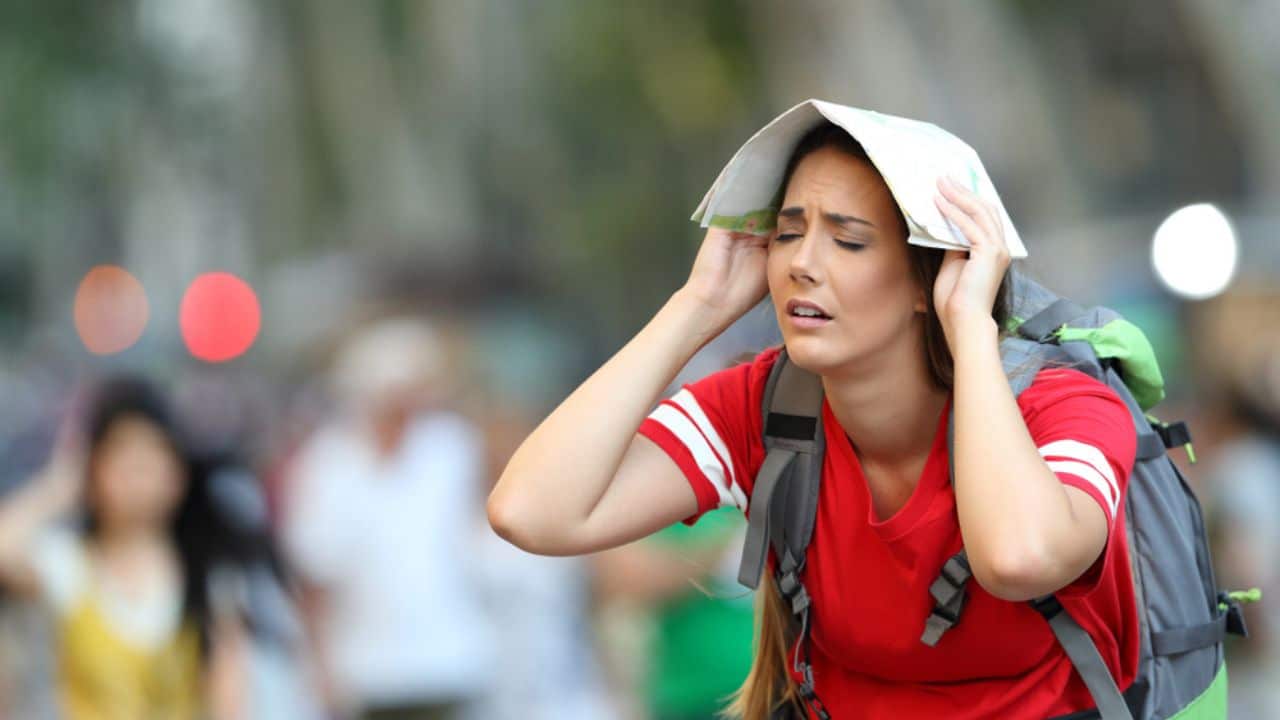
8. Independent Tour Guide
A friendly local or taxi driver offers to be your independent tour guide. They take you to some friend or cousin’s shop so you can buy expensive items you don’t want, and the “tour guide” gets a kickback. In some cases, these people have been known to threaten stranding travelers in remote locations.
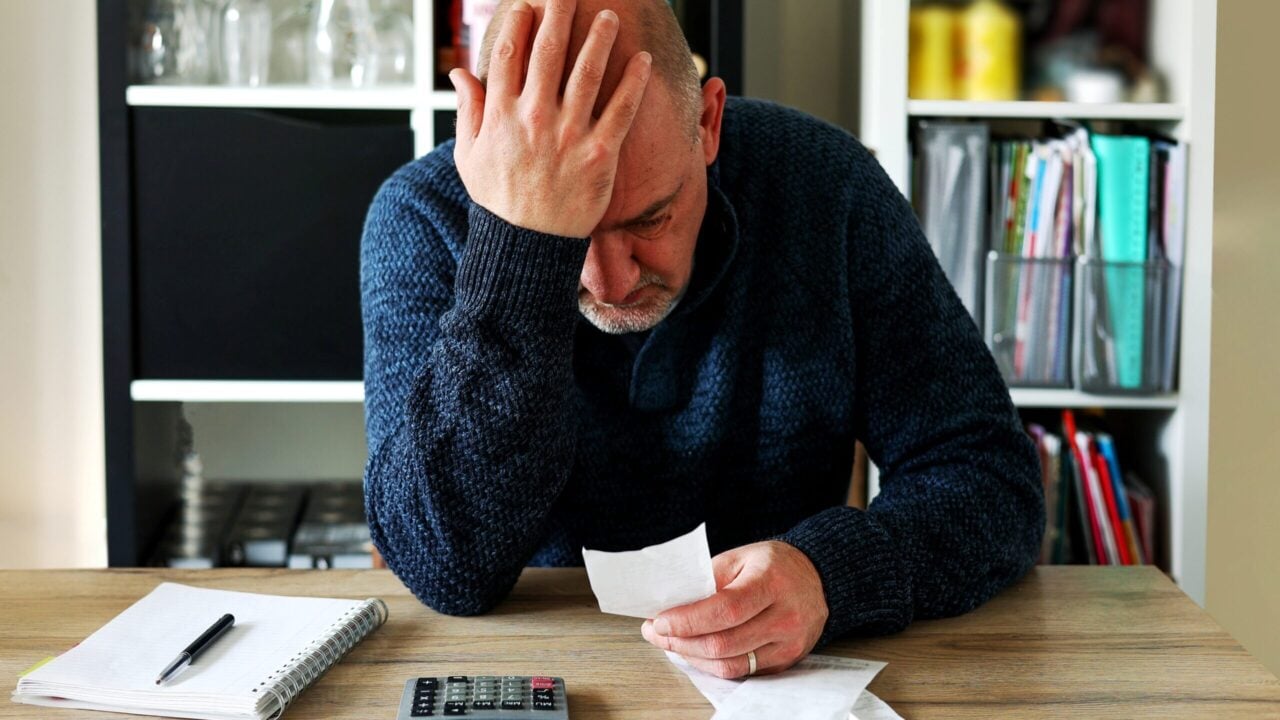
9. Bank Account Clone
Some corrupt individuals will clone your bank account details from your hotel account and attempt to make transactions from a different country. If you think, “I’ll only use five-star, reputable hotels,” think again. Try using a prepaid card instead.
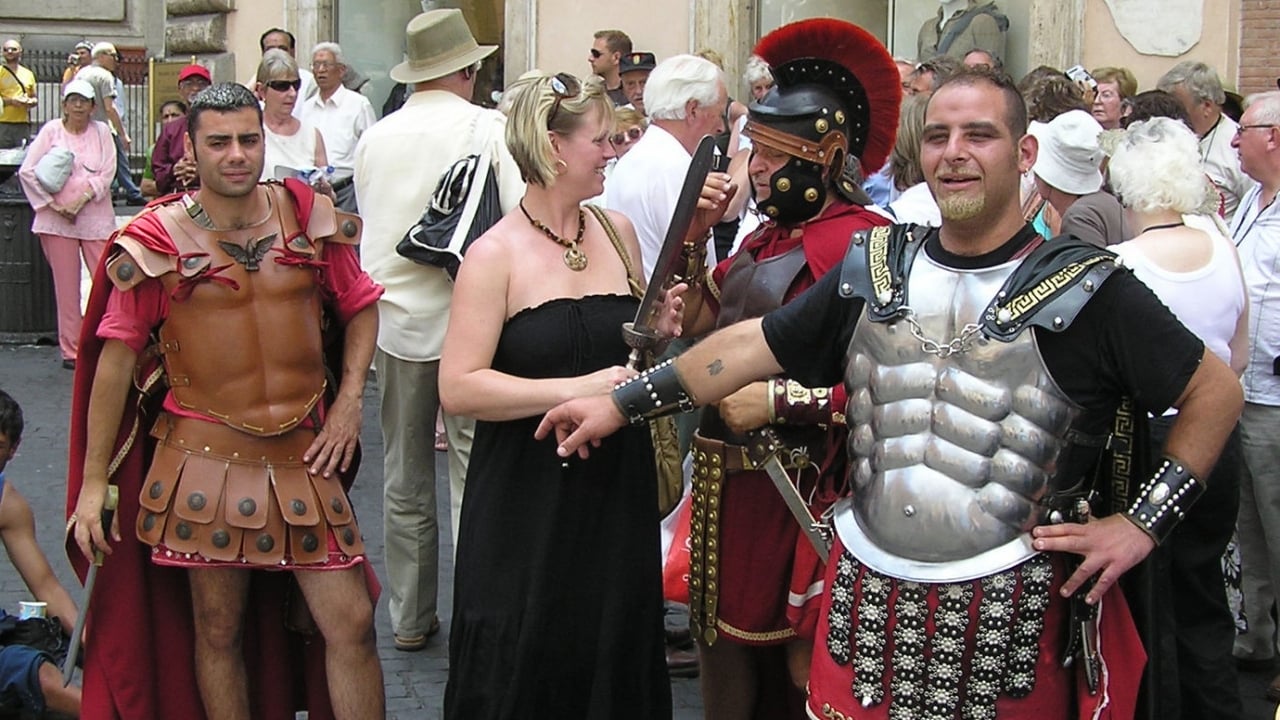
10. The Souvenir Photo
It doesn’t matter what part of the world you’re in; this scam exists anywhere there are tourists. People dressed in various local or fun costumes sometimes aggressively push you to take a photo with them without telling you they’ll charge you an excessive amount until after it’s over. This is reported in places like Las Vegas , Rome, Japan, and even in Hollywood in front of the Chinese Theatre.
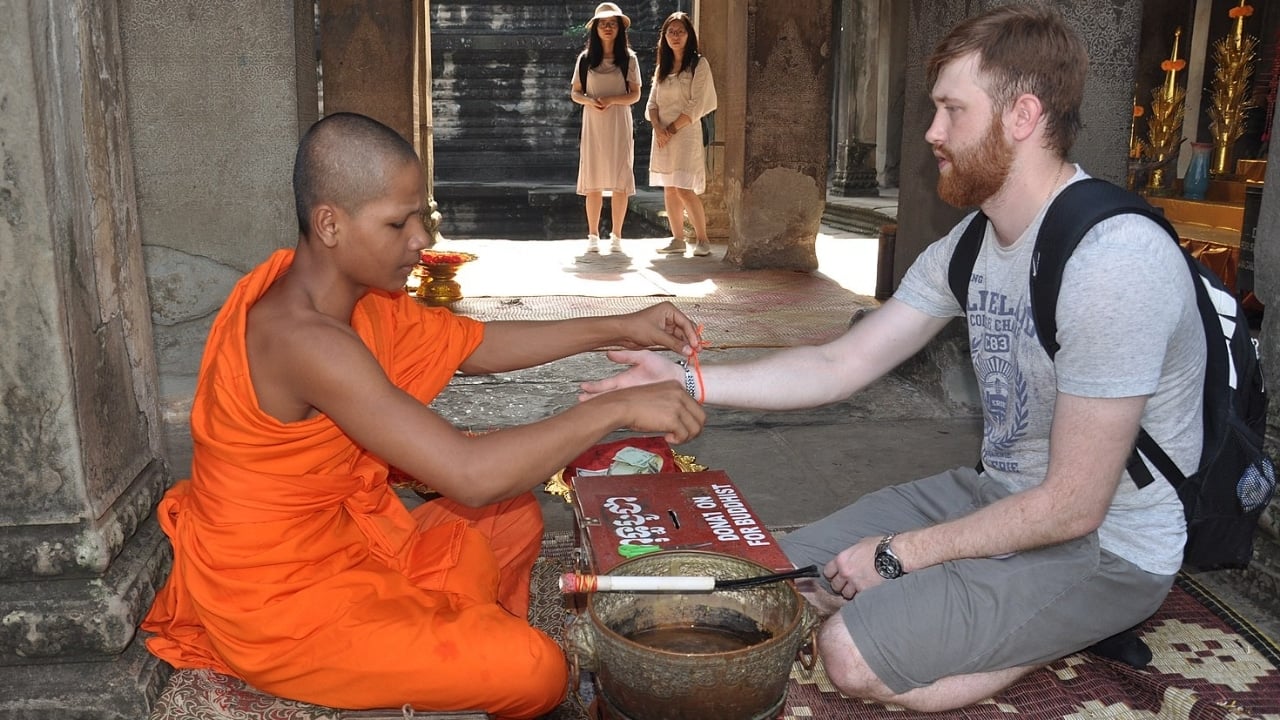
11. The Lucky Bracelet
This is another one that happens everywhere in the world: someone — sometimes dressed as a monk — will tie a cheap bracelet to your wrist without your permission and ask for “donations.” I’ve personally experienced this in Melbourne, Australia, and San Francisco.
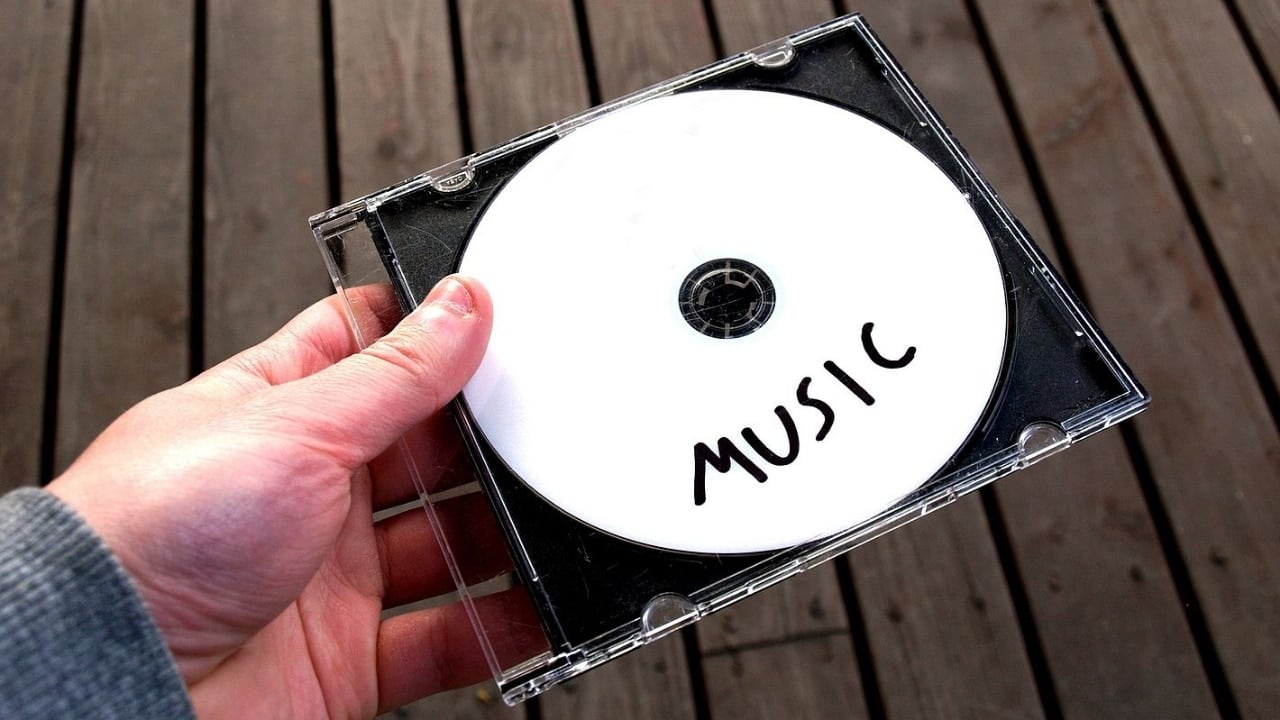
12. The CD Scam
This one also happens in many places, but the most common place I’ve seen this is in the U.S. A random person will hand you a CD and say that they’re an up-and-coming musician and are giving away their first CD. They’ll then give you a sob story about how hard it is to make a living as a musician and ask for a donation. In most cases, the only thing on the disc is some bootleg copy of prerecorded music.
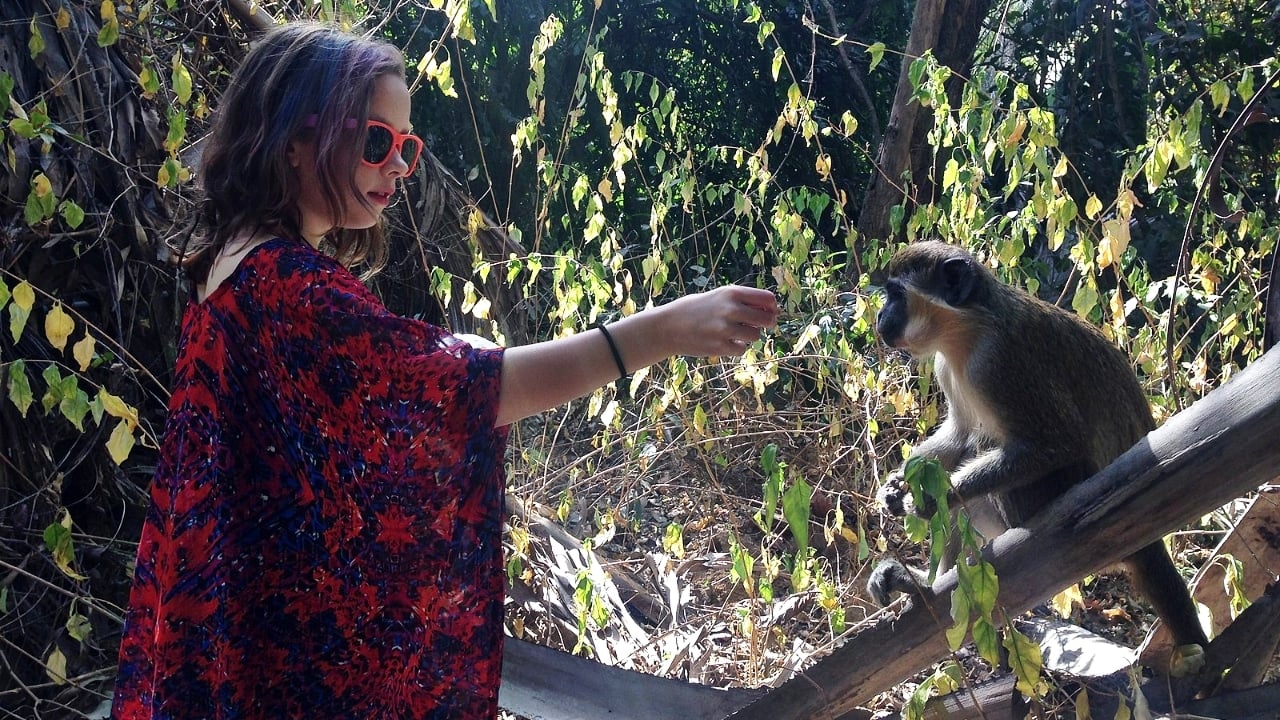
13. Monkeys
In Morocco, some animal handlers will train monkeys to jump on people. Once you’ve been assaulted by said money, the owners demand money to make it stop. Sometimes, they will use the monkeys to distract or capture your attention, sell you something else, or beg for money in exchange for them leaving.

14. Snake Removal
Several travelers have shared a scam that happens in the square of Marrakesh, Morocco: a group of men will throw a snake at you and then ask for money to remove it.

15. The Dropped Item
This scam is part of the shoeshine scams. People rely on the kindness of strangers to pick up their dropped item and bring it back to them. Someone will “accidentally” drop their brush, a friendly tourist picks it up to give it back, they offer to shine the tourist’s shoes as thanks, and then ask for cash.
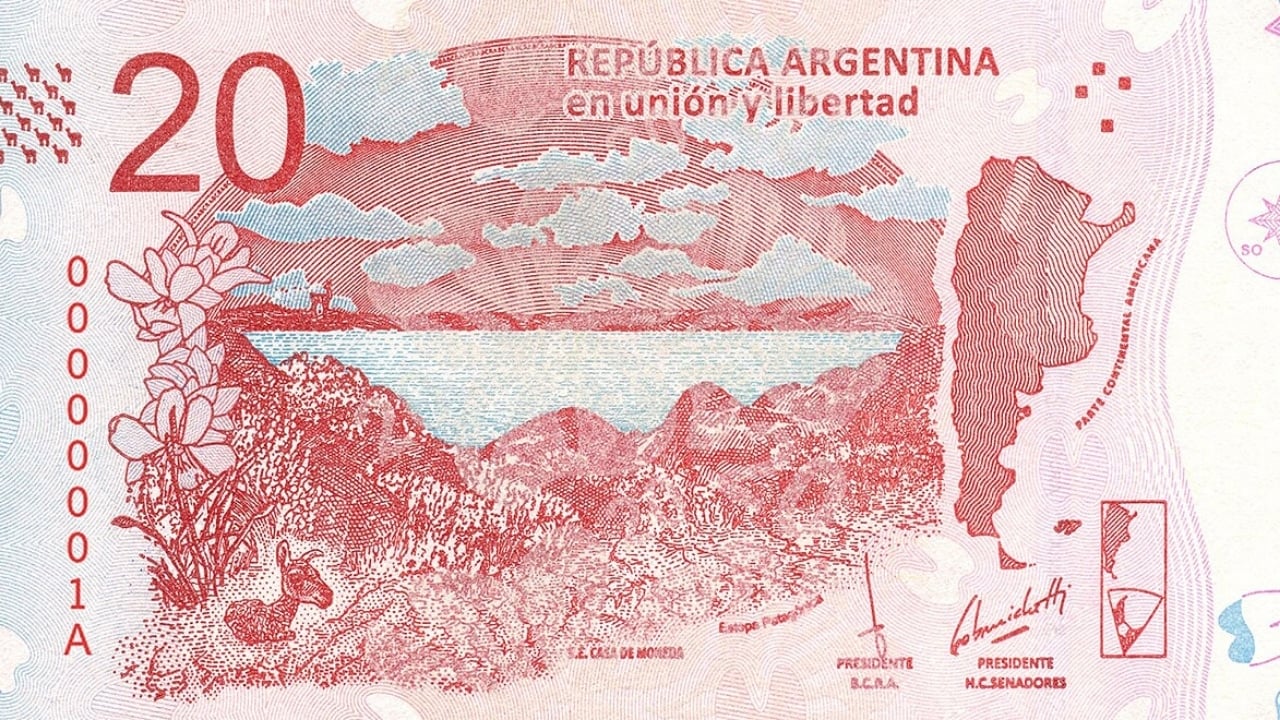
16. Needs to Check Your Cash
This scam involves someone — whether a waiter, a taxi driver, or even hotel staff — checking some of the money you’ve taken out from the bank. They’ll then insist your money is probably fake and ask you to check all the cash you have on you. Then, they’ll then swap it for counterfeit currency.
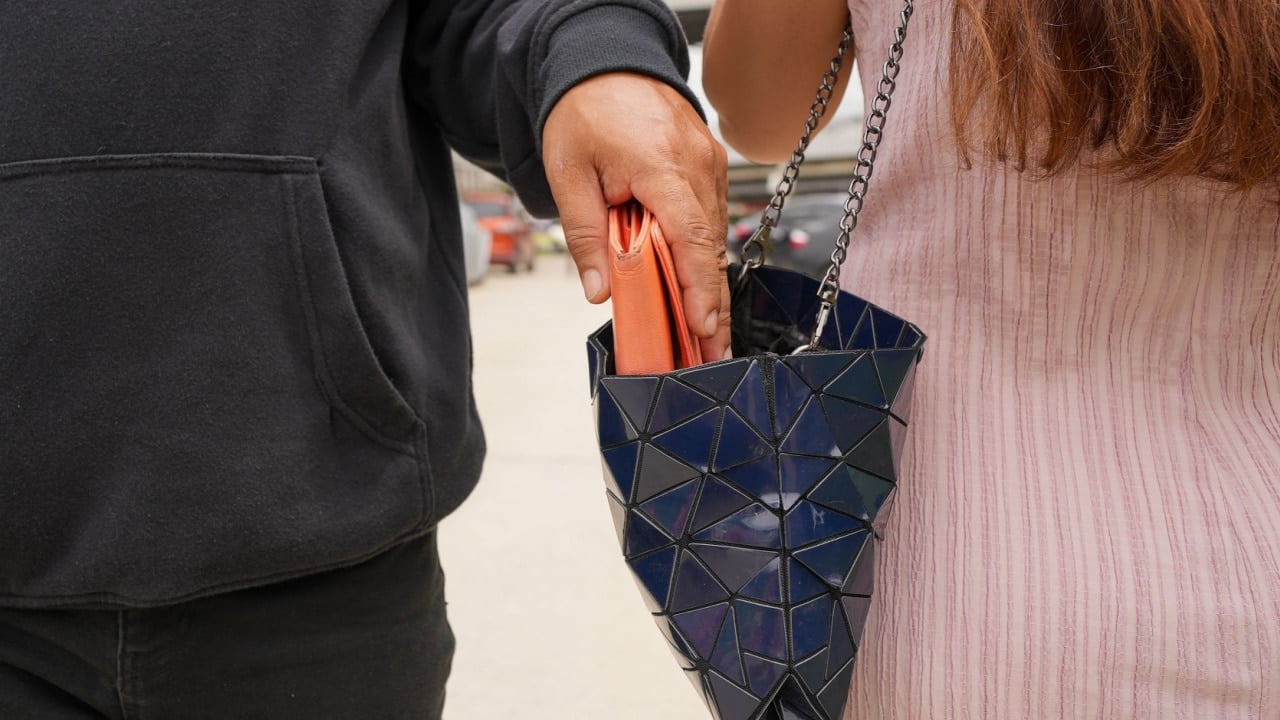
17. The Charity Subscription
Heads up to Paris tourists: this is a common one. People will come up and ask you to subscribe to a worthy cause. While you’re distracted listening to them or filling out the form, pickpockets will relieve you of your valuables.
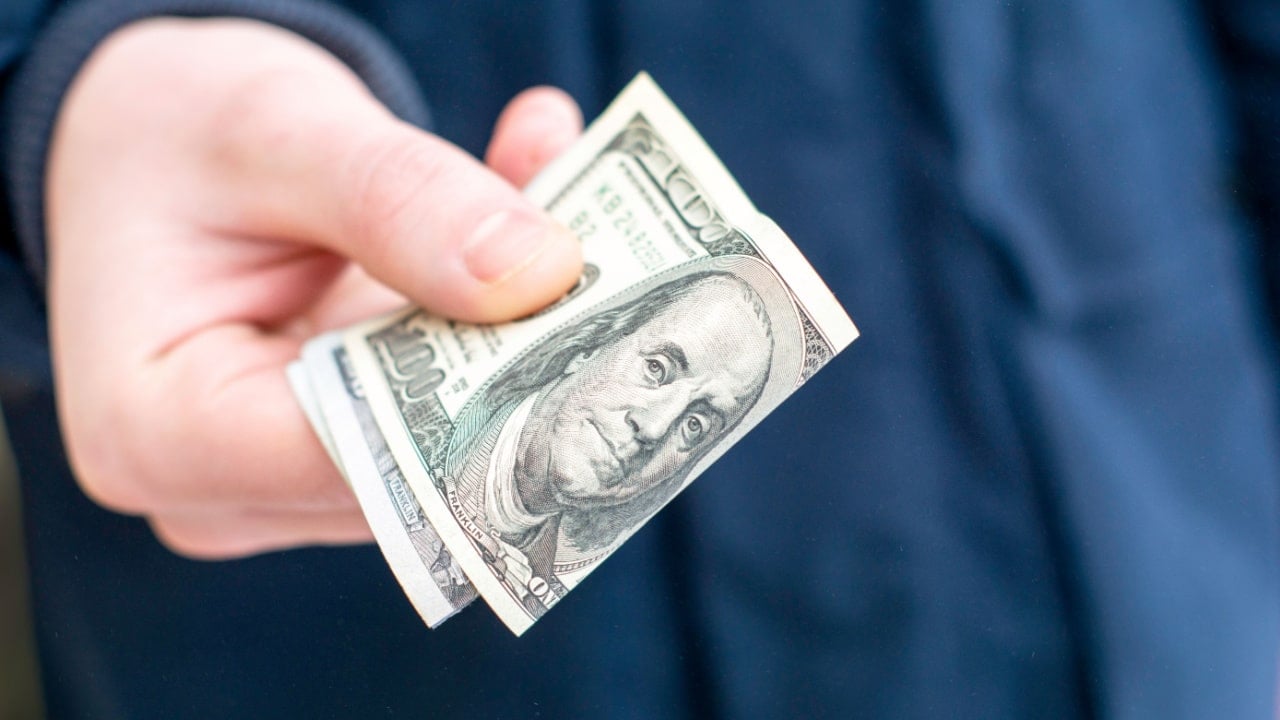
18. Money for Prayers
I’ve encountered this scam in Cambodia and can imagine it’s common across Asia. Someone who looks like a priest will approach you at a holy site such as Angkor Wat and offer prayers, then ask for a donation. This would be fine if they didn’t deceive the tourist by saying “100” and then trying to say they meant American dollars and not the country’s currency.
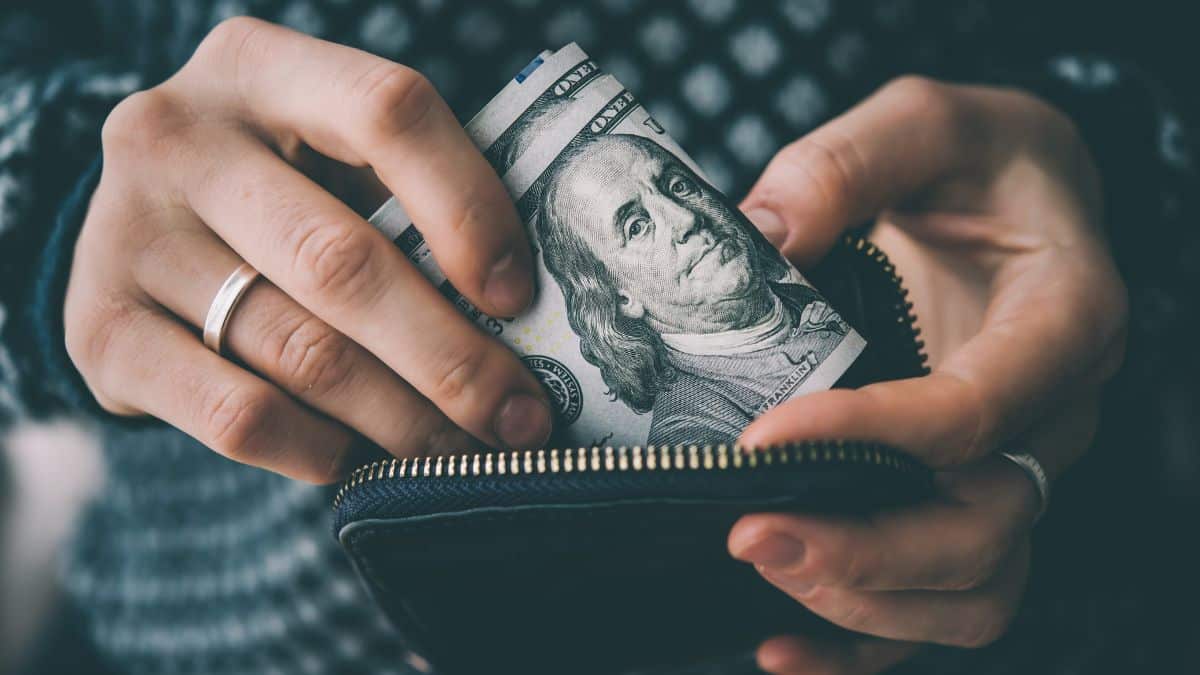
19. The Currency Misquote
This scam follows up on the previous one. Some men with cameras outside the Taj Mahal will tell tourists it costs “100” for them to take a photo. The victim assumes they mean 100 rupees, but after the picture is taken, they will claim they meant 100 USD.
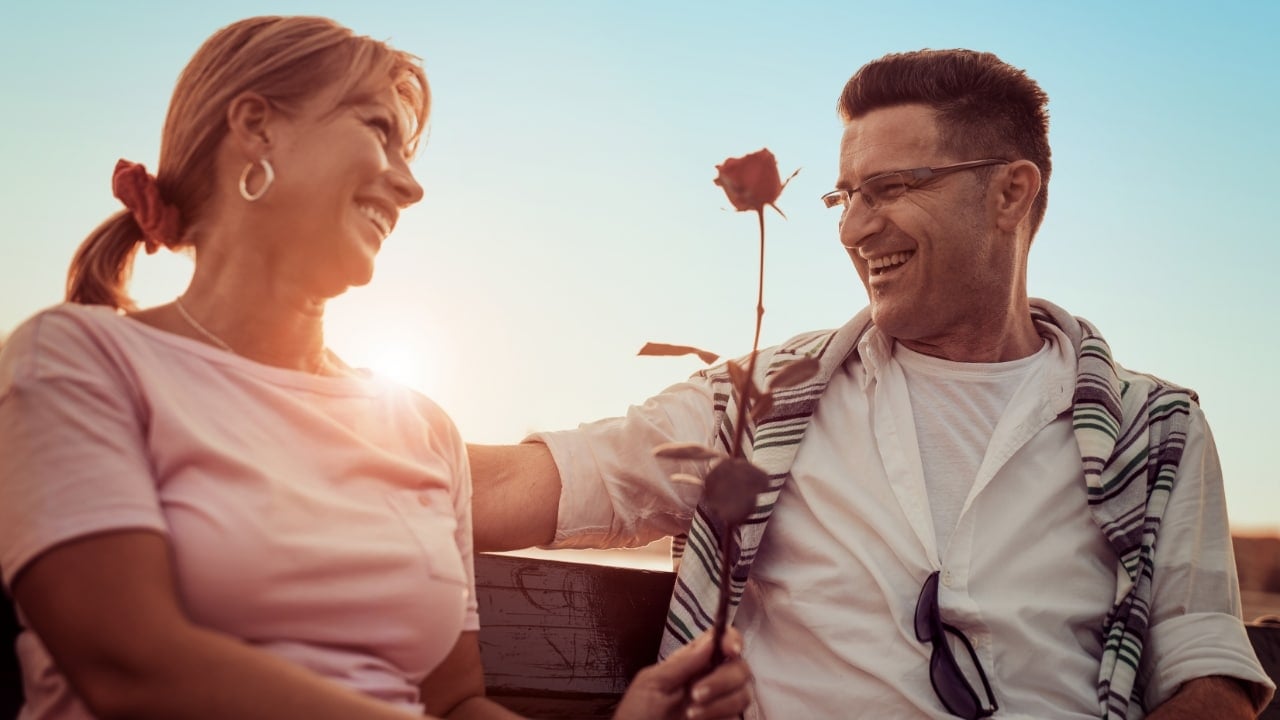
20. The Roses for a Beautiful Girl
This one does nothing for your self-esteem! A stranger will approach you at a popular site like St. Mark’s Square in Venice, Italy. He will hand you a rose and say he’s giving it to you because “you’re a beautiful lady.” You feel flattered and say thank you, and he’ll then ask you for money.
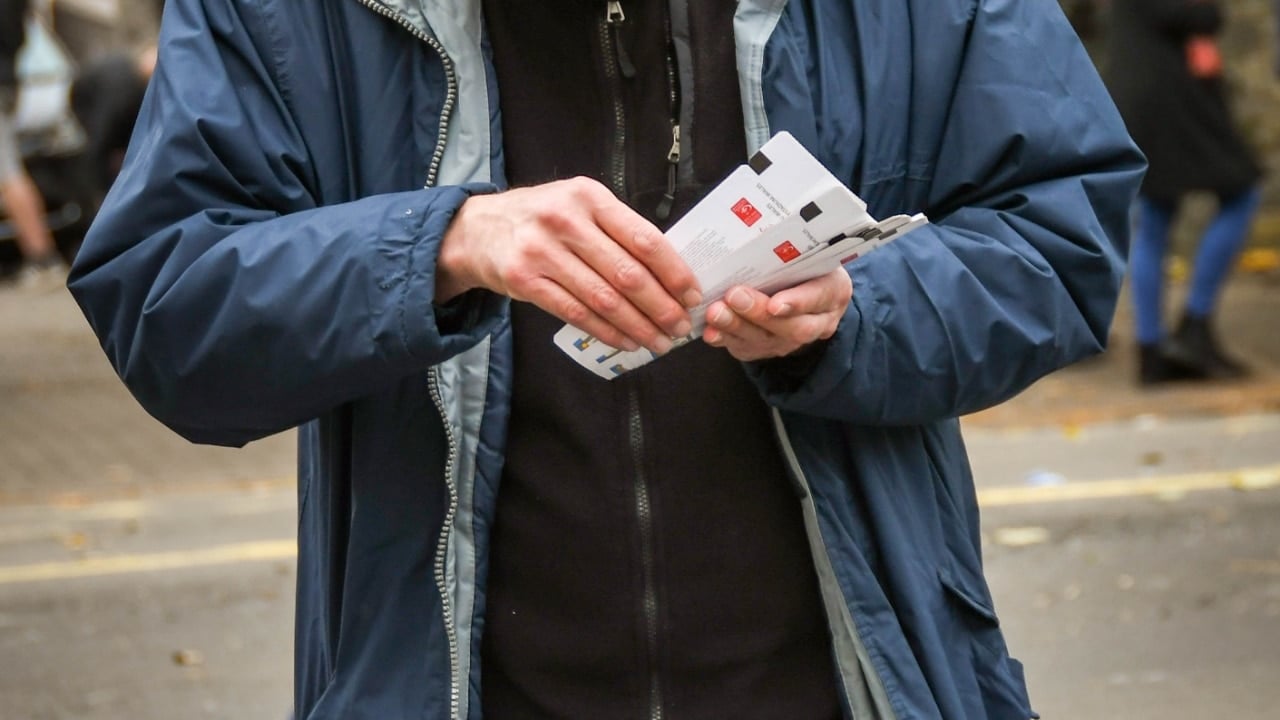
21. Fake Show Tickets
This is another that happens in the most popular tourist attractions worldwide. Street hawkers will offer unbelievable deals on some of the top shows and events in the locale. The tickets may look official, but you’ll visit the box office to find you’ve been scammed. Only buy from reputable sites and locations.
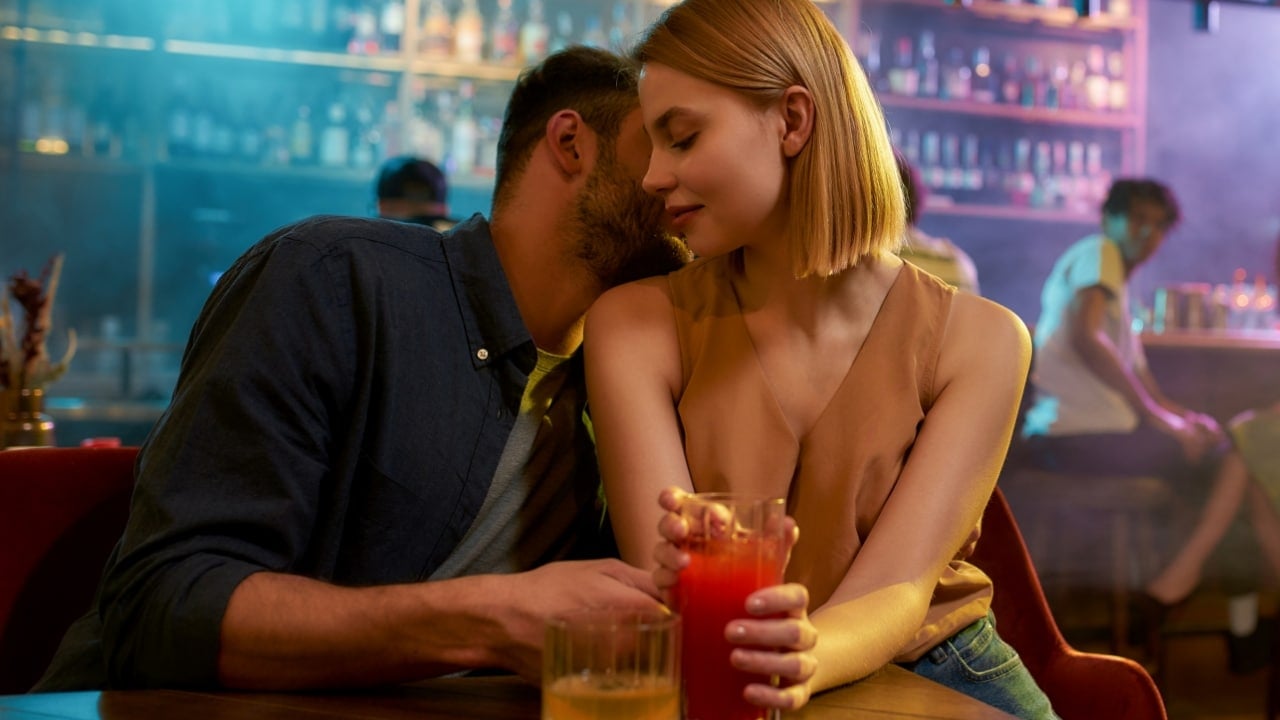
22. Stranger Invites You to a Bar
Part of the travel experience is making new friends, but if someone you just met on the street suggests they know a great bar, be cautious. Many people say they’ve been invited by a friendly local to a bar, only to find they were the only person in there. In some cases, they will be joined by attractive girls who will encourage them to buy way overpriced drinks. In other cases, the situation worsens, and you will be expected to pay your way out.

23. Shot Girls
While this scam might seem like something that preys on men, it can happen to anyone. Bar girls will take advantage of you being intoxicated and offer to take an alcohol shot from their cleavage. They will then attempt to charge you a fee for it.
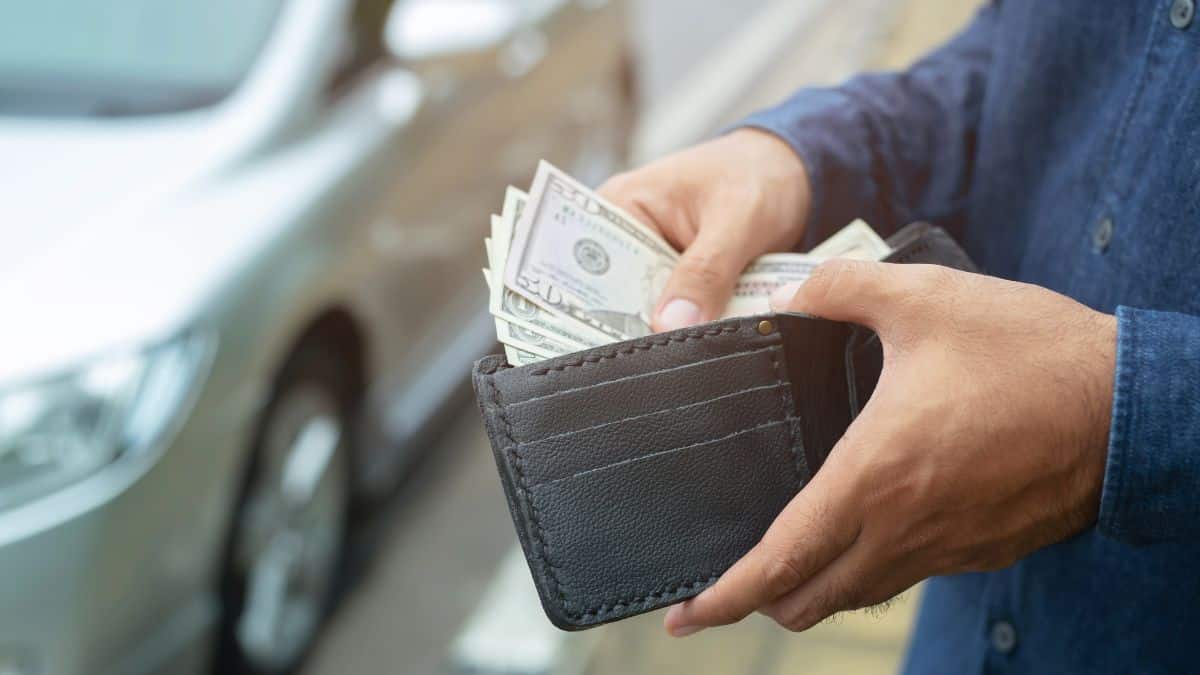
24. We Have No Change
This is very common in many countries that only accept cash. You will pay for something small and cheap with a hefty bill — for example, a $2 item with a $20 note. The business will claim they have no change, so you either have to buy more, leave the item, or leave them a large tip.
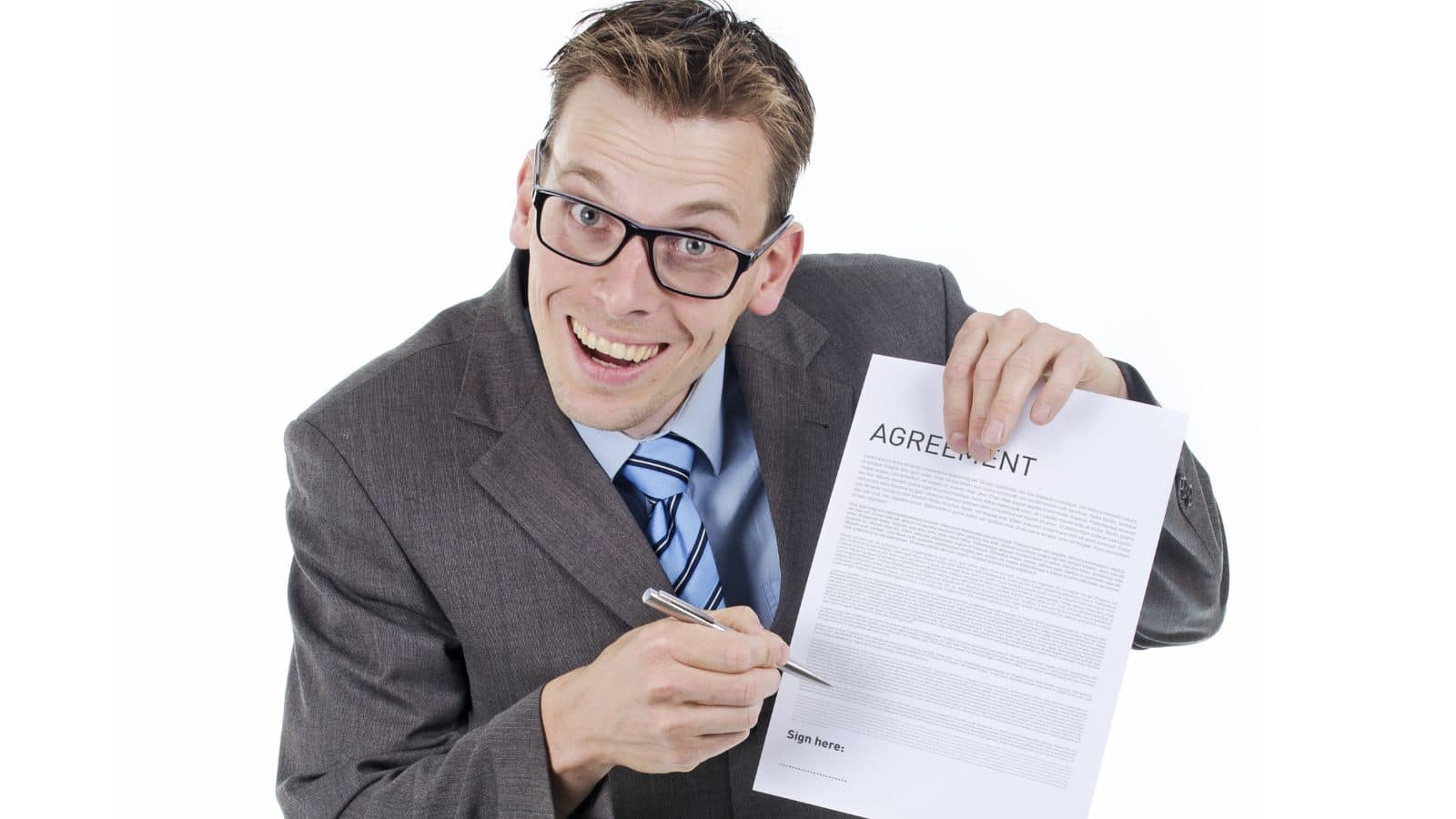
25. The Timeshare Hard Sell
In this scam, someone might approach you by offering you a chance to win a competition. On Australia’s Gold Coast, scammers would allow people to win a luxury breakfast with a limousine ride, where you would also learn some history about the area. People were required to tick how much they earned; if it were over a certain amount, you’d “win” the competition, but the breakfast was just a front for a hard sell on a timeshare. This exists in one form or another in different places around the world.
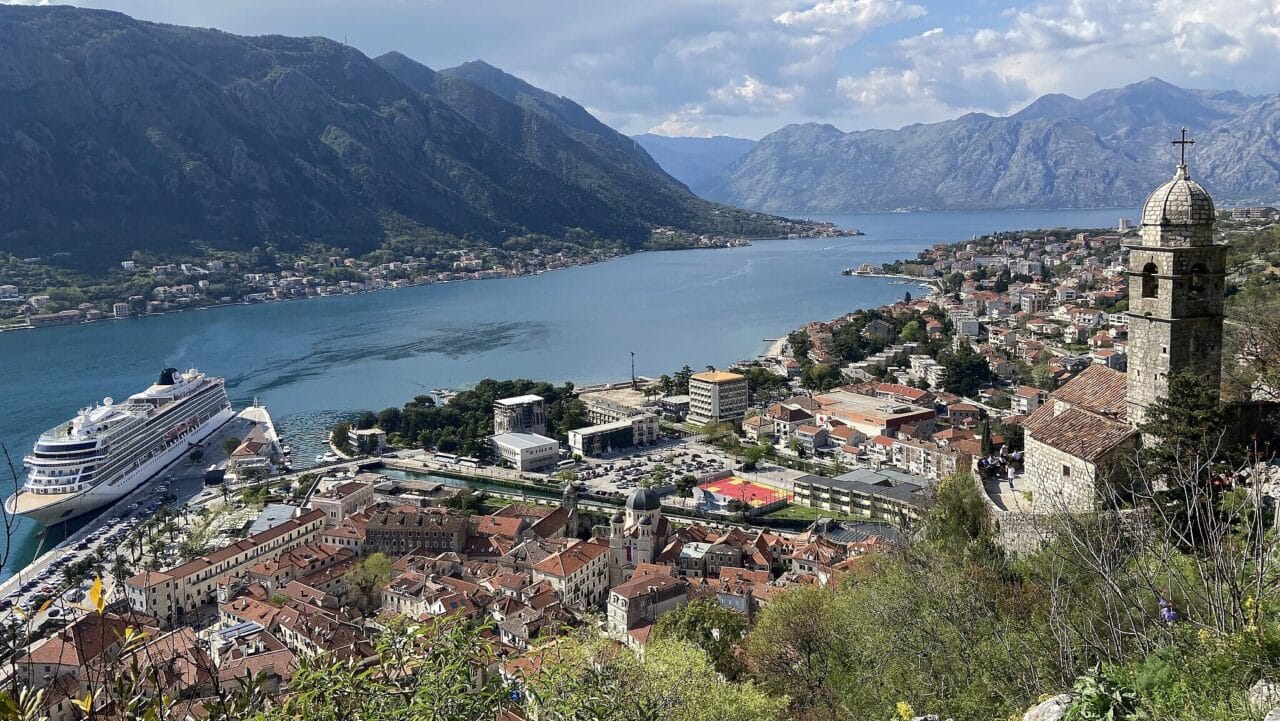
Read More From Wealth of Geeks
- Best Countries To Live In Across the World
12 Record-Breaking Roller Coasters Across the Globe
More for You
Warning for parents after Florida mom finds AirTag in son's sneaker
Vietnamese businesswoman sentenced to death in multi-billion dollar fraud case
K-Pop Singer-Songwriter Park Boram Found Dead at 30
J.K. Rowling says 'Harry Potter' stars who've criticized her anti-trans views 'can save their apologies'
15 Bits of Trivia That Crawled Up In Our Brains And Refuse To Come Out
Ron DeSantis takes on Target, and Walmart, over retail theft
Gladiator 2 footage stuns CinemaCon with ‘ripped’ Paul Mescal and ‘sinister’ Joseph Quinn
Vladimir Putin says 'just three things' stop Ukraine war ending as he's 'ready for peace'
Fifth-grade girl speaks out after Washington school denied request to start interfaith prayer club
Harvard psychologist shares 5 toxic things 'highly narcissistic' people always do in relationships
False claim Dwayne 'The Rock' Johnson said he regrets voting for Joe Biden in 2020 | Fact check
Travis Kelce graduates college with brother Jason
Woman with rare syndrome left allergic to ‘everything’ except just four foods
Paramount shows 'Gladiator 2' as Disney goes R-rated
Third South Dakota tribal nation bans Noem from reservation
These Are 10 Smells That Cats Absolutely Hate
Mike Pence lands new gig after failed 2024 presidential bid
I did 30 lateral raises every day for 2 weeks — here's the results
Air Force reports on targets destroyed last night
If you use any of these 4 phrases you have higher emotional intelligence than most

IMAGES
VIDEO
COMMENTS
6 Common Tourist Scams to Watch Out for in Morocco. Coronavirus (COVID-19) and travel: The situation around the world is changing dramatically. Various governments have changed their travel warnings to restrict travel during this time. To understand how this may impact cover under your policy, please go to our FAQs and select your country of ...
Morocco Travel essentials and resources. Morocco Travel Guide: 19 things you should know before you go; Where to go: The 17 most beautiful places to visit in Morocco; Plan your trip: 3 itineraries to discover the best of Morocco; Is Morocco safe: 18 useful tips to stay safe while traveling in Morocco; Tours and experiences: Book a customized tour
Still the right choice). 2. The "You're Going the Wrong Way" Scam. The Fes Tanneries. We encountered this Moroccan scam many, many times. Similar to "it's closed," the "you're going the wrong way" is intended to disorient you and set them (the local) up as a guide to take you to the "right" spot.
This scam often happens in Marrakesh — one of the most popular tourist destinations in Morocco. Within Marrakesh, there is a place called The Medina. It is a large market, a UNESCO World Heritage site, and considered the old part of the city. ... As with the other scams in Morocco, she will demand all that she sees. Moroccan scam #3: Carpet ...
Morocco Tourist Safety: Moroccan Scams to Watch Out For. Okay, so with all those Morocco safety tips out of the way, let's tackle some common Moroccan scams. Again, when it comes to travel safety in Morocco, the #1 thing that you should be wary of is the abundance of scams that are out there so that you can avoid them. If you successfully ...
Love scams are the flip side of a softer form of sex tourism and females usually fall prey to this in Morocco. The other major countries where romance scams take place are Tunisia, Turkey and the Dominican Republic, but hundreds of cases are also reported in Morocco. Young man with a phone in the desert.
Anyway, you probably get the idea. So let me give you one important tip: treat spontaneous help with a serious dose of cynicism. Don't get sucked into anything, and always make clear that you don't need any help whatsoever. They might say "my friend, in Morocco this is normal. We friendly people, we help tourist.".
Scams In Marrakech At A Glance. Number 1 | "The Street Is Closed". Number 2 | "Have You Heard Of The Special Festival. Number 3 | "Good Man, Women Always On The Right". Number 4 | "The Medina Is This Way". Number 5 | Someone Slowly Starting To Walk In Front Of You. Number 6 | "Here, Here!
4- Fake Fossils and Minerals. Morocco is well-known for selling genuine fossils and minerals. However, many of the items offered in the souks are counterfeit. Yes, that is another one of the Scams in Morocco. Tourists will sometimes pay a hefty price for something that isn't real.
Imagine yourself wandering through the vibrant streets of Morocco, mesmerized by the bustling souks and awe-inspiring architecture. As you immerse yourself in the country's rich culture, it's important to be aware of potential tourist scams that can put a damper on your experience.
Hash scams. Illegal hash is big business in Morocco, with some farmers around the Rif Mountains making a living from the cultivation of hashish. One con involves corrupt police officers and hash dealers, who work in cahoots to extort money from unsuspecting tourists. Dealers sell hash to customers and then tip off the police, who then ...
How to Stay Safe and Avoid Scams in Marrakech. Every year, Marrakech lures thousands of tourists from around the world. Some come for short weekend breaks due to the relatively short flights from Europe and the Middle East, while others choose to visit Marrakech as part of longer breaks and tours around Morocco's Imperial Cities.
READ MORE: Top Instagrammable Places in Morocco. Top Scams in Marrakech 1. The Helpful Local #1 - 'Free' Directions. ... They are hurting our country and tourism. The true people of Morocco welcome you all the time. Reply. Heather Cole says: July 6, 2019 at 2:40 pm.
Scams in Morocco—don't get taken Fake rugs. One of the most common scams unique to Morocco is the fake rug scam. Morocco is known for producing some of the world's most unique and beautiful rugs and tapestries. Their reputation in that industry is an ode to the centuries of textile producing in Morocco's history.
Morocco Travel Scam 2: Harassment At Jemaa el Fna Night Market . The night market at Jemaa el Fna Square is probably the most popular tourist attraction in Marrakech. There are nicer restaurants with rooftop bars overlooking Jemaa el Fna, and then inside the square, there are snake charmers, henna artists, street performers, and about 50 food ...
In truth, Morocco is a safe place to visit, with crime rates steadily declining year after year. There's really only petty crime (scams and pickpockets) and you're unlikely to be assaulted or seriously hurt as a tourist. Morocco is super safe for tourists now, and it's only becoming more so as tourism increases to the country.
The monkey scam is one of the most visible scams in Marrakech. This is an easy scam to avoid, but tourists still fall victim each day. Men with docile, well-trained monkeys standing in Jemaa el Fna (the main square) will suddenly plop one of these captive primates on the shoulder of an unassuming tourist.
In the country of Morocco, you will find tons of travel scams. Luckily for you, here's the Top 7 Travel Scams of Morocco and How to Avoid Them. Be safe!!! A scam is most commonly defined as a fraudulent scheme made by a dishonest individual in order to rob money from a clueless victim. The saddest part is that most of the victims don't ...
Although Morocco is a beautiful country with a rich cultural history and stunning landscapes, it's also notorious for its many scams and tourist traps that c...
Tourist Scams to Watch Out For. While Morocco is a welcoming destination, it's important for tourists to be aware of potential scams that target unsuspecting visitors. By familiarizing yourself with these common scams, you can stay vigilant and protect yourself from falling victim to them.
Removing yourself from the situation quickly is often the best bet. Call The Brigade Touristique. The tourist police speak decent English and their main job is to assist visitors. The phone number is 0524 38 46 01, and the police station is located on the edge of Djemma el Fna square near the Ketoubia mosque.
5. Restaurant or food stall. You go to the restaurant, check the menu and order. When it comes to pay the bill, the result is way more than what you ordered. The waitress would say you must read the menu wrong and showed different menu than you saw earlier. Also, in the food stalls, if you receive food you don't order.
Several travelers have shared a scam that happens in the square of Marrakesh, Morocco: a group of men will throw a snake at you and then ask for money to remove it. Image Credit: Yuri Nunes ...